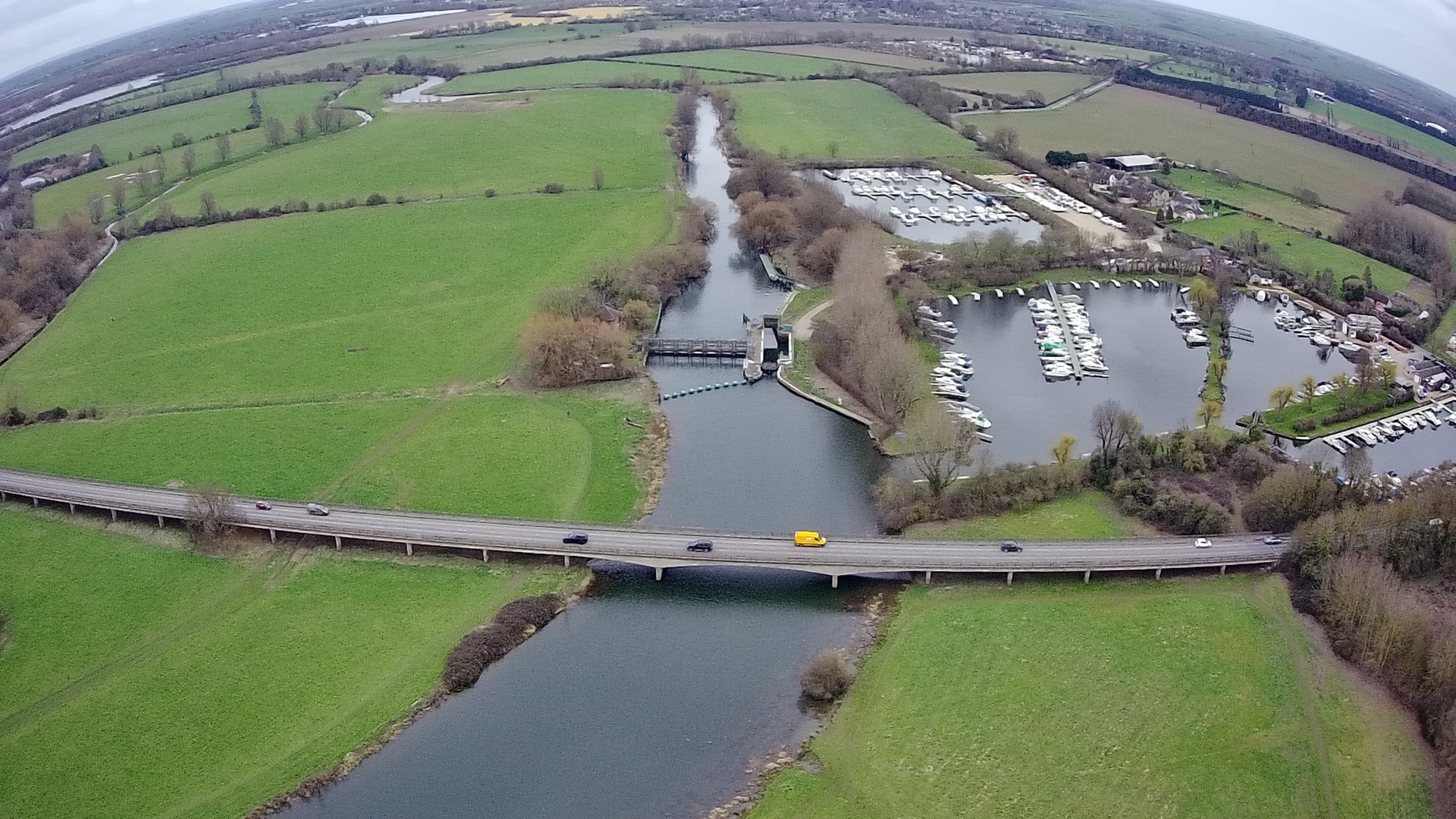Best camera drones 2026: Take your aerial photos and videos to the next level
We've come up with a list of the best camera drones available in 2026, after reviewing a multitude of options.
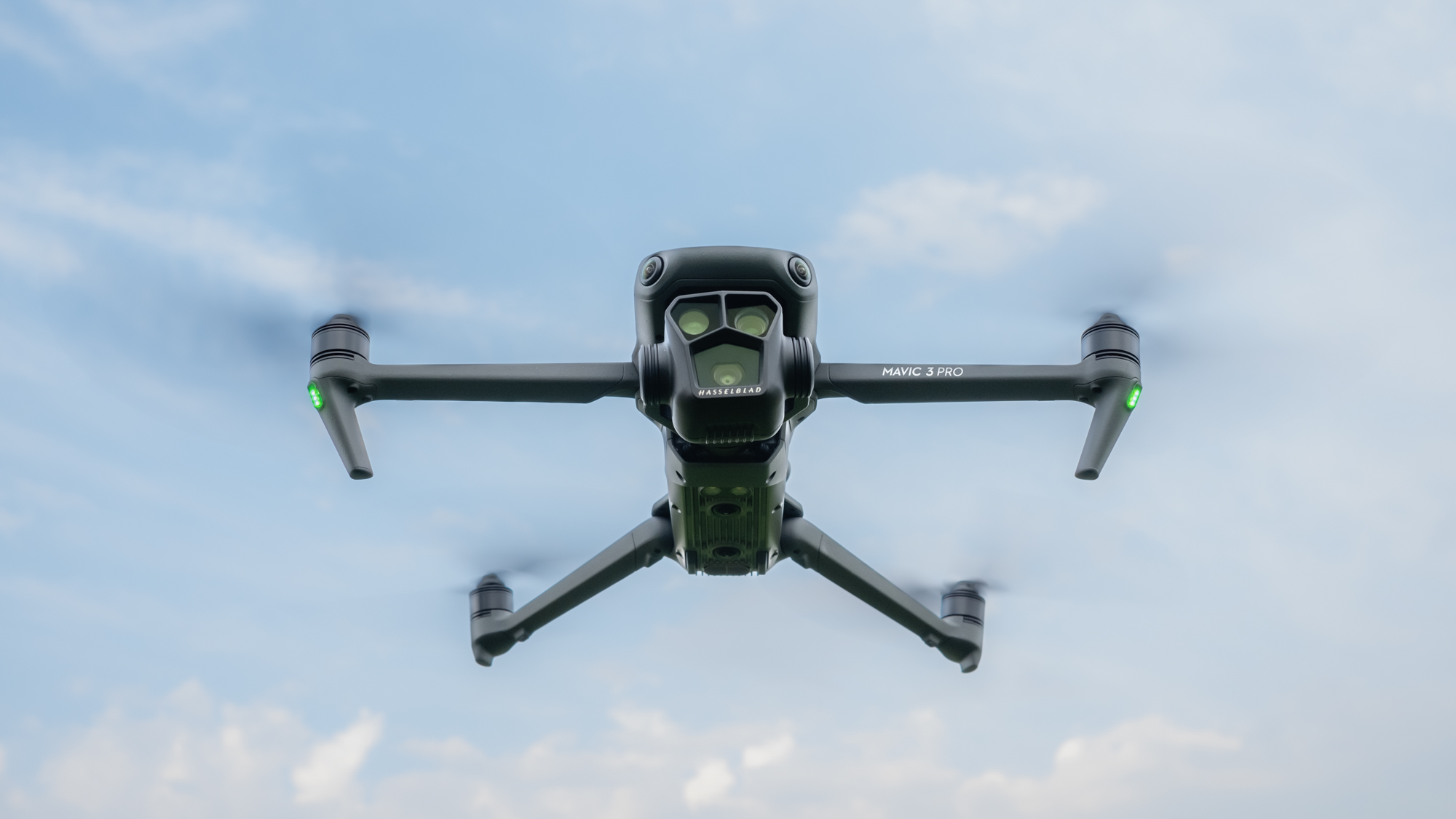
- Quick list
- best camera drone overall
- best last gen camera drone
- Best dual camera drone
- Best value for money
- Best DJI Mini alternative
- Best for portability
- Best DJI mini drone
- Best cheap mini drone
- Best entry-level camera drone
- Best professional-use drone
- Best enterprise drone
- Best attachable drone camera
- Best Selfie Drone
- FAQs
- How we test
Breaking space news, the latest updates on rocket launches, skywatching events and more!
You are now subscribed
Your newsletter sign-up was successful
Want to add more newsletters?

Delivered daily
Daily Newsletter
Breaking space news, the latest updates on rocket launches, skywatching events and more!

Once a month
Watch This Space
Sign up to our monthly entertainment newsletter to keep up with all our coverage of the latest sci-fi and space movies, tv shows, games and books.

Once a week
Night Sky This Week
Discover this week's must-see night sky events, moon phases, and stunning astrophotos. Sign up for our skywatching newsletter and explore the universe with us!

Twice a month
Strange New Words
Space.com's Sci-Fi Reader's Club. Read a sci-fi short story every month and join a virtual community of fellow science fiction fans!
We've rounded up all the best camera drones you can fly in 2026 so you can start the year by getting the perfect balance between flying and capturing footage.
In our guide to the best camera drones, there's something suitable for every level of experience and budget and there's plenty of detail, so you know exactly what you're getting. However, if you don't quite find what you're looking for, we recommend checking out our other guides to the best drones, best beginner drones and best FPV drones.
Our expert staff and freelancers have countless hours of flying experience behind them and have reviewed a multitude of drones over the years. Here, you'll find reviews, analysis, opinions and overviews along with all the key specs to each of the best camera drones. So, whether you're looking to take off for the first time, capture the perfect shot, or you're looking for professional-grade gear boasting 100MP resolution, scroll down to find the best camera drones of 2026.
The Quick List
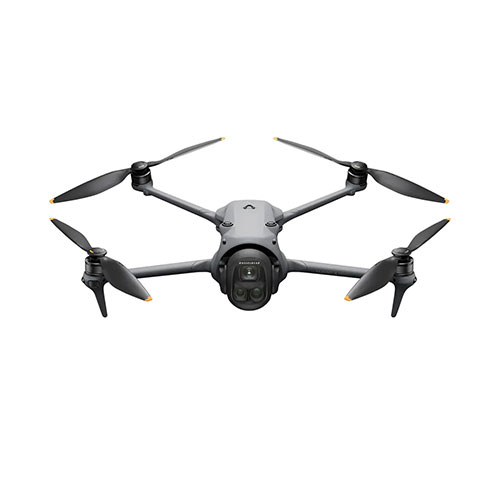
A step up from the Mavic 3 Pro, the Mavic 4 Pro is a technological and performance upgrade on just about everything else on the market
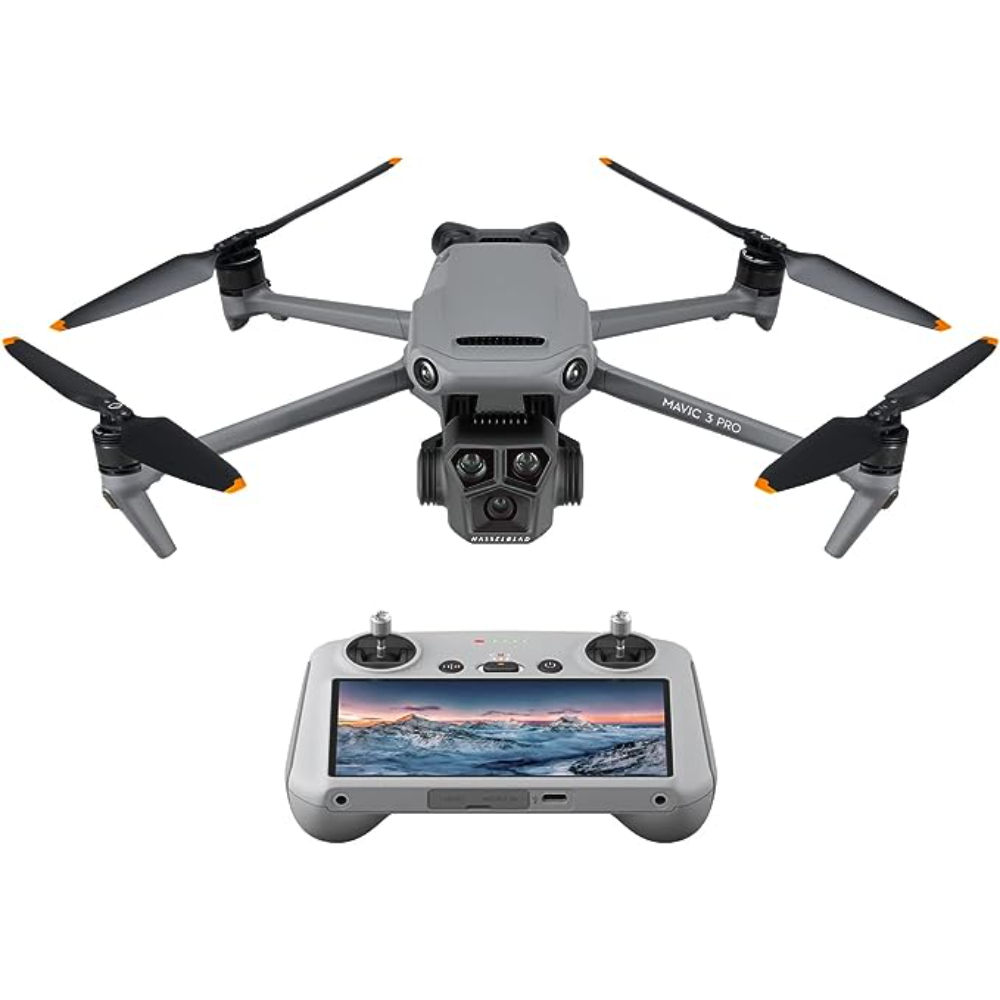
The world's first consumer drone with three cameras - the Mavic 3 Pro offers exceptional image quality. Probably overkill for most users unless you're a pro.
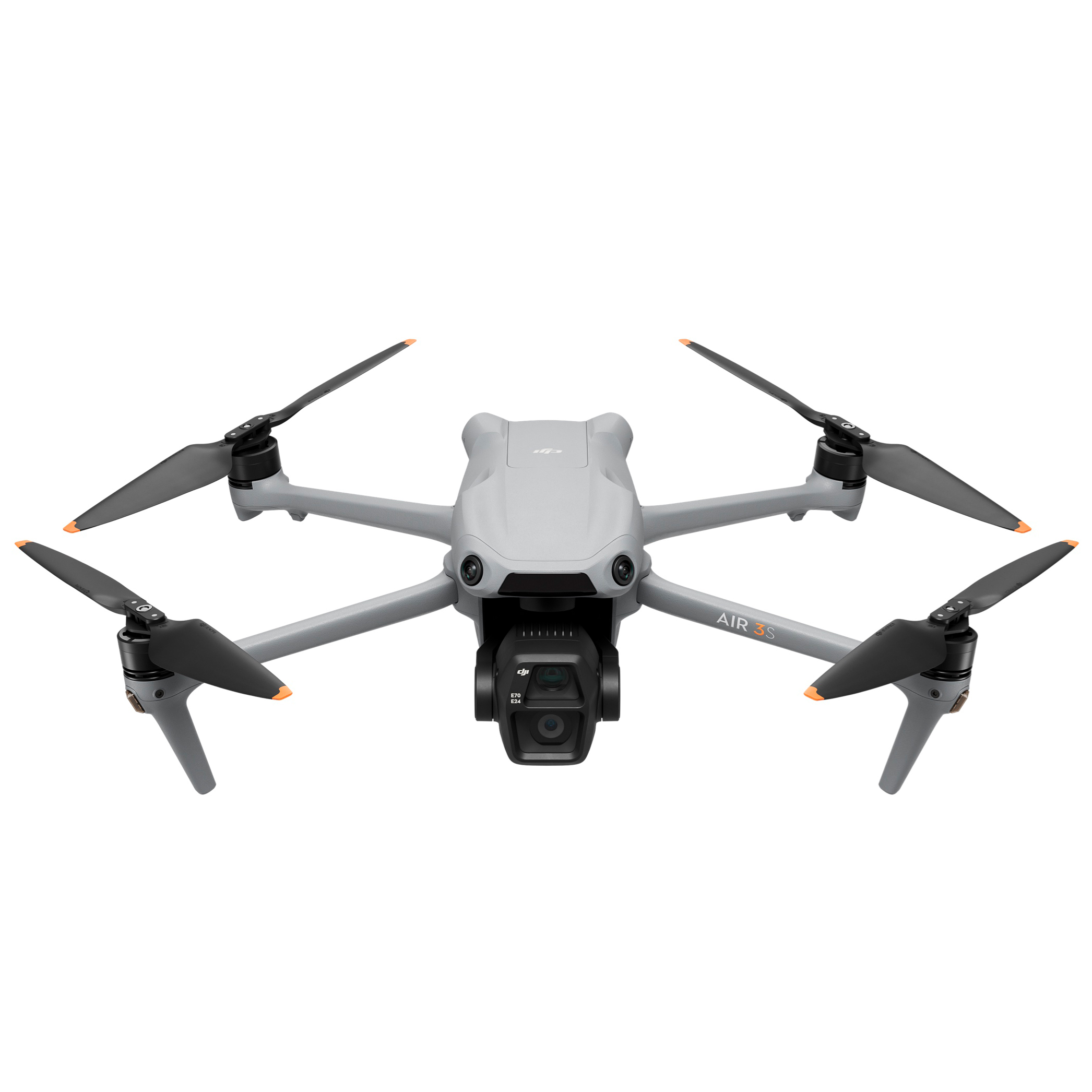
The DJI Air 3S is a powerful and high-spec mid-sized drone featuring two impressive cameras covering wide-angle and medium telephoto focal lengths for creative versatility.
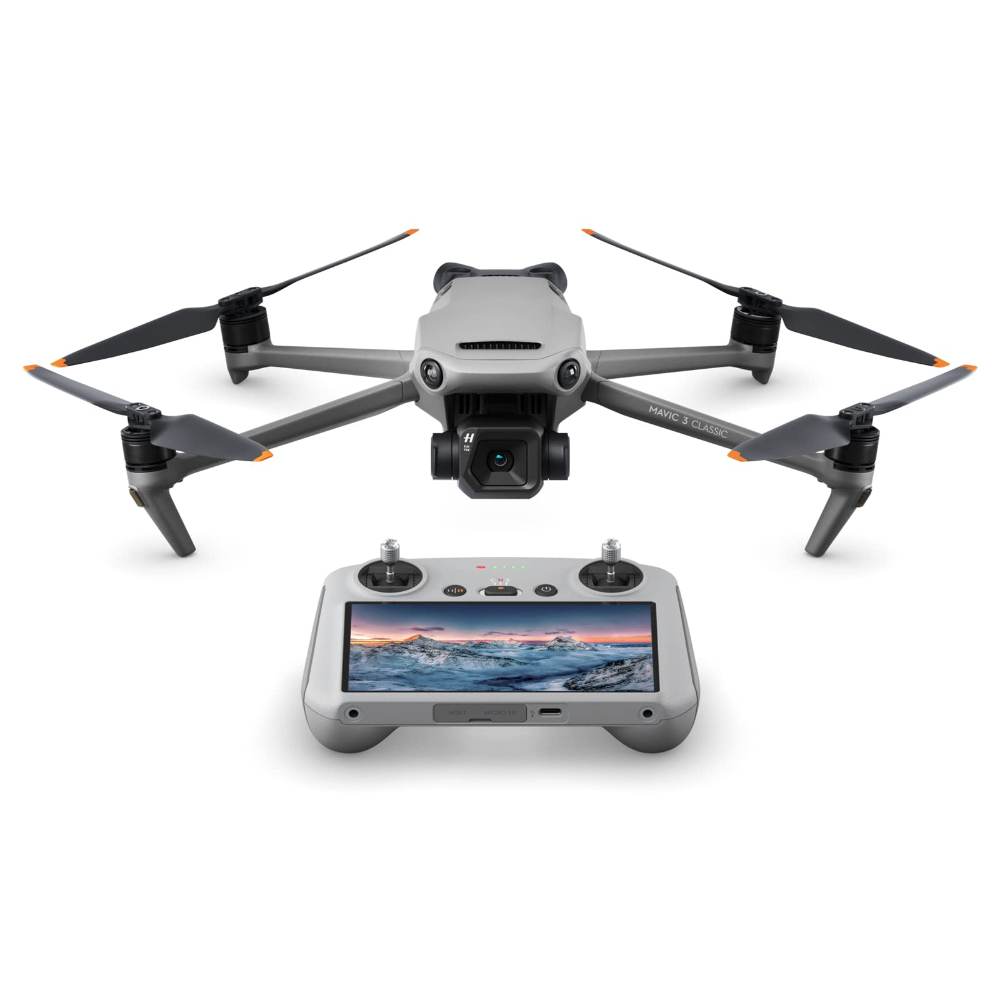
If the only camera you need on a Mavic 3 is the Four Thirds Hasselblad camera with an adjustable aperture, the Mavic 3 Classic is the perfect option.
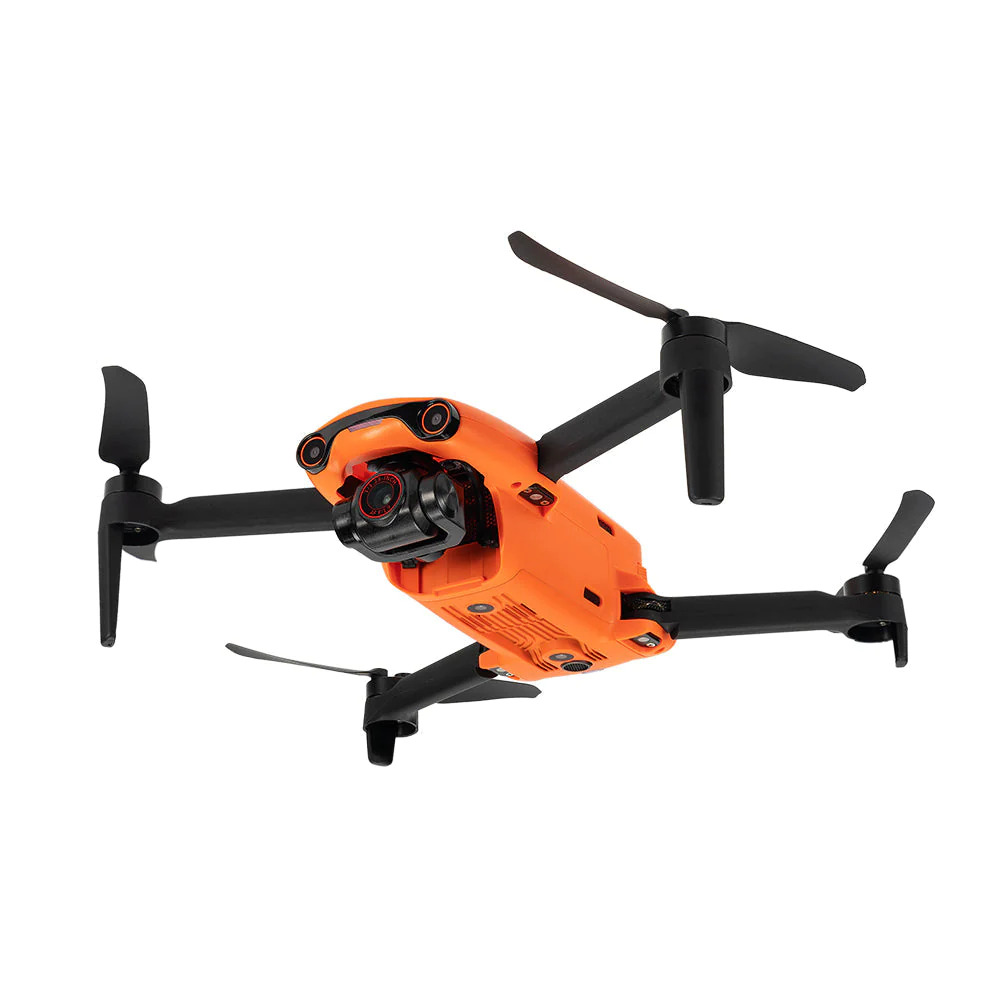
With 4K 30fps video in a small and foldable 249g drone, The Autel EVO Nano+ also offers collision avoidance for safer flights in complex environments.
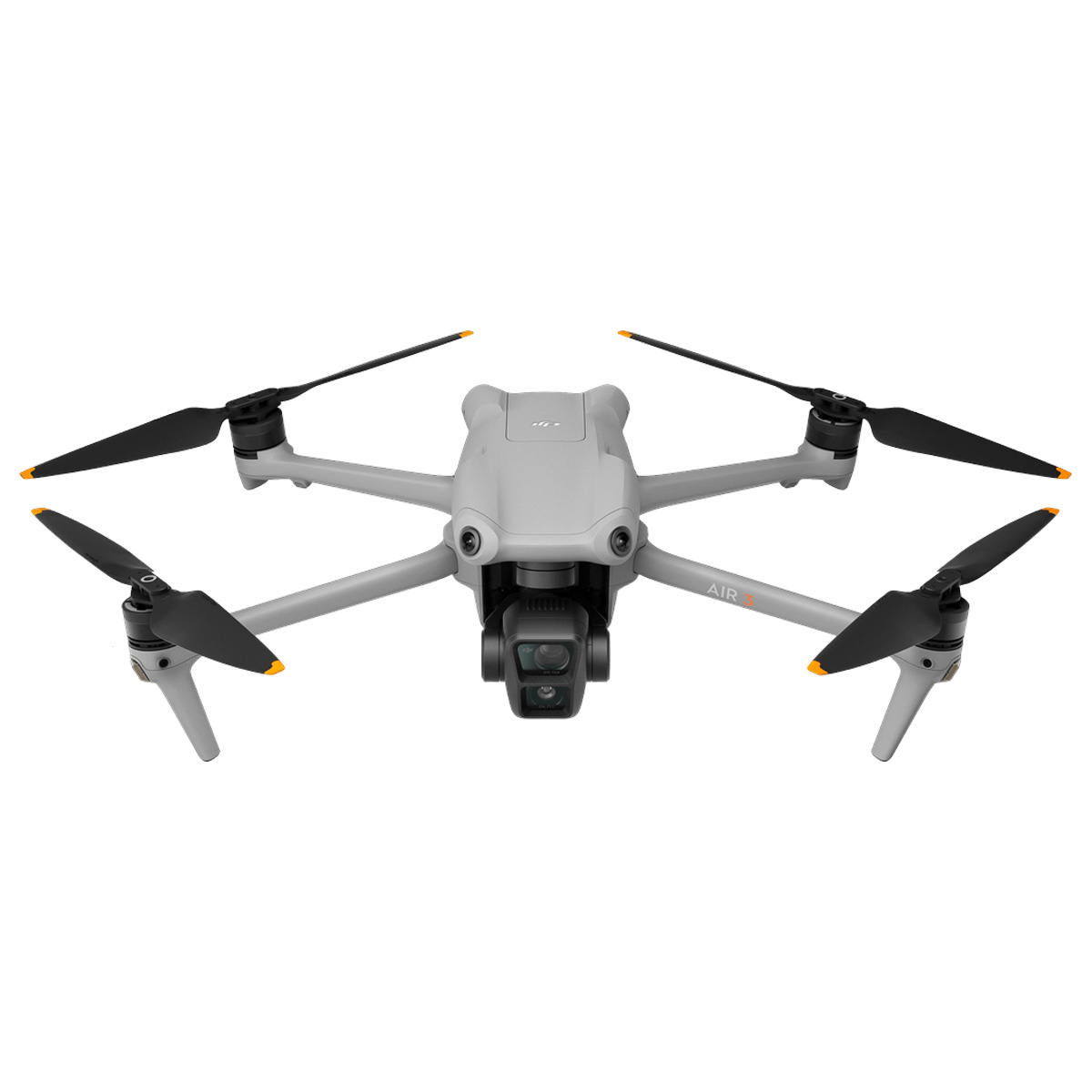
Thanks to excellent image quality, power and advanced features in this medium-sized drone, the DJI Air 3 is a versatile option for shooting photos and videos.
Load the next 5 products ↴
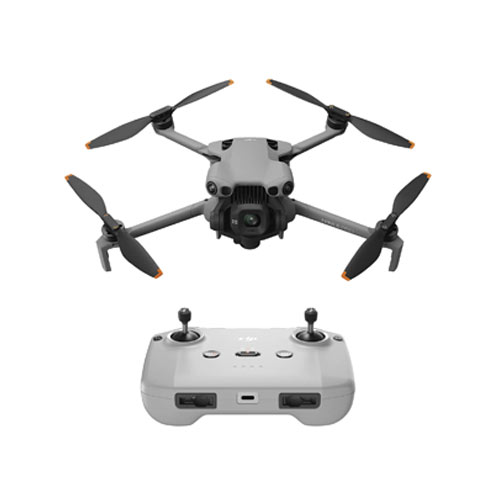
The DJI Mini 5 Pro is the best sub-250g drone available, offering excellent image quality for photos and videos alongside advanced collision avoidance and subject tracking.
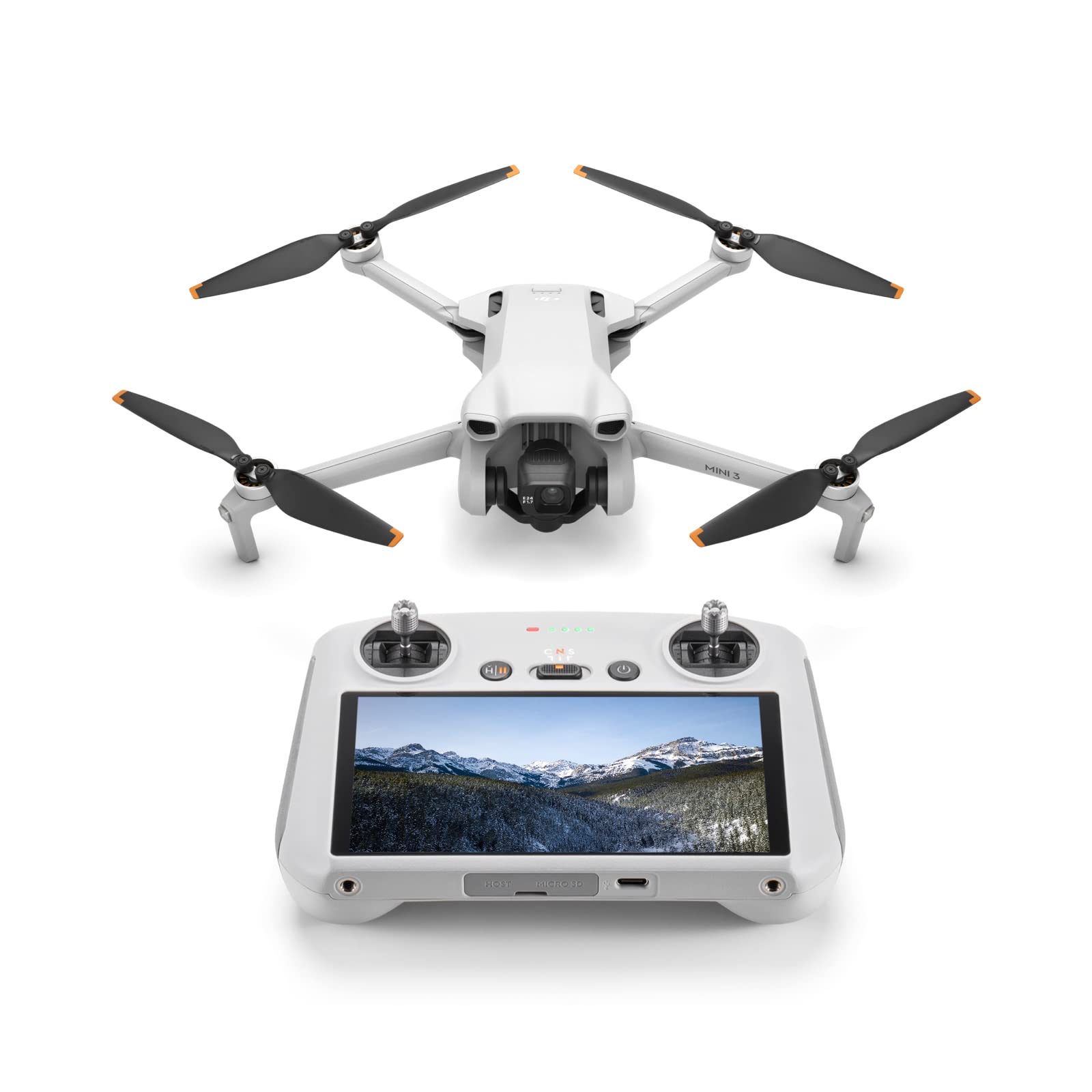
The DJI Mini 3 may not have all the features of the more expensive DJI Mini 3 Pro, but it shares the same camera and many features for a budget price.
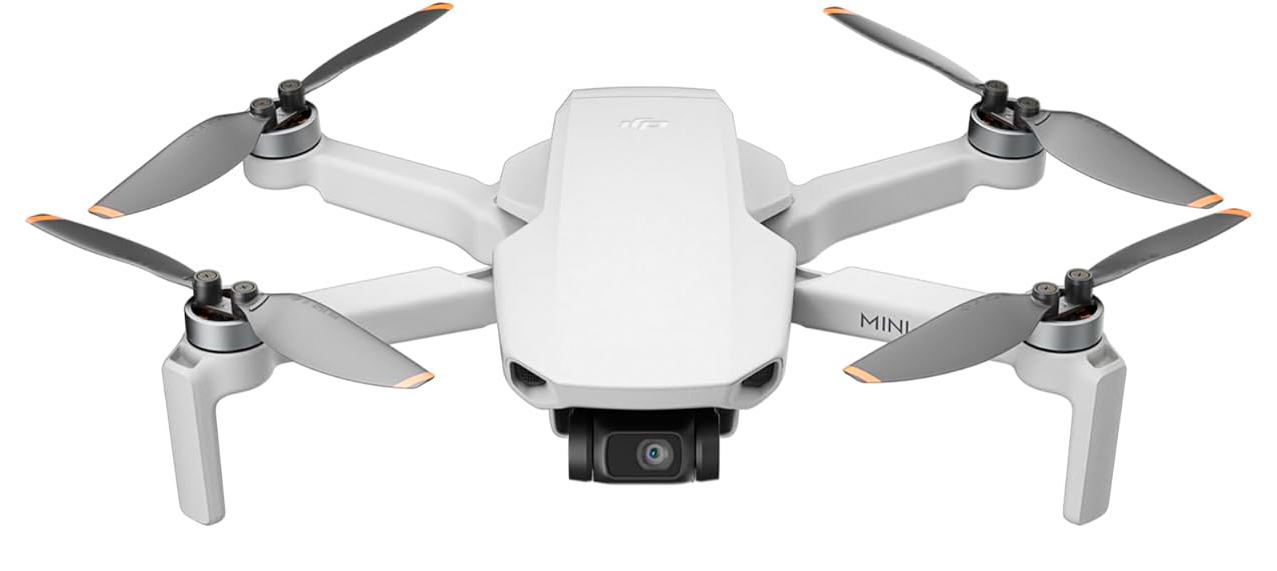
DJI's entry-level Mini 4K delivers up to 4K 30 FPS video and impressive image quality in a sub-250 g model that's the perfect starting point for beginners.
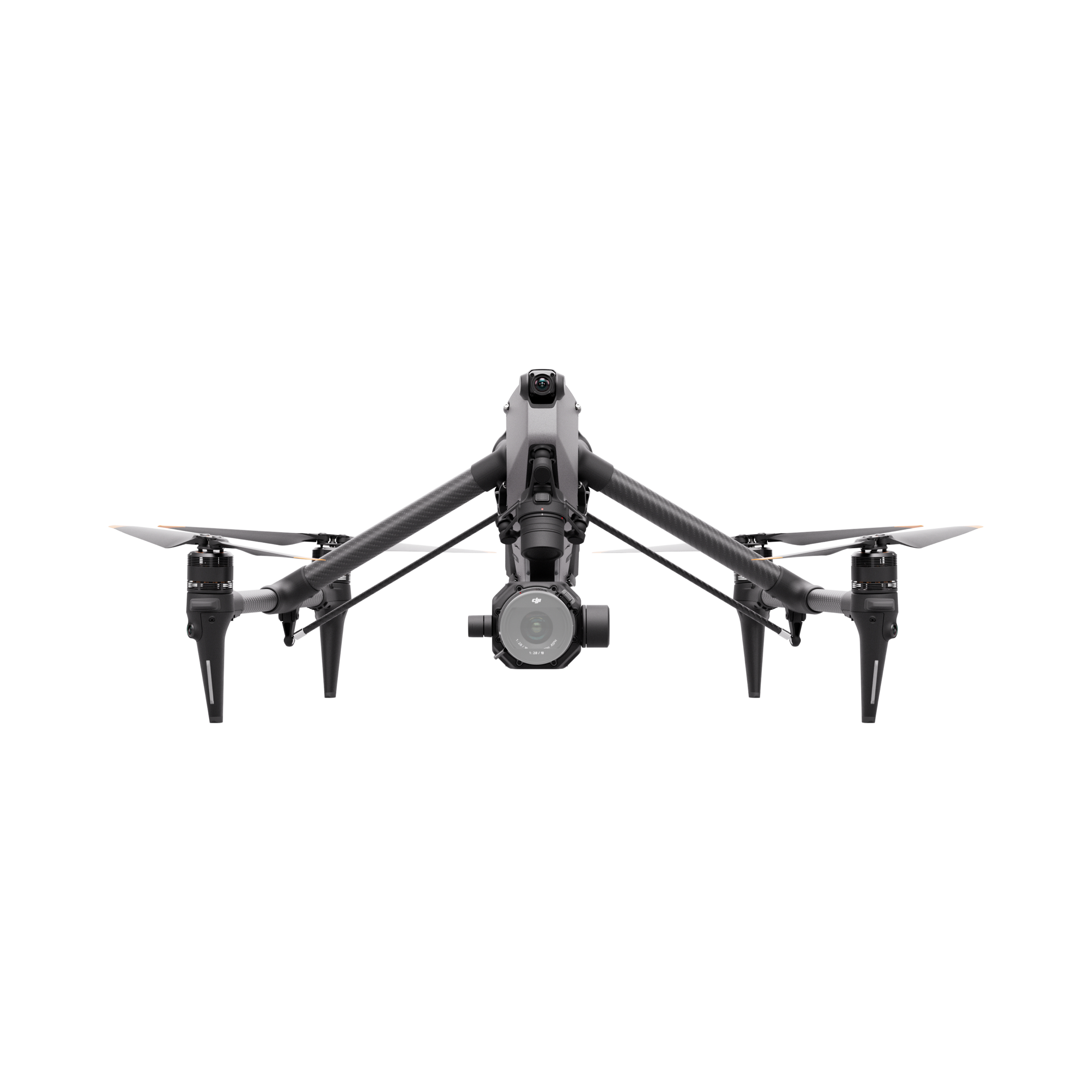
With a full-frame camera offering interchangeable lenses, the DJI Inspire 3 is aimed at professional use cases such as Hollywood movies, television and precision surveying.
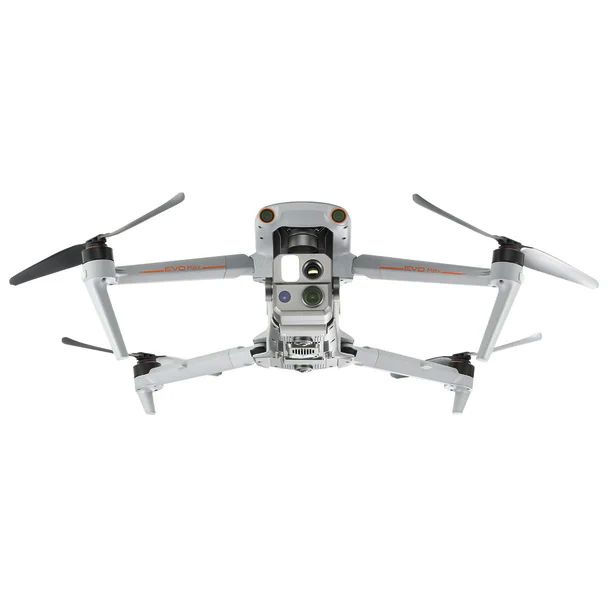
The Autel EVO Max 4T is a feature-packed enterprise drone aimed at use by law enforcement, search & rescue and for mapping/surveying.
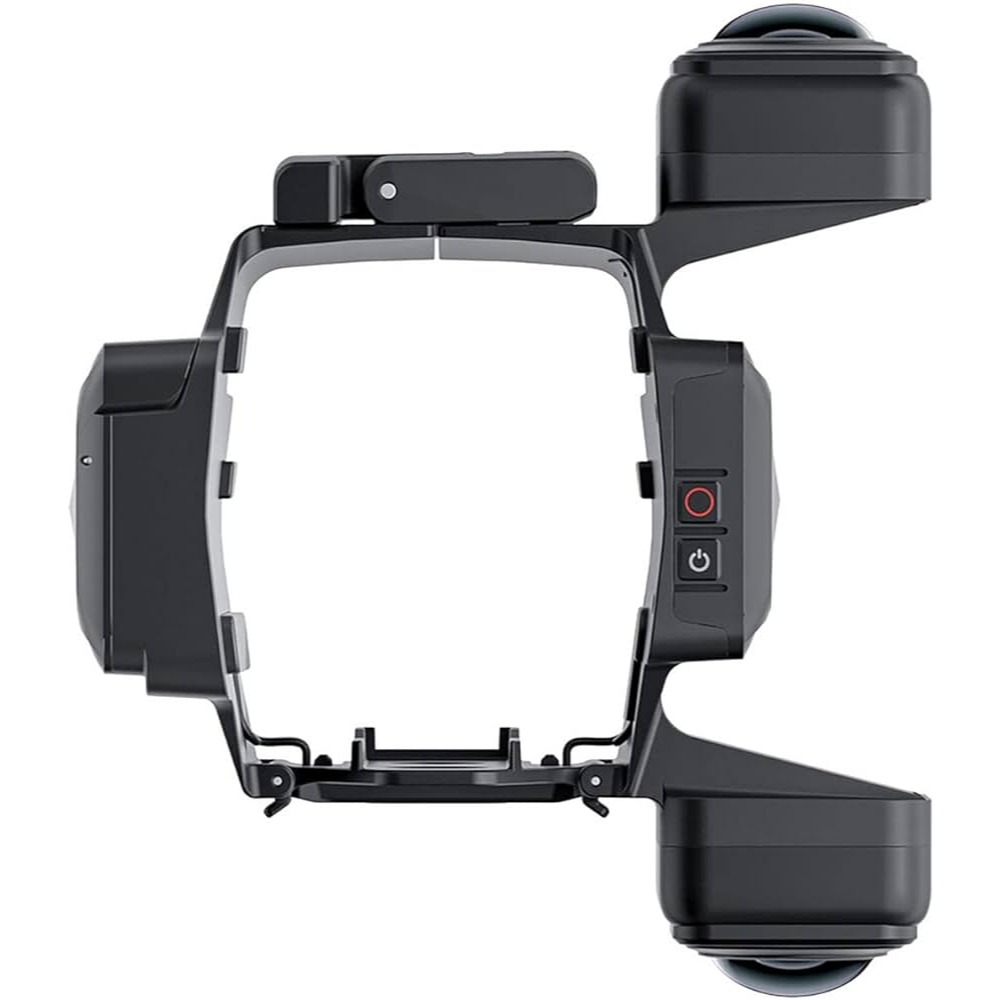
If you'd like to be able to create FPV-style videos with a DJI Mavic Air2/2S, the Insta260 Sphere is a 360° camera that will allow you to do exactly that.
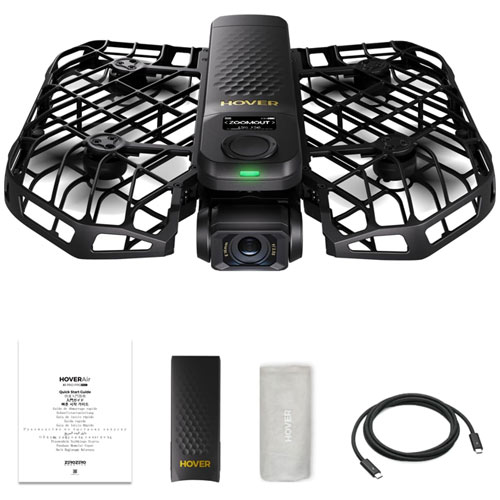
If you're looking for a drone to capture footage for vlogging and personal use, the HoverAir X1 PROMAX's 8K camera and subject tracking make it a top choice.
Best camera drones we recommend in 2026
Why you can trust Space.com
Best camera drone overall
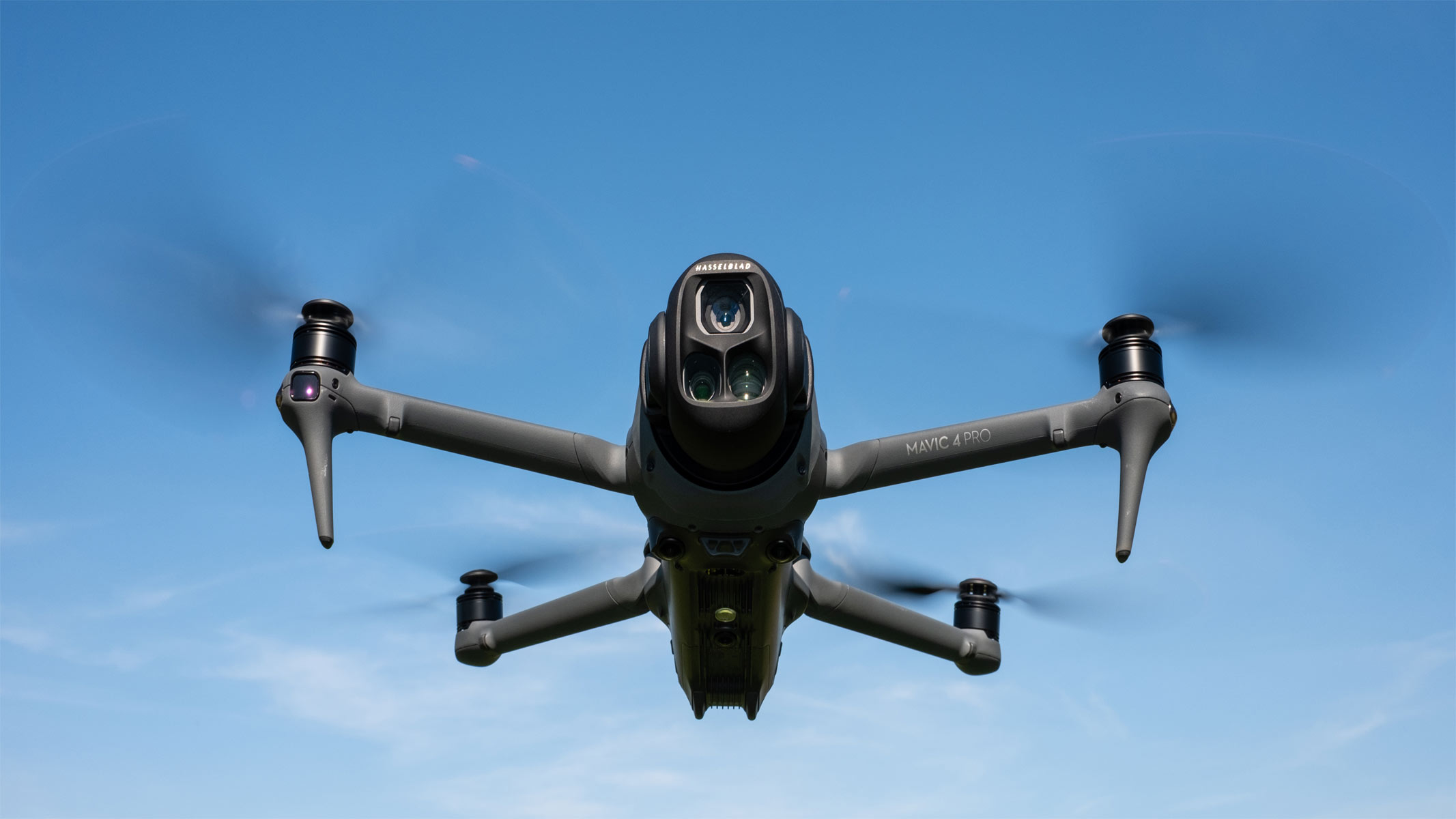
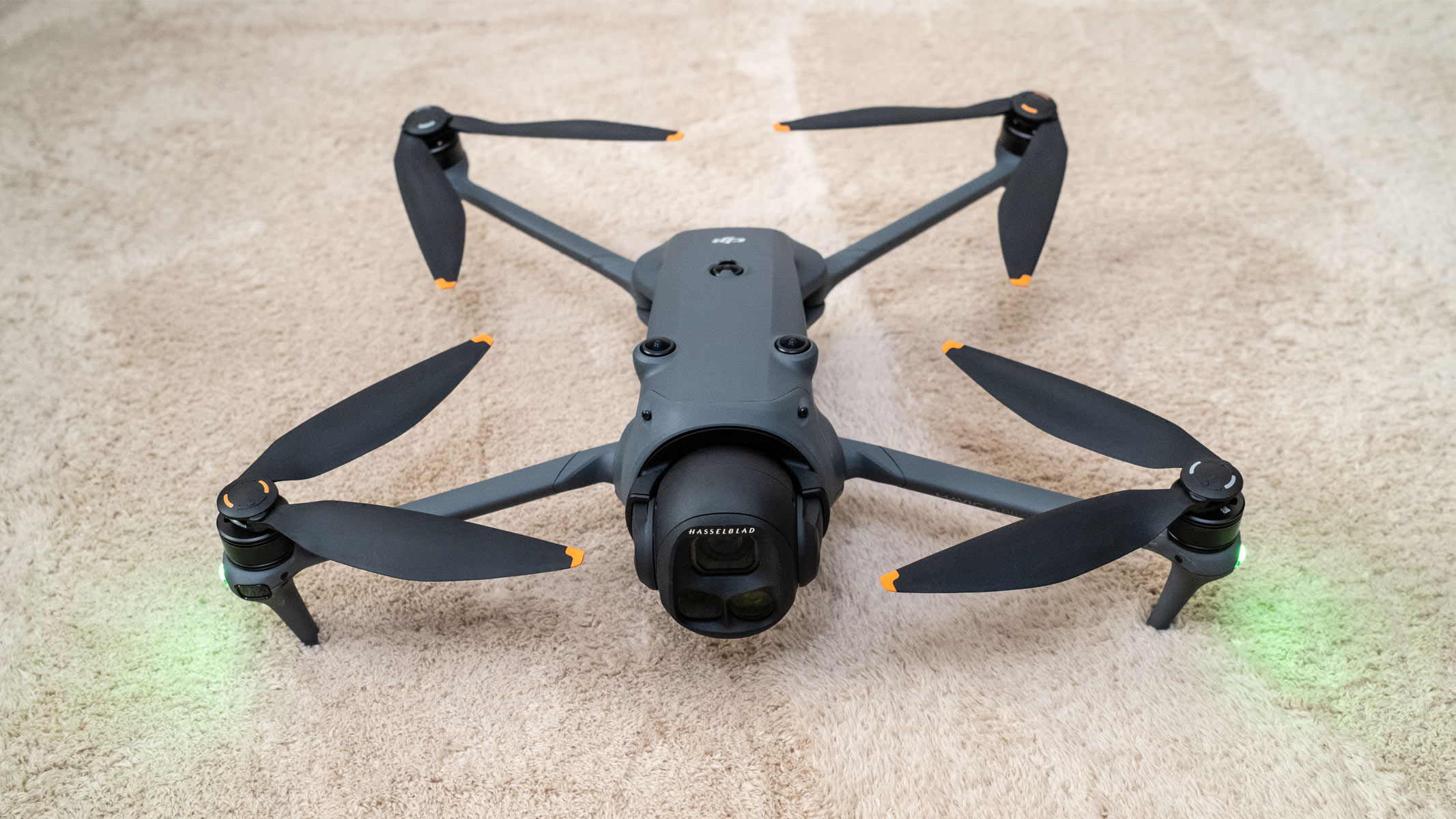
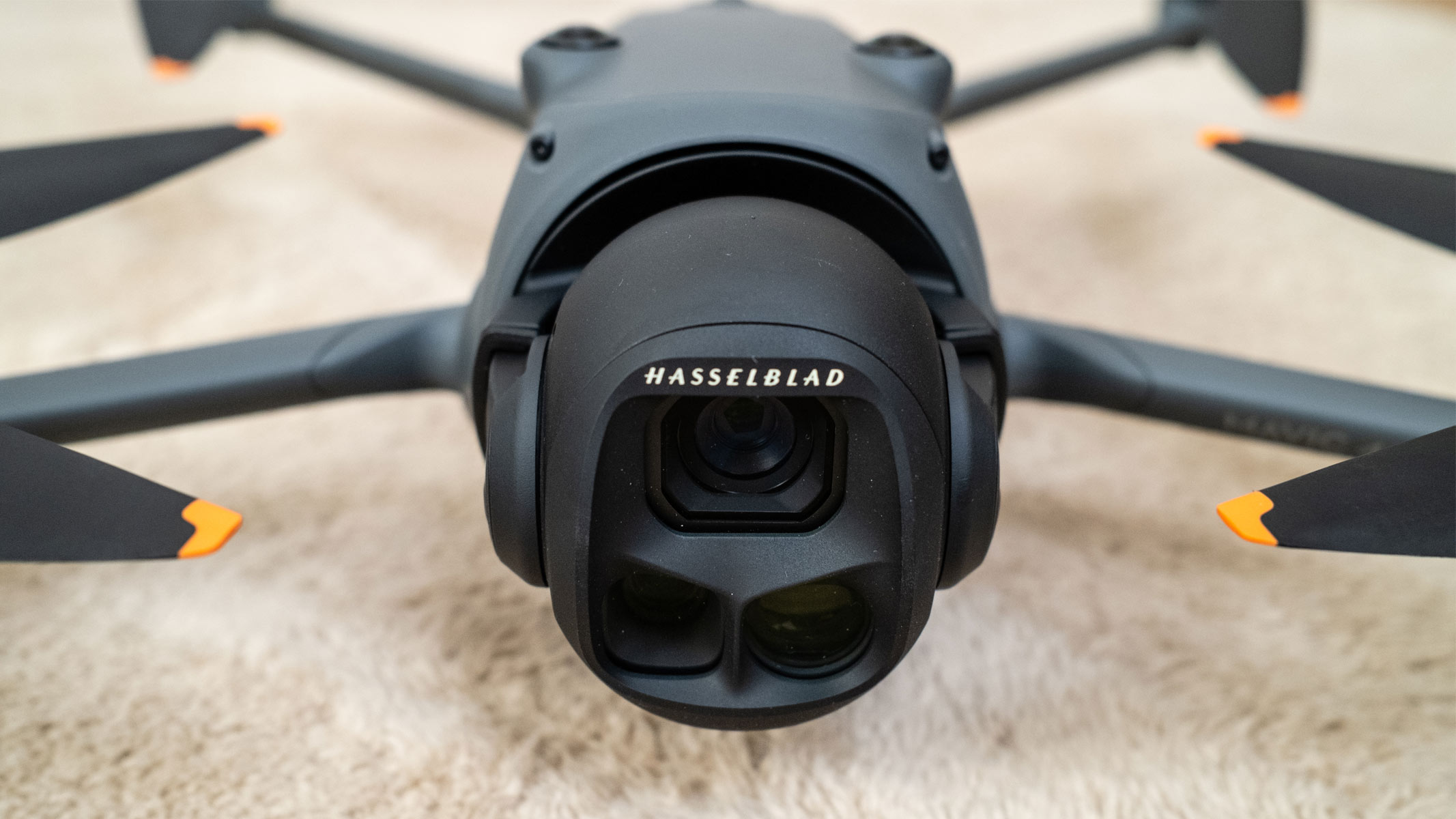
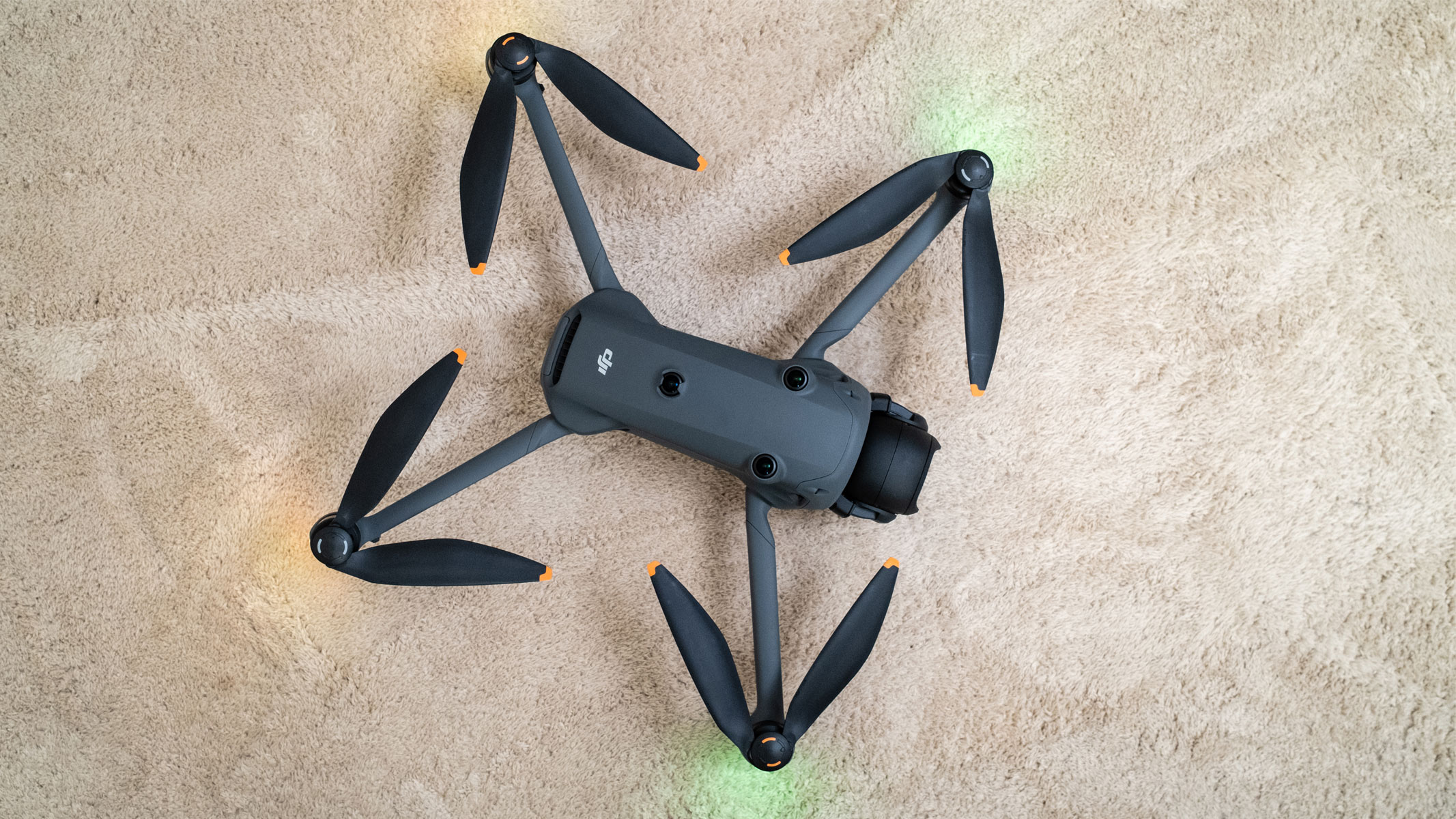
Specifications
Reasons to buy
Reasons to avoid
There's now a new number one camera drone on the market, and it's the DJI Mavic 4 Pro. In our DJI Mavic 4 Pro review, we found it has extraordinary camera capabilities as well as very useful features and modes. We sing the Mavic 3 Pro's praises below, but this is an upgrade in just about every way there is.
Focusing on the camera, it has three and the complete camera rotation will let you capture footage from all angles, whether you're shooting stills or video. The main camera features a 28mm equivalent focal length and an adjustable f/2.0-f/11 aperture. It can take stills with 100MP resolution and 6k video up to 30FPS. The two other cameras are a 70mm equivalent with a 48MP/12MP 1/1.3-inch sensor and the 168mm equivalent camera uses a 50MP/12.5MP 1/1.5 in. sensor. You will be able to take video in 4K up to 100FPS and 4K up to 120FPS with the other two cameras.
It's design is pretty special too as although it weighs more than the Mavic 3 Pro and is slightly larger, it still folds away effectively which makes it easier to transport. It also features complete camera rotation, meaning you can capture footage from all angles and creative visual effects. It comes with a DJI RC 2 smart controller that features a 2000-nit 7-inch high-bright Mini-LED display and flight time is 51 minutes, although it's more like 37 when capturing footage.
The Mavic 4 Pro has larger propellers which give a noticable upturn in speed, power and manoverability and it's packed full of usefull features too. The Return To Home feature no longer requires GPS but relies on route mapping and real-time positioning. It has a sport mode where it can achieve speeds of up to 60.4mph and a cine and normal mode. The Mavic 4 Pro also offers improved obstacle avoidance, subject tracking, precision hovering, automated flight patterns, panorama, timelapse and more.
Overall, this isn't just the best camera drone available, it's also the best drone you can get. We've already mentioned it's an upgrade in every way on the Mavic 3 Pro but it's also a cut above everything else on the market. It is easy enough to fly that beginners can get to grips with it but there's no doubt that this drone offers professional-standard specs and performance.
- Read our full DJI Mavic 4 Pro review
Design | New controller, complete camera rotation and excellent folding design |
Functionality | Improved features including Return To Home, subject tracking and more |
Performance | 100MP stills, 6K video, three cameras 51-minute battery life and high top speeds |
Best last gen camera drone
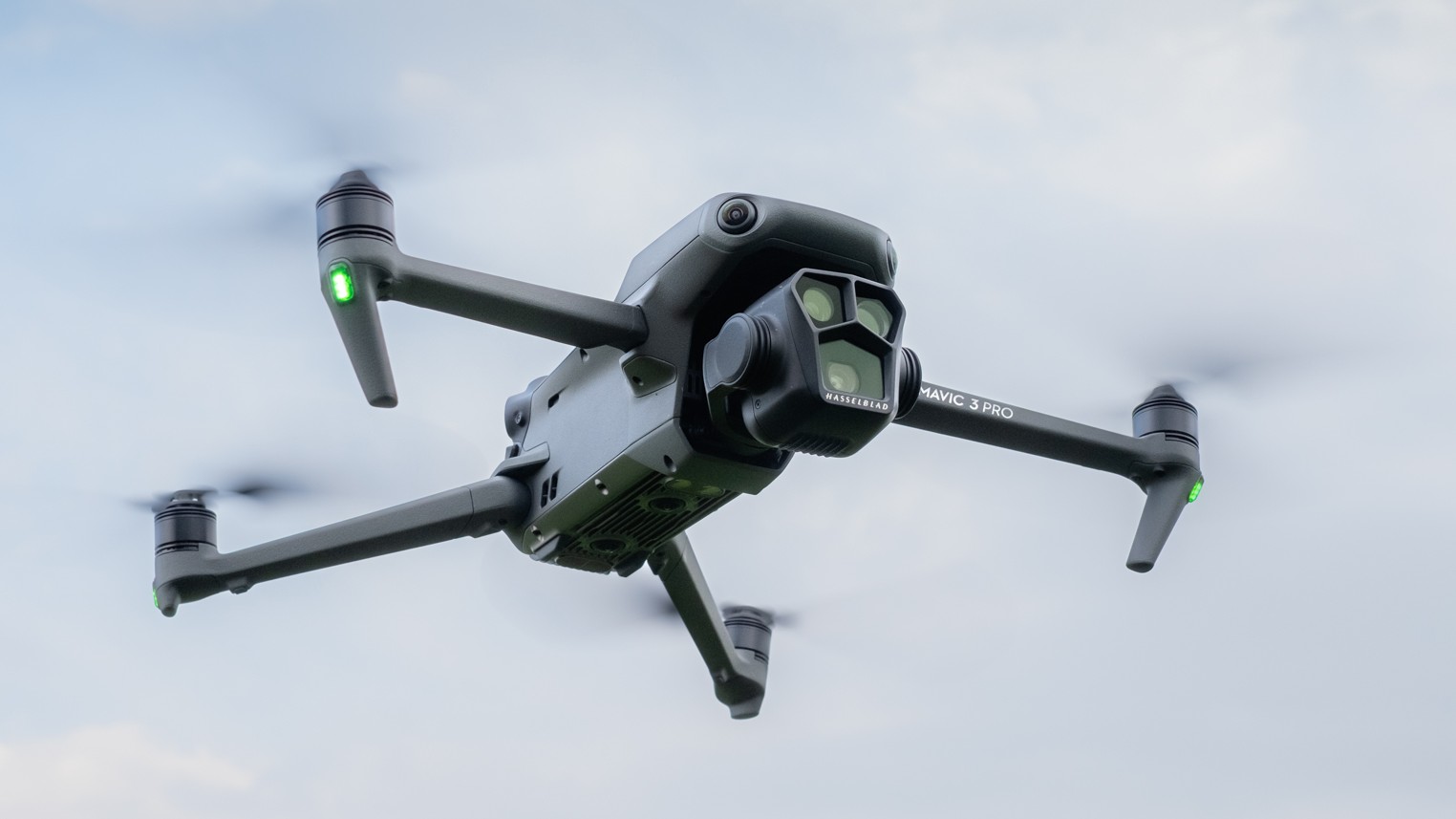
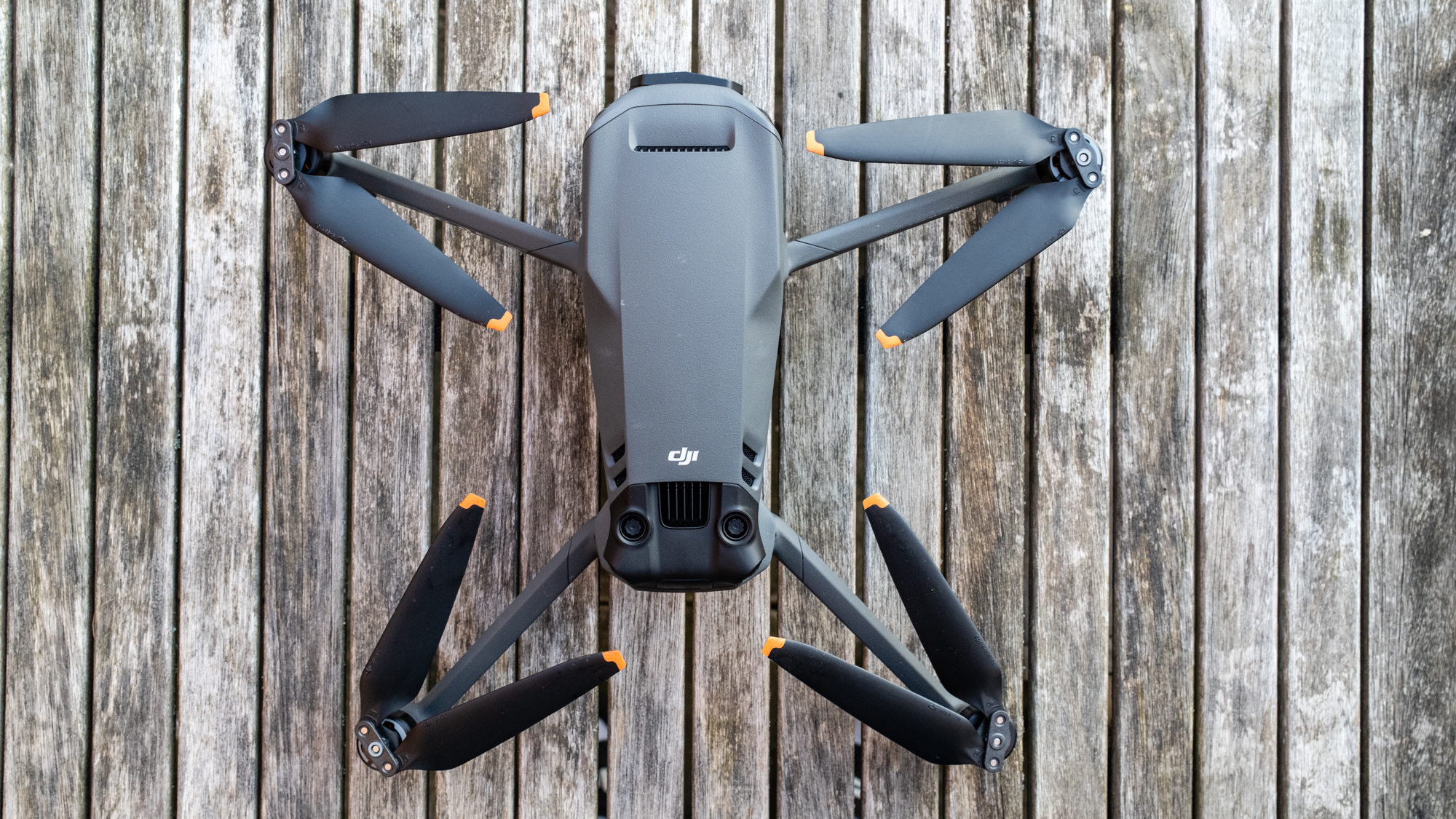
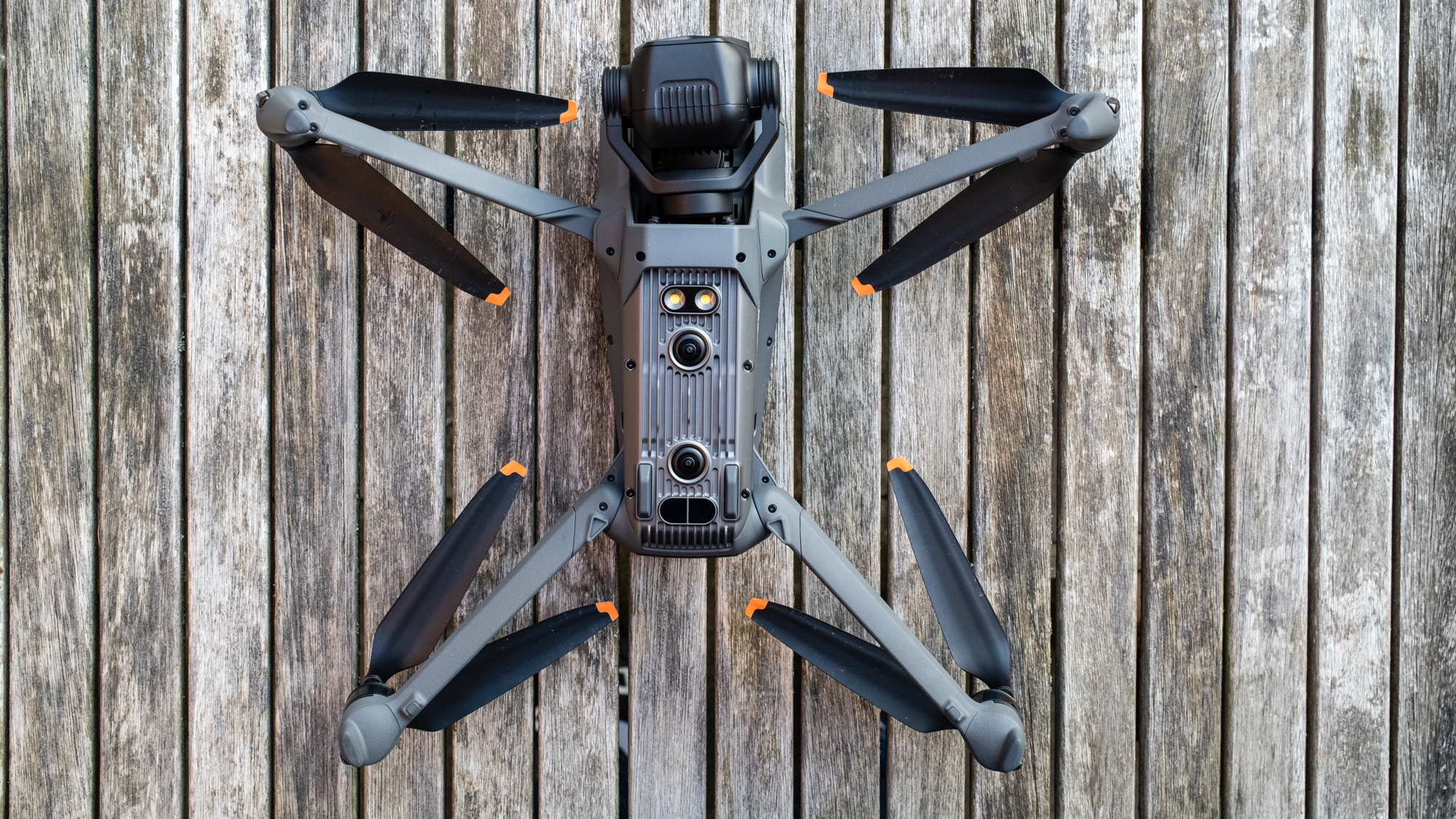
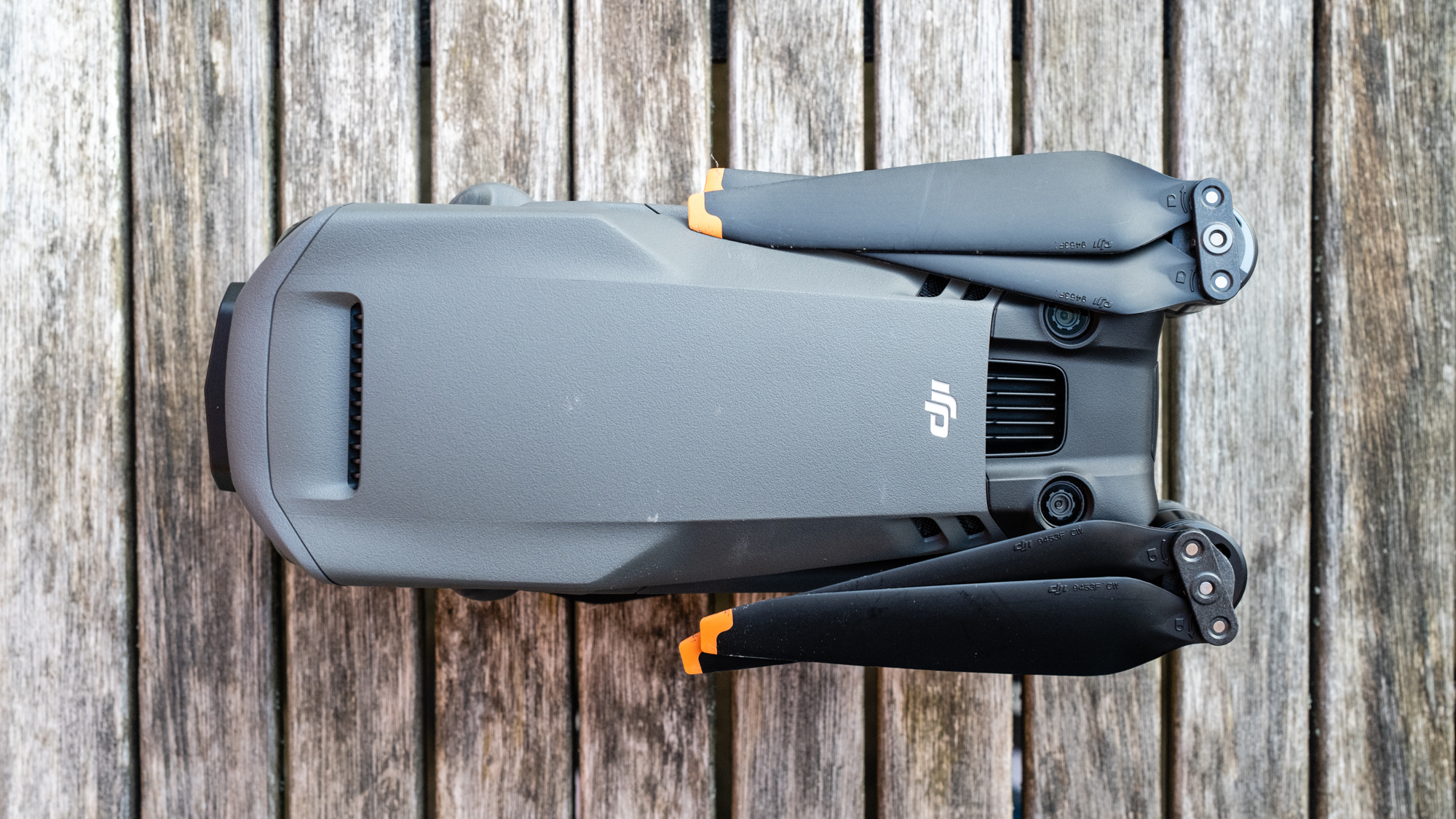
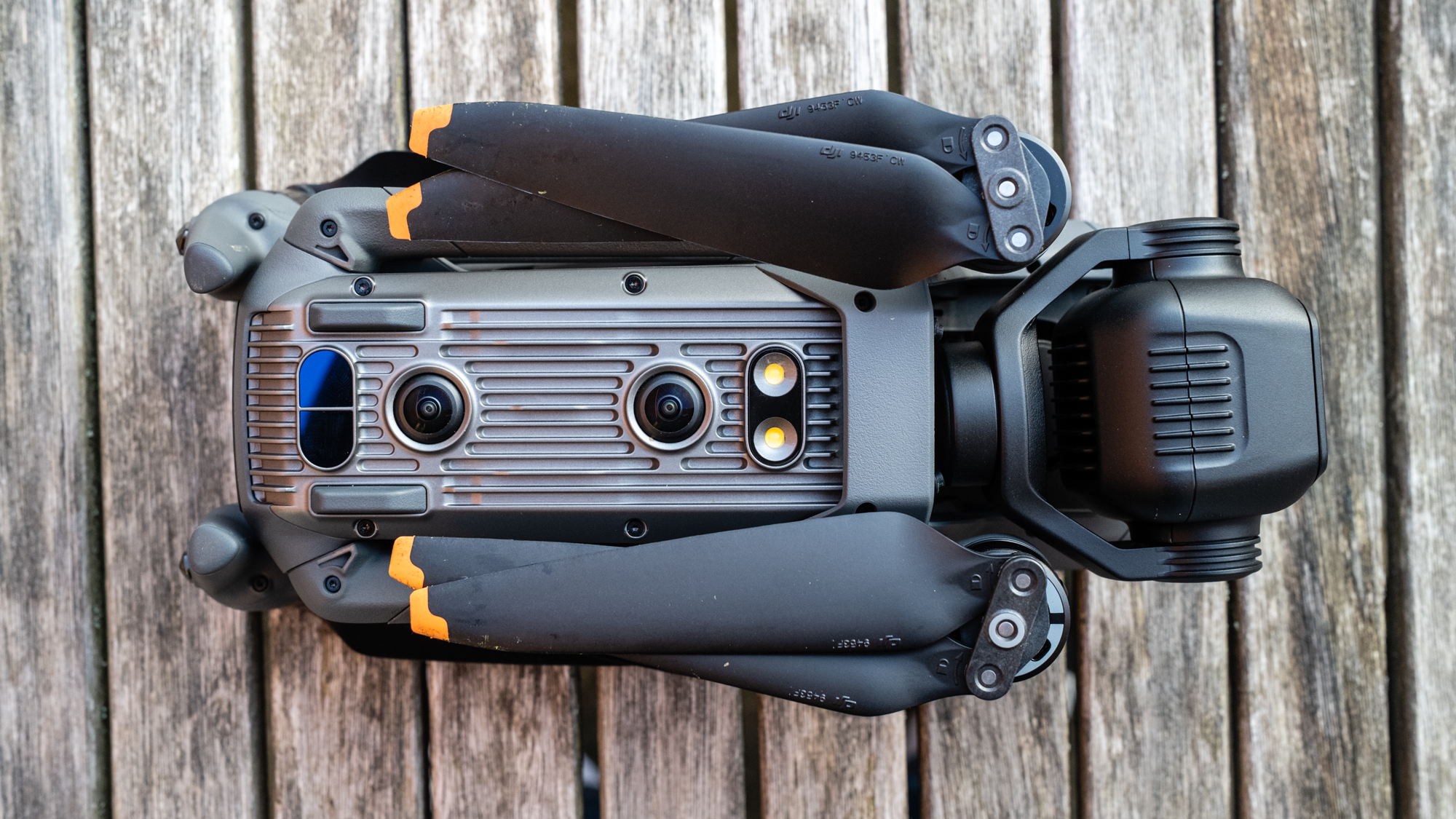
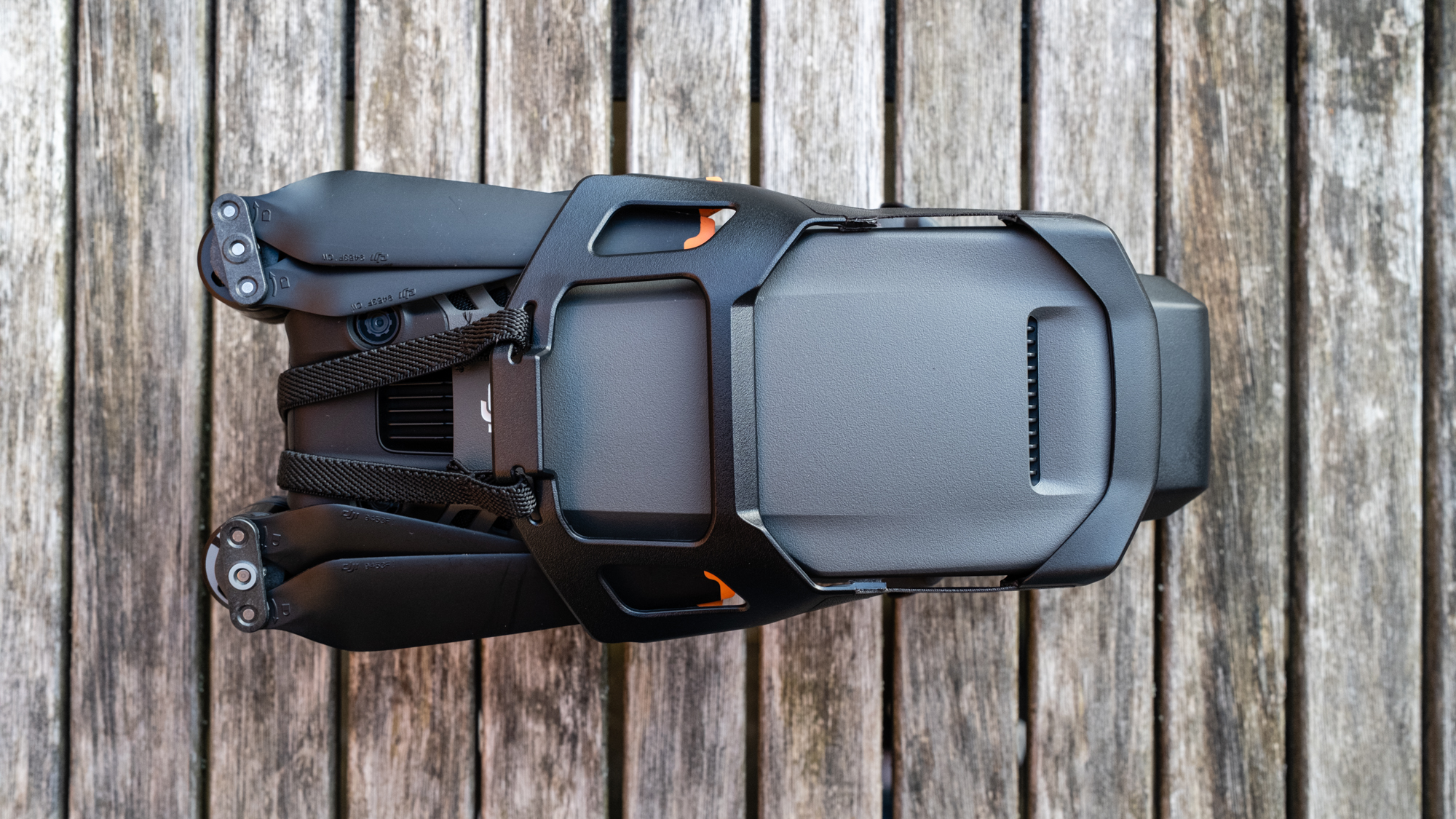
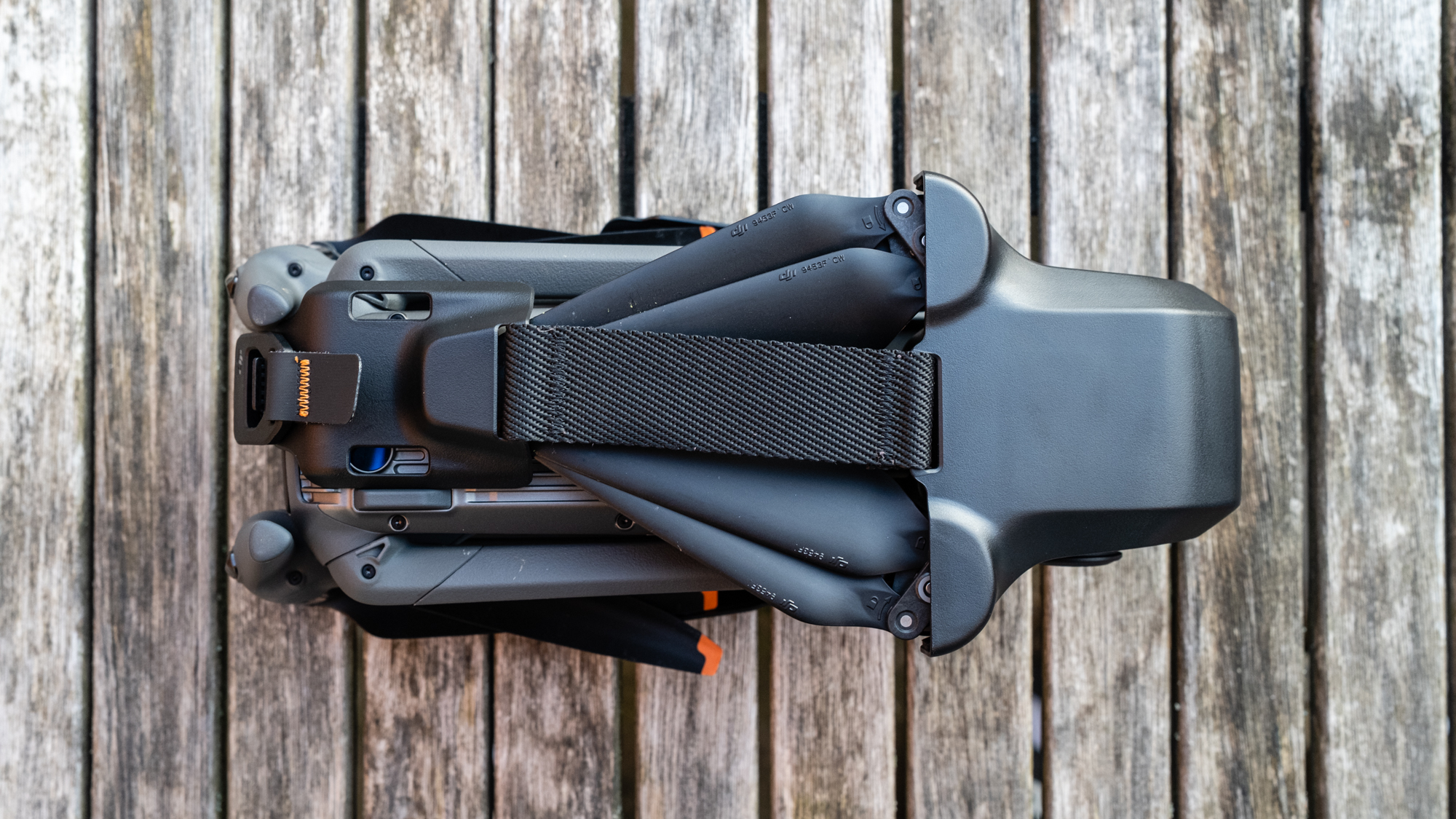
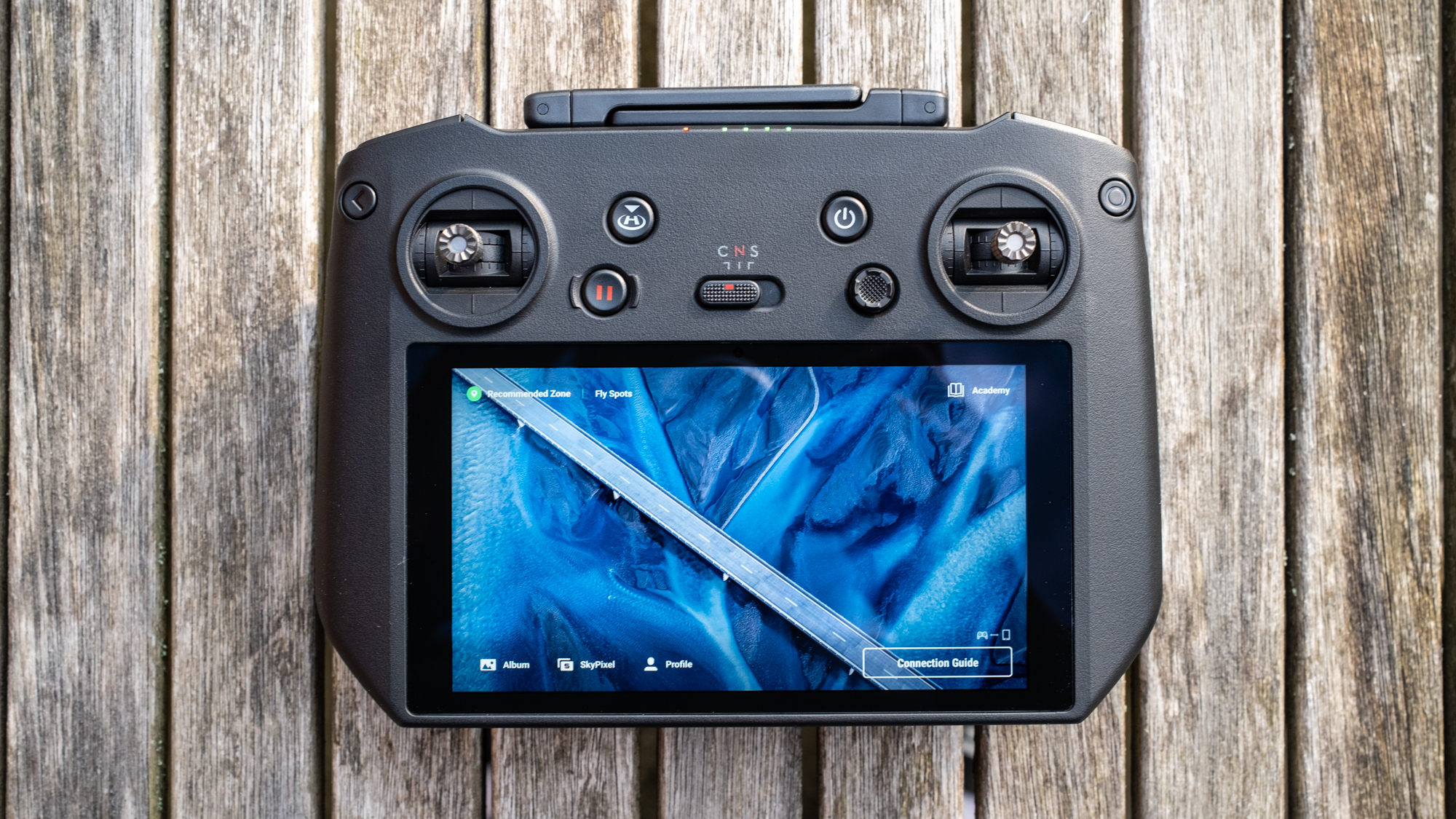
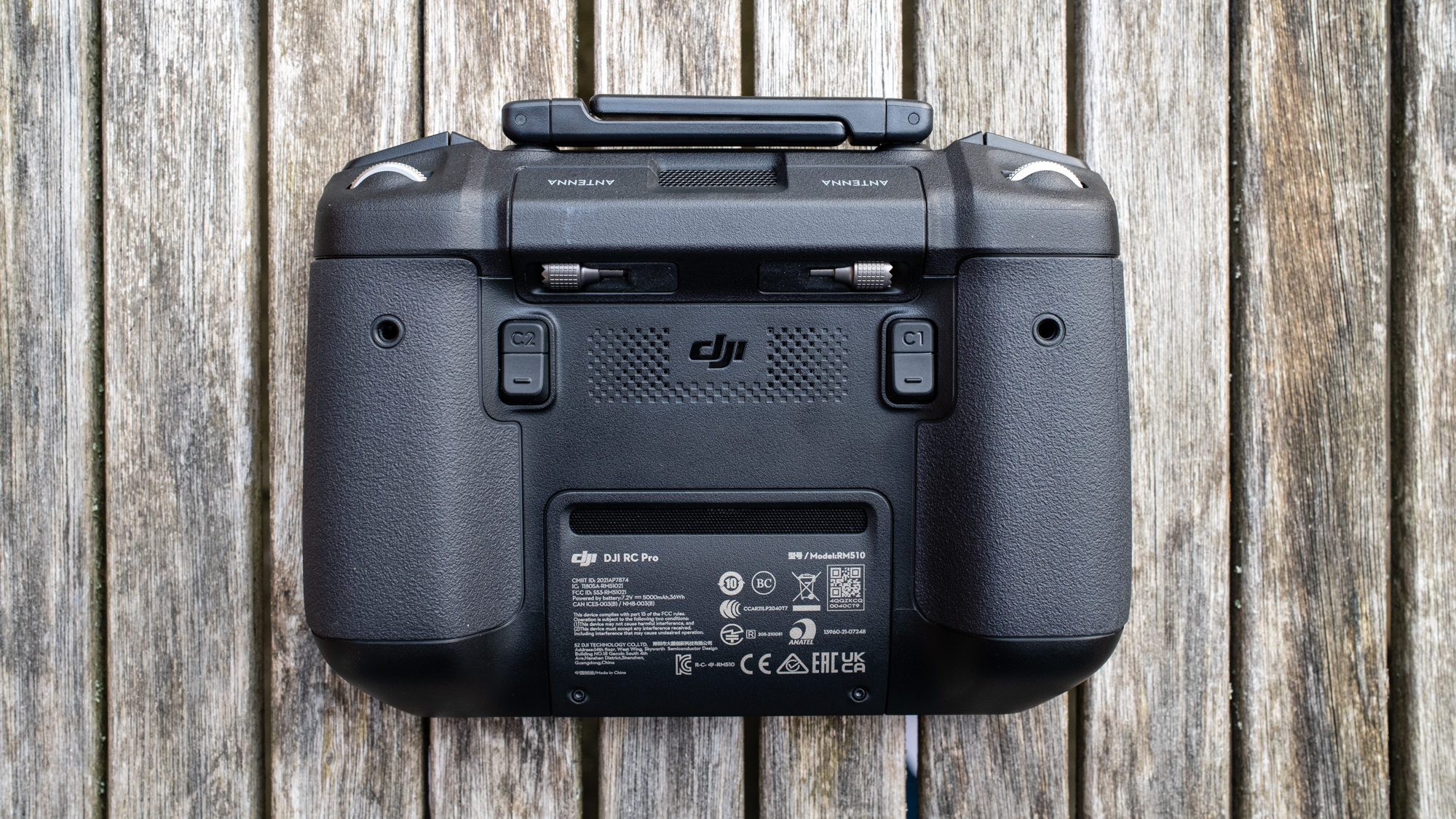
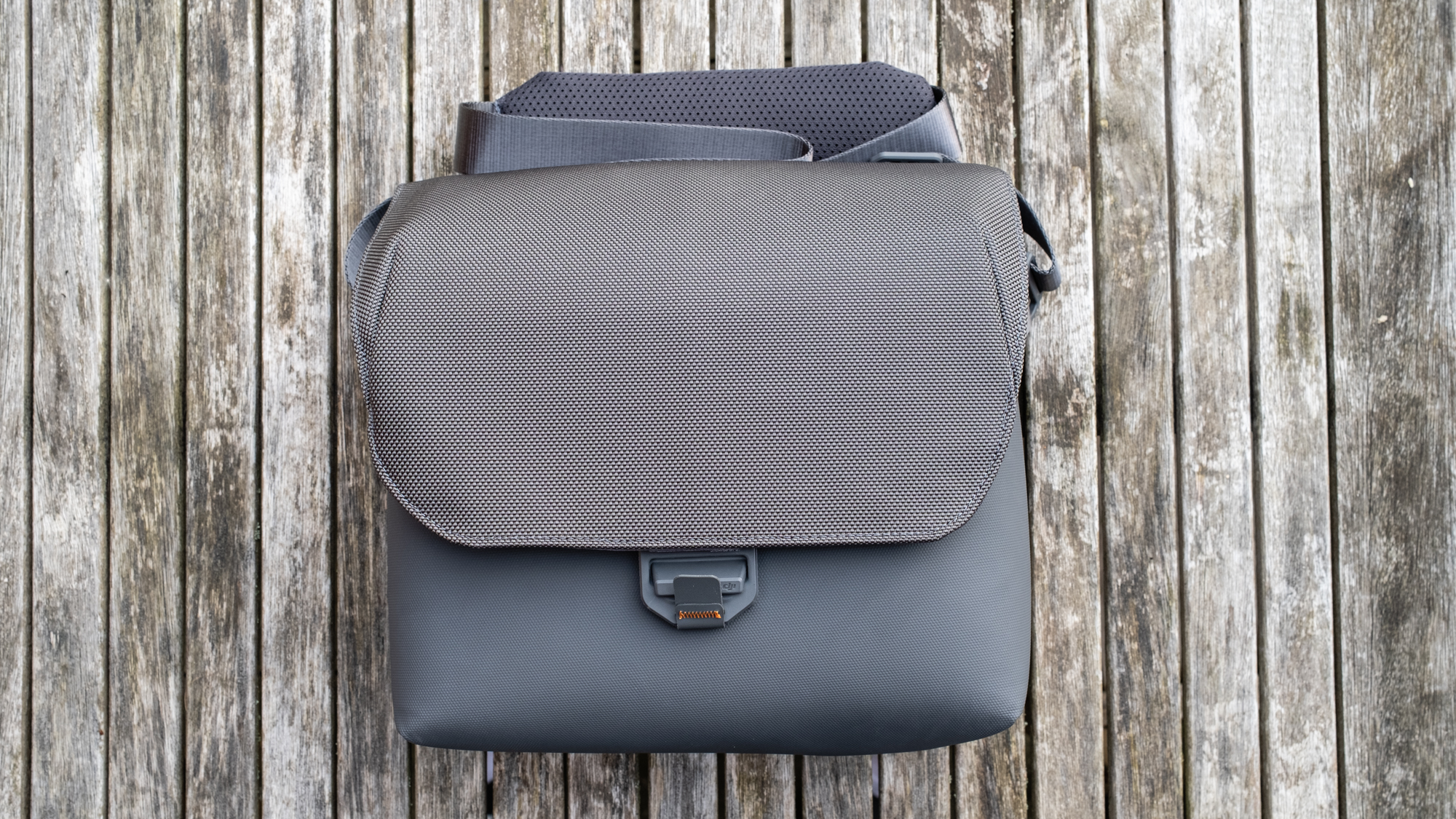
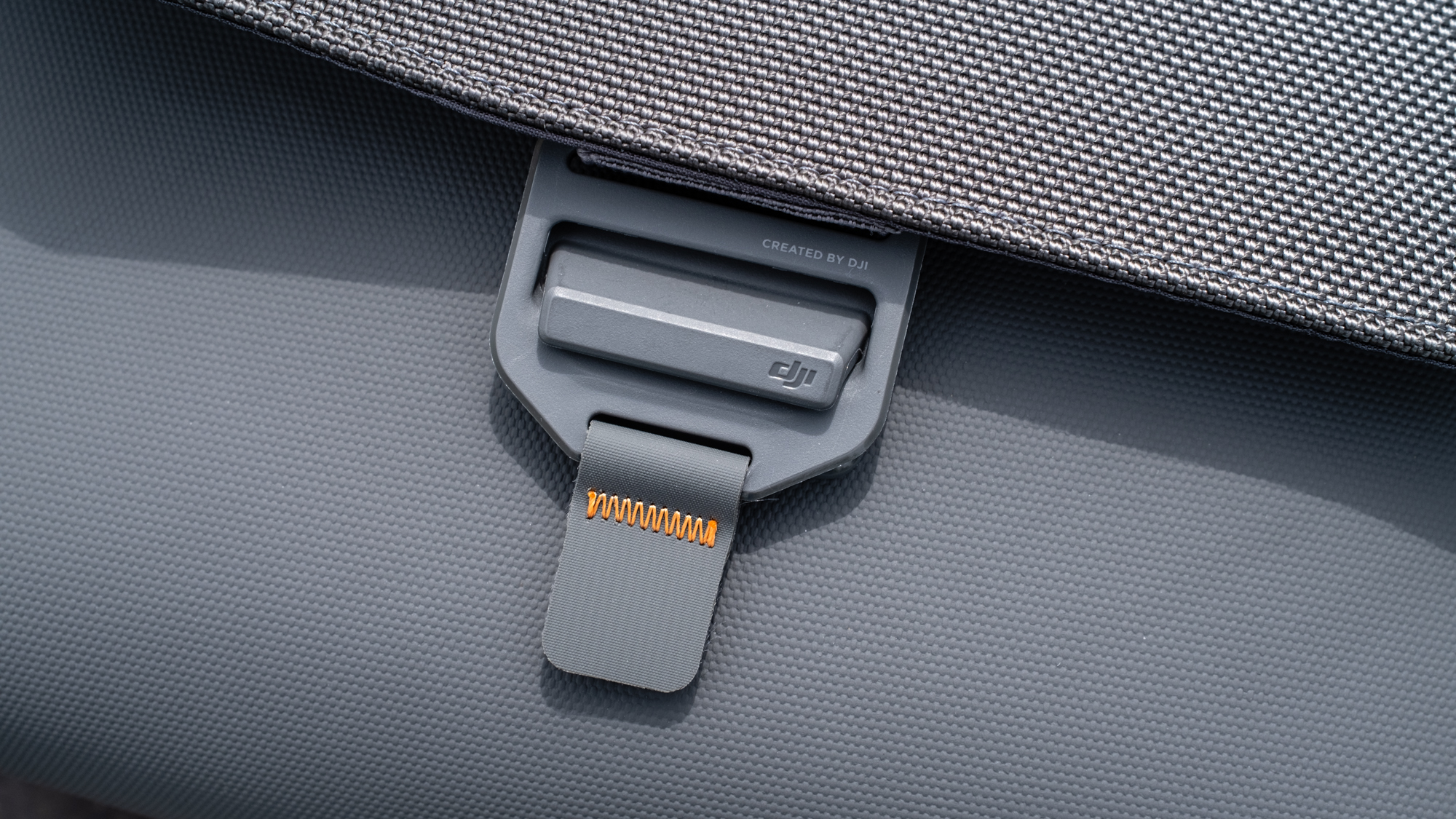
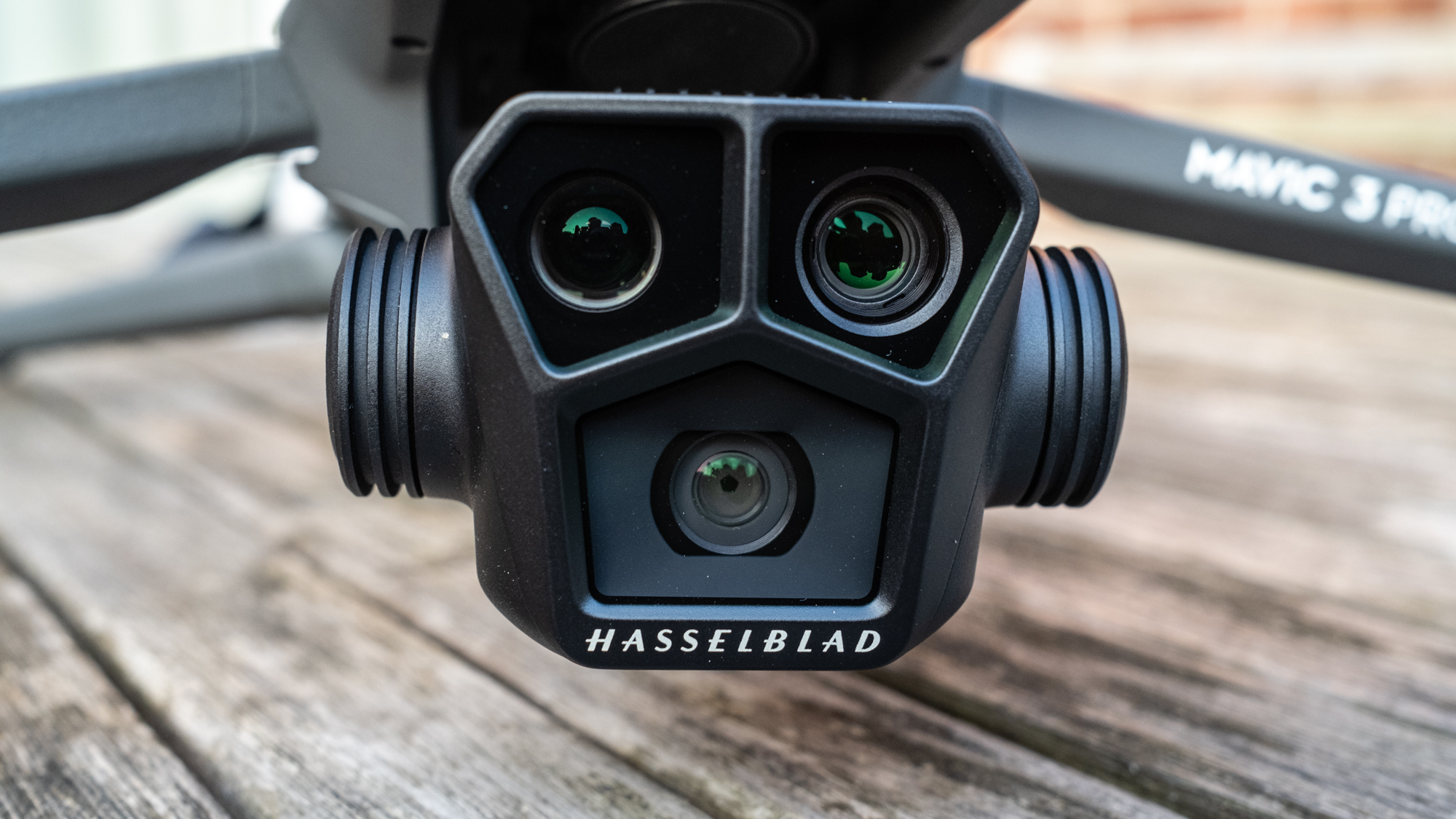
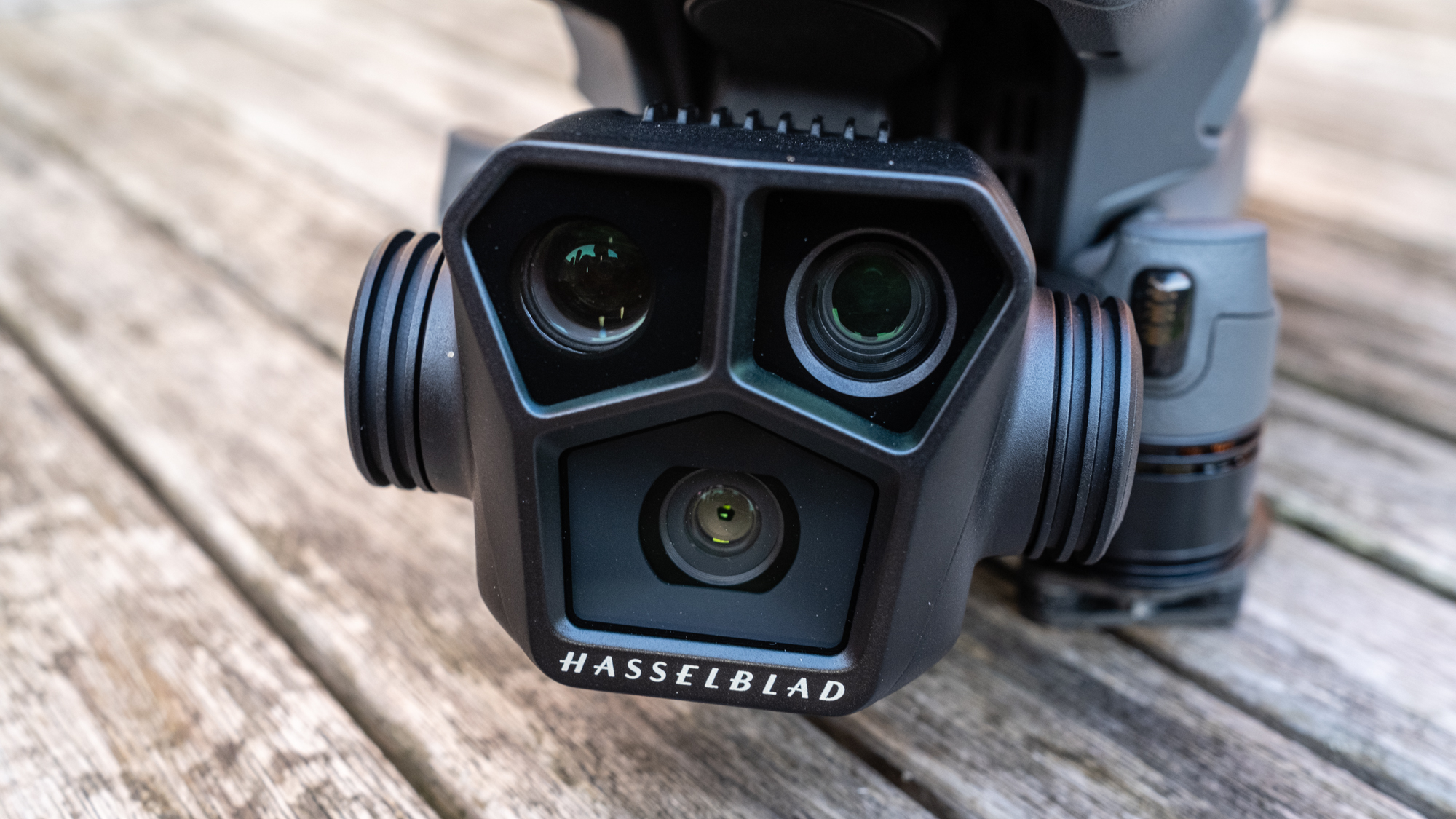
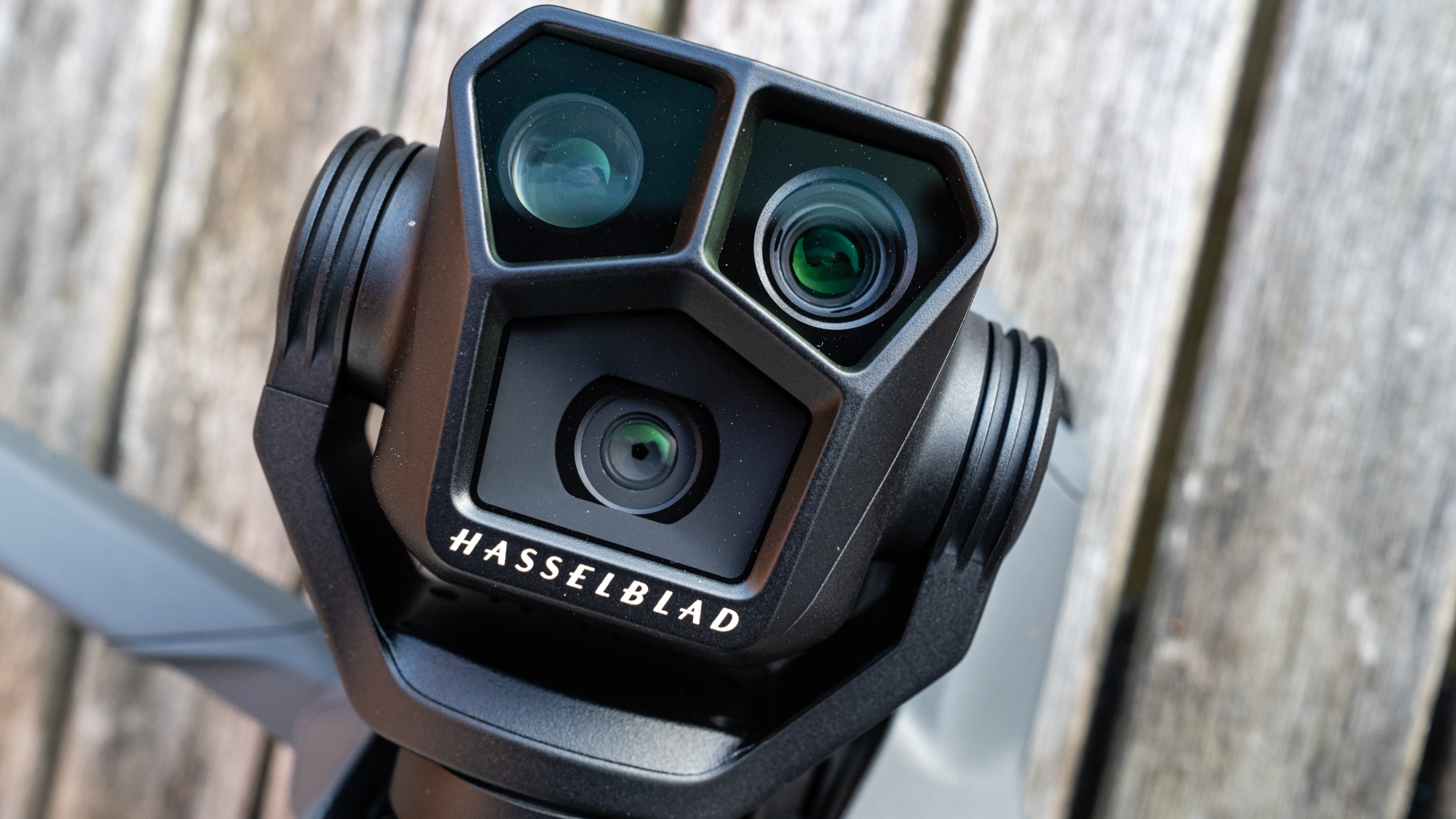
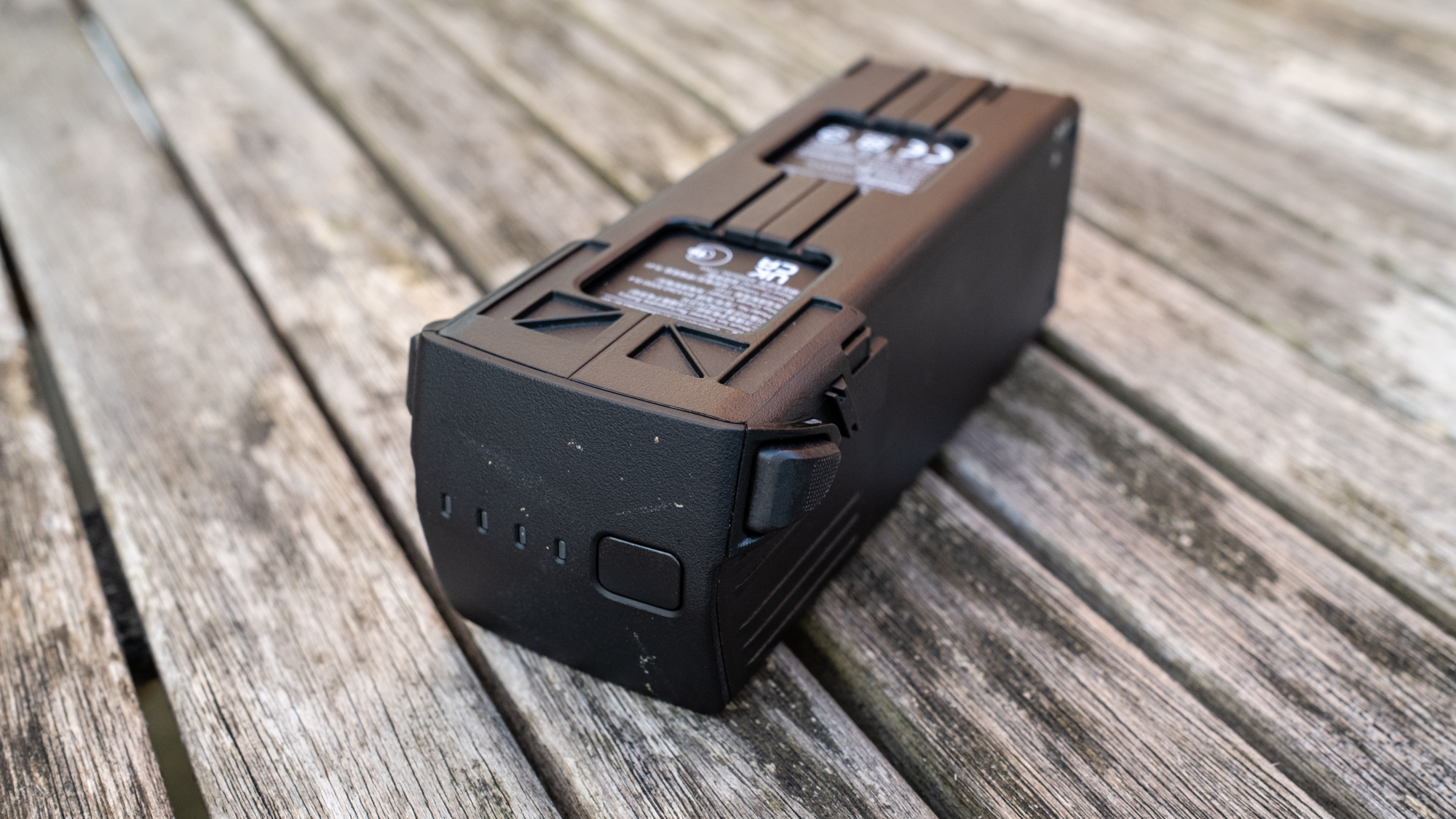
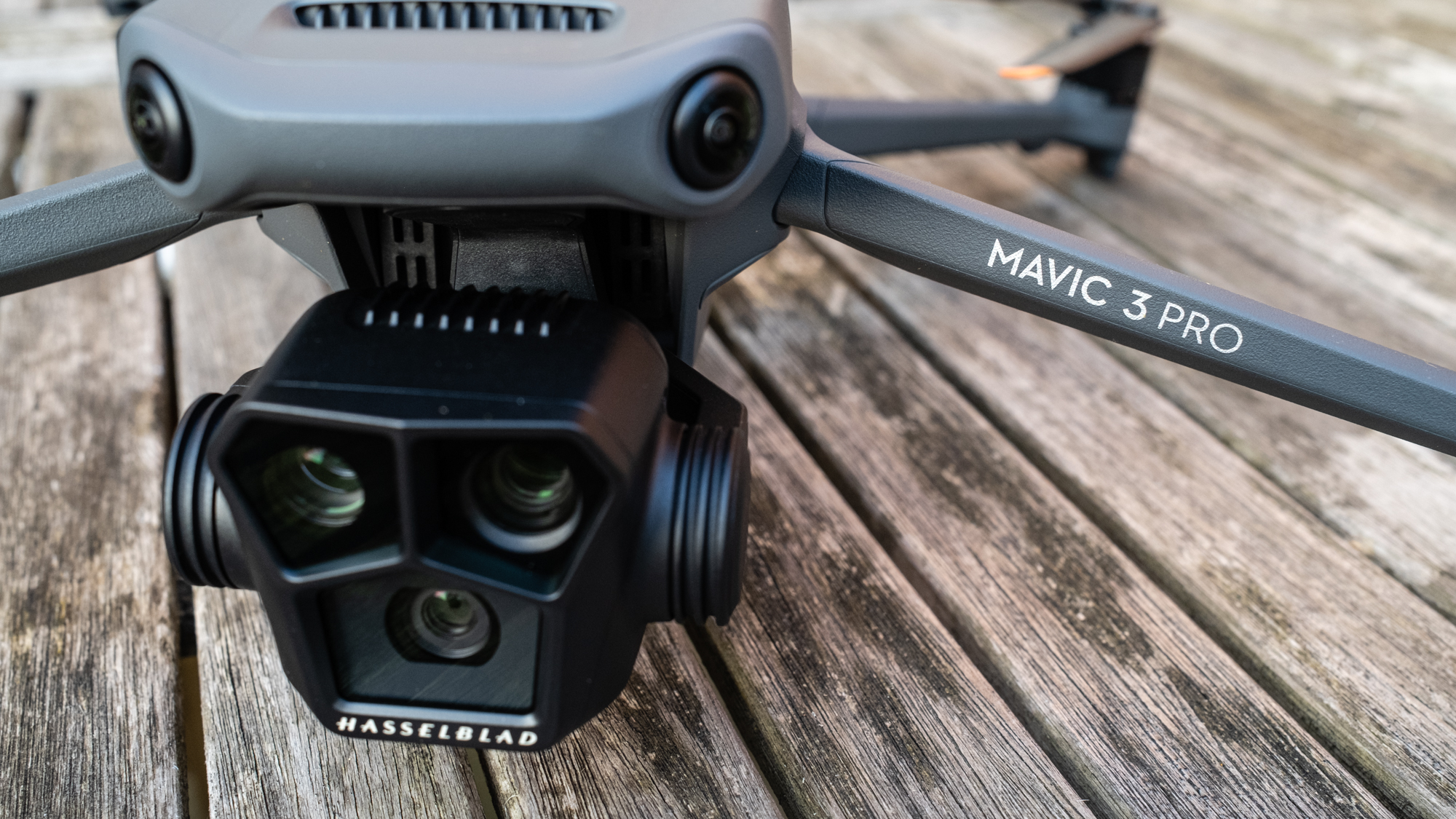
Specifications
Reasons to buy
Reasons to avoid
✅ You're looking for versatility: The three cameras on offer on this drone give you the ability to shoot from different perspectives and different focal lengths at the same time, which can help produce more creative content.
✅ You want to shoot high-quality slow-mo: With this drone, you don't have to choose between quality and frame rates. You can shoot 5.1K up to 75fps, 4K up to 120fps and FHD up to 200fps.
❌ You're on a budget: With all the features on offer, this is quite an expensive drone and may be overkill for casual hobbyists.
🔎 DJI Mavic 3 Pro One of the best foldable drones on the market, this allows you to get stunning videos and offers great flexibility with three cameras that can film at the same time. The only real downside is the price, but we think beginners and pros would be pleased with this purchase. ★★★★★
Not all drones are made equally, and the DJI Mavic 3 Pro is one of the best drones available and at the time of writing, one of the best consumer models ever made. It's also the world's first consumer drone to feature three individual cameras on the gimbal, opening up a range of creative possibilities as we explored in our DJI Mavic 3 Pro review.
The Mavic 3 Pro features the signature Mavic folding design and looks almost identical to previous models. The only significant giveaway, apart from the name badge, is the larger gimbal that’s home to the three cameras with the two telephotos sitting above the wide-angle Four Thirds main camera.
The main camera is a remarkable 20MP 4/3 Hasselblad camera, featuring an adjustable aperture ranging from f/2.8 to f/11, and up to 12.8 stops of dynamic range. It has an equivalent focal length of 24mm. Additionally, there's a 48MP 1/1.3-inch 70mm medium telephoto camera and a 12MP 1/2-inch 166mm telephoto camera.
The three cameras provide a huge amount of versatility, with the ability to capture distant subjects with ease thanks to the telephoto option. This is perfect for situations where you can't fly close to a subject for safety, regulatory or other reasons. All three cameras support RAW and JPEG formats, delivering outstanding image quality.
In addition to its powerful camera setup, the Mavic 3 Pro comes with a range of advanced features designed to make your flying experience smooth and hassle-free. It offers two smart controller options, each with a 5.5-inch touchscreen, eliminating the need to connect your phone. Both controllers are highly responsive, ensuring a seamless flying experience without lag.
You get three different flight modes and 43 km/27mph wind resistance, as well as an array of safety features such as AirSense ADS-B to detect nearby aircraft and an Omnidirectional Obstacle Sensing system that uses multiple sensors to allow the drone to maneuver around obstacles independently. While this is an expensive drone that may be overkill for some people, we think it offers excellent value for money for those who can make use of its three cameras.
- Read our full DJI Mavic 3 Pro review
Attributes | Notes |
|---|---|
Design | Three cameras and two smart controllers. |
Functionality | Easy to fly, with obstacle sensing technology. |
Performance | Excellent image quality and videos up to 5.1K. |
Best dual camera drone
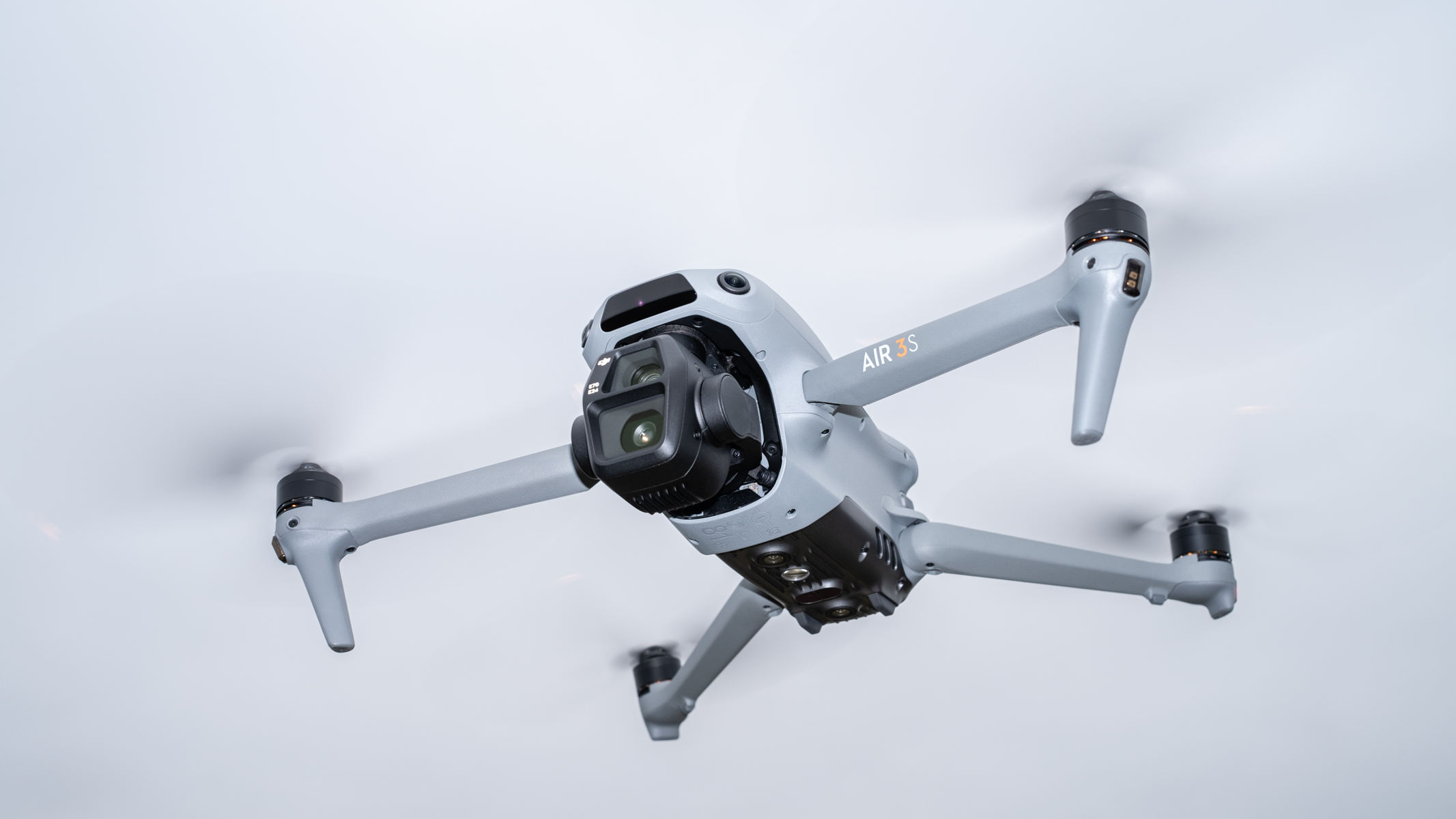
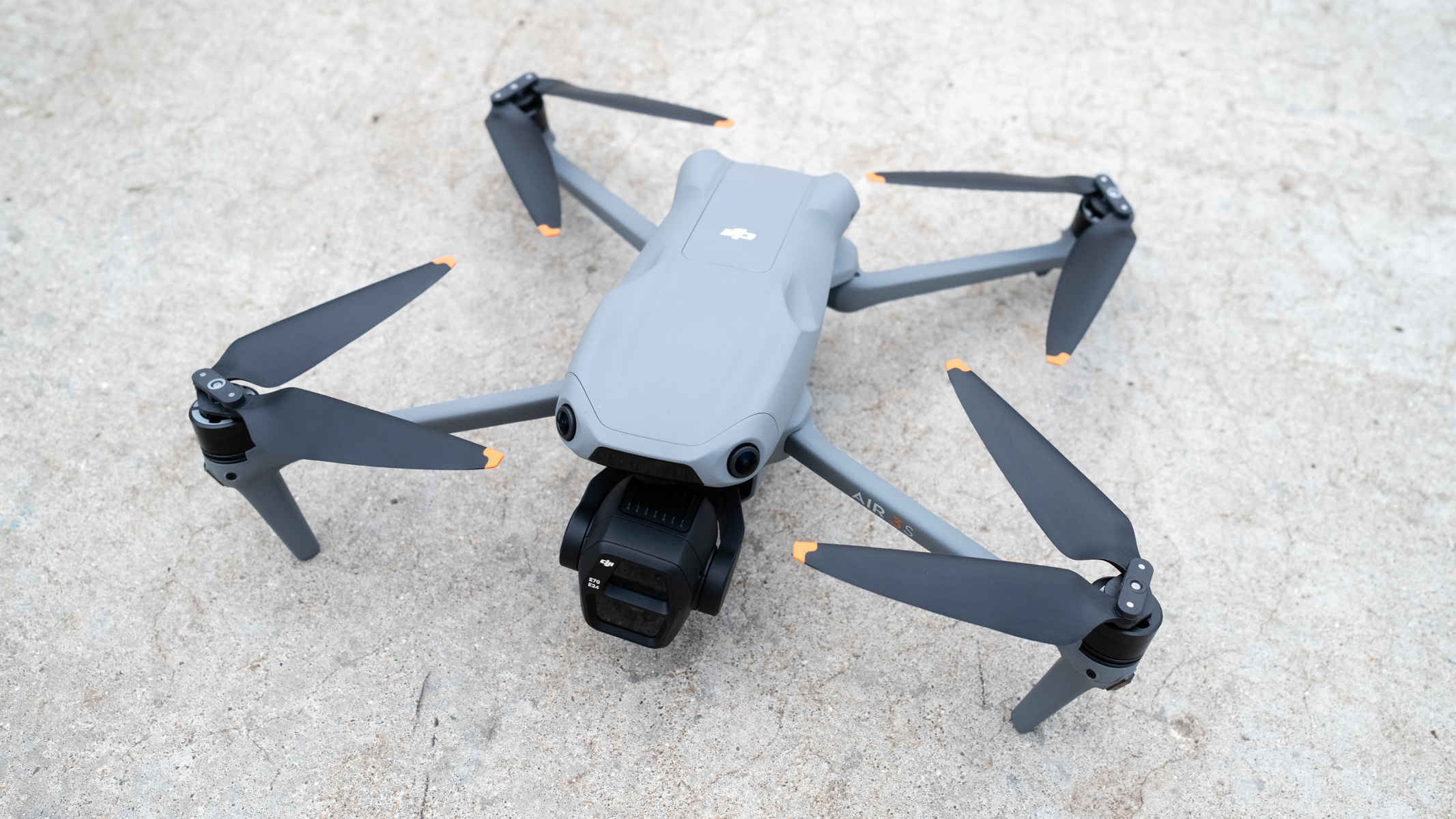
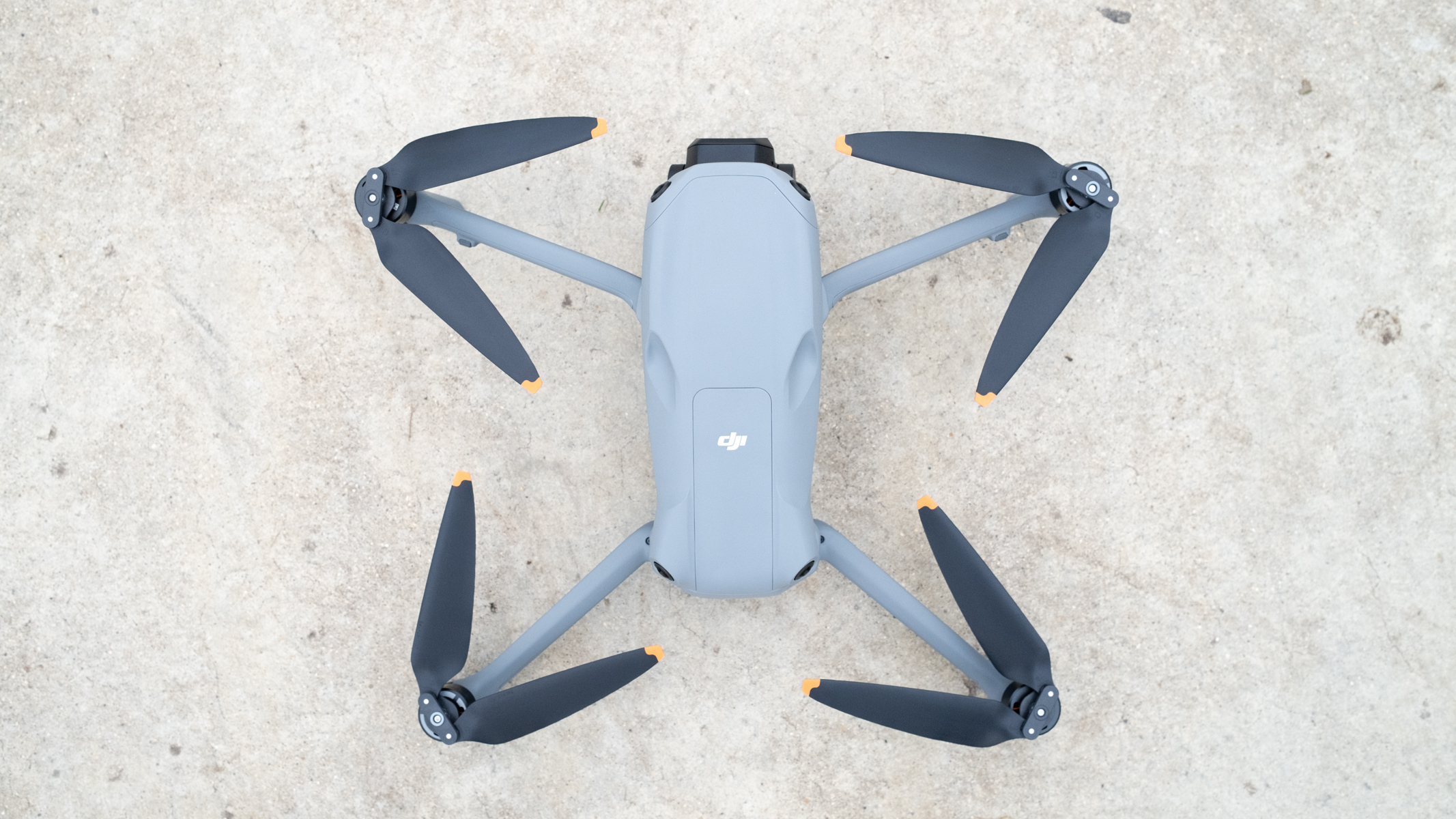
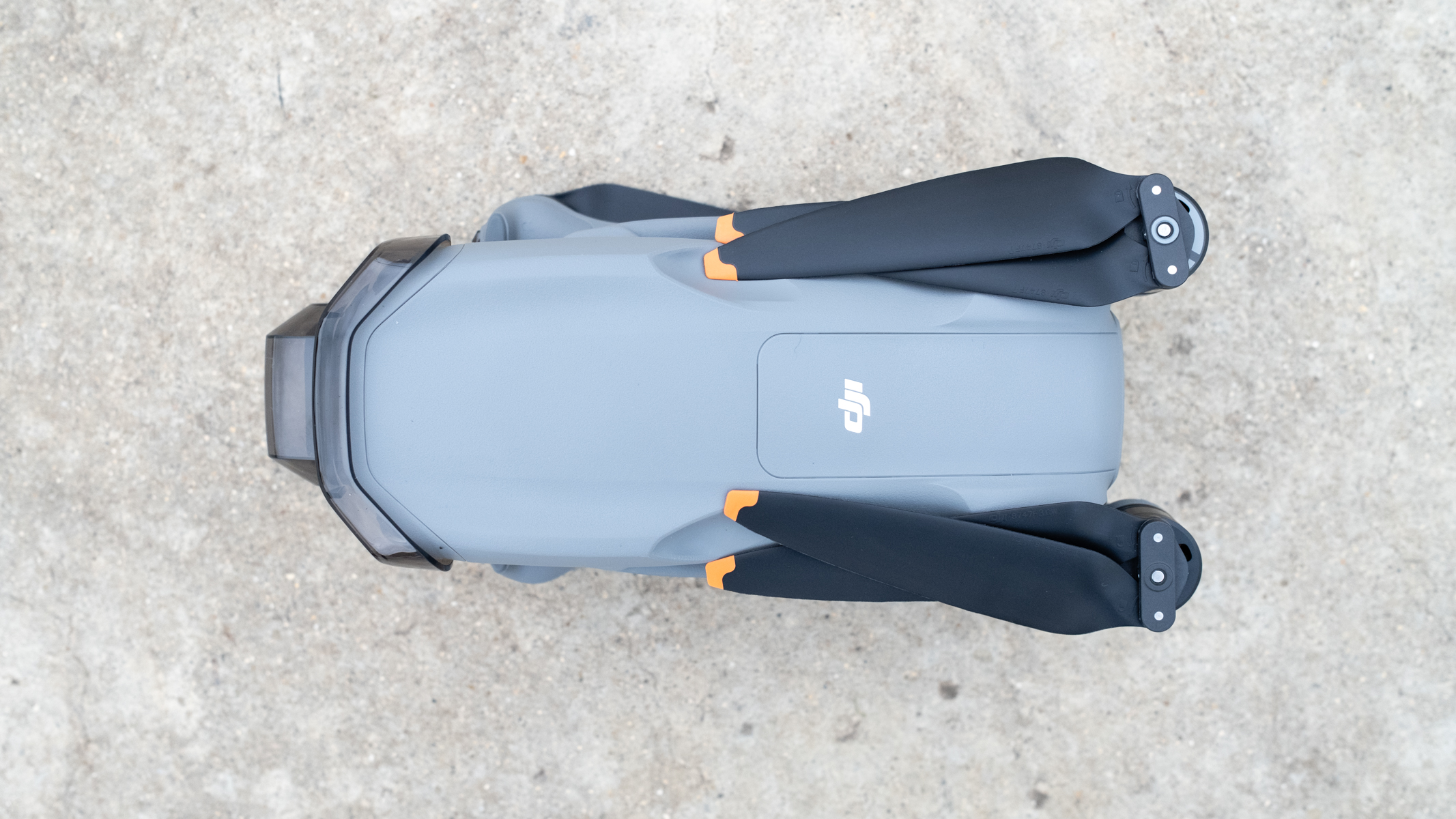
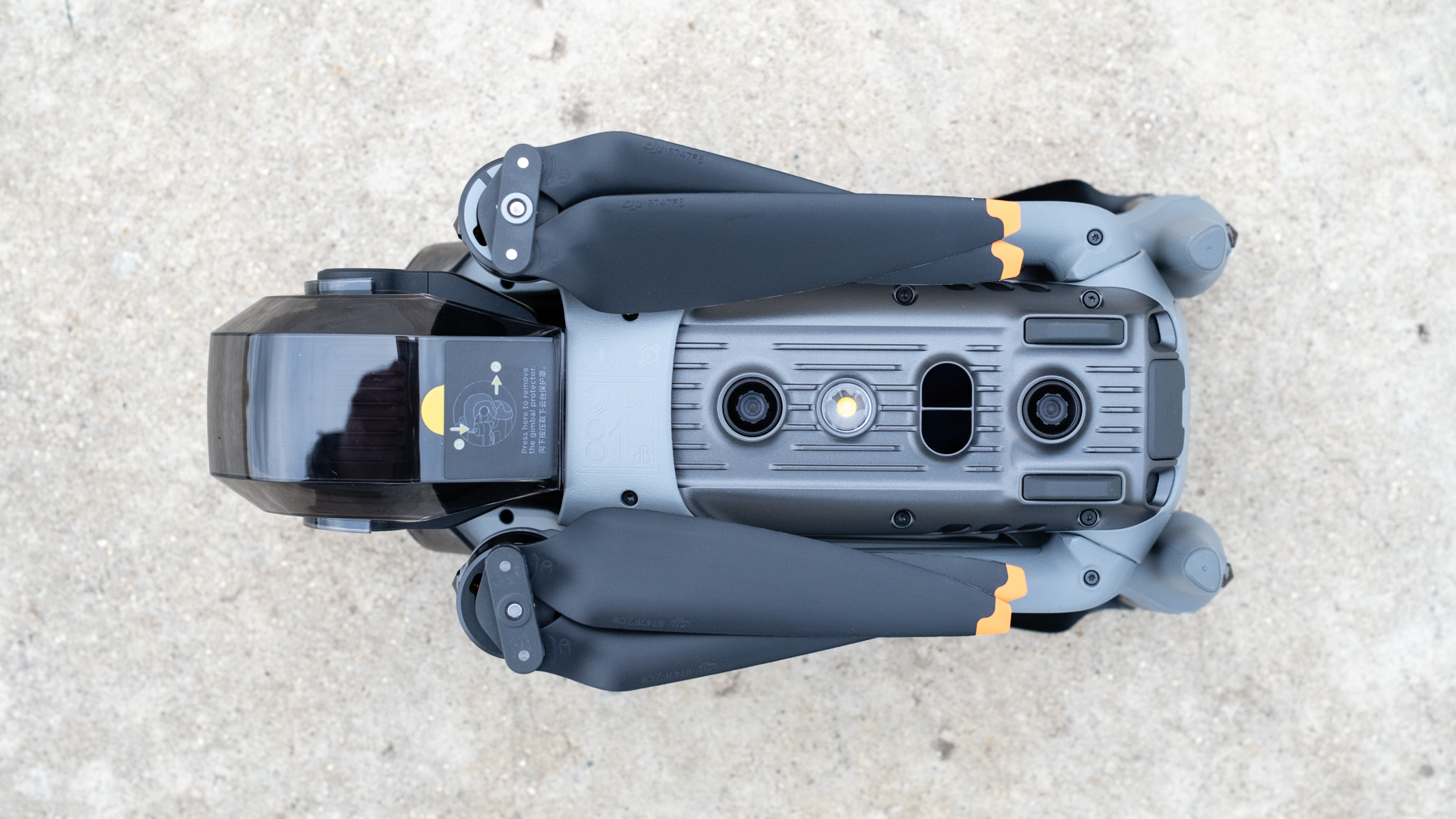
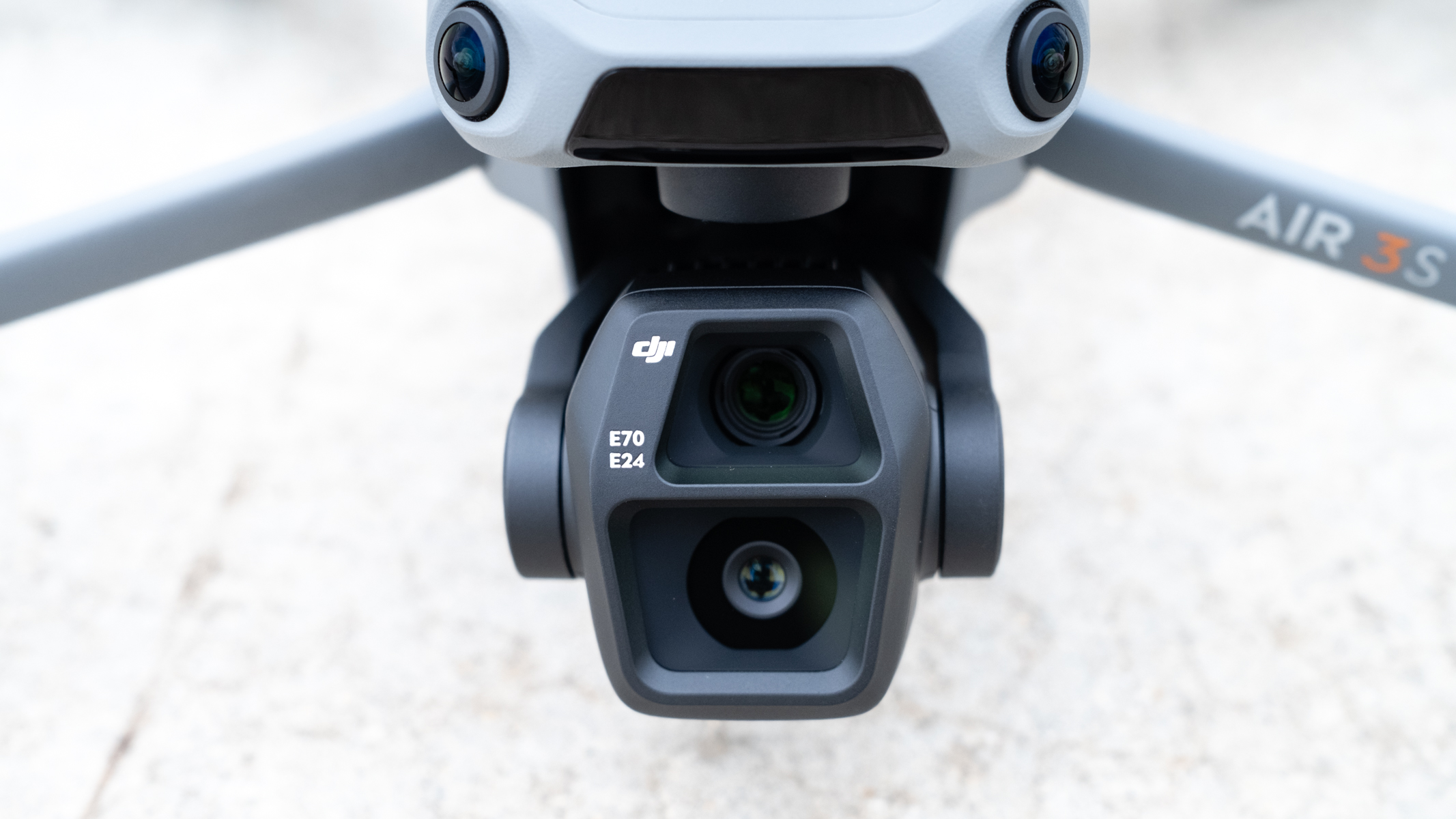
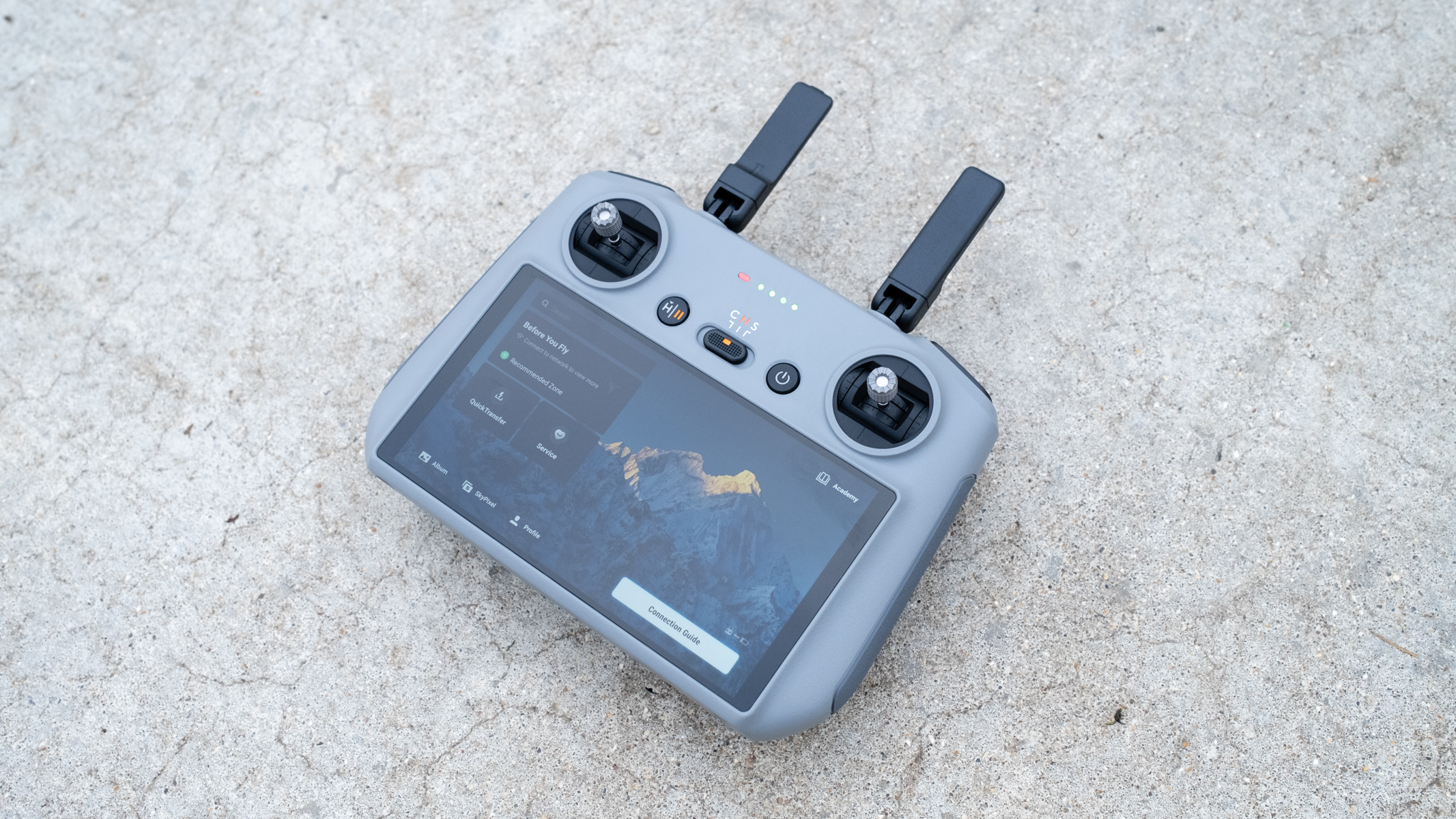
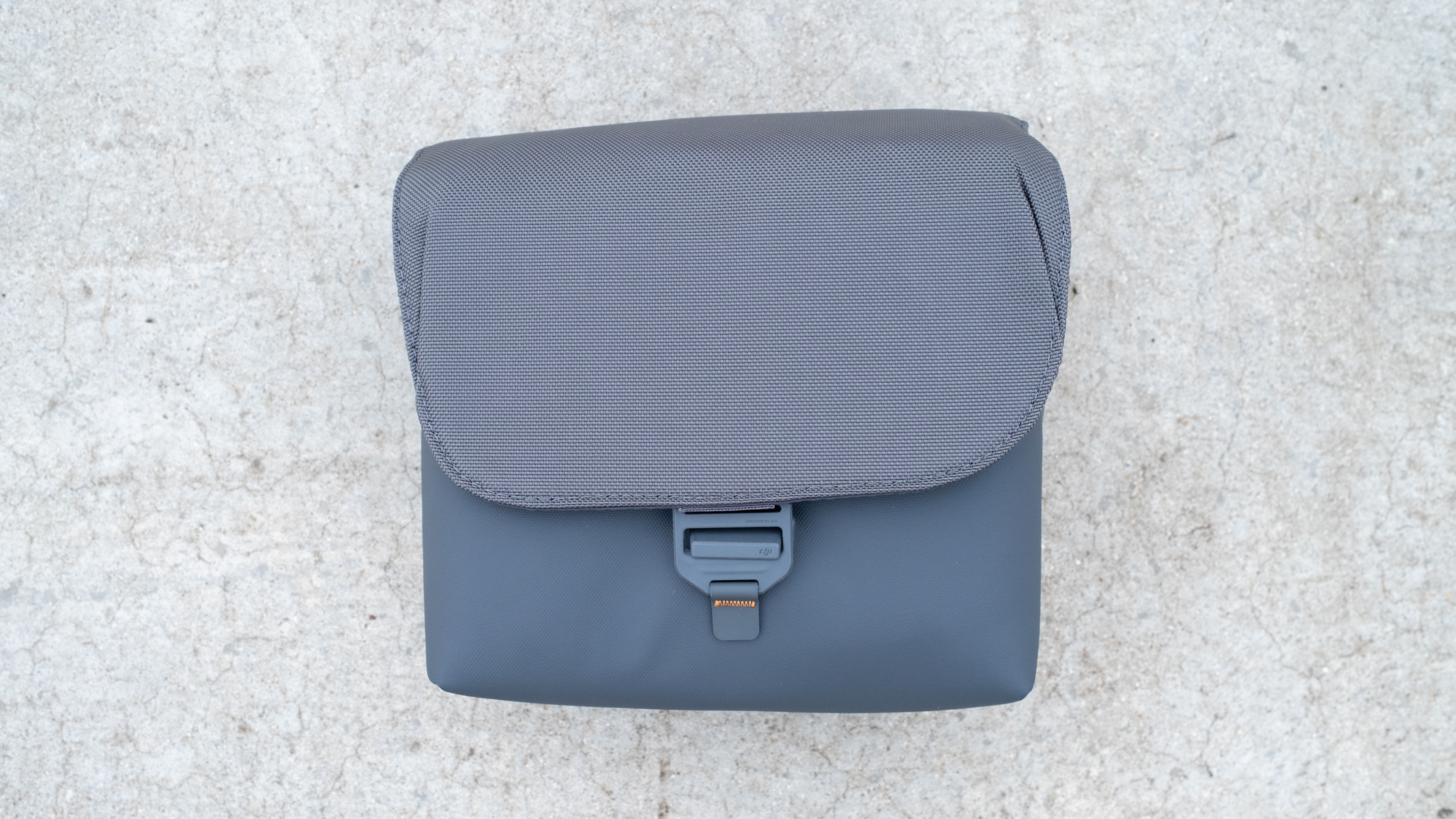
Specifications
Reasons to buy
Reasons to avoid
✅ You desire excellent image quality: The image quality produced by the two cameras is impressive, to say the least, and you won’t be disappointed.
✅ You require advanced collision avoidance: With 360° obstacle avoidance and front-facing LiDAR, the Air 3S is highly advanced in this area and is also excellent for subject tracking.
❌ You'd like a smaller drone: As a mid-size drone the Air 3S is less regulator-friendly than sub-250 g models, so this will be something to consider if you require simplicity.
❌ You would prefer more cameras: Two cameras are great, but if you require greater versatility in this area the DJI Mavic 3 Pro is the logical choice with its three cameras.
🔎 The DJI Air 3S bridges the gap between the sub-250 g DJI Mini 4 Pro and DJI Mavic 3 Pro with dual cameras providing excellent image quality. It also offers impressive features alongside a highly attractive price for such a high-performance drone. ★★★★1/2
The DJI Air 3S is the second model in the Air 3 lineup, representing impressive advancements in DJI's drone technology that we'll no doubt see in subsequent high-end models. It's not leaps and bounds ahead of the Air 3 in terms of overall features and functionality, but where it does take the lead is in its camera functionality, image quality and a handful of additional features.
The Air 3S features a 50MP 1-inch CMOS in the 24mm equivalent main camera, while the 70mm equivalent medium telephoto uses a 48MP 1/1.3-inch CMOS. These provide a huge amount of versatility and image quality is seriously impressive, to say the least; exactly what you'd expect from one of the best camera drones. In a nutshell, you will not be disappointed.
Video can be captured in flat color profiles for professional workflows and the standard profile for straight-out-of-camera footage, so everyone is catered for. Video can be captured up to 4K 120 FPS, while photos can be captured in Raw and JPEG at 12MP and the full resolution of each sensor.
This foldable and highly portable drone also includes advanced collision avoidance, impressive subject tracking, Off-state Quick Transfer and can also be easily connected to 4G using the DJI Cellular Dongle 2 and a SIM card for more secure and reliable connectivity.
- Read our full DJI Air 3S review.
Attributes | Notes |
|---|---|
Design | Two fantastic cameras and a compact design. |
Functionality | Fully featured with advanced functionality. |
Performance | Excellent image quality from both cameras. |
Best value for money

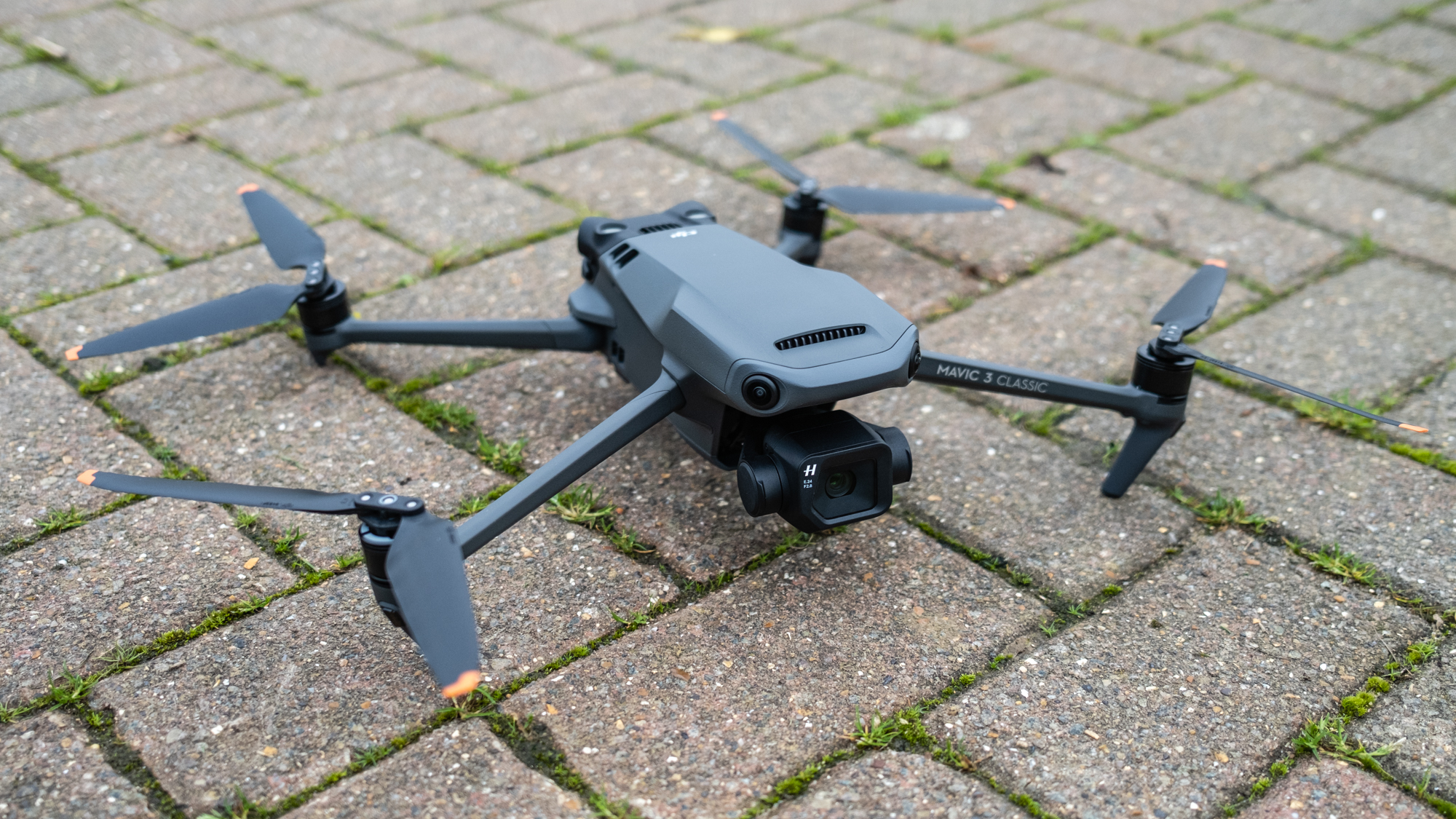
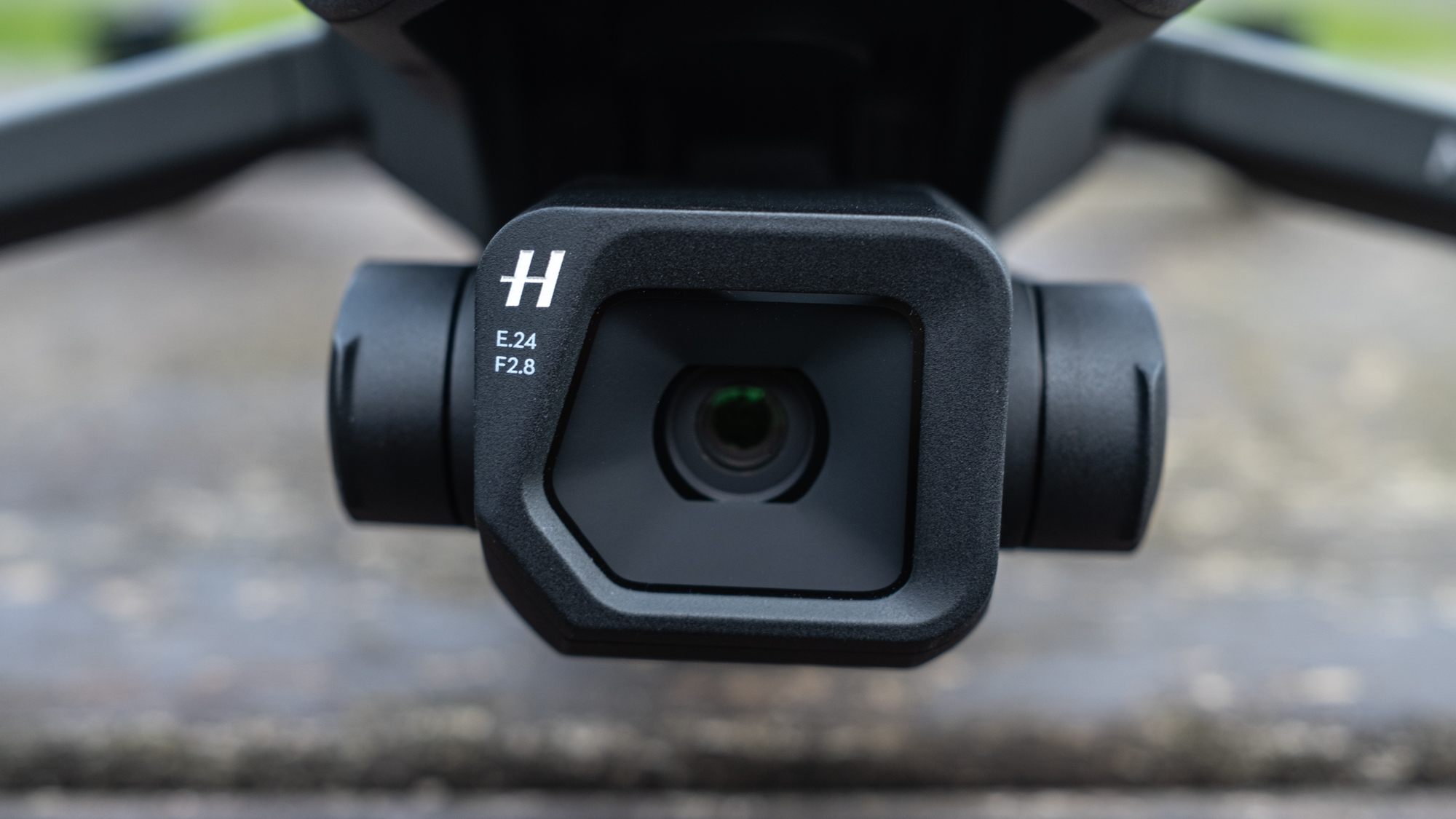
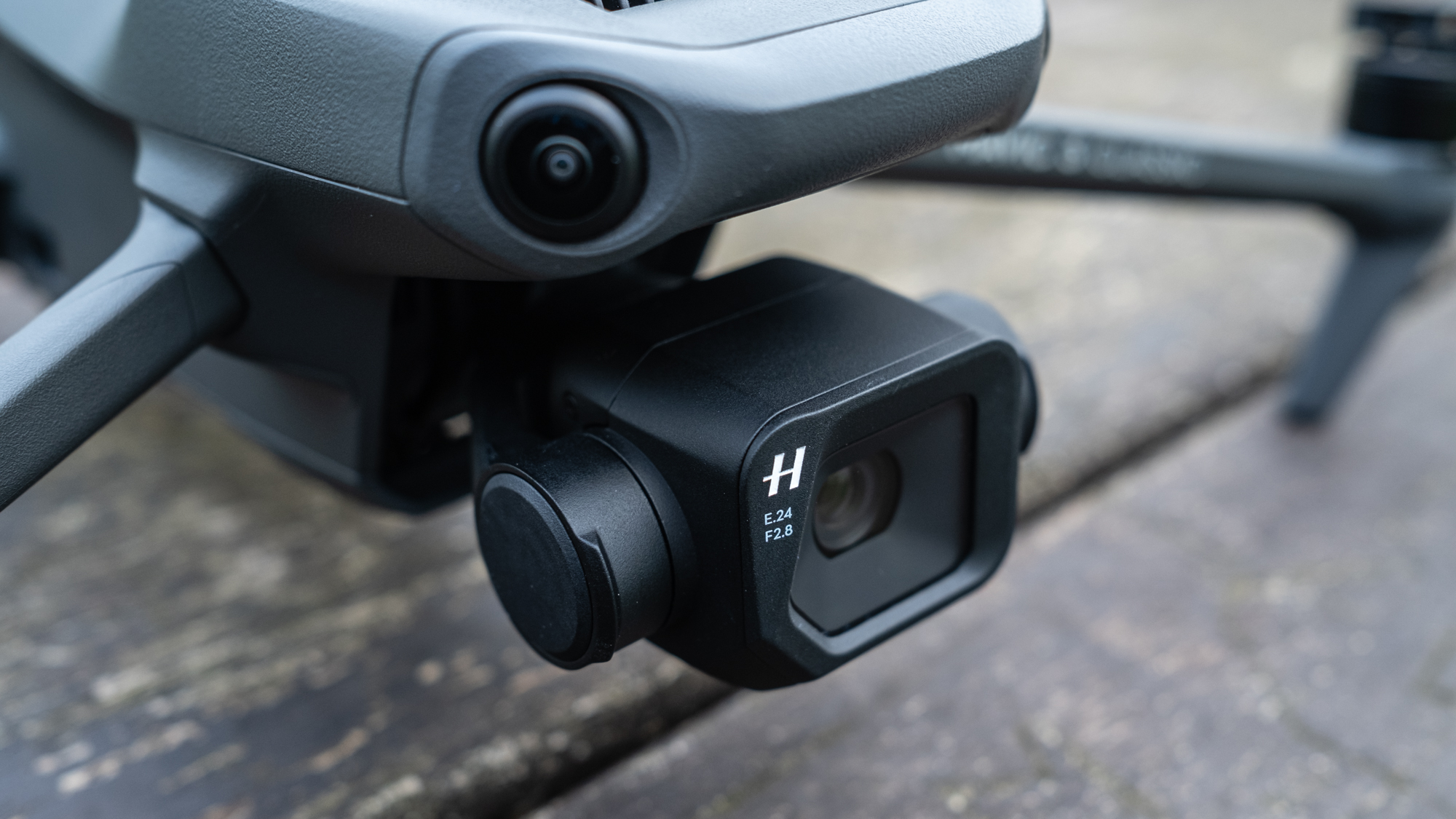
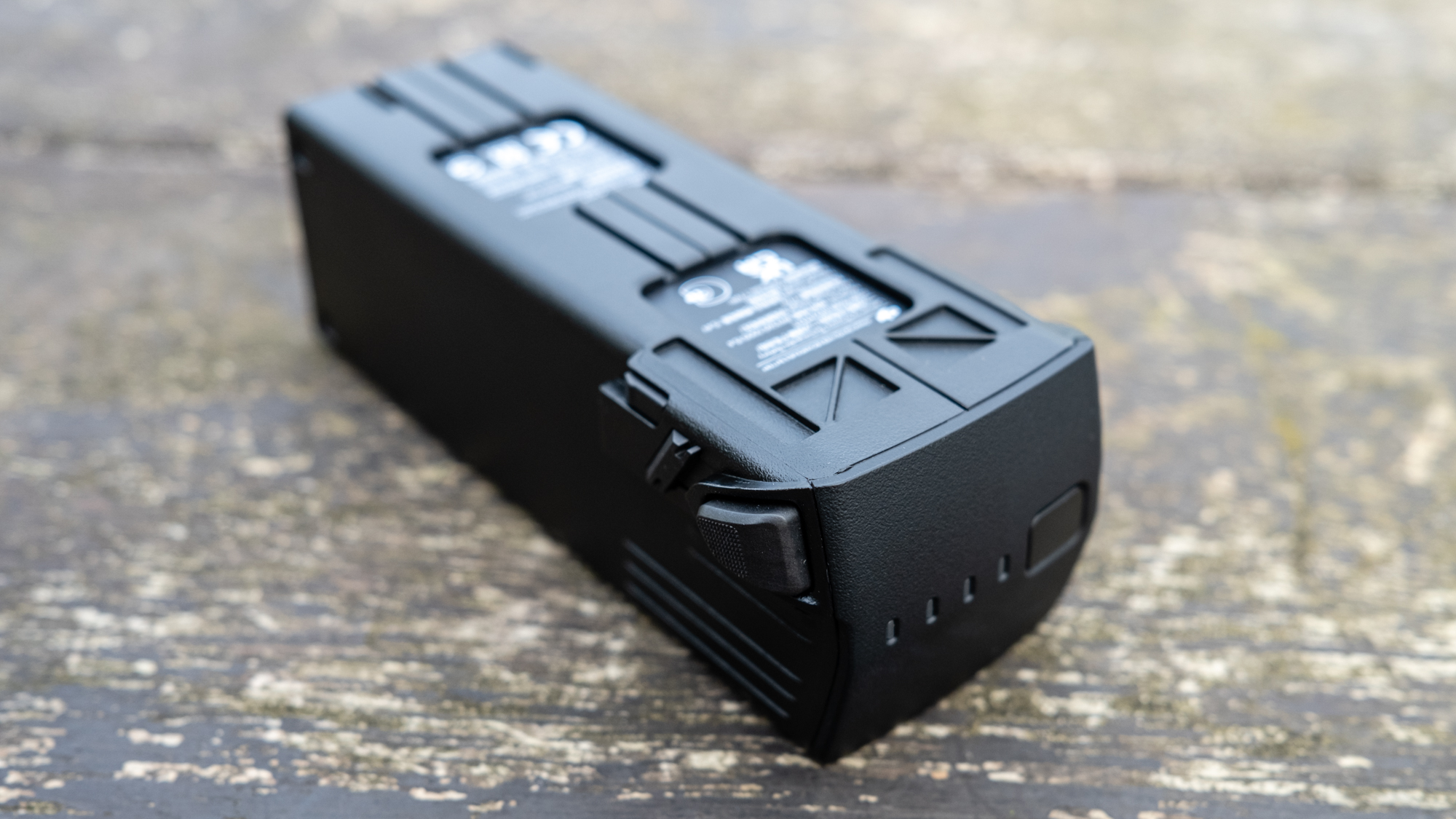
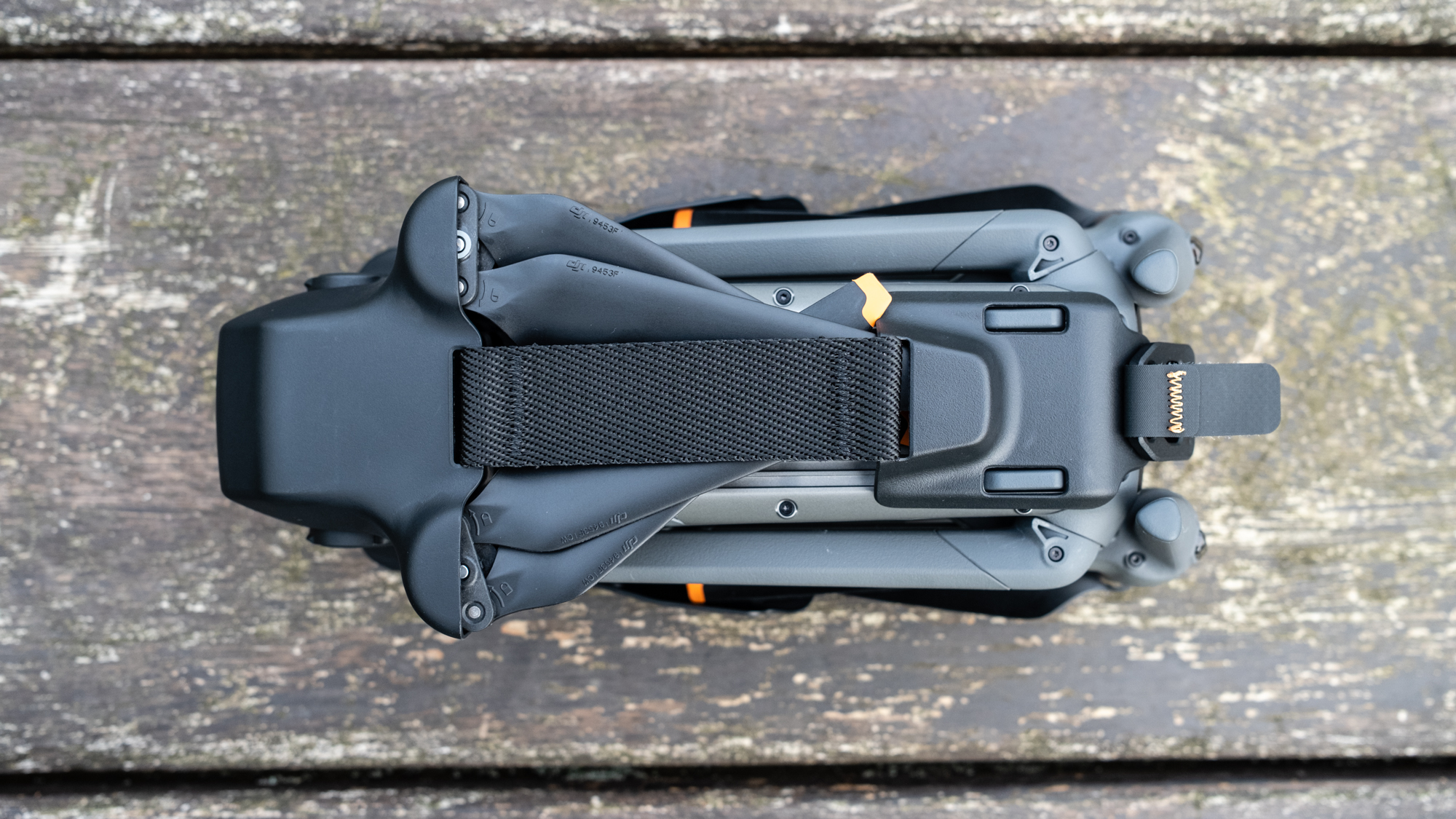
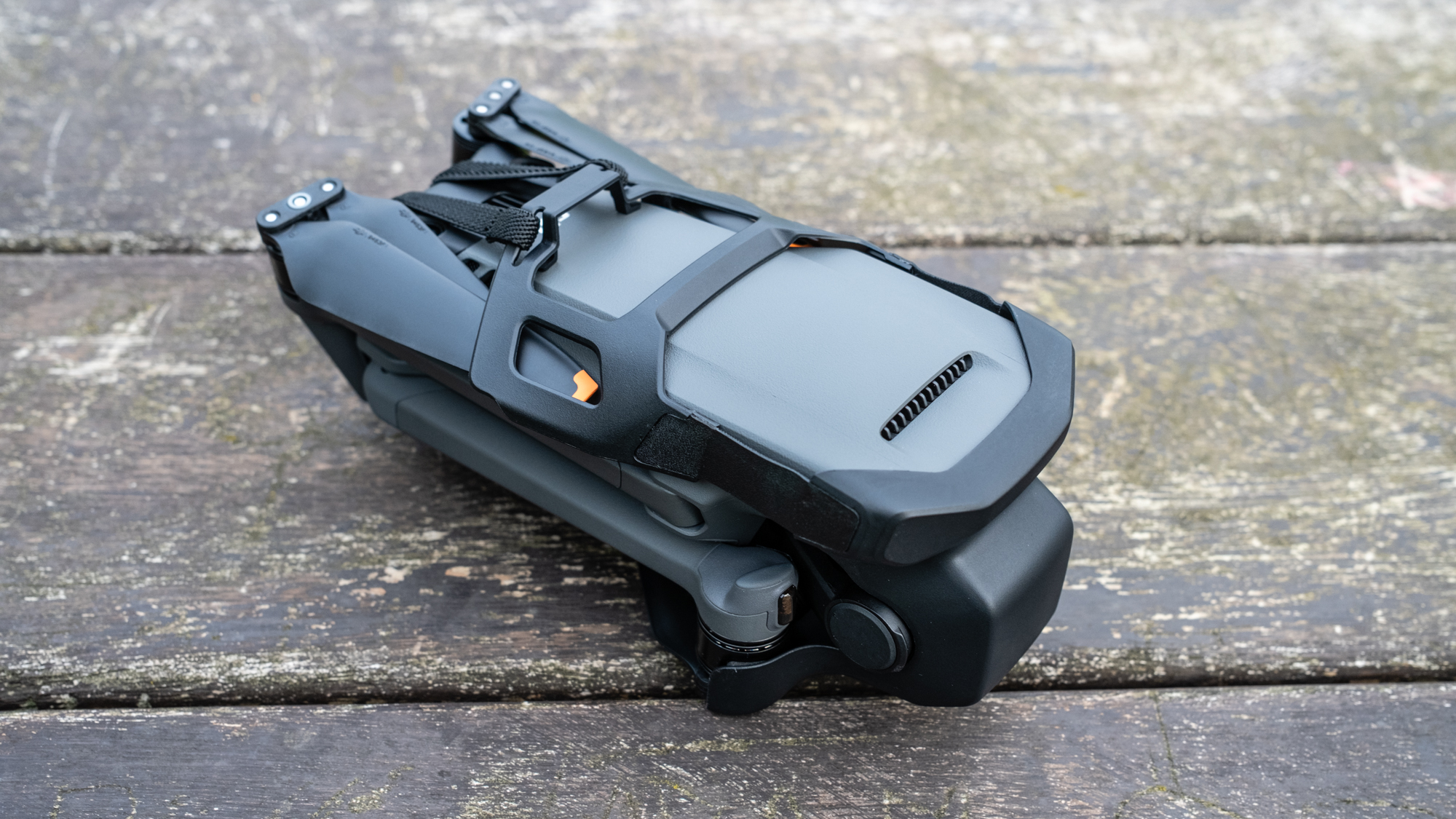
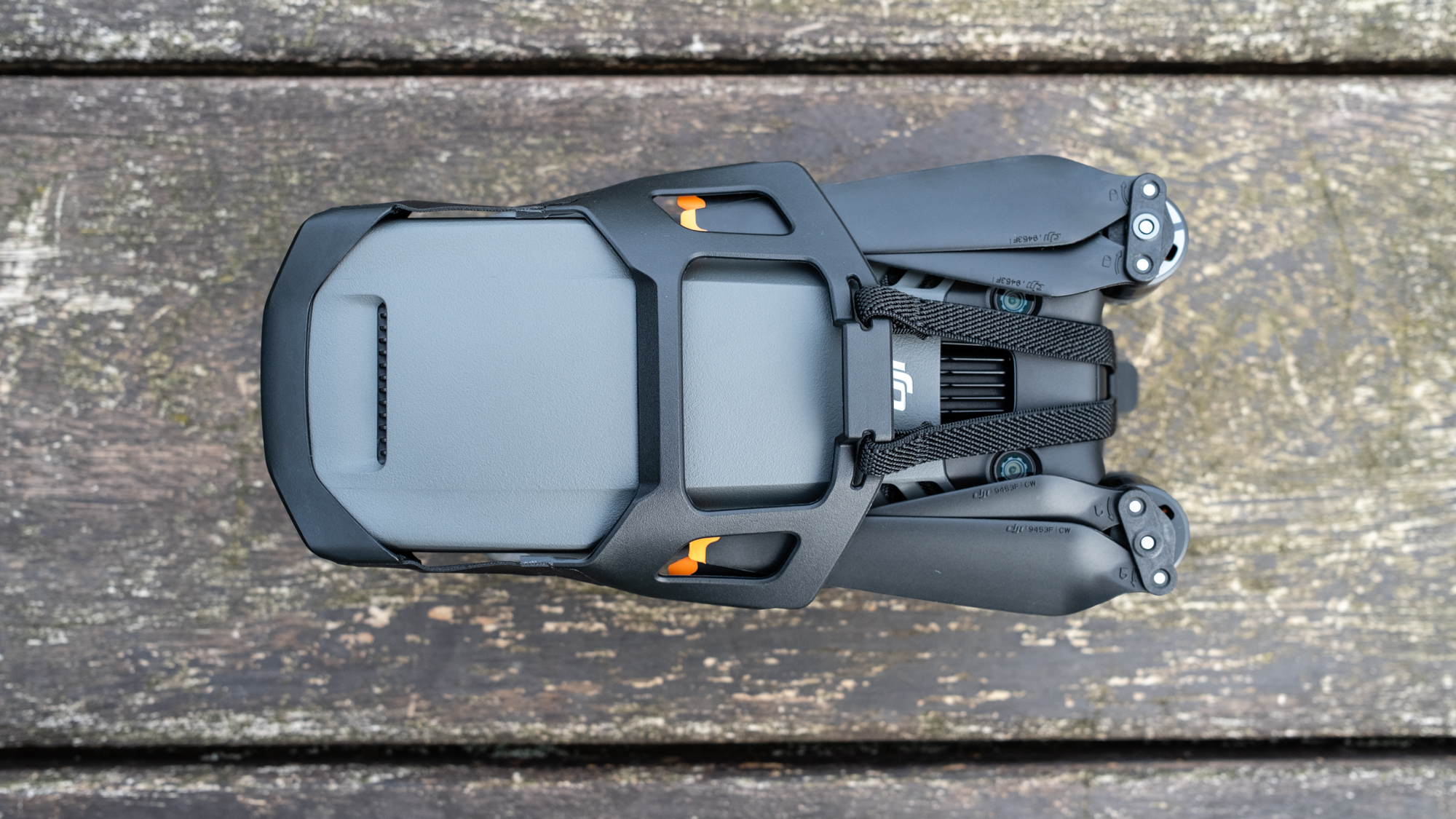
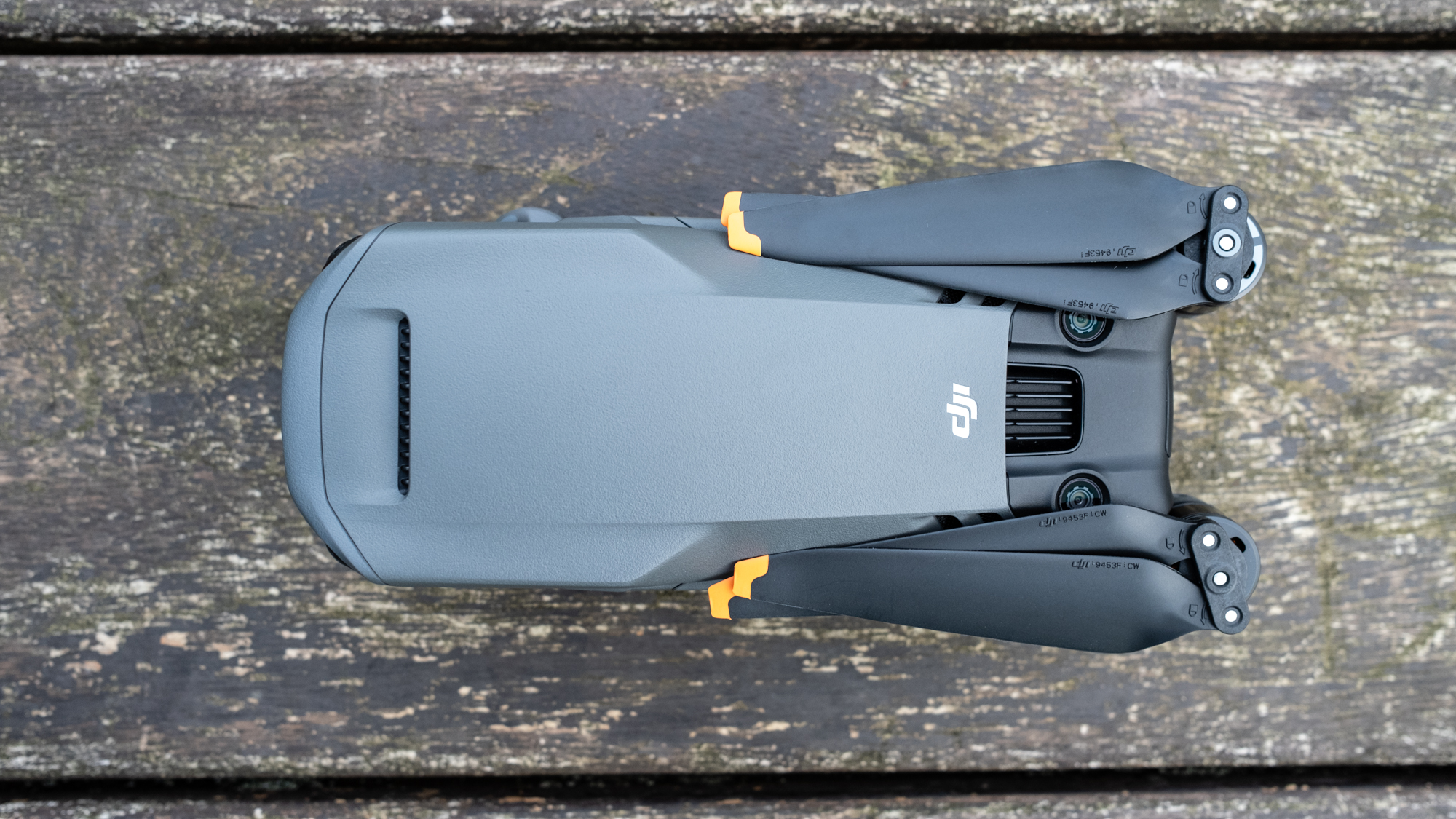
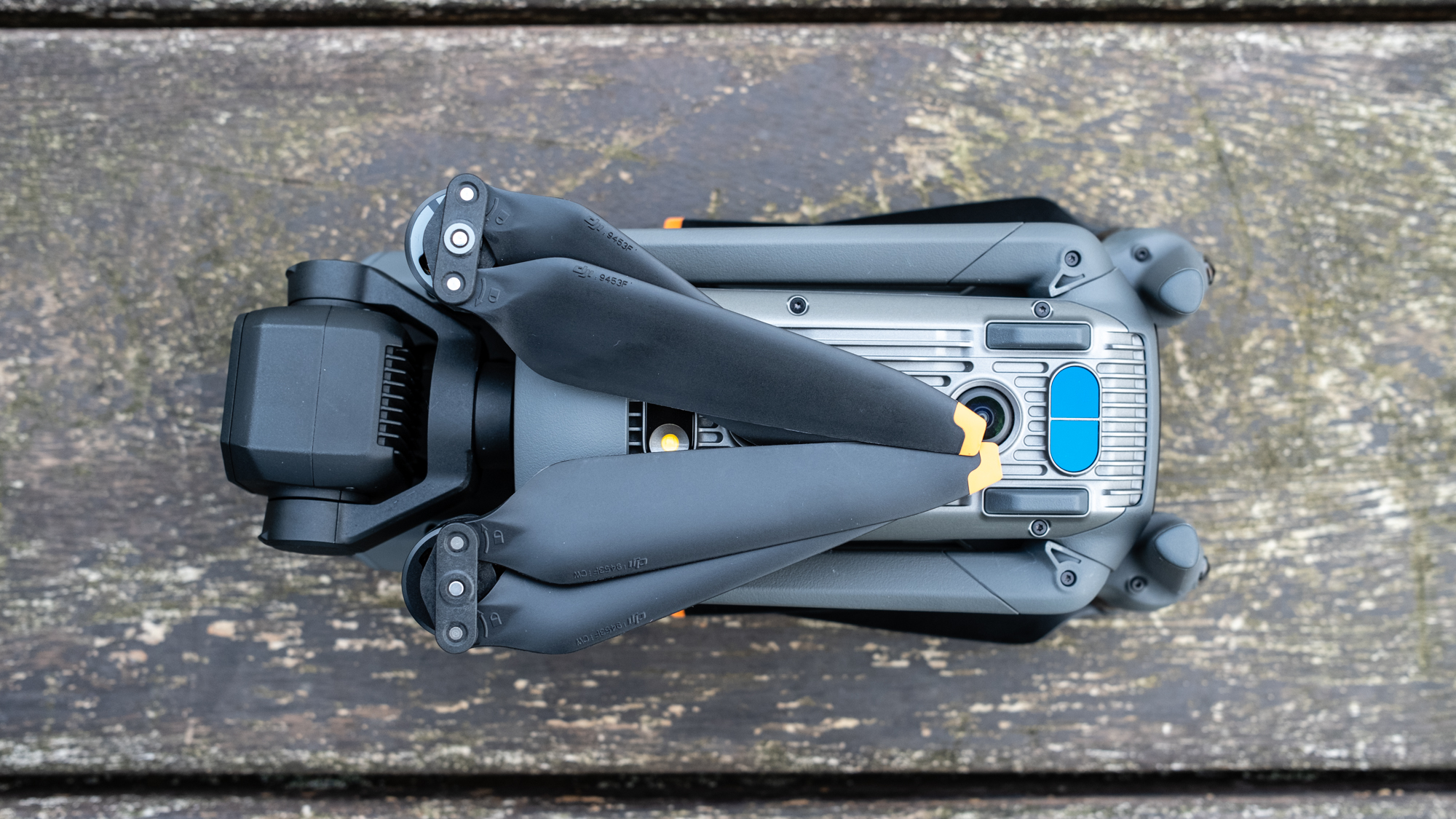
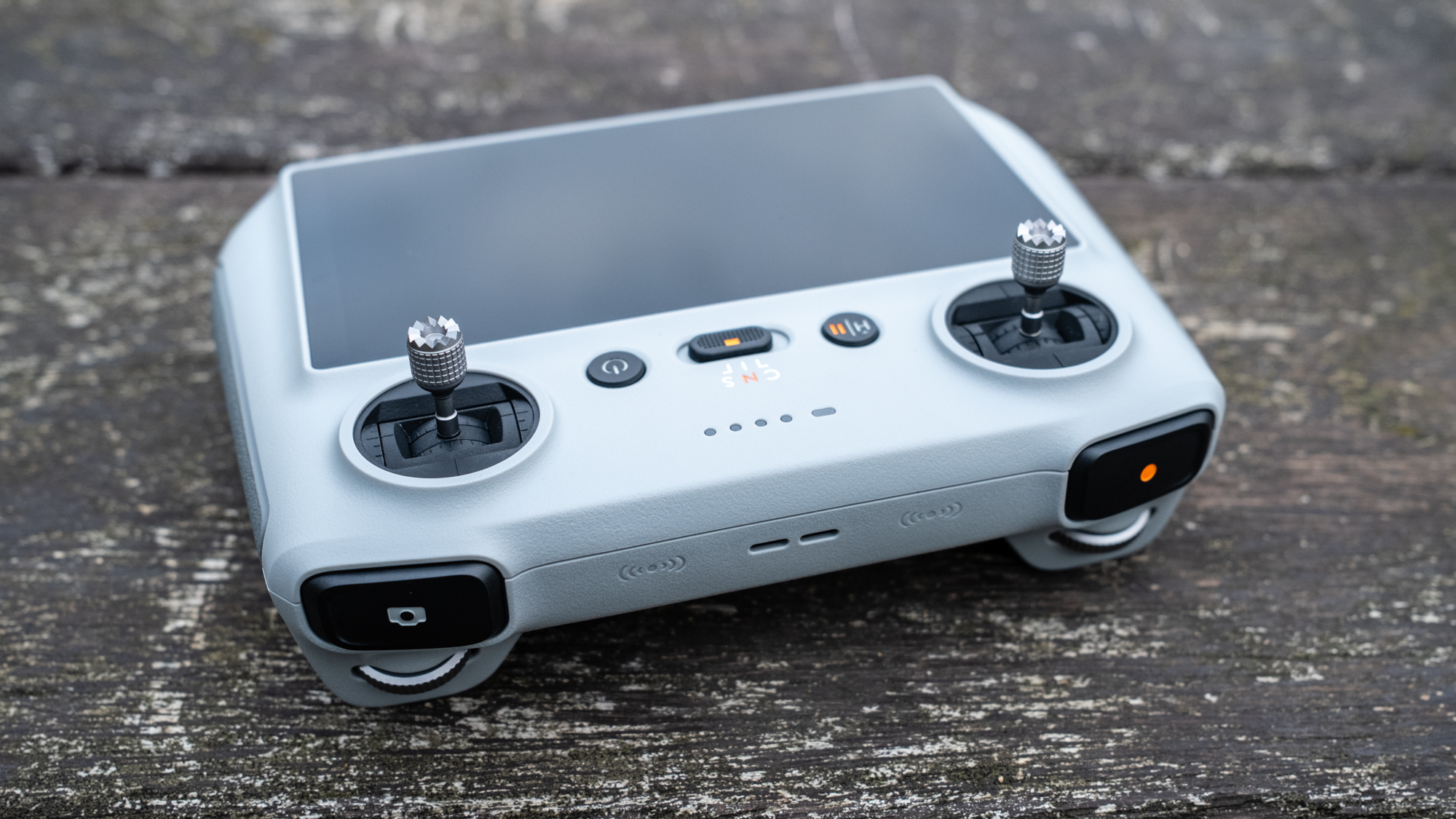
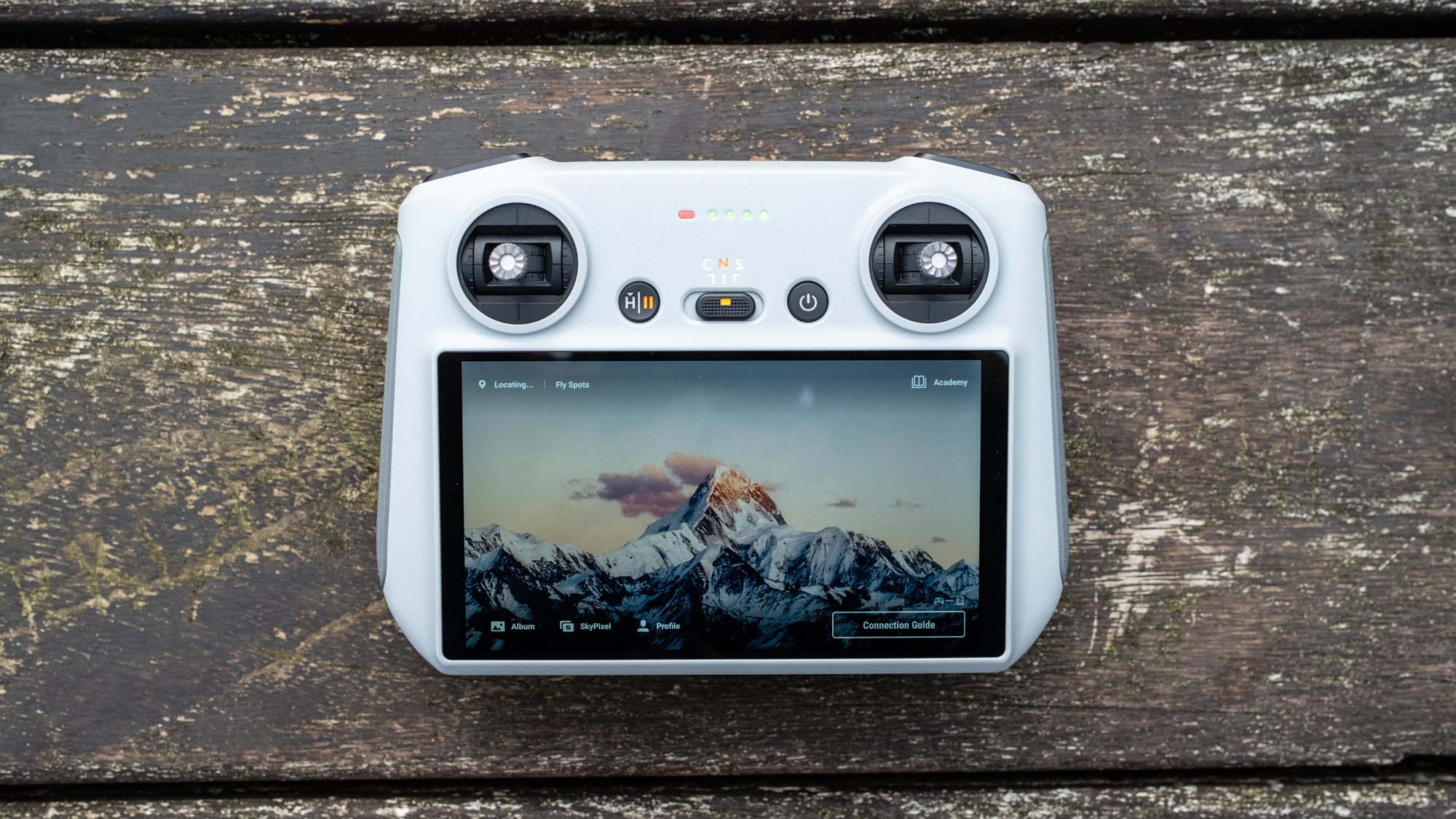
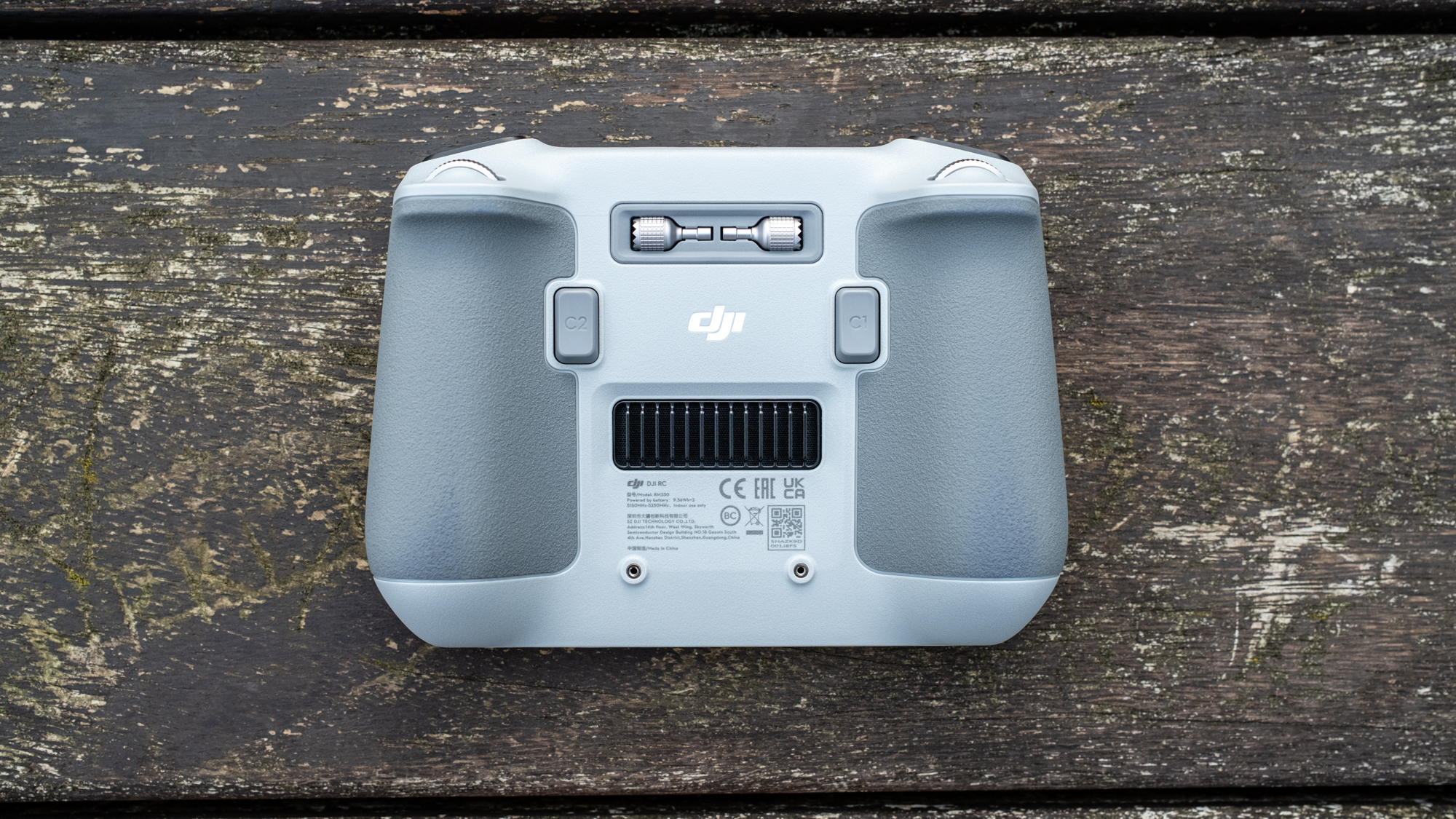
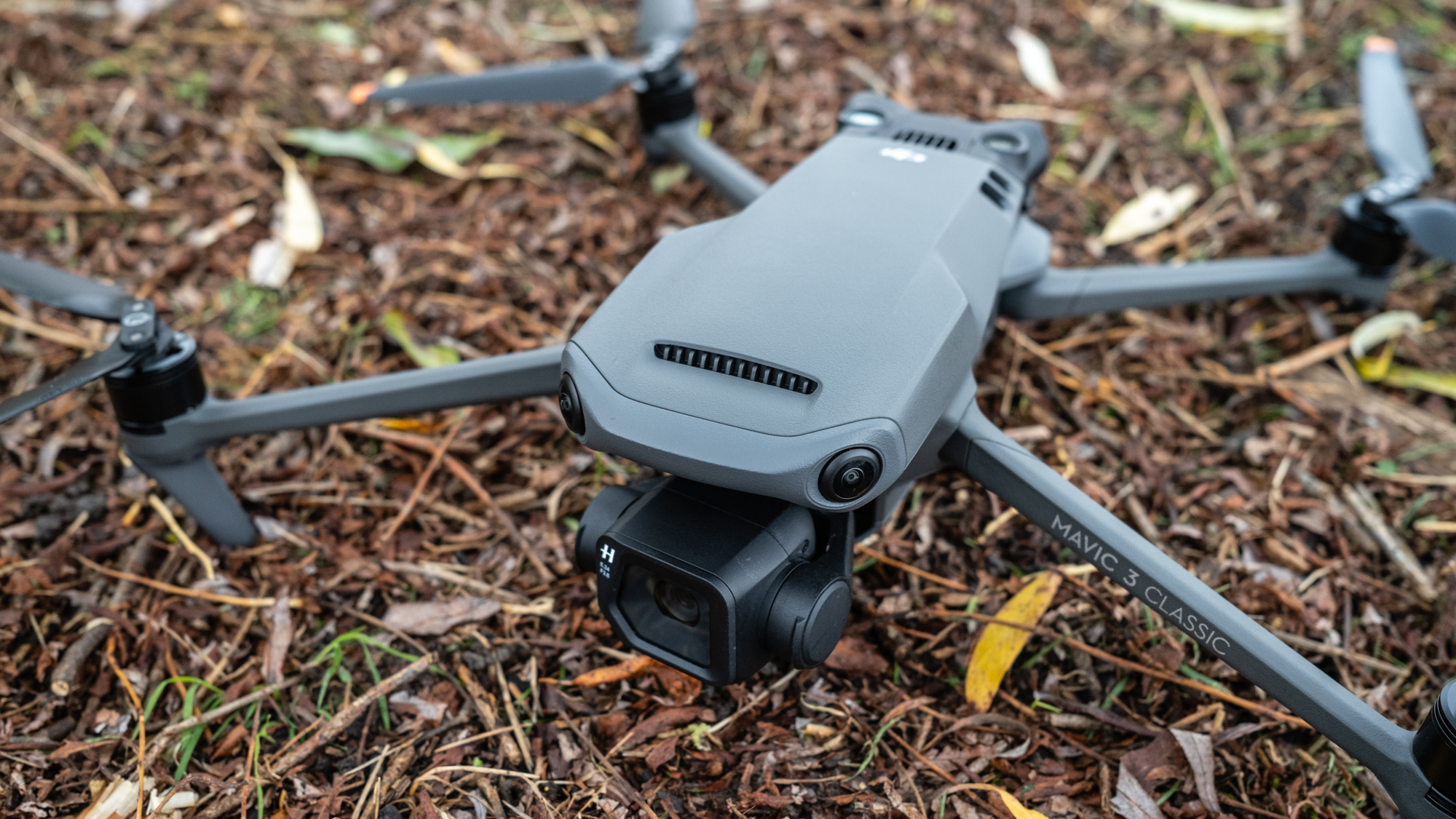
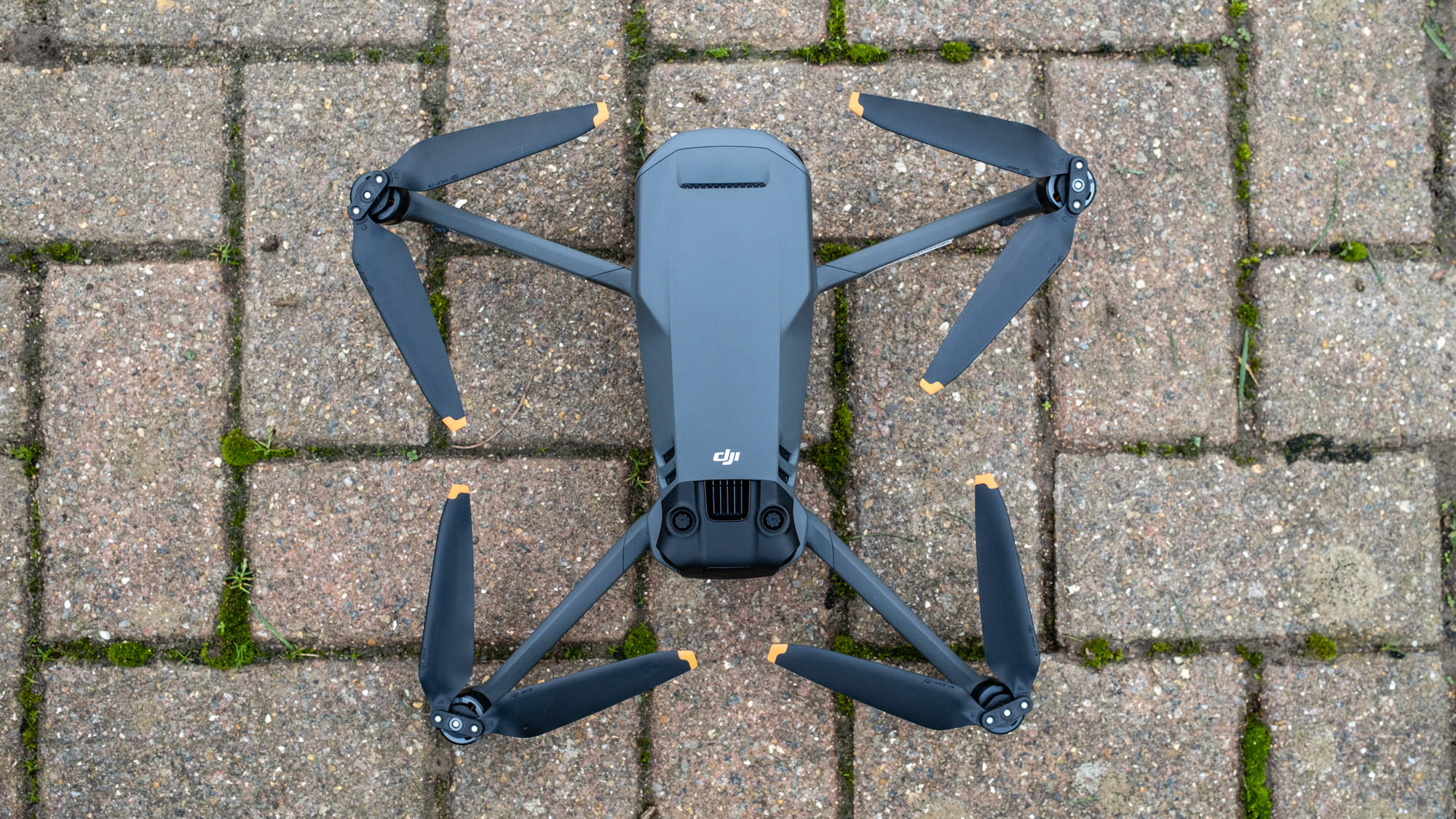
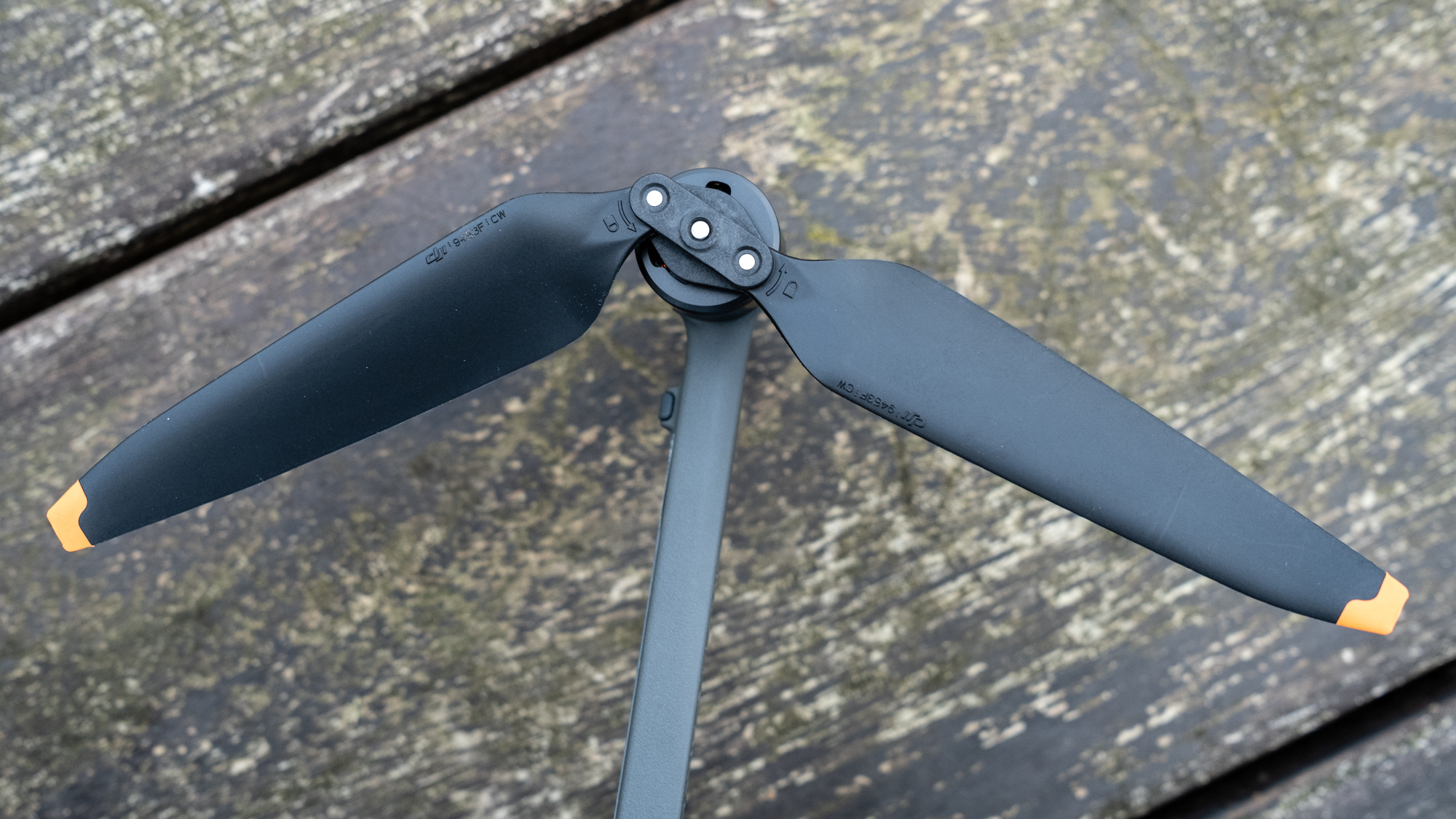
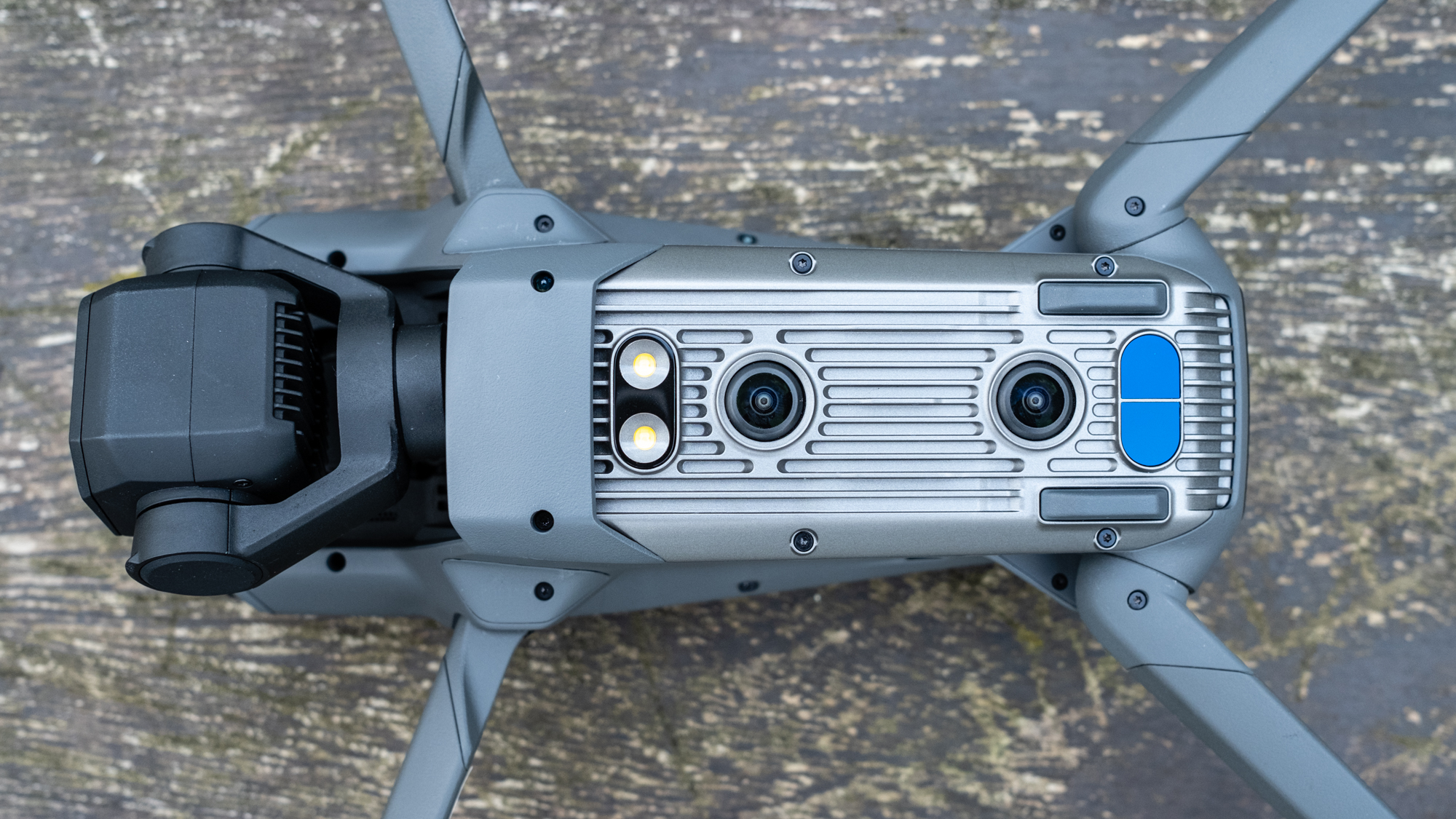
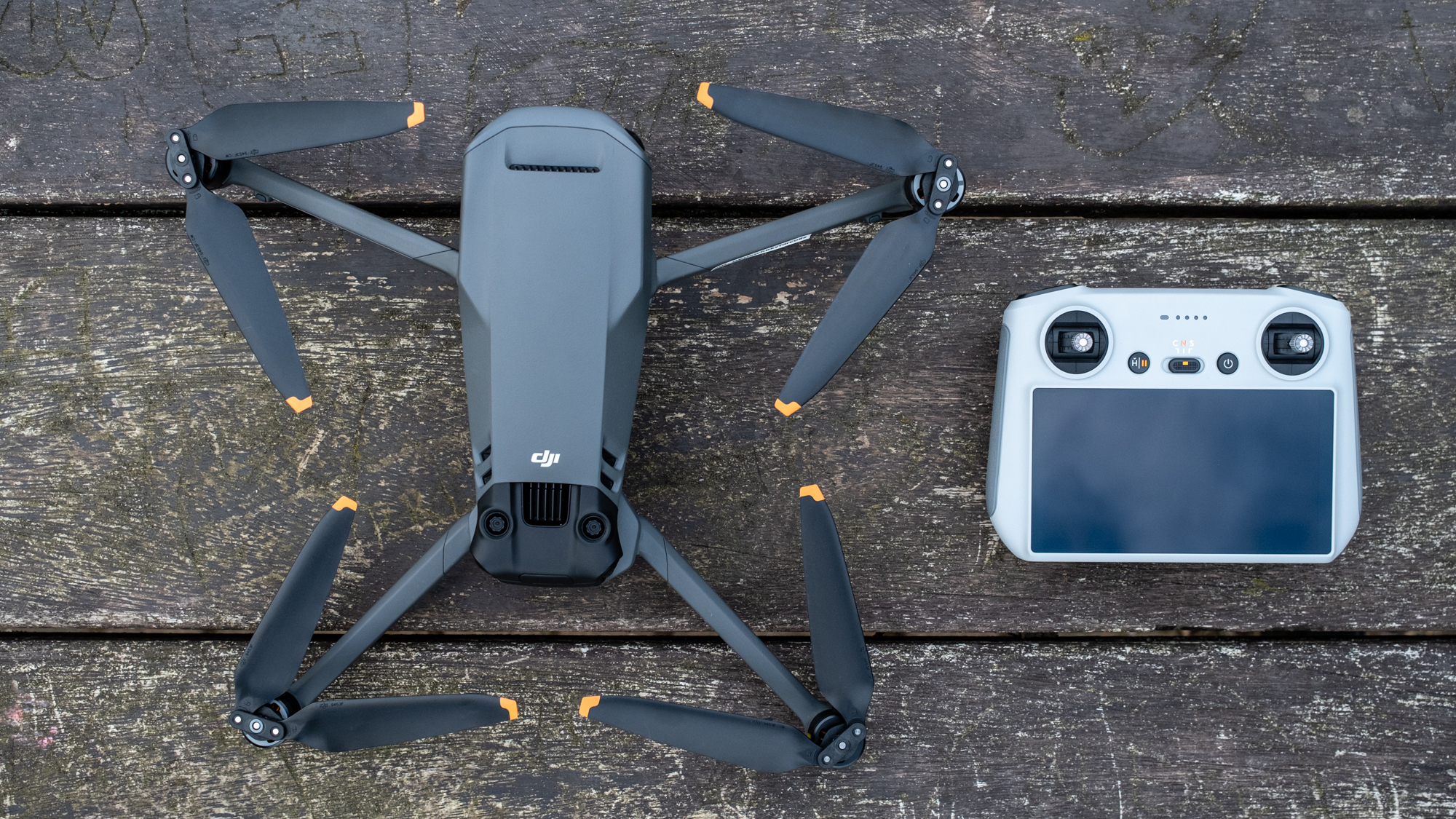
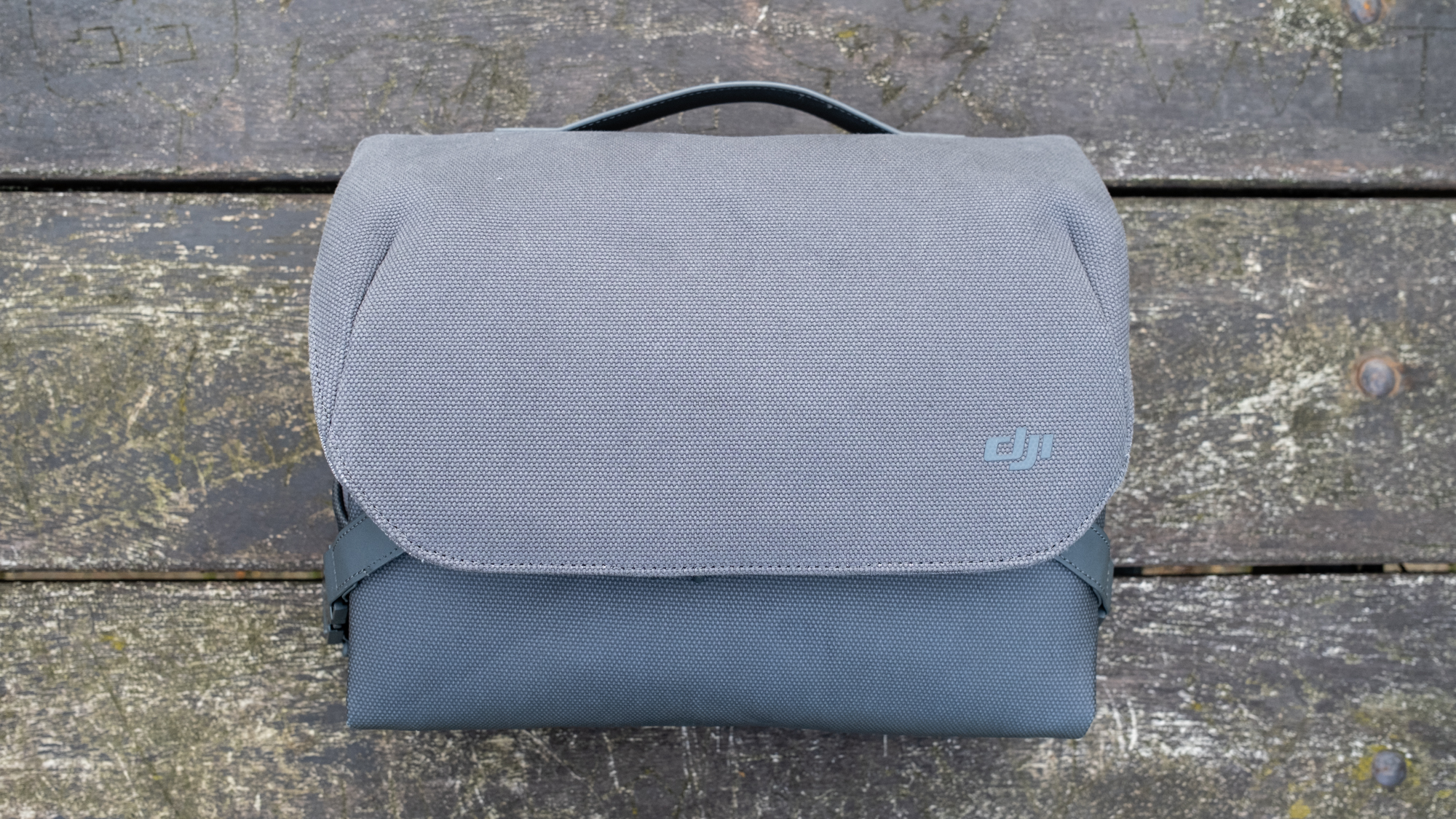
Specifications
Reasons to buy
Reasons to avoid
✅ You want excellent image quality at a more affordable price: This drone contains the same impressive Hasselblad 20MP camera as the other DJI Mavic 3 models but keeps the price down by doing away with the additional cameras.
✅ You want something easy to fly: With two different controller options and an Advanced Return to Home feature, you should be able to get the hang of this drone quite quickly.
❌ You're after an affordable beginner drone: While this is more affordable than the other DJI Mavic 3 drones, it's still quite pricey and there are several other cheaper options on the market for beginners.
🔎 DJI Mavic 3 Classic This is a great option for people who want the image quality of the DJI Mavic 3 drones without paying extra for additional cameras that they don't have need for. Although it's still not cheap, it's easy to fly and would make a good investment for keen beginners. ★★★★½
Following on from the hugely popular Mavic 2 Pro, the Mavic 3 Classic features a single 20MP 4/3 Hasselblad camera, offering excellent image quality. For many drone pilots, one wide-angle camera is enough, and as a bonus, the Mavic 3 Classic is less expensive than other Mavic 3 models, making it much more accessible to a wider audience.
This camera features an adjustable aperture ranging from f/2.8 to f/11 and has a lens equivalent to 24mm. It delivers outstanding image quality for both photos and videos, offering JPEG and RAW formats, 3x digital zoom and shooting capabilities of up to 5.1K video at 50fps, with a dynamic range of 12.8 stops. While other Mavic 3 models offer multiple camera options that may appeal to professionals, this fantastic camera is more than enough to meet the needs of most users on its own.
There are two controller options with this drone. You can choose between the DJI RC-N1 controller, which features a retractable smartphone holder, or the DJI RC smart controller, which features an integrated 5.5-inch touchscreen. After conducting our full DJI Mavic 3 Classic review, we think the improved user experience offered by the smart controller easily warrants the relatively small difference in price.
The drone is powerful like other Mavic 3 models and is stable in the air, even in moderate winds. But despite this power, it remains highly portable thanks to DJI's now standard folding design that takes it from compact storage size to flight-ready in a matter of seconds. This is fantastic when carrying other photo and video kit on location.
The Mavic 3 Classic is also packed with high-end features, including precise GPS positioning, Advanced Return to Home, three different flight modes, aircraft detection and geofencing. Its multiple vision sensors detect and avoid obstacles in all directions and contribute to improved subject tracking. So, if the single camera is enough for you, you really are getting the complete package with this drone.
- Read our full DJI Mavic 3 Classic review
Attributes | Notes |
|---|---|
Design | Single Hasselblad 20MP camera and controller options. |
Functionality | Easy to fly, with good safety features. |
Performance | Fantastic image quality with 12.8 stops of dynamic range. |
Best DJI Mini alternative
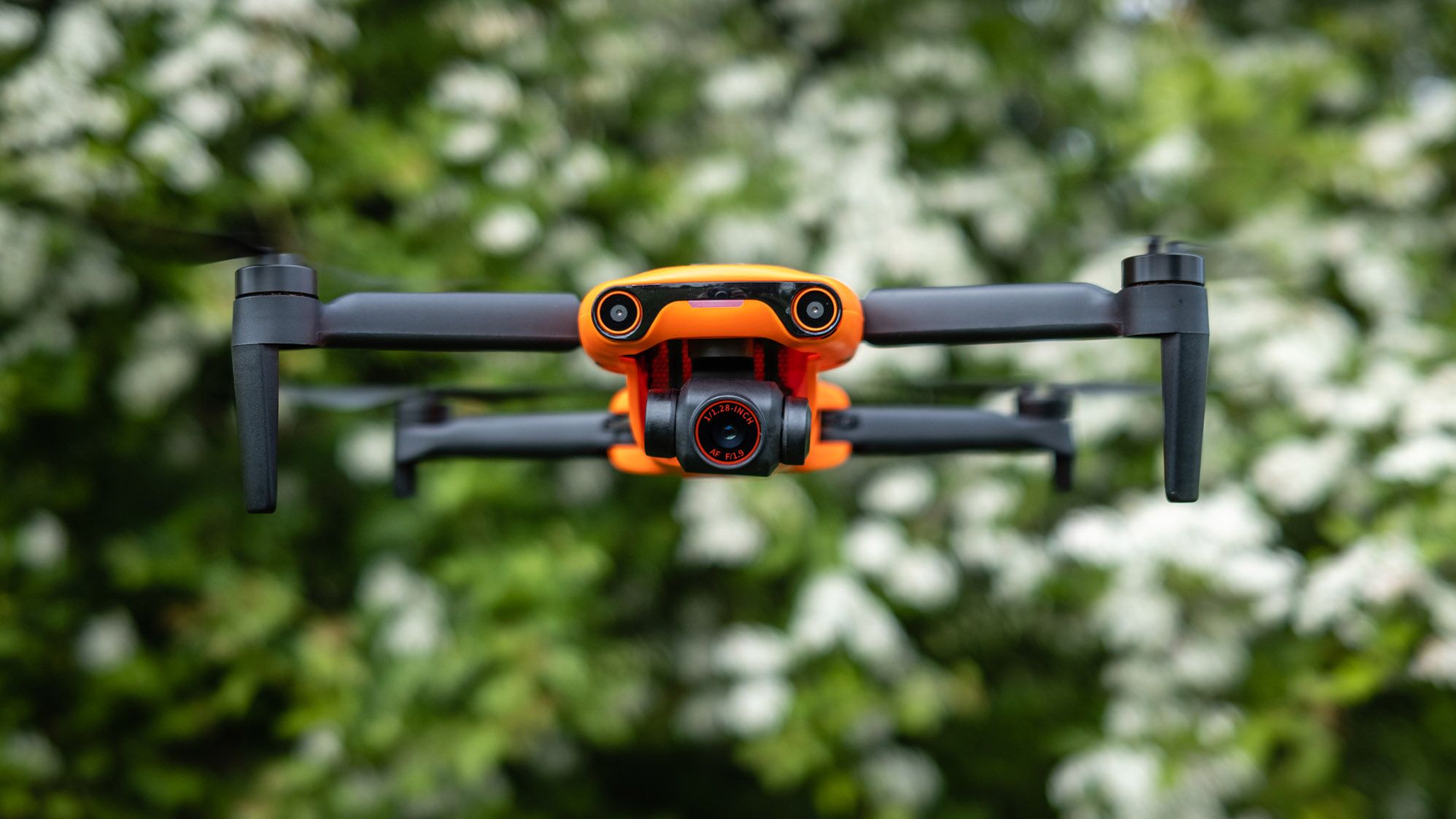
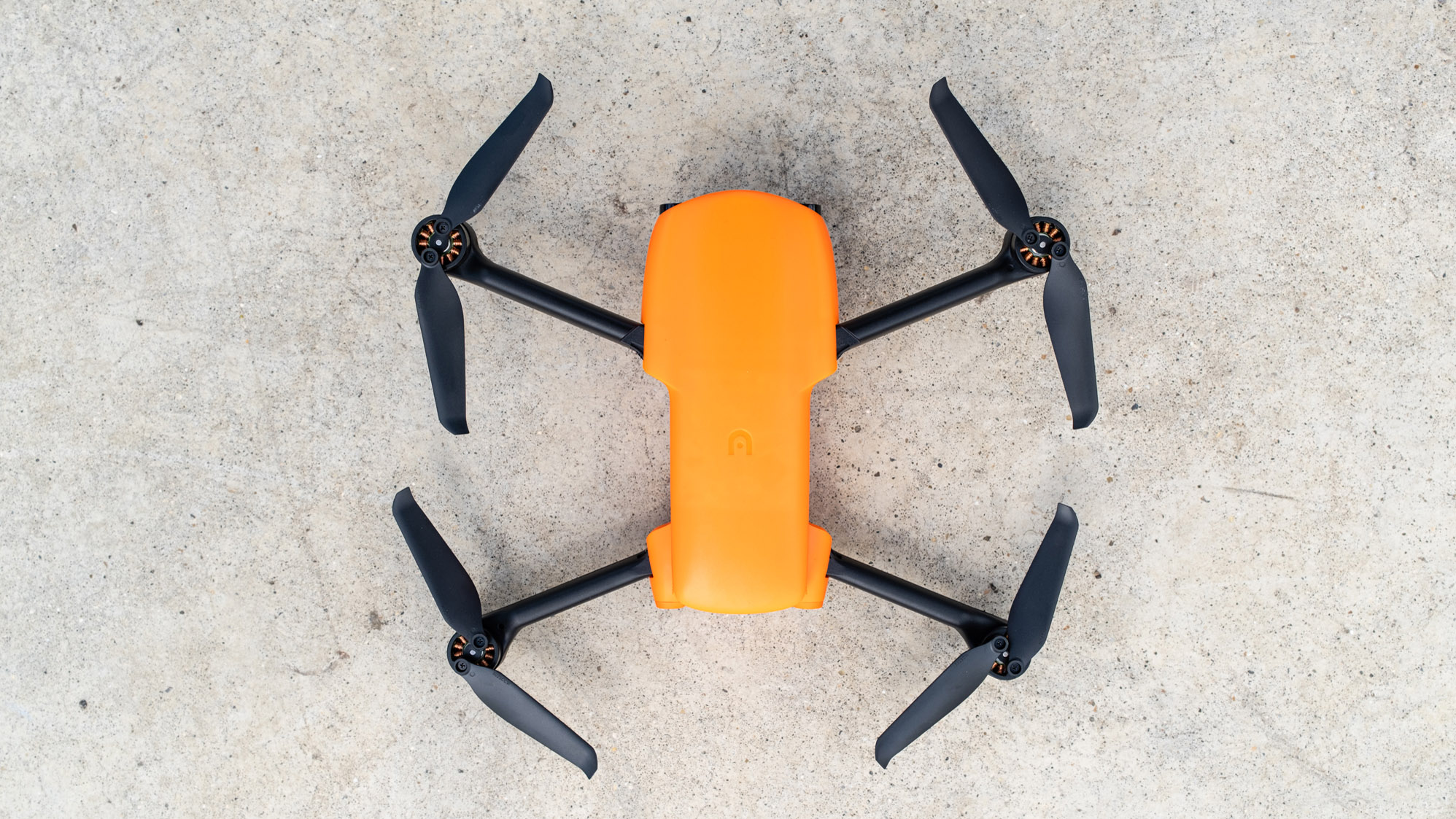
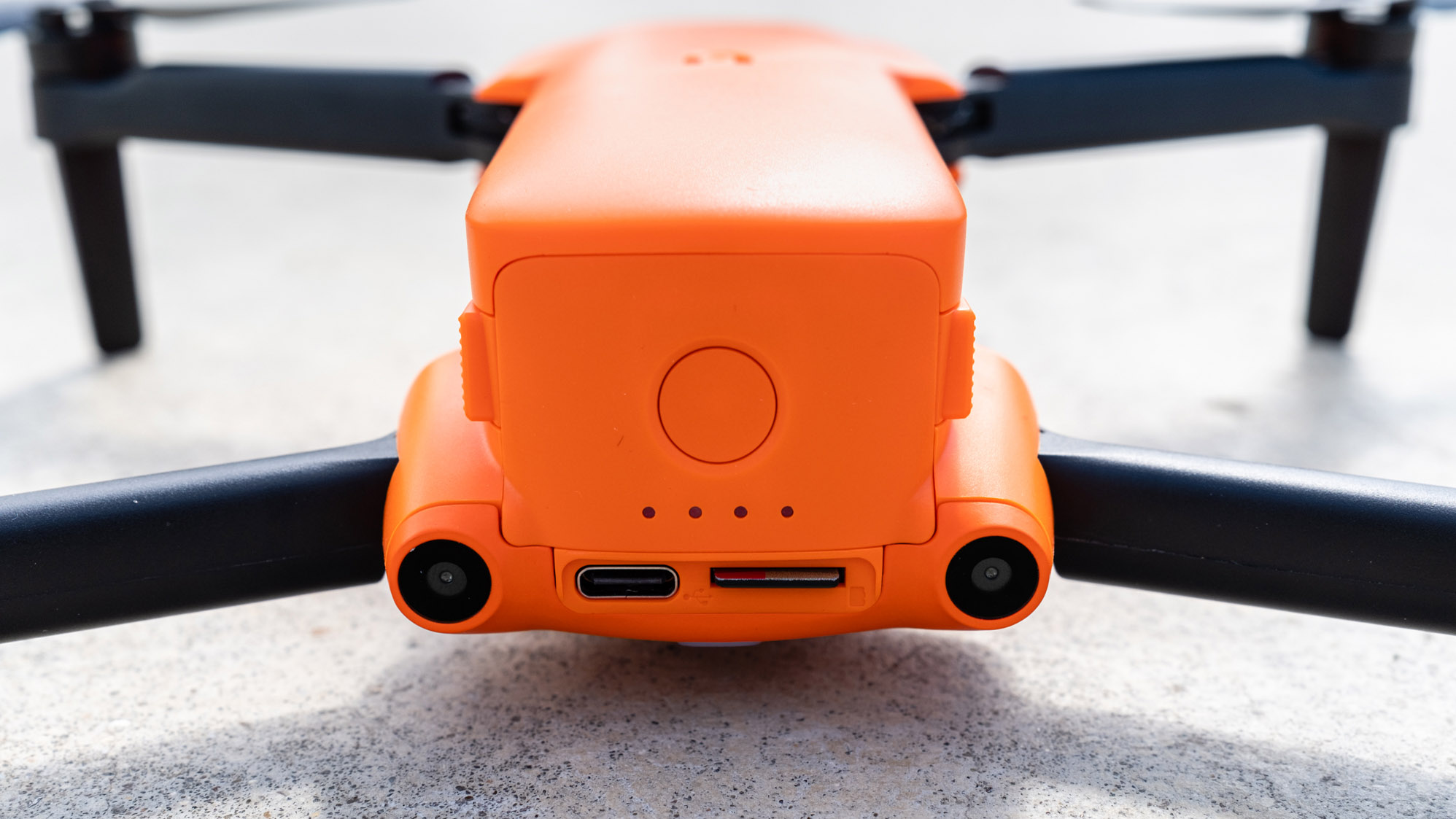
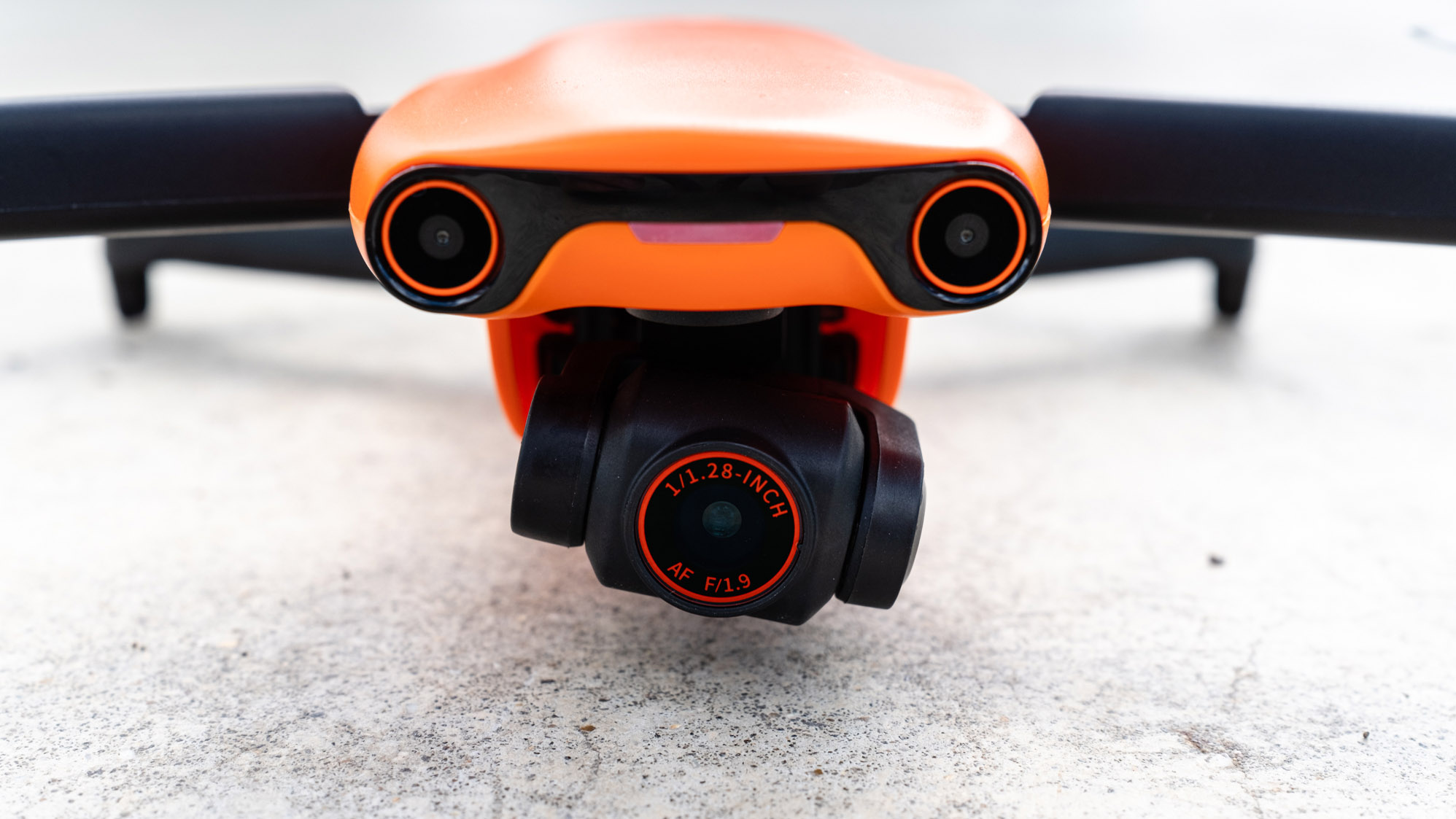
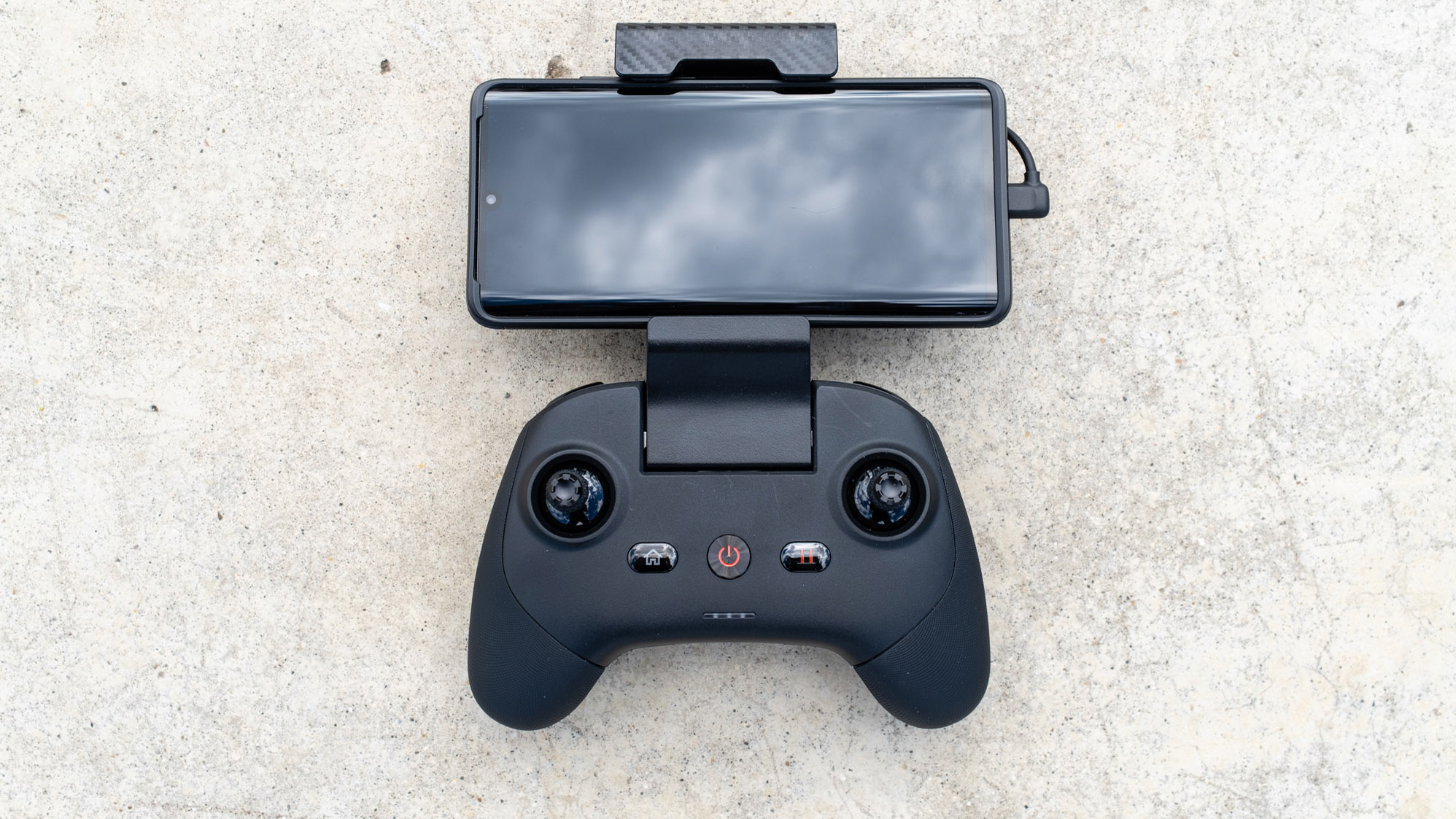
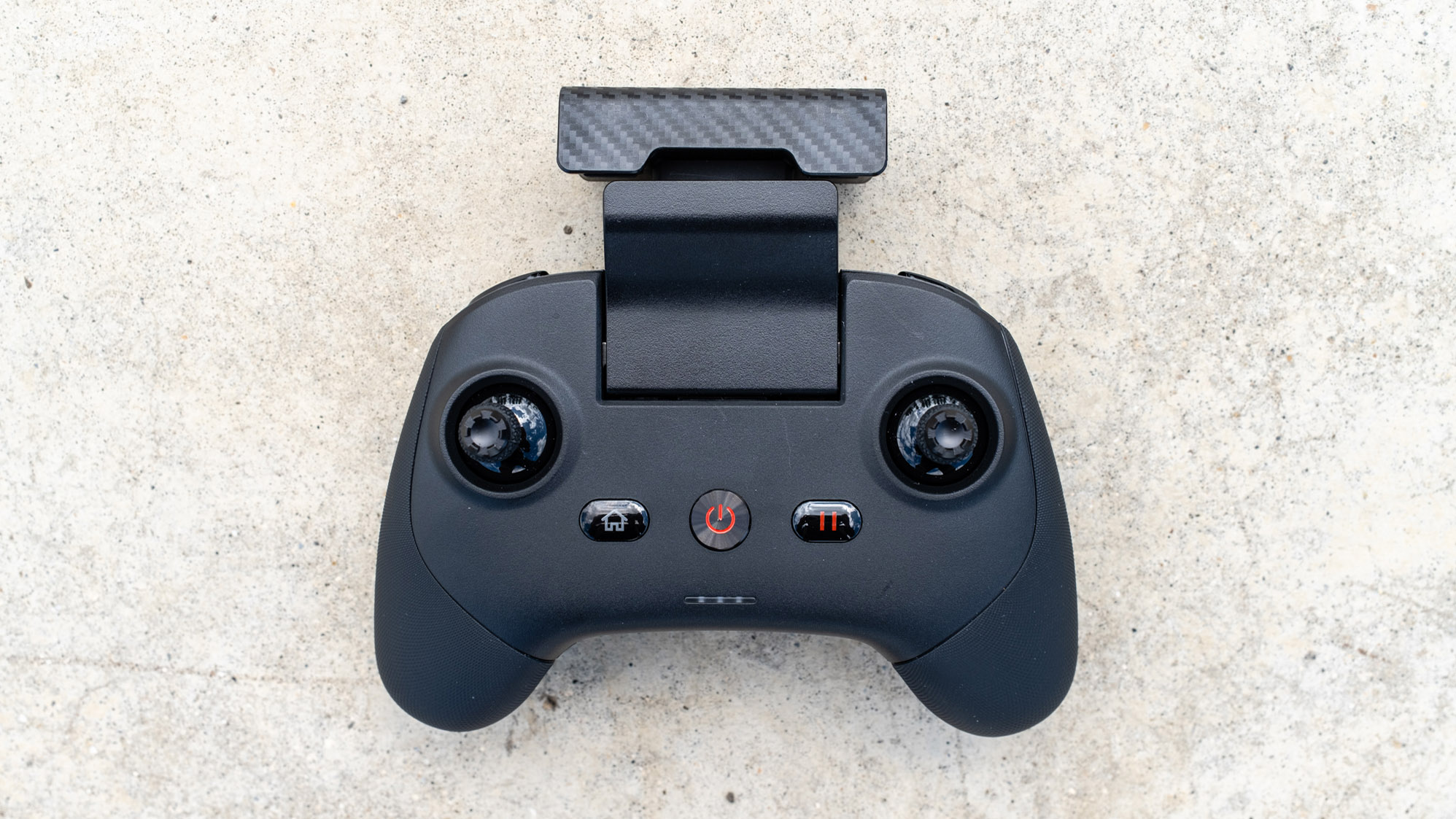
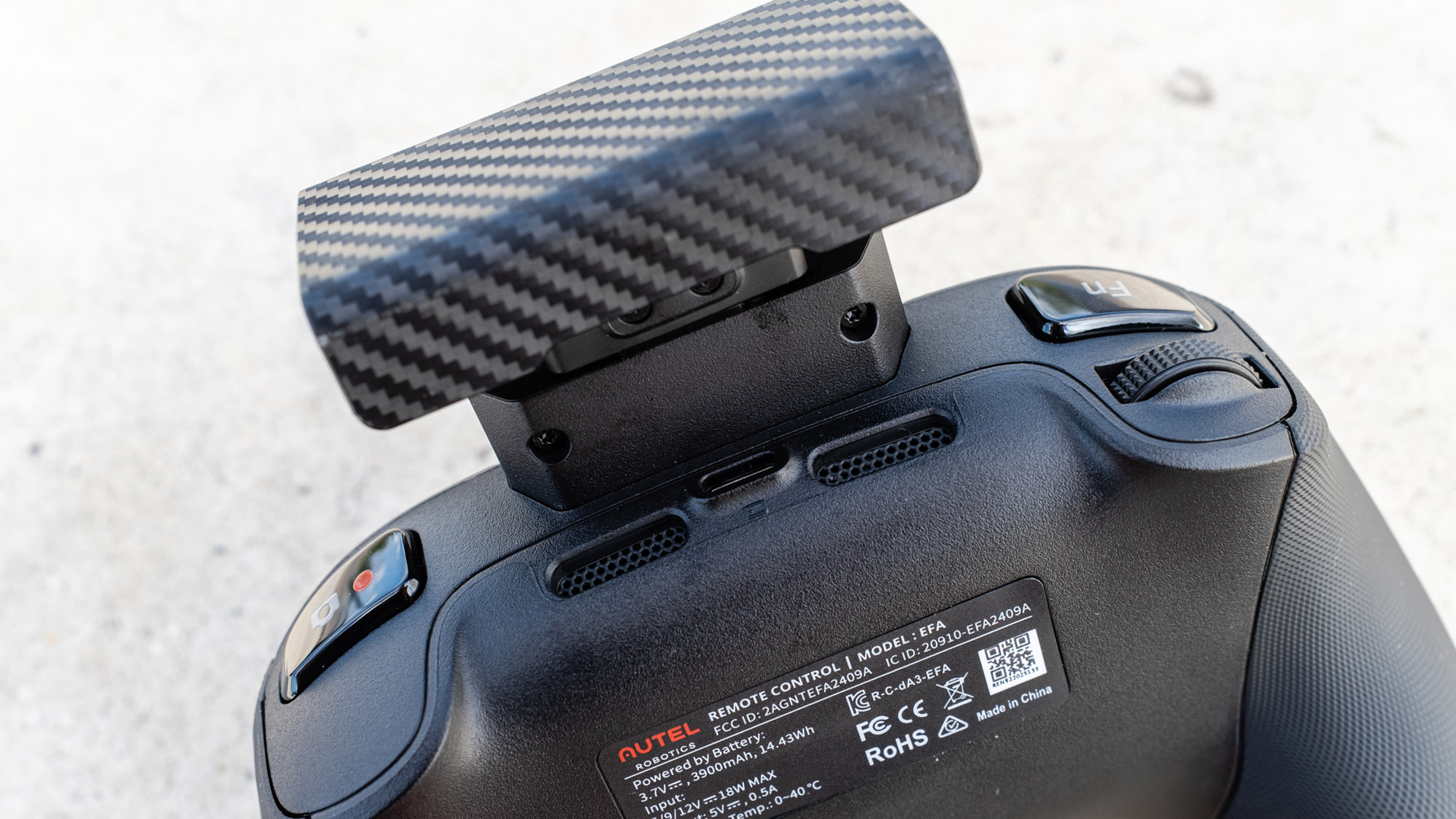
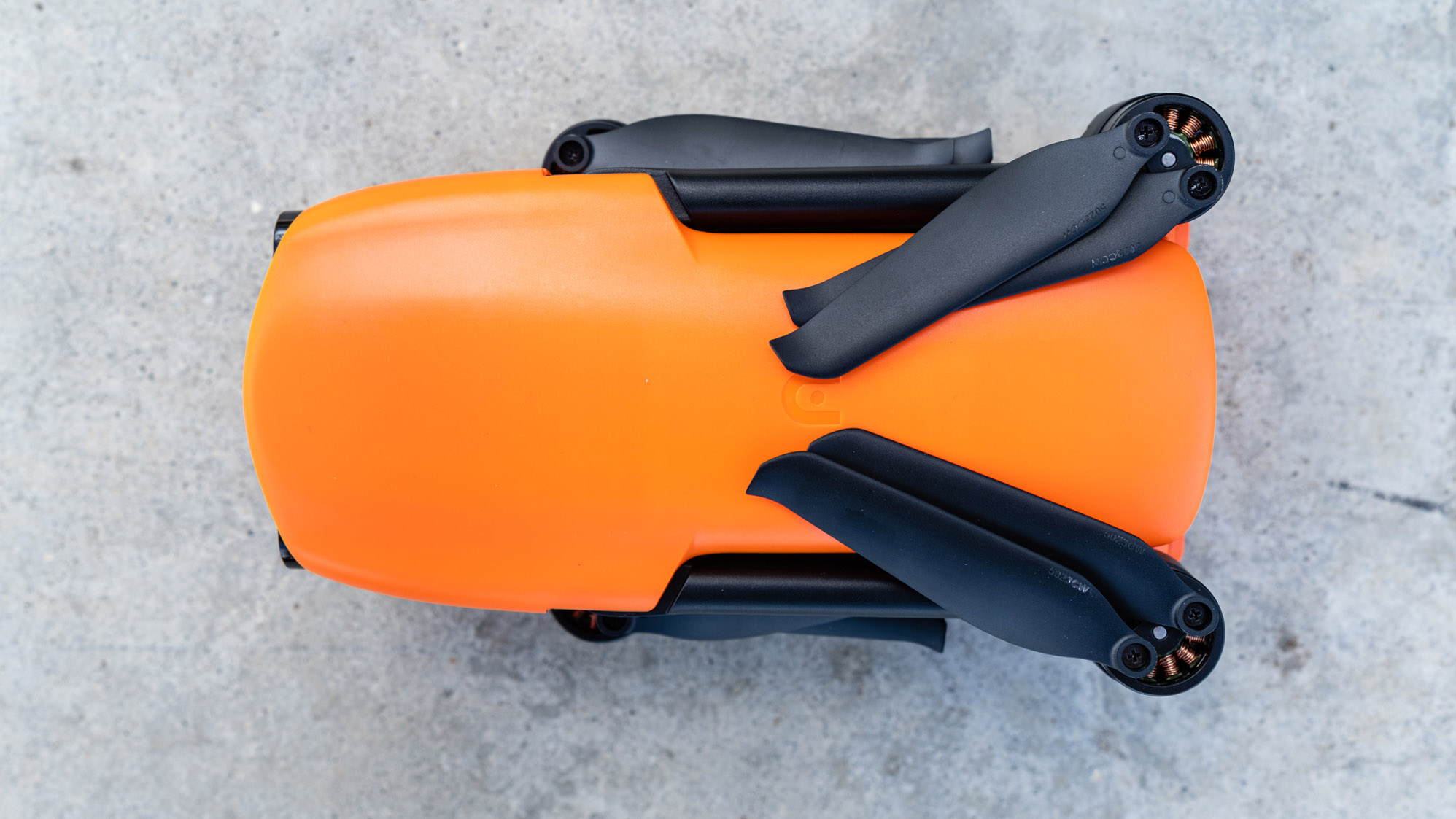
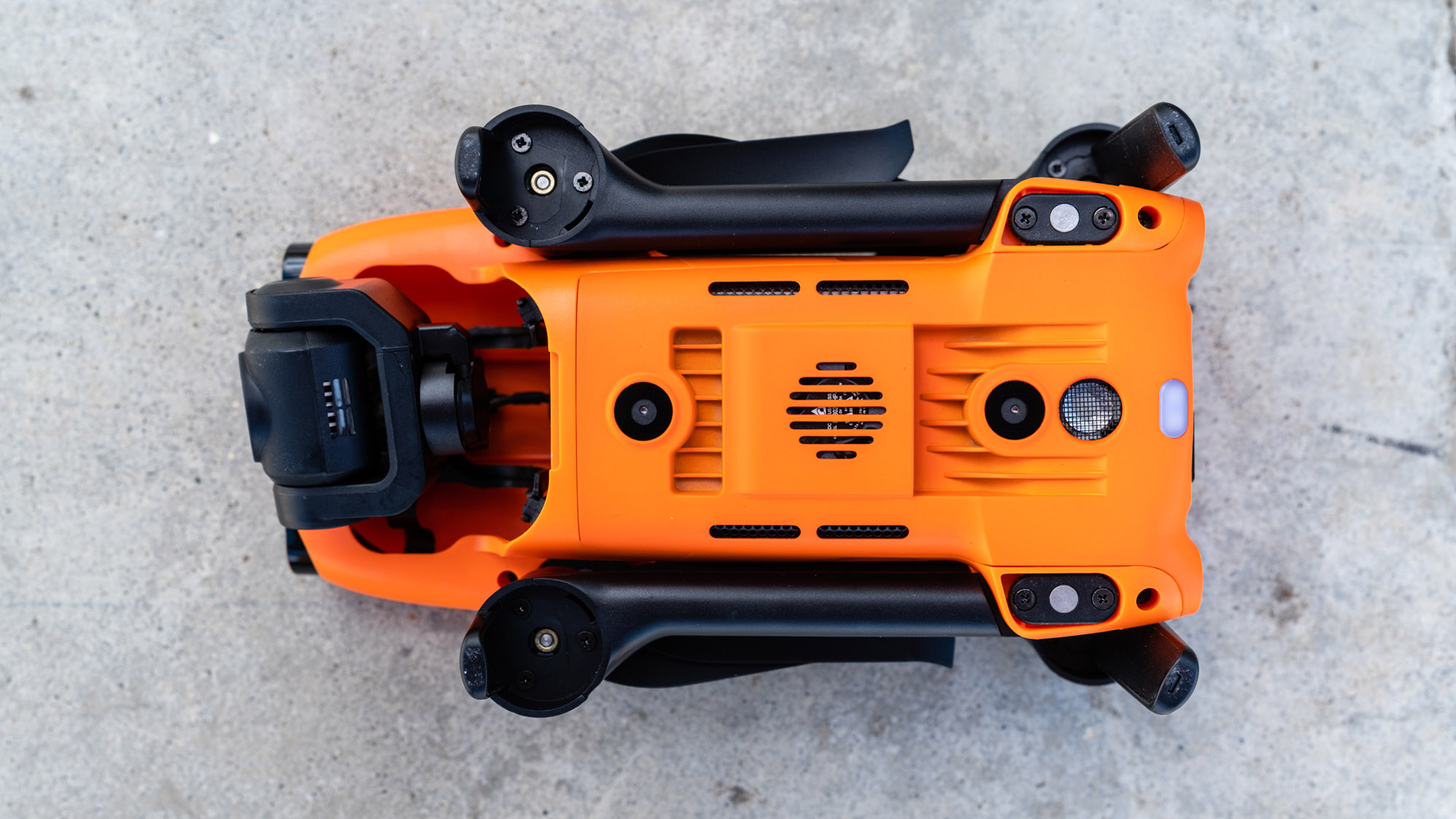
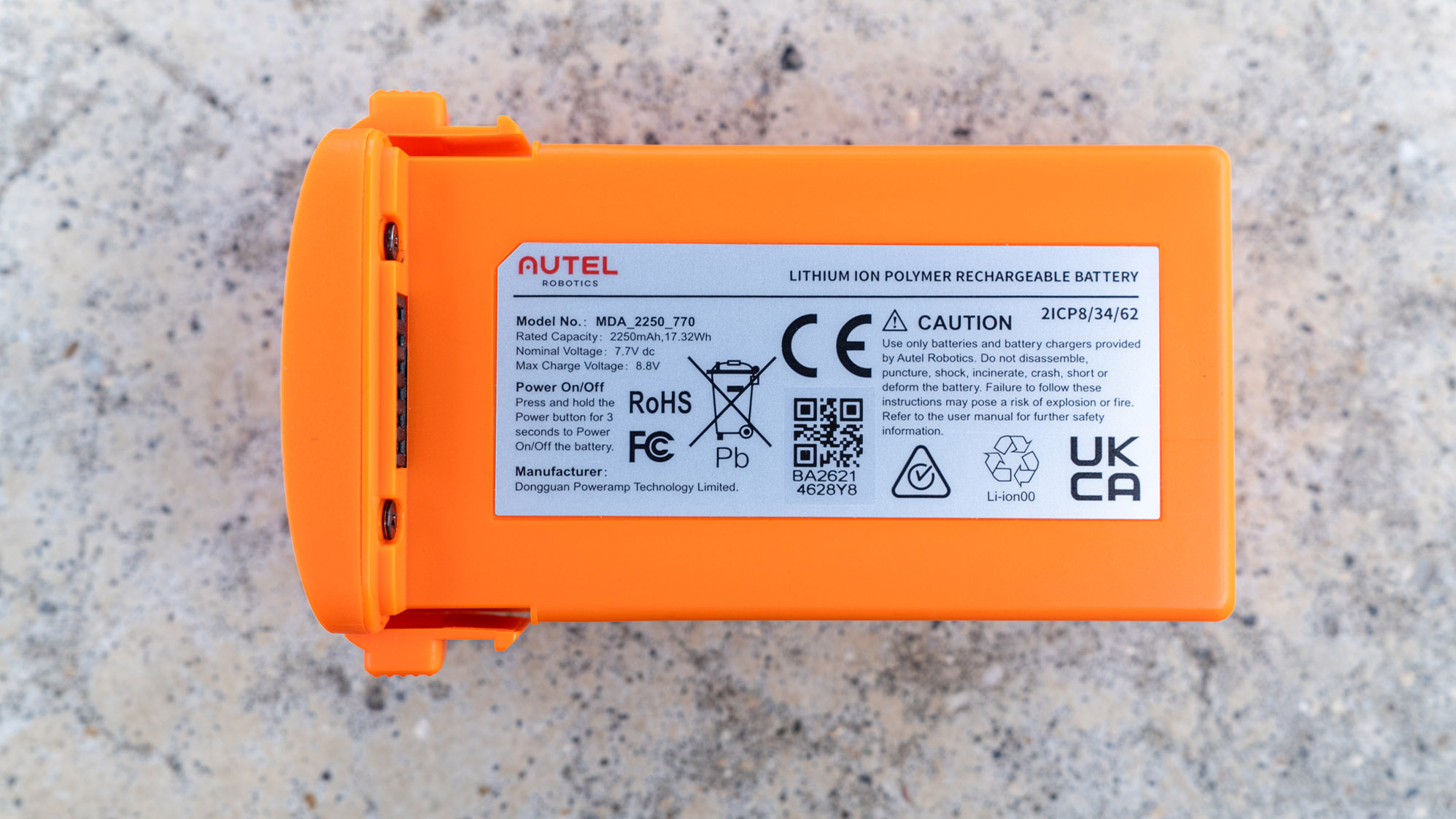
Specifications
Reasons to buy
Reasons to avoid
✅ You want to avoid having to negotiate regulations: Since it weighs under 250g this drone avoids some of the registration requirements set by the FAA in the US or the CAA in the UK.
✅ You want something easily portable: Weighing only 249g and measuring just 142 × 94 × 55mm when folded, this drone is easy to carry around on outdoor adventures.
❌ You want to film 4K slow-mo videos: The 4K setting on this drone's camera is limited to 30fps, so won't be enough for slow-mo filming.
❌ You don't like using an app: The controller doesn't come with a built-in screen and relies on the AutelSky app on your smartphone to work.
🔎 Autel EVO Nano+ This drone packs a lot of big-hitting features into a light and compact package. It's easy to use for beginners, with effective collision avoidance technology, and its light weight means it isn't subject to as many regulations, so it's relatively hassle-free for those new to drone photography. ★★★★
Available in four different colors; Classic Orange, Deep Space Gray, Blazing Red, and Arctic White, the Autel EVO Nano+ is a regulator-friendly sub-250g drone. This foldable mini-drone is highly portable and offers excellent collision avoidance to deliver peace of mind when flying close to obstacles. This is a great feature for beginners and experienced pilots alike.
The drone's controller has a built-in phone holder, and to access all the controls, you'll need to download the AutelSky app. The controller feels comfortable to hold, and we found the AutelSky app easy to understand and use in our Autel EVO Nano+ review. The thumb sticks on the controller strike a good balance, being responsive without being too sensitive.
Autel drones are highly regarded for their collision avoidance and the Nano+ is no exception. This feature utilizes three-way binocular vision sensors positioned at the drone's front, bottom and rear to detect obstacles. When obstacles are detected, the drone will automatically slow down or stop, but it can sometimes be a little too sensitive.
Regarding camera features, the EVO Nano+ sports a very respectable 12.5MP 1/1.28-inch sensor with an equivalent focal length of 23mm and a fast f/1.9 aperture. This means it excels at shooting in low-light conditions, but you'll need to use ND filters to maintain its shutter speed if you want to shoot smooth-looking video.
Video is available up to 4K at 30fps and is clear and crisp. Image quality when shooting stills is good, but there is a small amount of fall-off in sharpness towards the edges of the frame. There’s also a small amount of vignetting visible alongside chromatic aberration along subject edges, but these can be easily fixed in Raw editing software such as Adobe Lightroom.
- Read our full Autel EVO Nano+ review
Attributes | Notes |
|---|---|
Design | Compact and lightweight with advanced features. |
Functionality | Collision avoidance and automated flight modes. |
Performance | Fast f/1.9 aperture great for low-light conditions. |
Best for portability
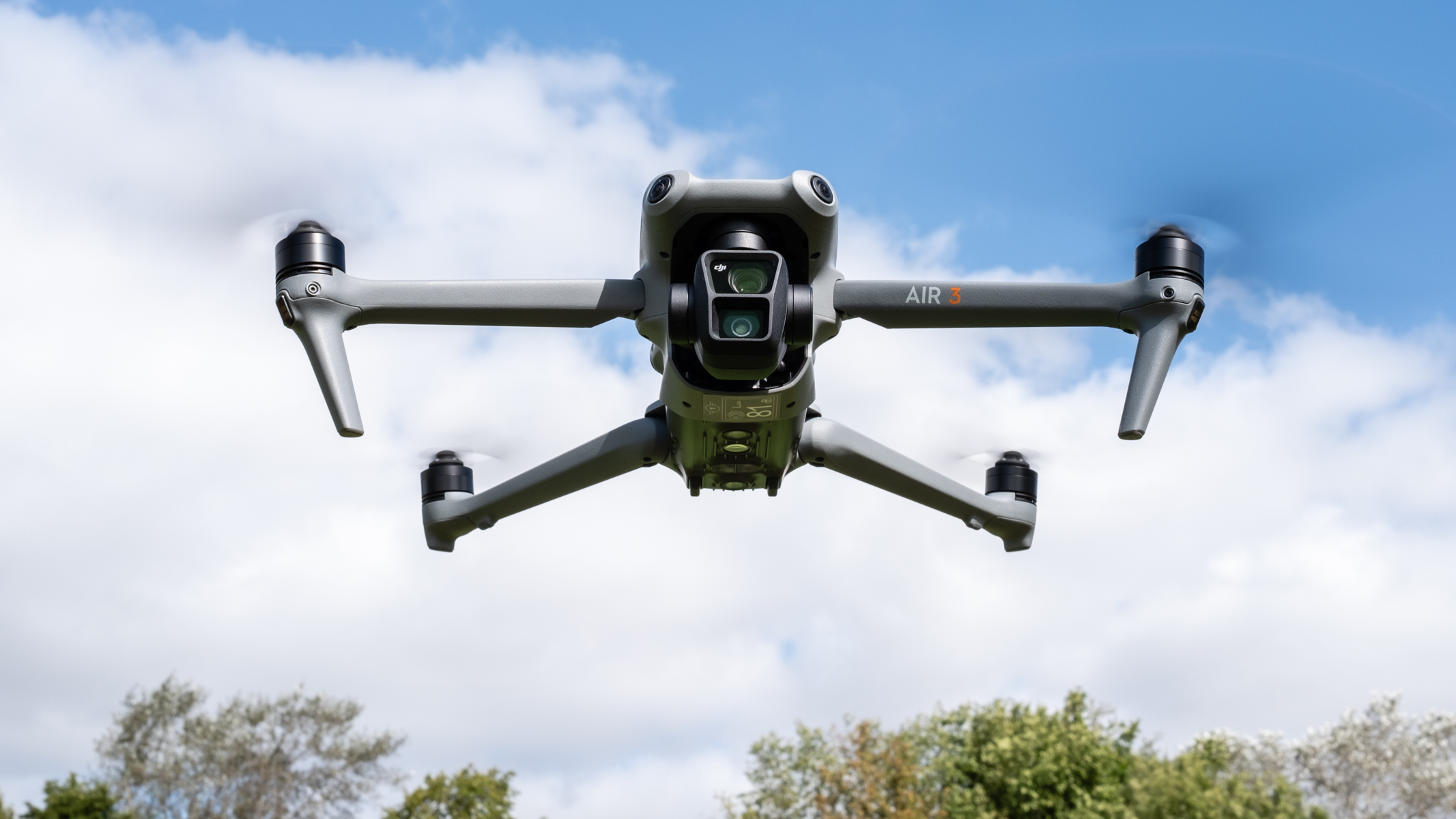
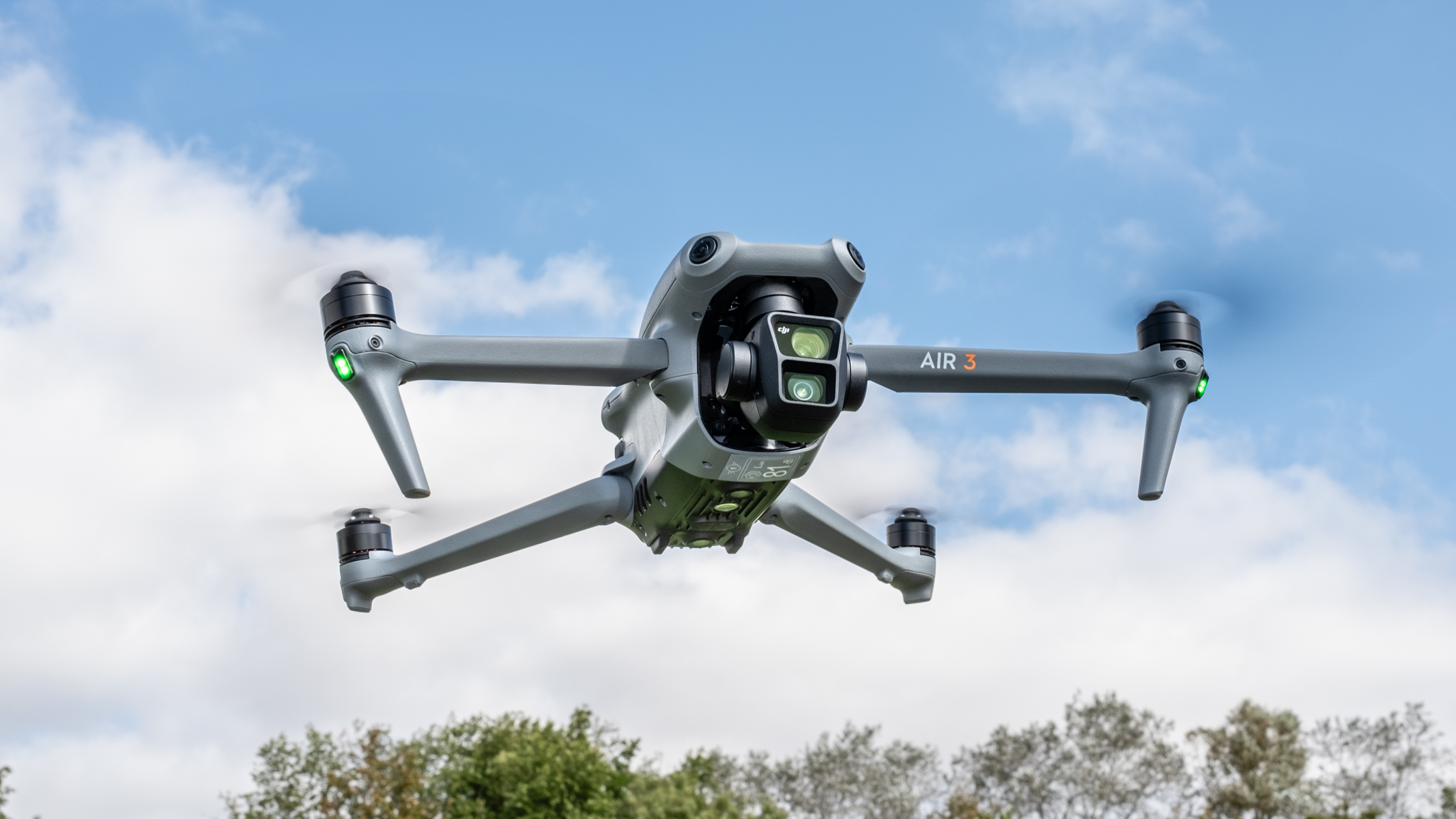
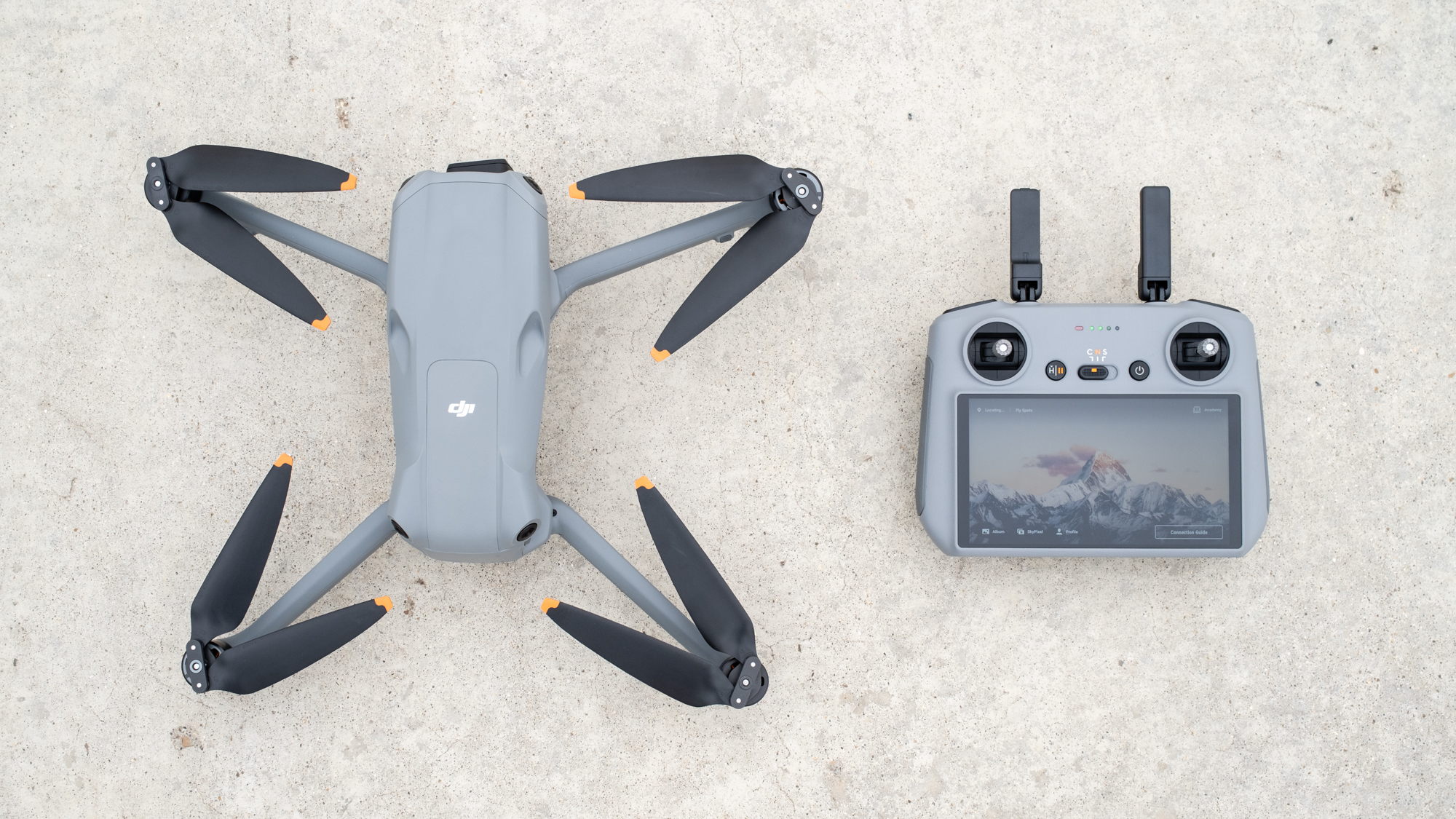
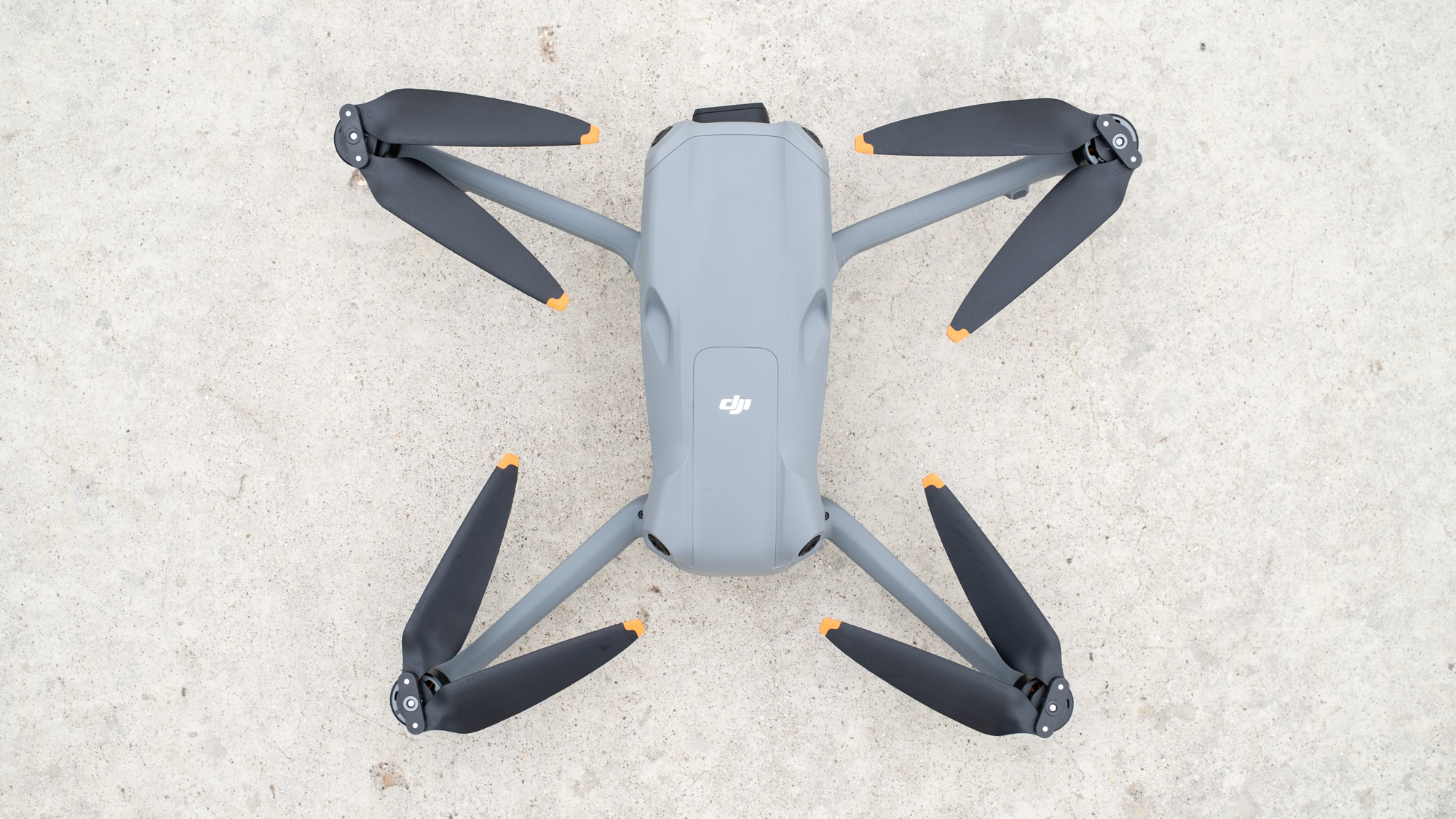
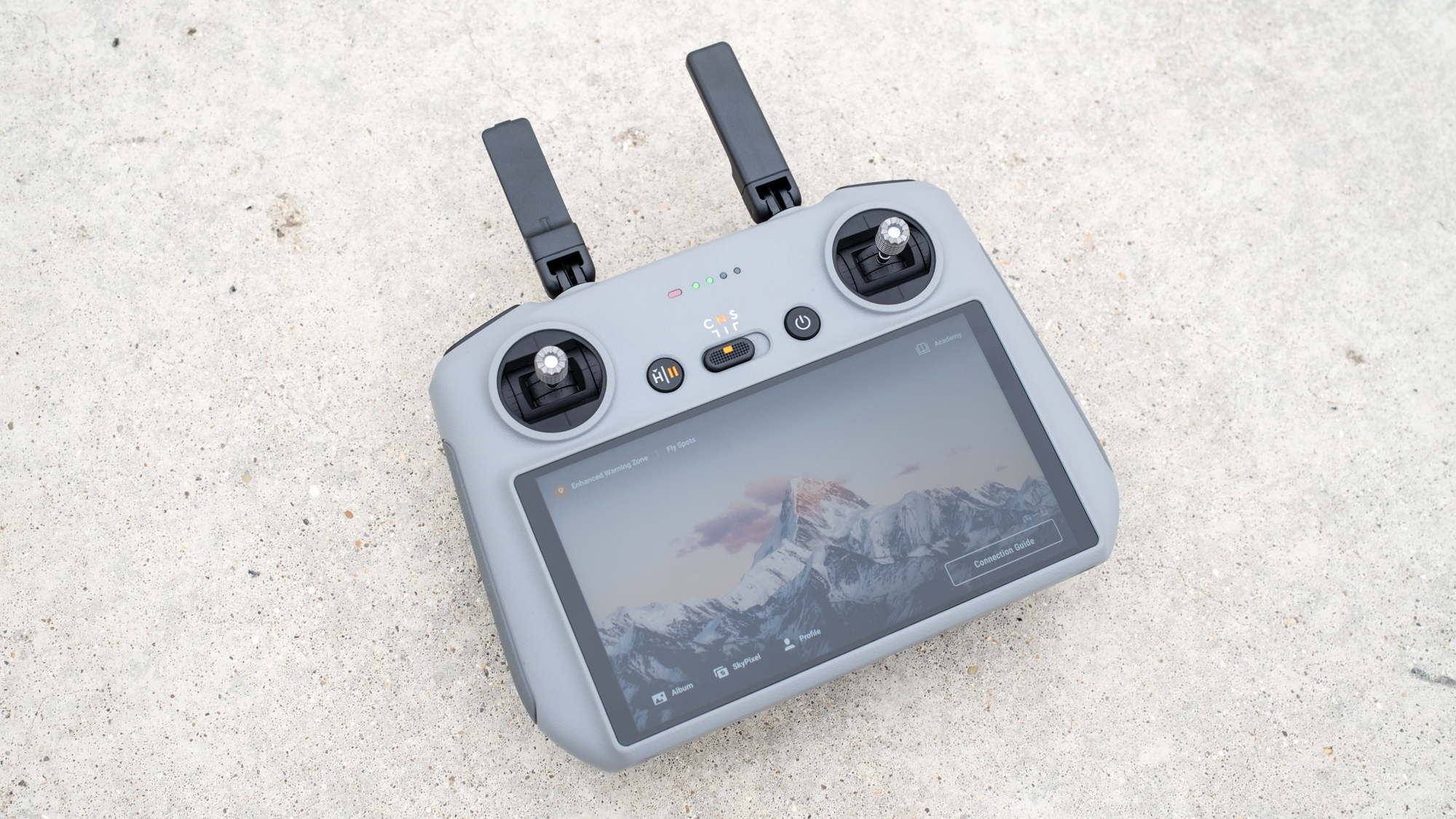
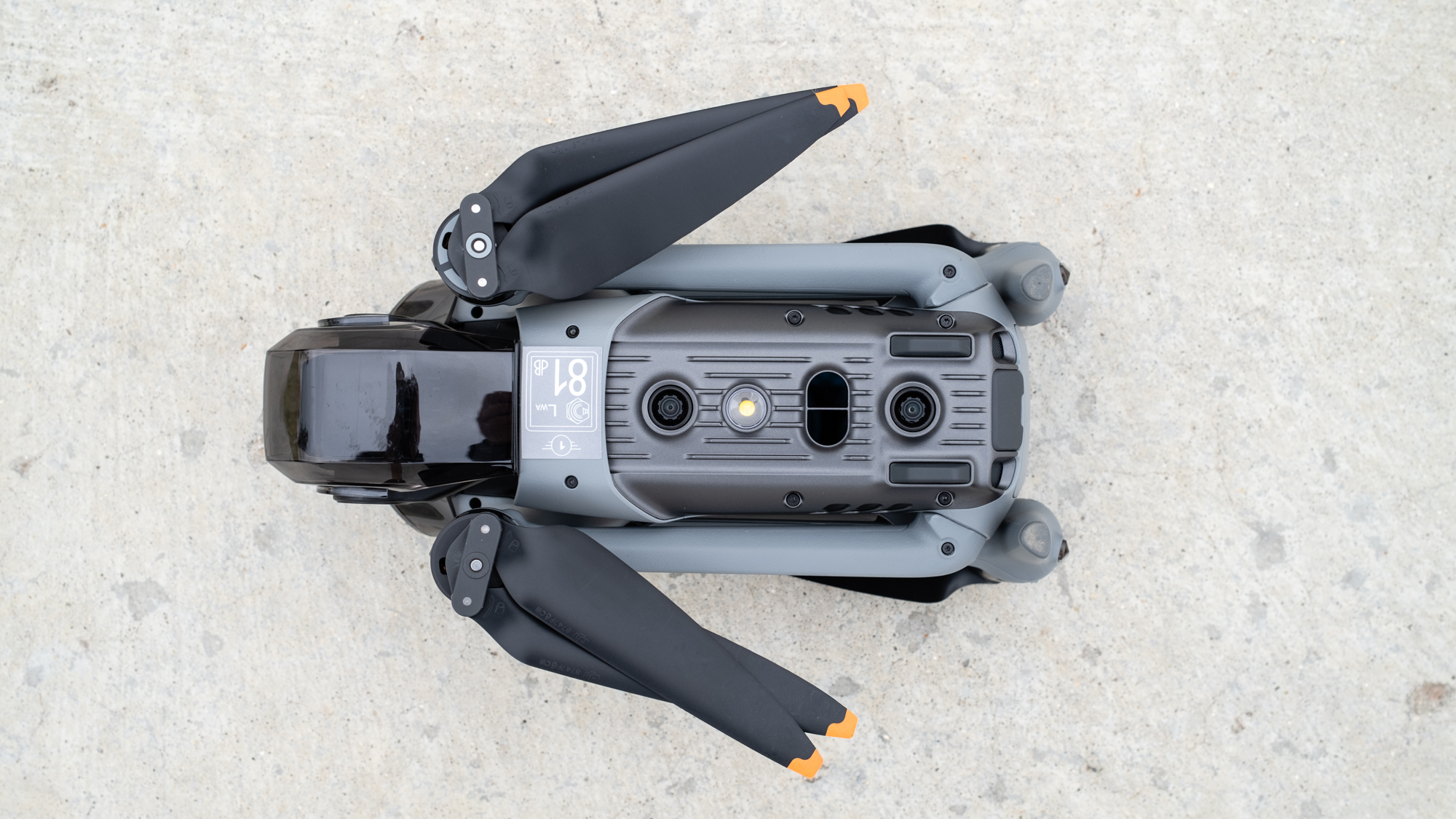
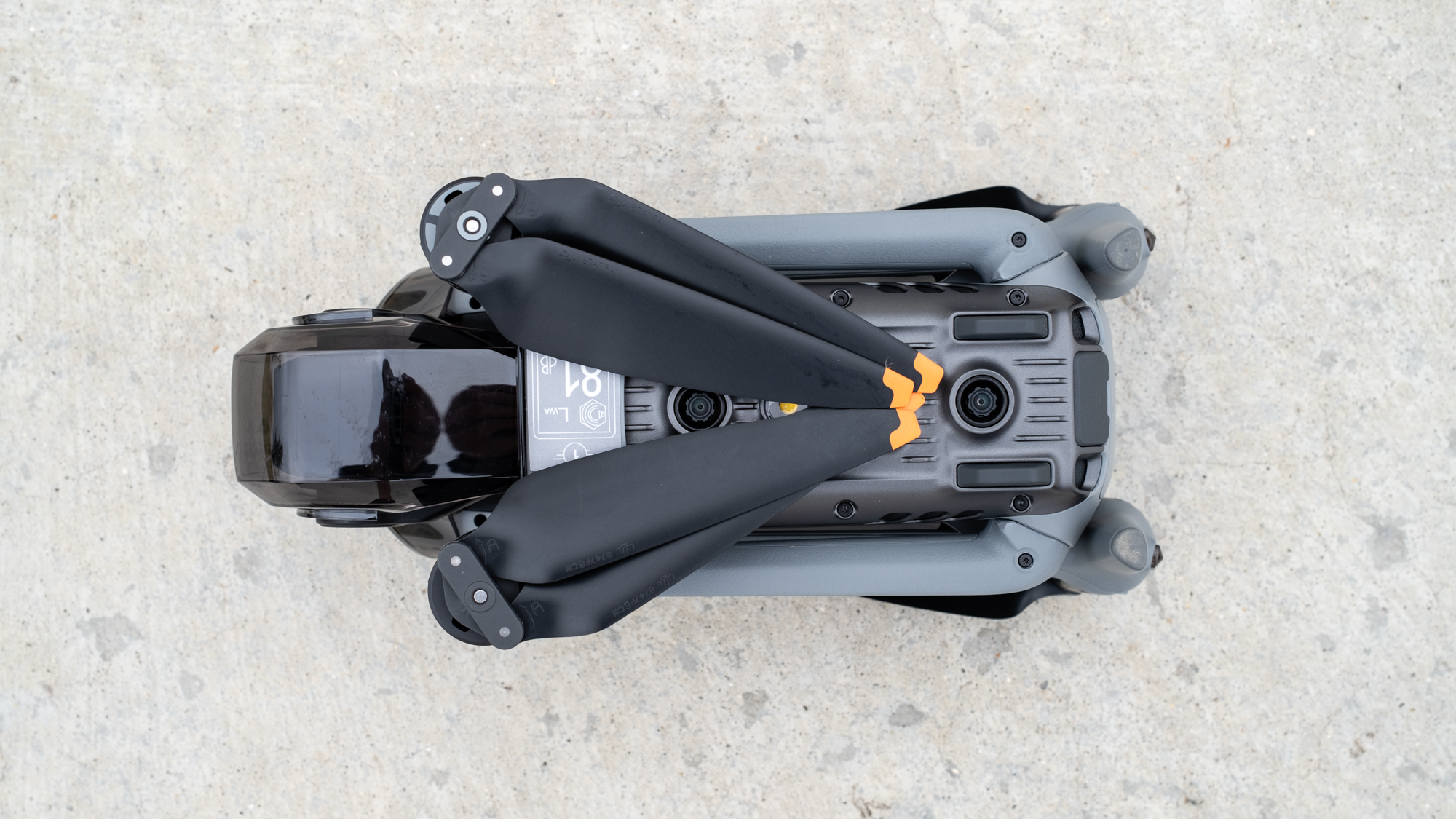
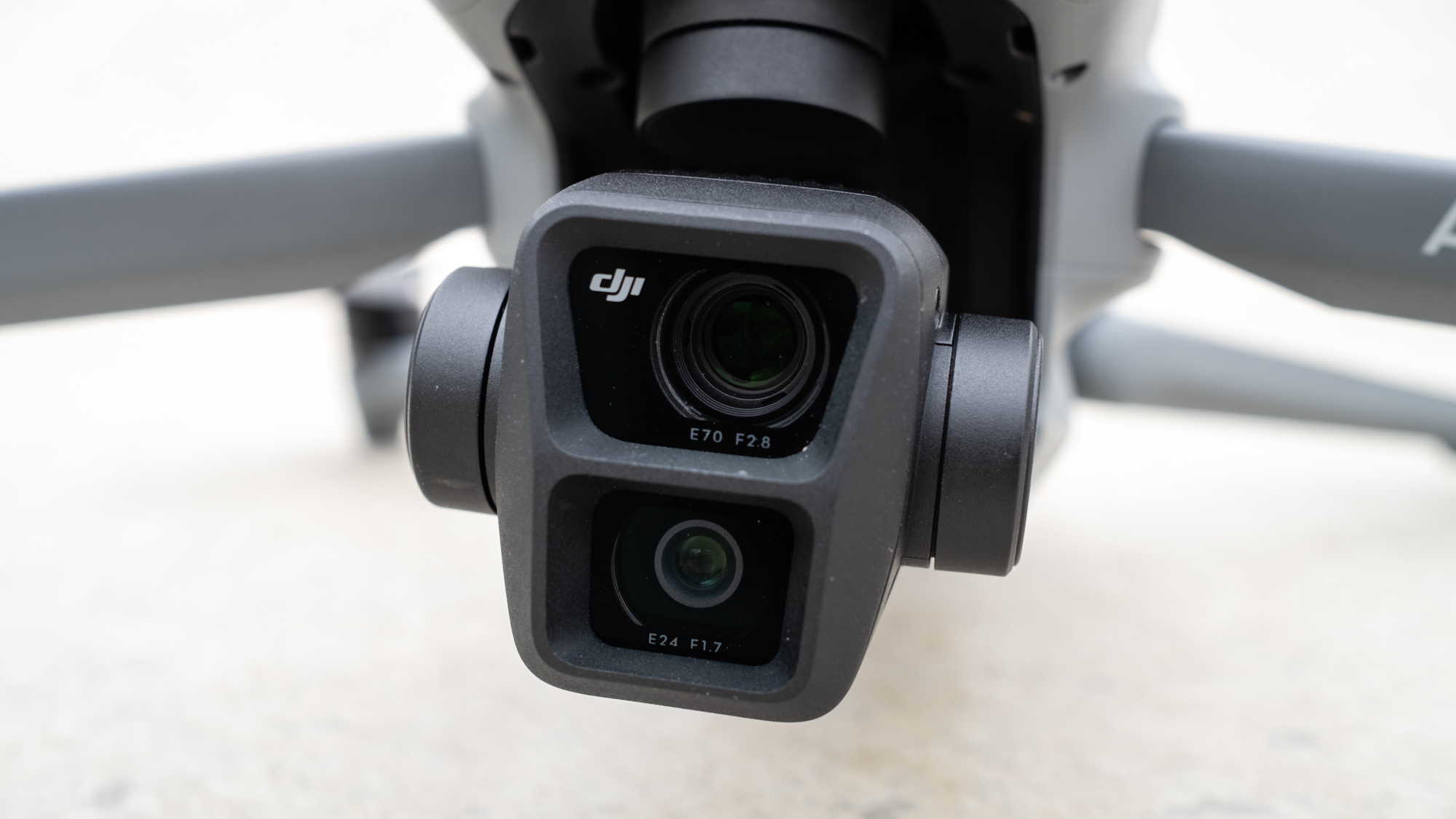
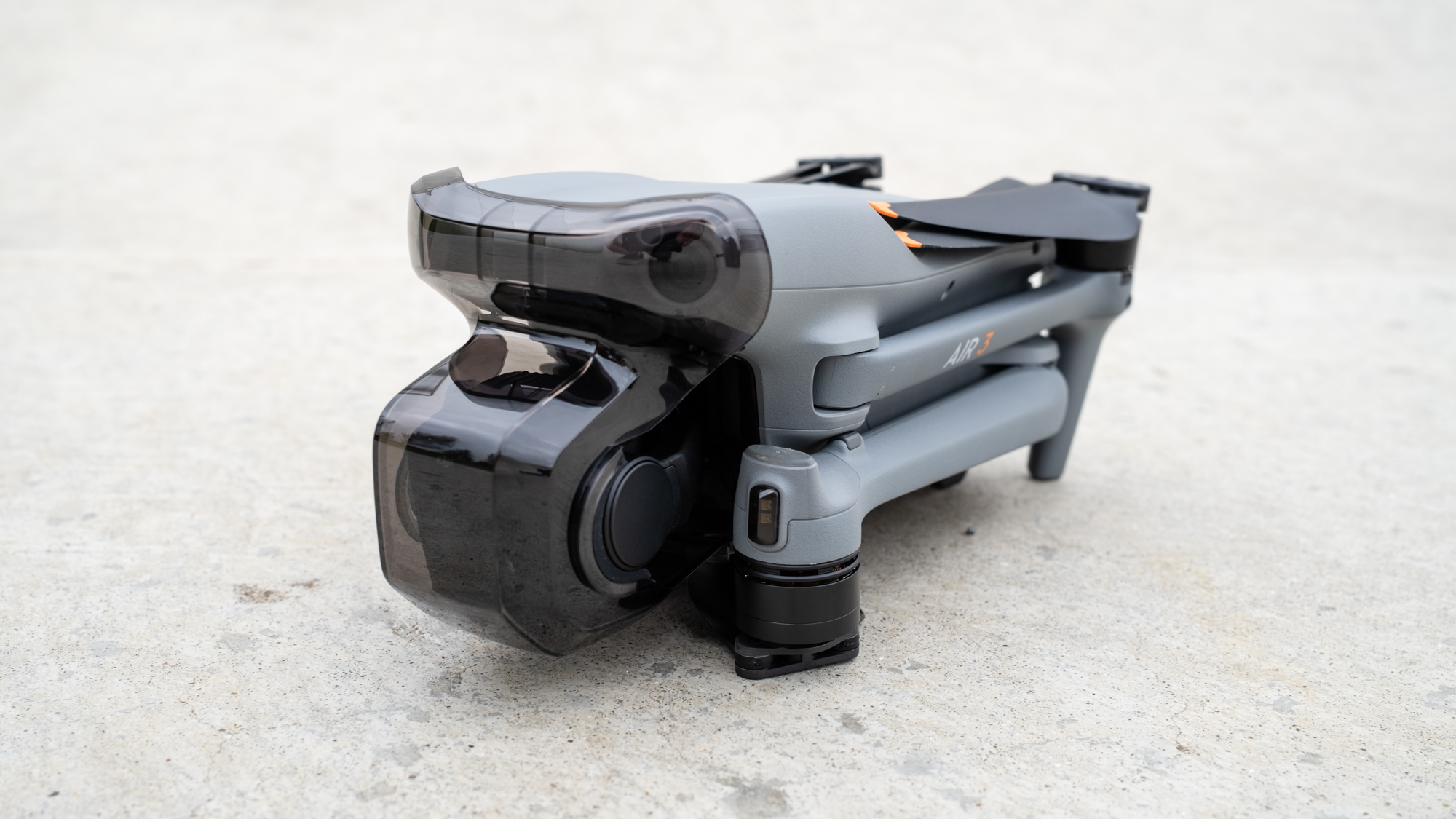
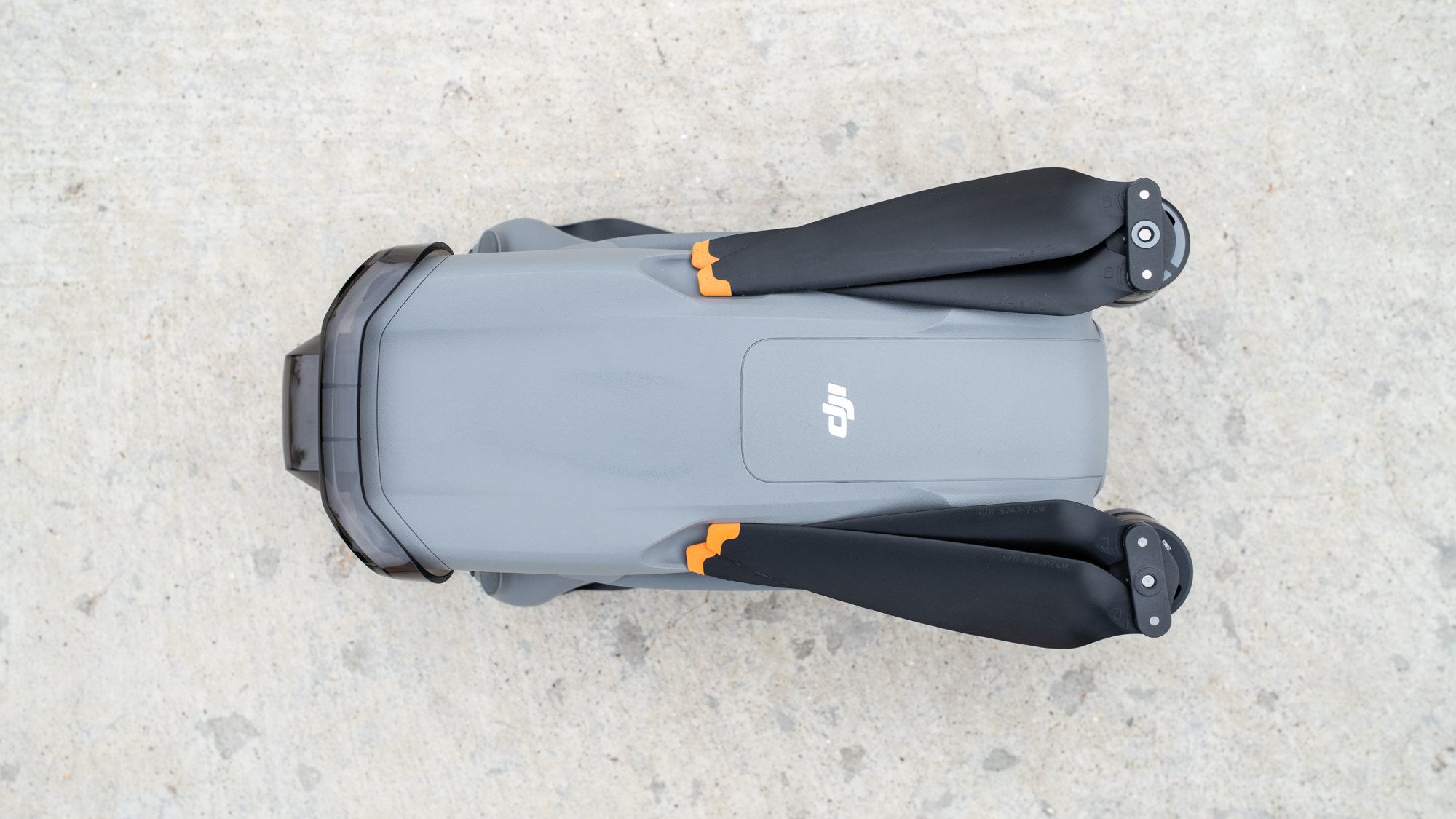
Specifications
Reasons to buy
Reasons to avoid
✅ You're looking for excellent optics in a small package: This is the smallest and lightest of the drones that come with a one-inch sensor, so it strikes an ideal balance between image quality and portability.
✅ You want to grow with it: It has user-friendly features to suit beginners coupled with image quality and video specs to suit more advanced users, meaning you won't be upgrading as quickly.
❌ You need an adjustable aperture: The aperture on this drone's cameras are fixed, so you'd need to use ND filters to control shutter speed when filming video.
❌ You need a smaller drone: This is a medium size drone, so if you'd like something smaller and lighter consider the DJI Mini 4 Pro instead.
🔎 DJI Air 3: The main selling point of this drone is that it offers portability without compromising on excellent image quality. That makes it ideal for keen photographers and videographers who like to carry a drone with them on days out, but the fixed aperture may be a deal-breaker for some. ★★★★½
The DJI Air 3 is a mid-sized, mid-powered drone sporting a folding design that helps it to maintain its portability credentials. Features, image quality and overall performance are excellent, so this is a drone that you can rely on in almost any situation. It's not a professional model, but it could be used in this context and has some seriously advanced features more commonly seen in higher-end DJI drones.
It sits nicely between the Mini and Mavic line-ups from DJI, being much more compact than the Mavic models, although not much lighter in weight. During our full DJI Air 3 review, we found that the drone didn't miss a beat when we tested it with wind gusts just below its maximum wind resistance of 27mph. The battery life has also been significantly improved, giving us around 35 minutes of flight time in low wind conditions before Return to Home was suggested at 20% battery.
Instead of just one camera, the Air 3 comes with two cameras. Both cameras use the same high-quality 12MP/48MP 1/1.3-inch sensor found in the Mini 3 Pro and Mini 3 models, with the key distinction being that one camera has a 24mm lens, while the other has a medium telephoto lens at 70mm.
We were also impressed with the Omnidirectional Obstacle Sensing system, which enables you to fly closer to obstacles like trees and buildings with peace of mind that you won't crash into them (but don't rely solely on this feature to avoid crashing). This feature makes it a great drone for beginners who want to hone their flying skills but still get fantastic images and videos, and we also think it suits more experienced fliers, too. It's not a cheap drone, but considering its array of features, specs, and how long you're likely to have it, we think it's worth the investment.
The Air 3 is available with three different controller options which are on a sliding price scale. At the lower end, there's the DJI RC-N2 controller which requires a smartphone and DJI Fly app, while the other two options are smart controllers featuring built-in screens. This means you can select the best option for your budget, but the most expensive smart controller is the best by far if you can justify it.
- Read our full DJI Air 3 review
Attributes | Notes |
|---|---|
Design | Folding portable design. |
Functionality | Dual cameras provide excellent image quality. |
Performance | User-friendly safety features make it great for users of all experience levels. |
Best DJI mini drone
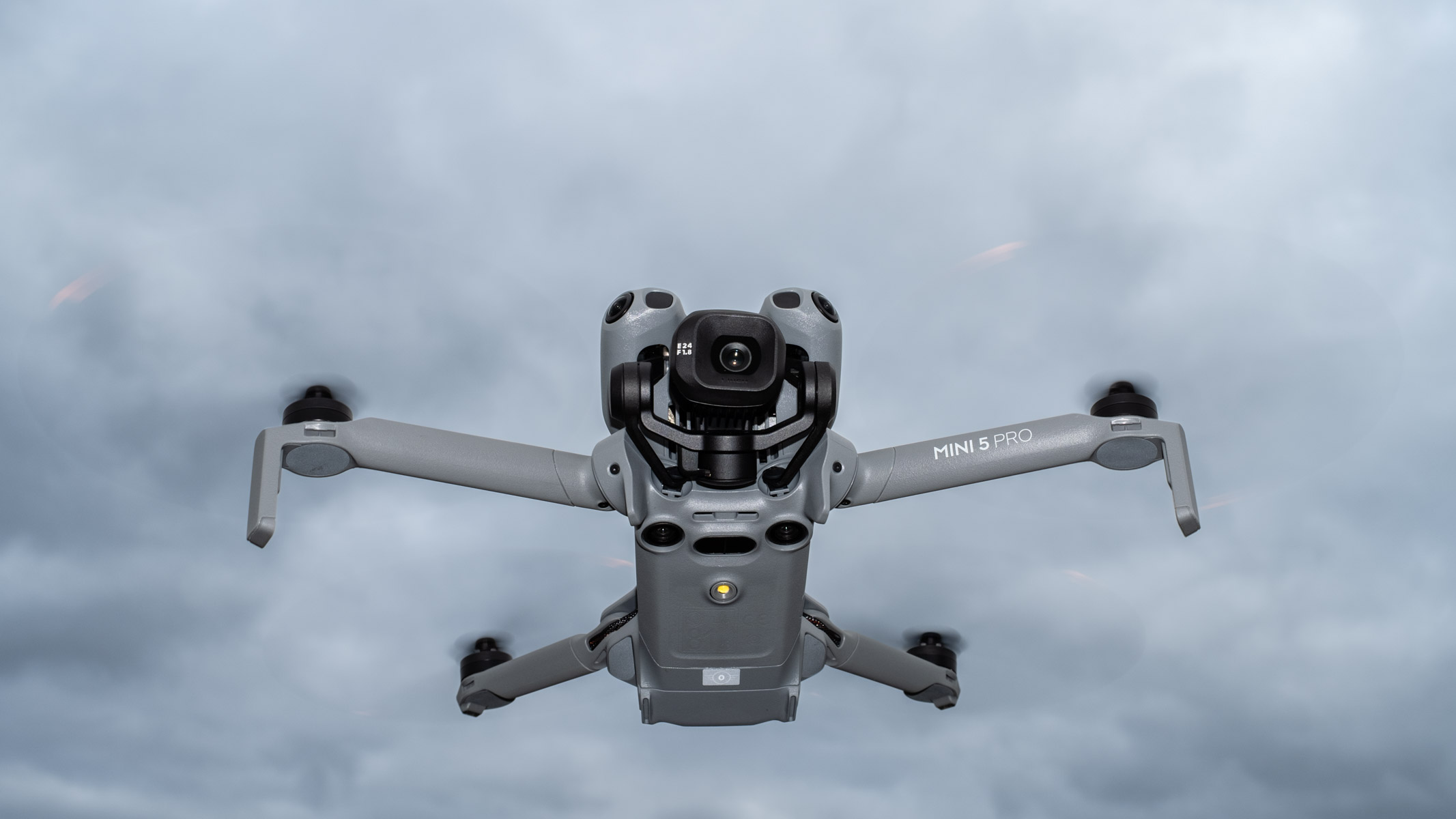
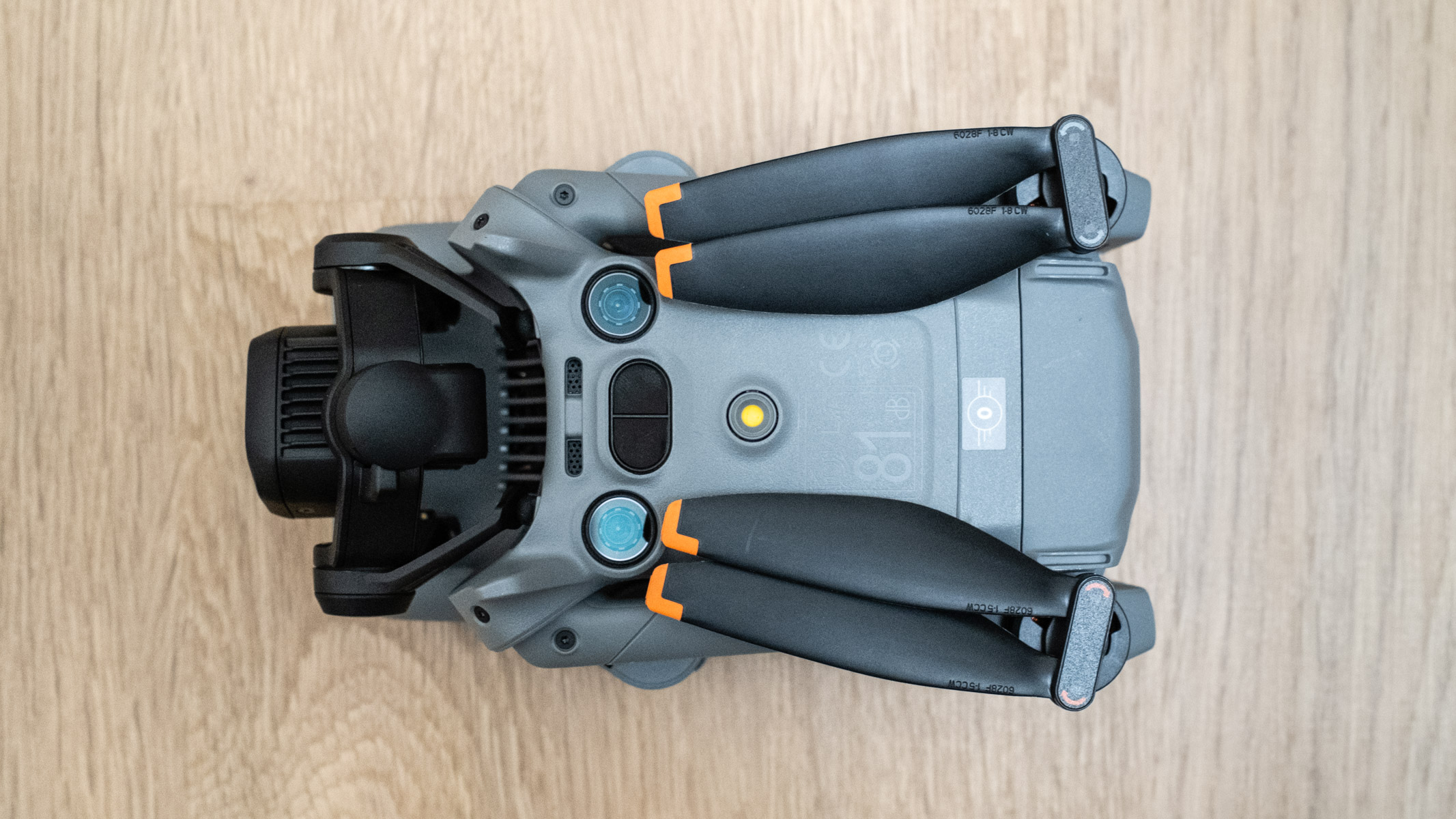
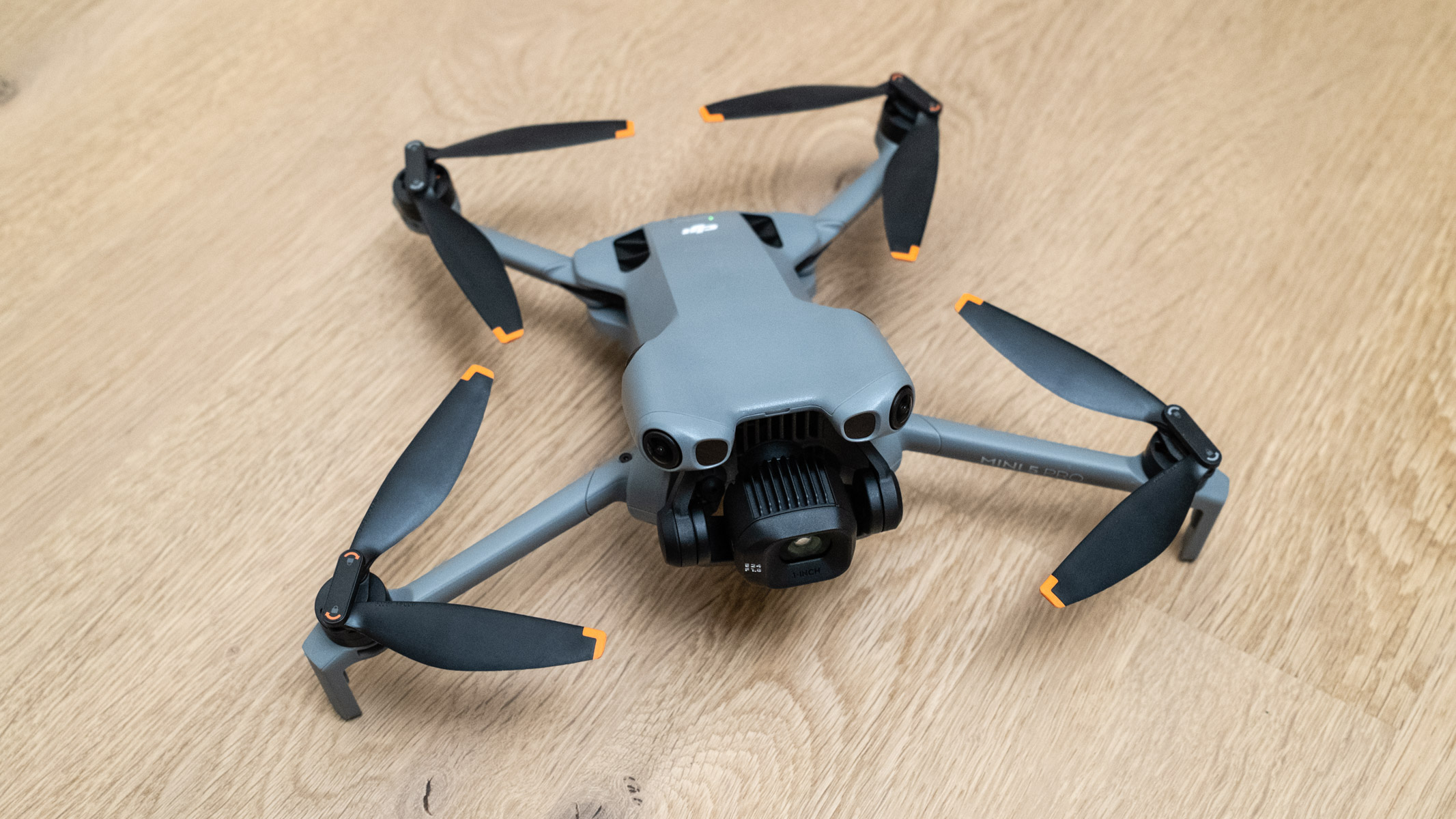
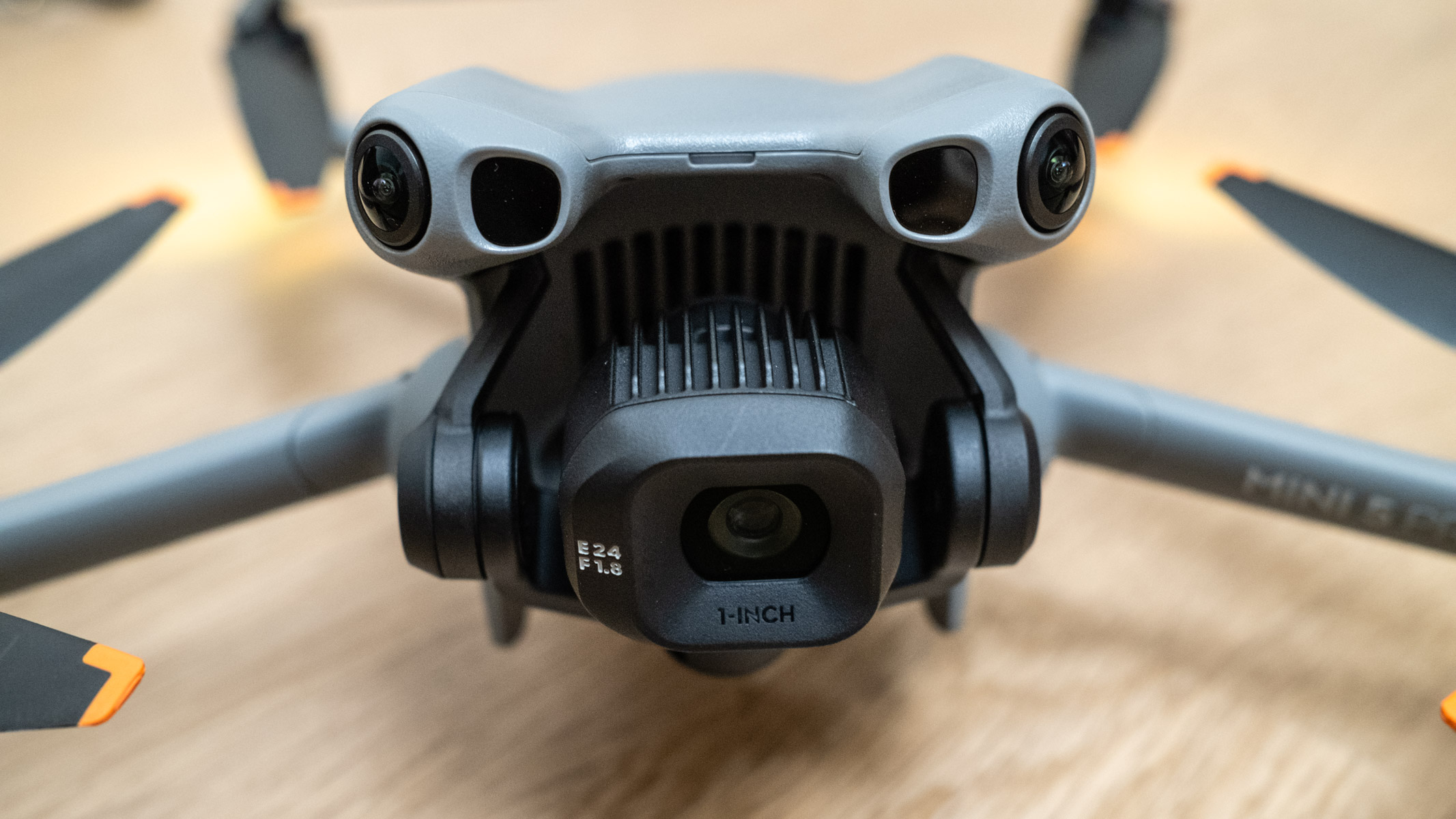
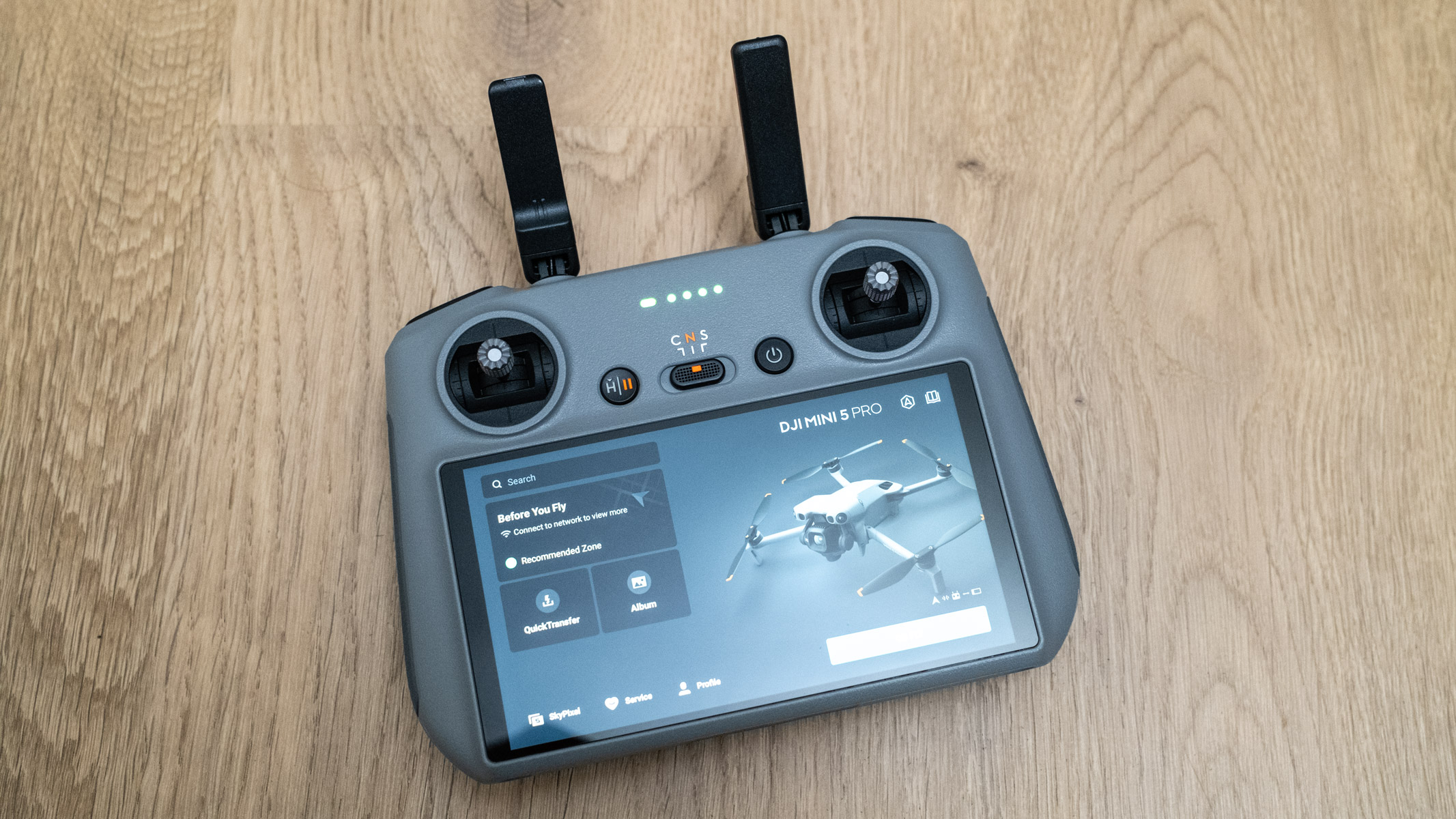
DJI Mini 5 Pro
Our expert review:
Specifications
Reasons to buy
Reasons to avoid
✅You want the best sub-250g drone out there: With a 50MP 1-inch sensor, 4K video capabilities, advanced sensors and tracking and a good battery life, the DJI Mini 5 Pro is the best sub-250g model on the market.
❌ You don’t need pro-spec features: If you’re a beginner looking for excellent image quality at a lower cost, the DJI Mini 3 is a good starting point and uses the same camera as the Mini 4 Pro, which you might now find for a lower price, but offers fewer advanced features overall.
🔎 The DJI Mini 5 Pro is the best sub-250g drone offering excellent image quality and pro-level camera features. It's a big step up from its predecessors and is packed with useful features, technology and a great camera. ★★★★½
The DJI Mini 5 Pro is the most advanced sub-250g drone available, offering features and functionality worthy of the 'pro' moniker. The camera quality and the step up in technology from its predecessors give advanced pilots a more-than-satisfactory flying experience while staying regulator-friendly due to its weight. No, it doesn't compete with larger, more powerful models, but they're not the Mini 5 Pro's competition, anyway.
This drone packs a punch when it comes to camera quality. A 1-inch, CMOS sensor in a 24mm f/1.8 camera allows you to capture images with either 12 or 50MP, both in JPEG and RAW format. You can also capture footage in a range of quality from 8-bit to 4K up to 120 FPS. The camera is fully rotatable and cine mode and automated flight patterns allow you to capture video with Mastershots, Quickshots and free panorama.
Touching on the modes and features, the Mini 5 Pro features three modes: Cine, Sport and Normal. Cine prioritizes camera capabilities while Sport maximizes flight performance. Normal will find the balance for casual flying. It also features advanced Return to Home and Omnidirectional Obstacle Sensing. While it isn't a selfie drone, it does also feature 360-degree subject tracking, all of which are impressive.
Lastly, there's the price. While it isn't necessarily cheap, it does provide good value for money. While some newer DJI models can be a little tricky to get a hold of in the U.S., in the UK, a DJI Mini 5 Pro will set you back £689. If your budget stretches far enough, we would recommend getting one of the Fly More bundles, which will cost between £869 and £979.
Attributes | Notes |
|---|---|
Design | sub-250g with a foldable design, 1-inch sensor |
Functionality | Omnidirectional sensing, rotating camera, subject tracking |
Performance | Excellent image quality, 50MP 1-inch sensor, 24mm f/1.8 camera |
Best cheap mini drone
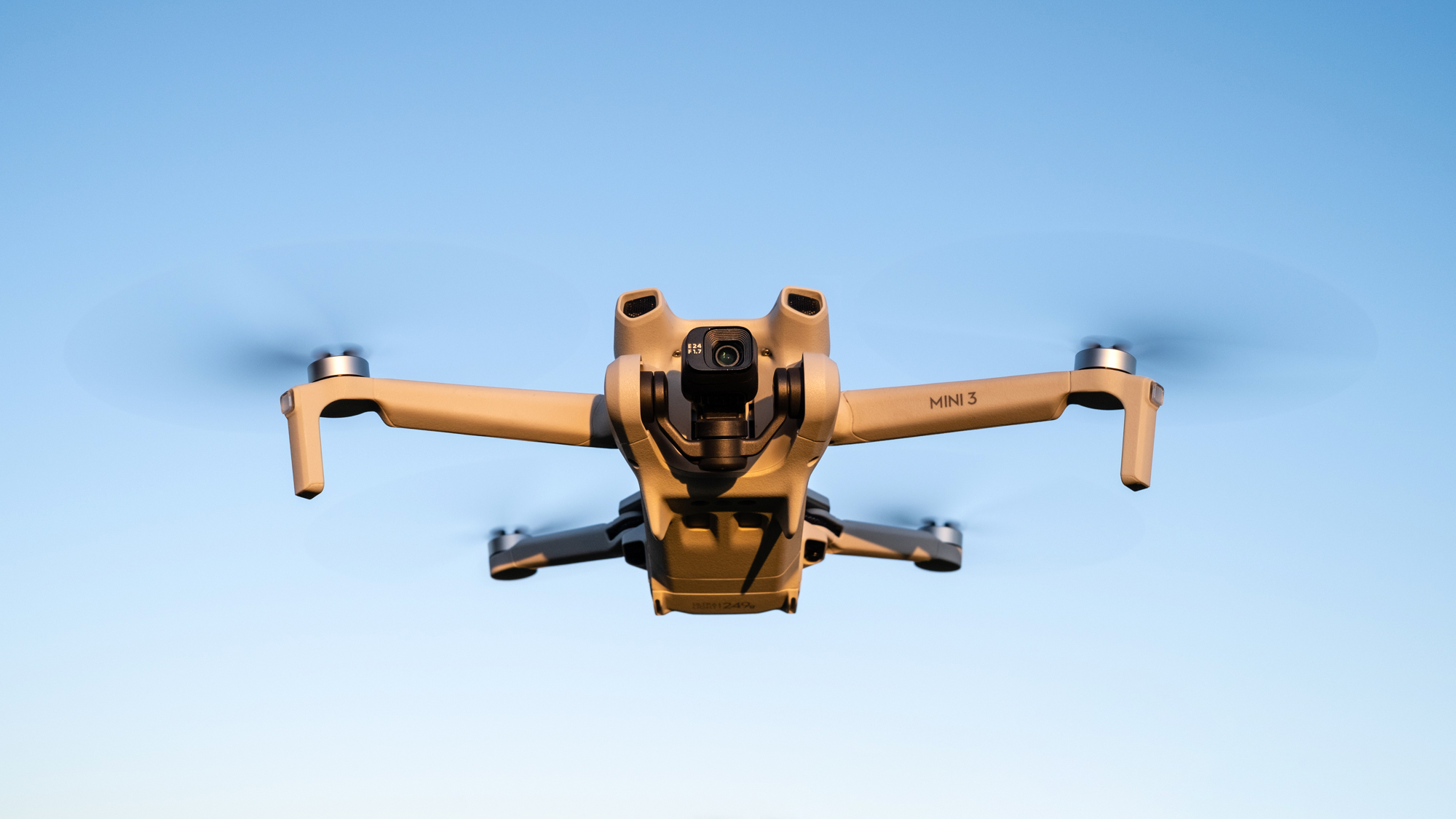
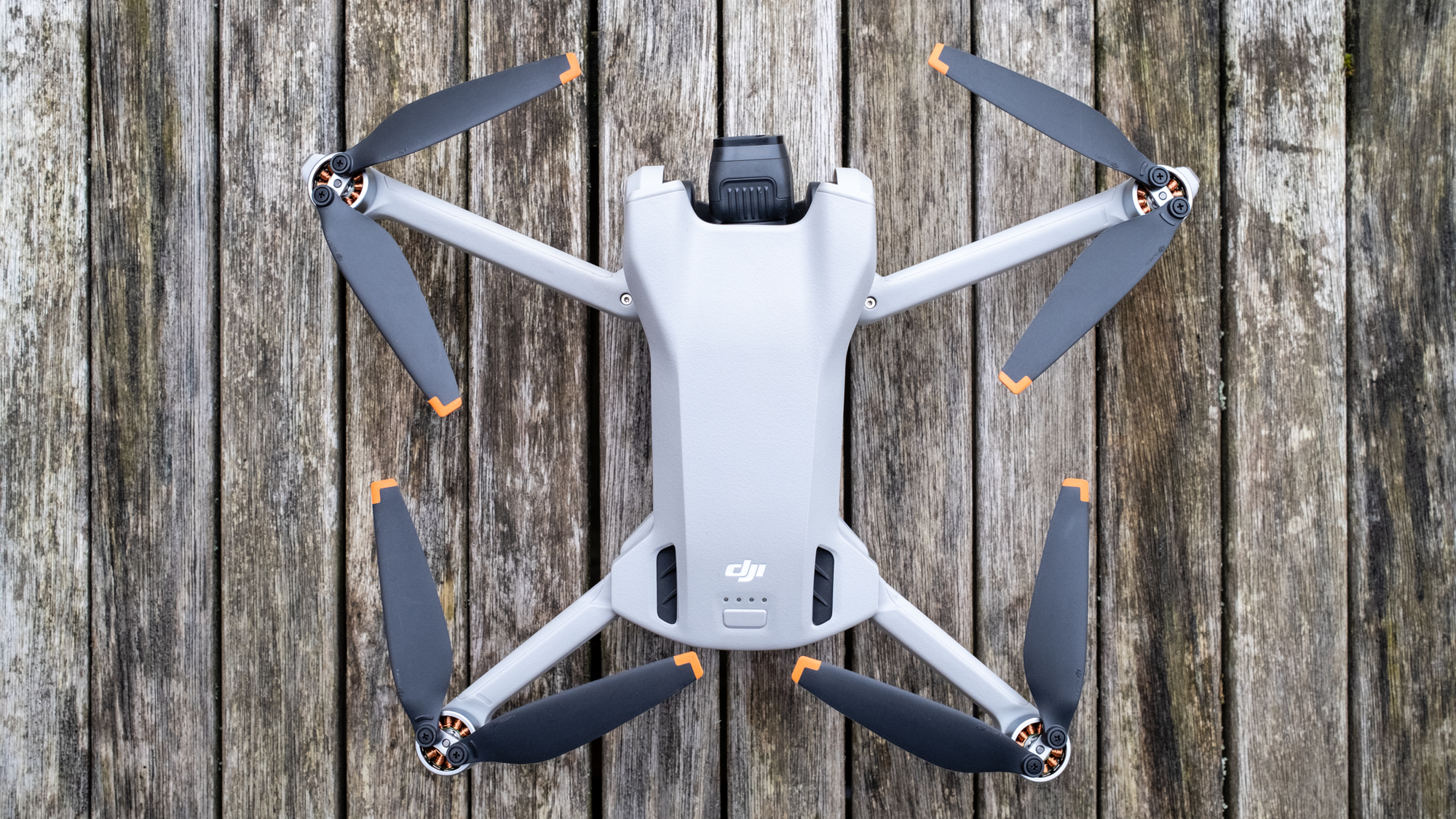
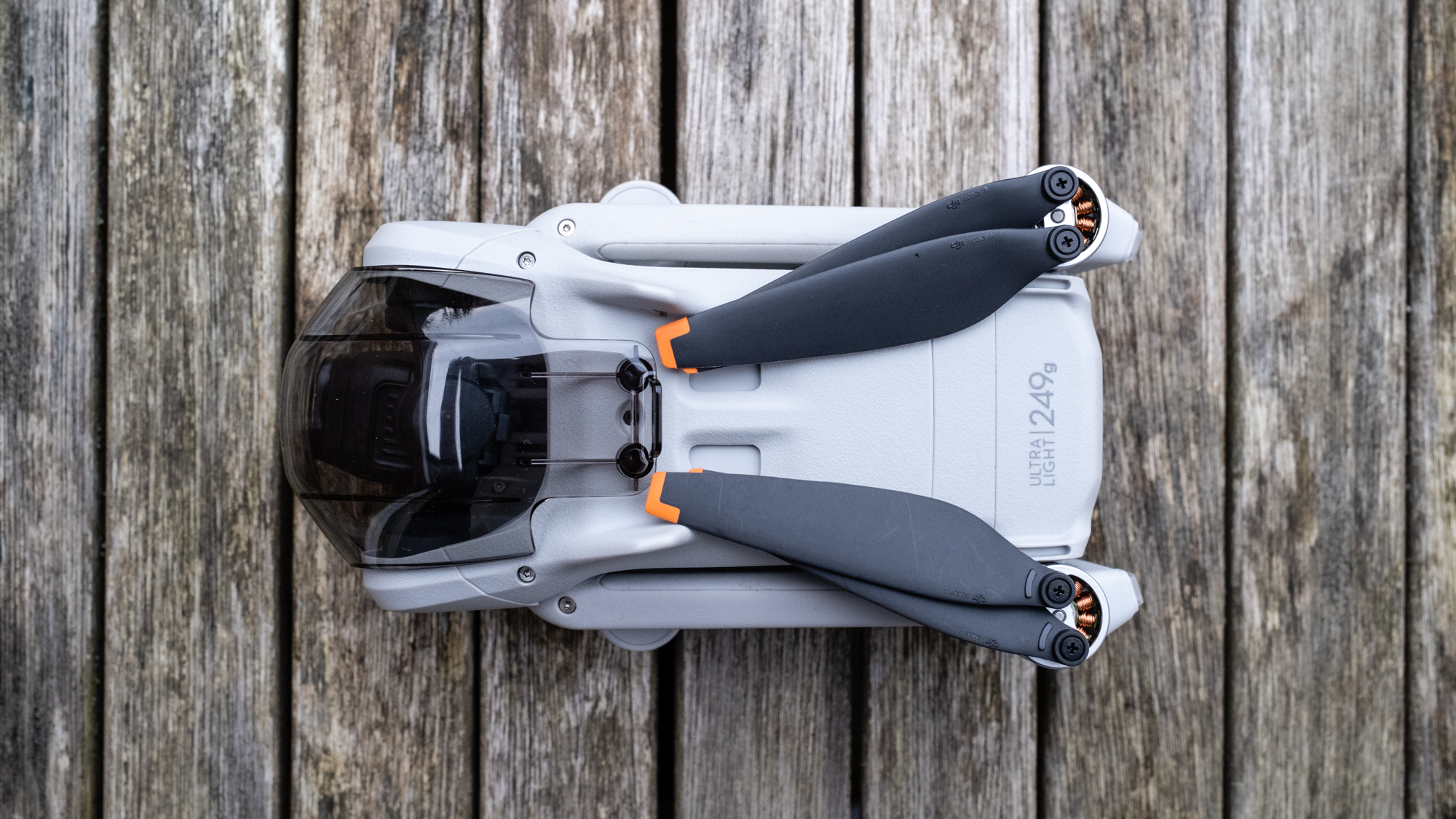
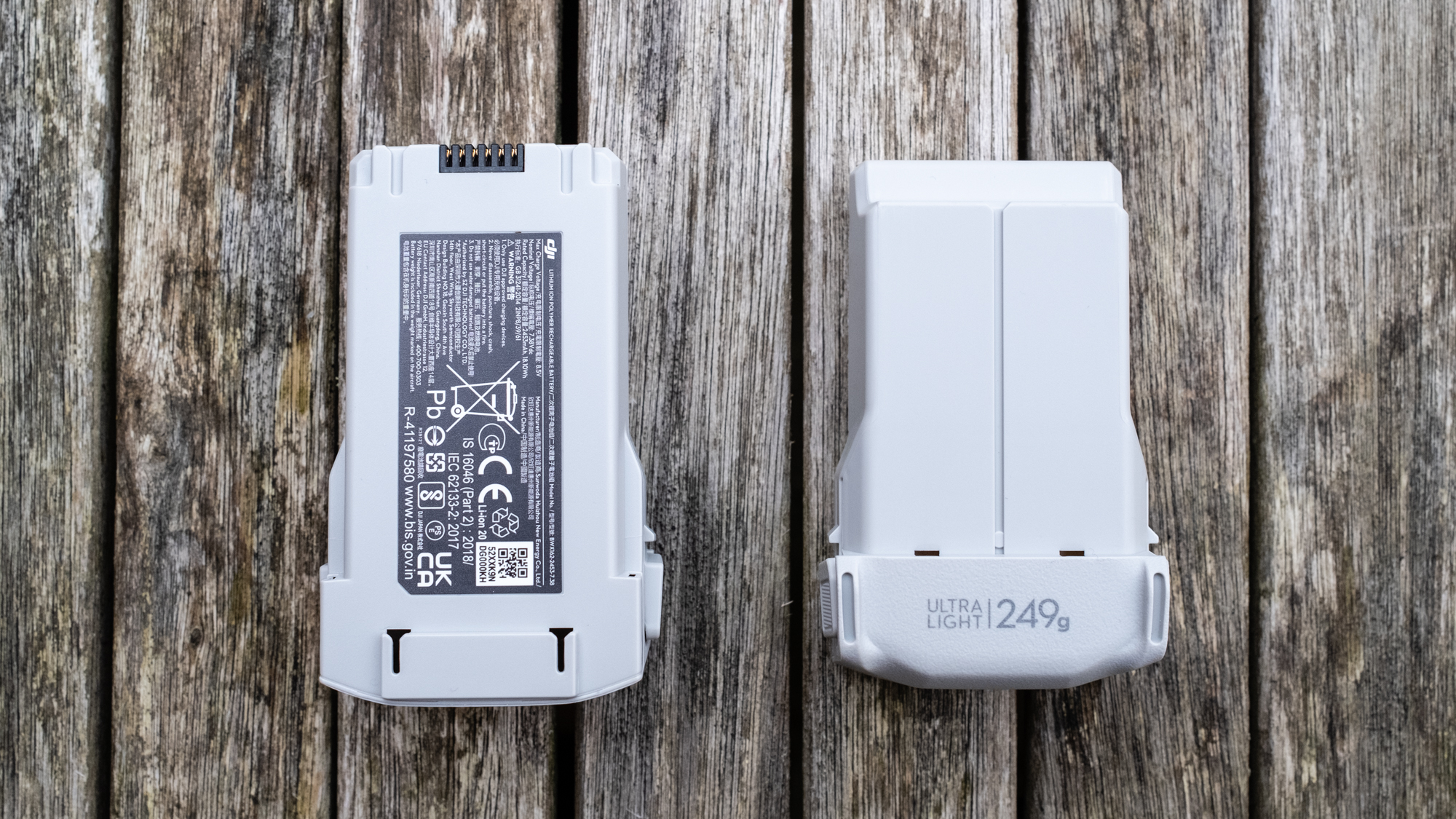
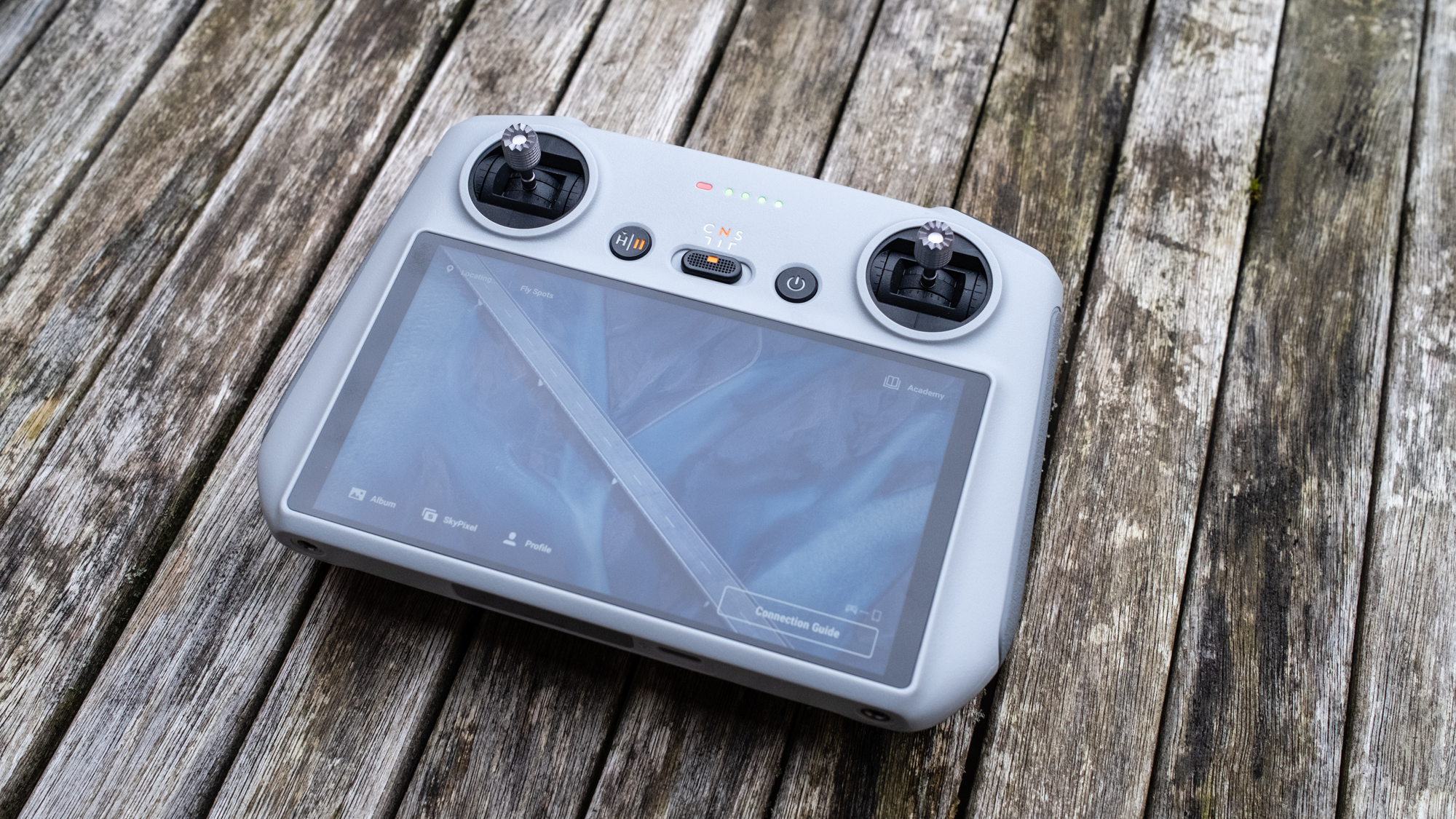
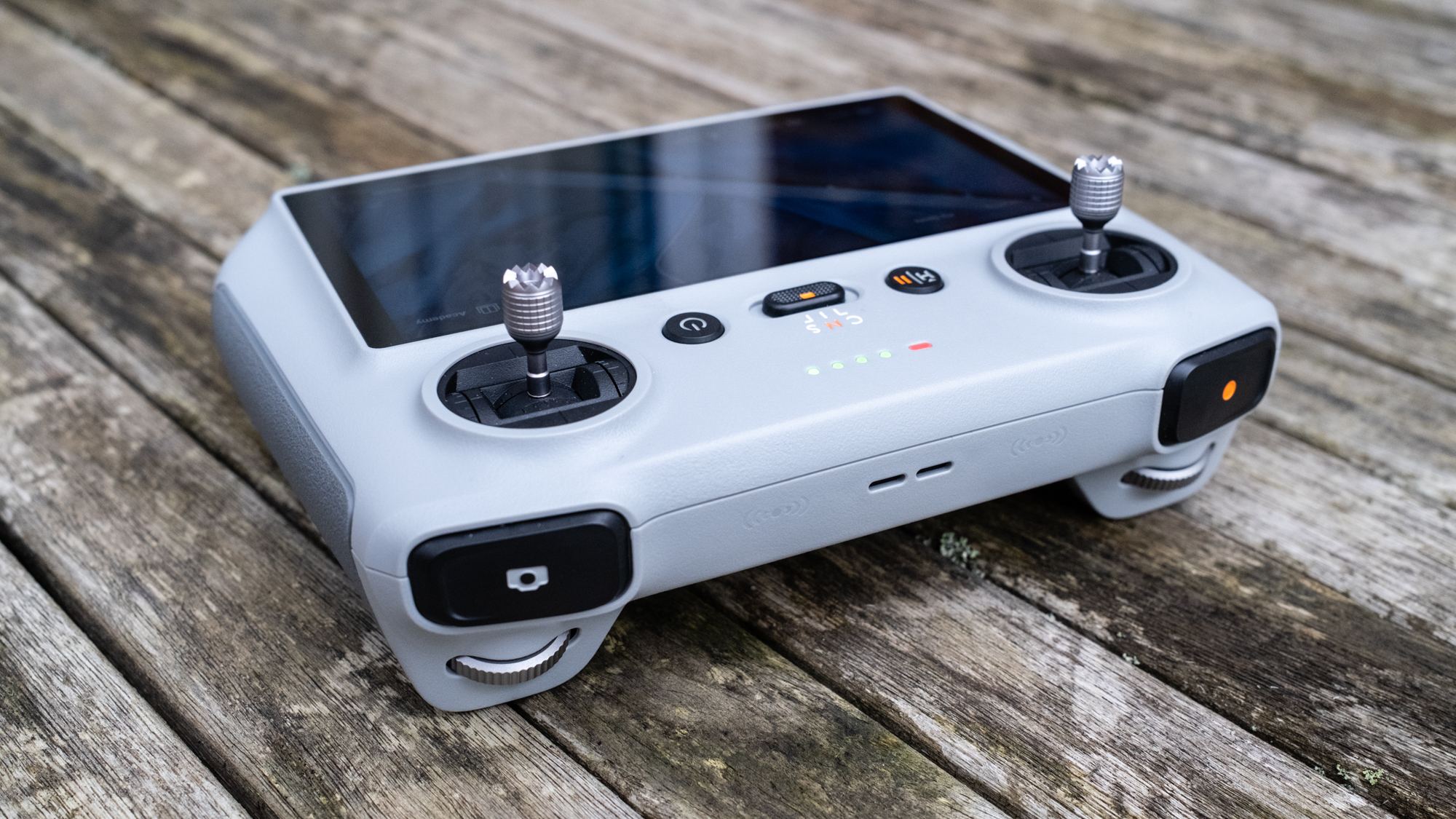
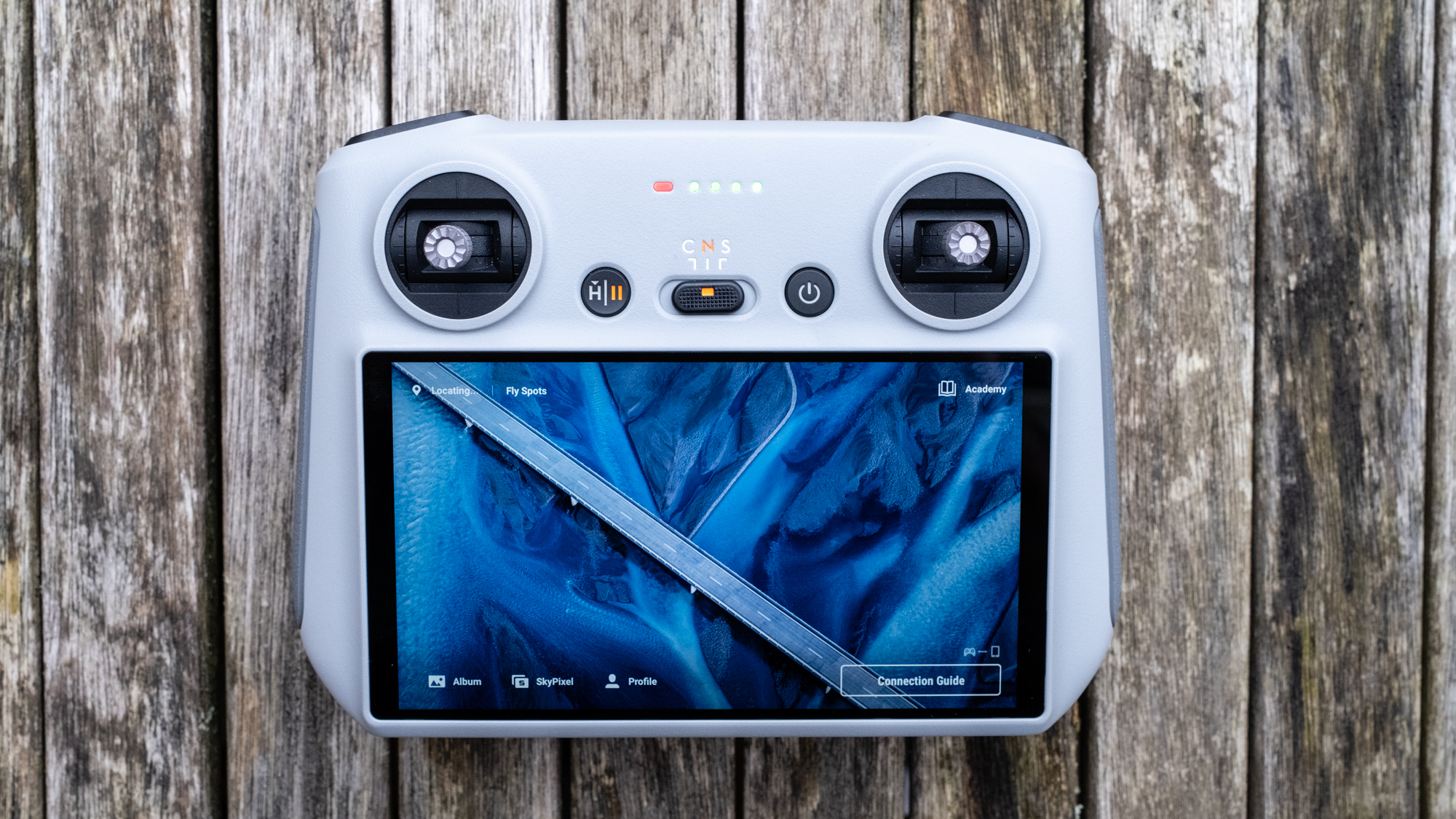
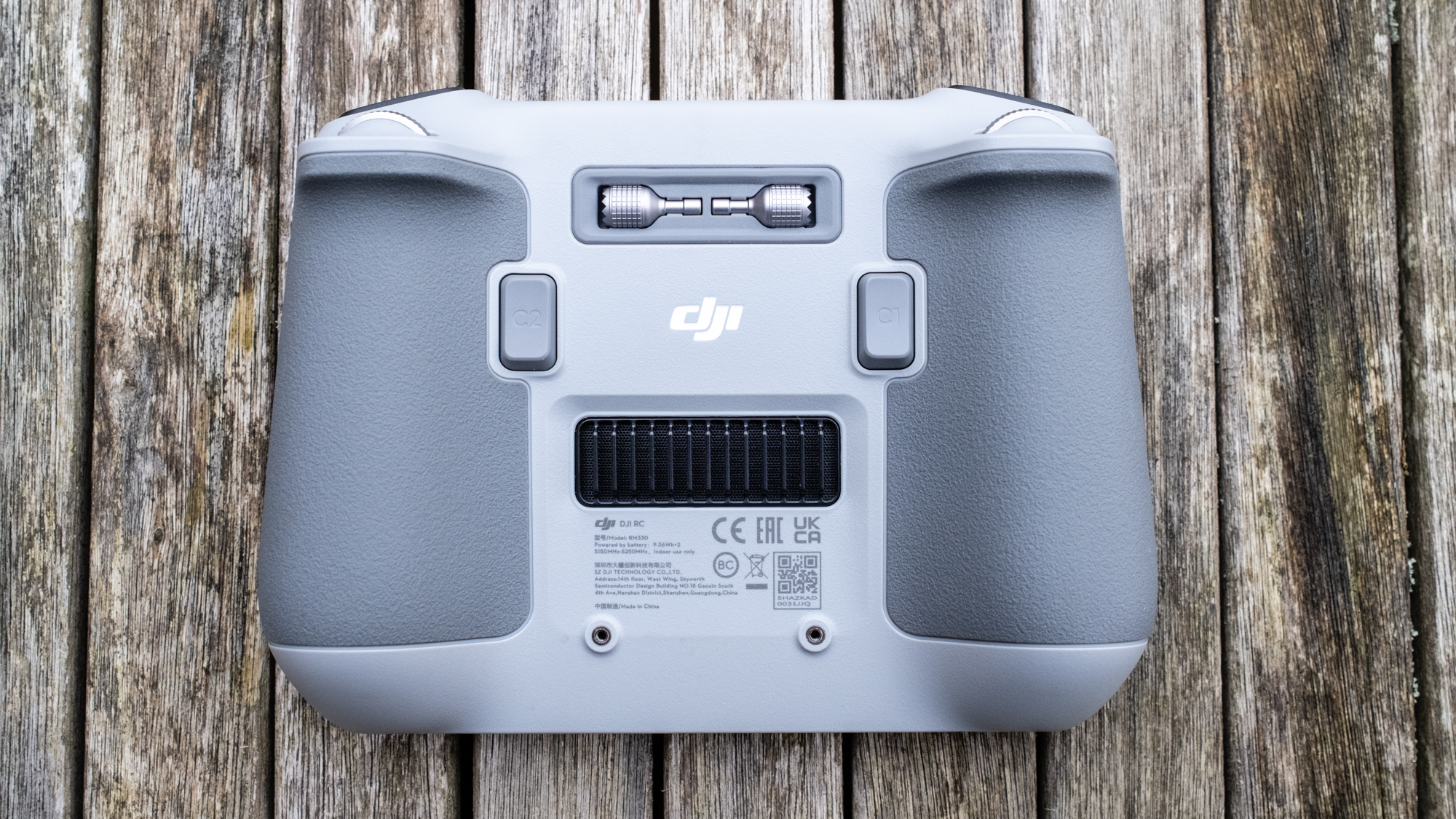
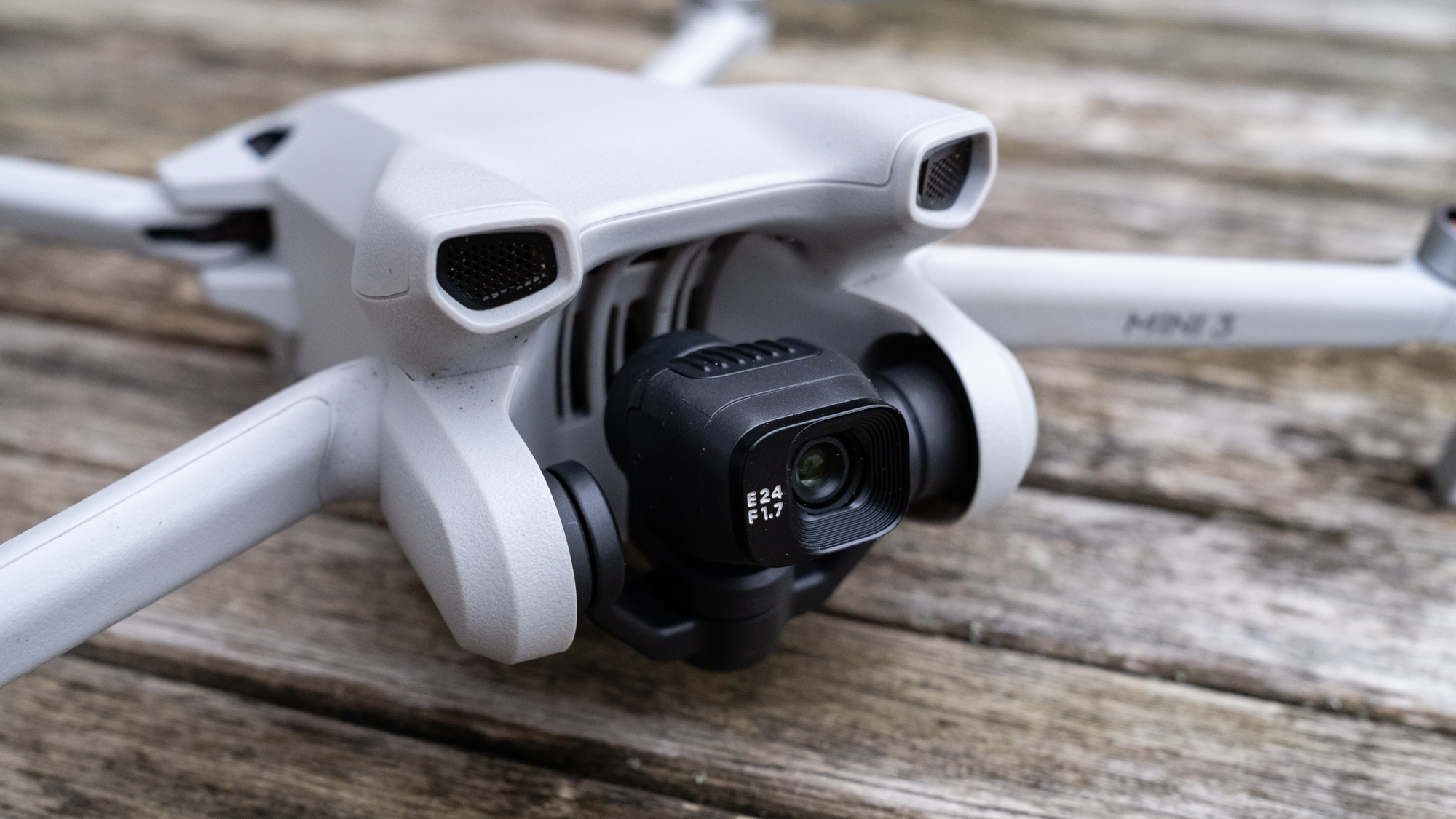
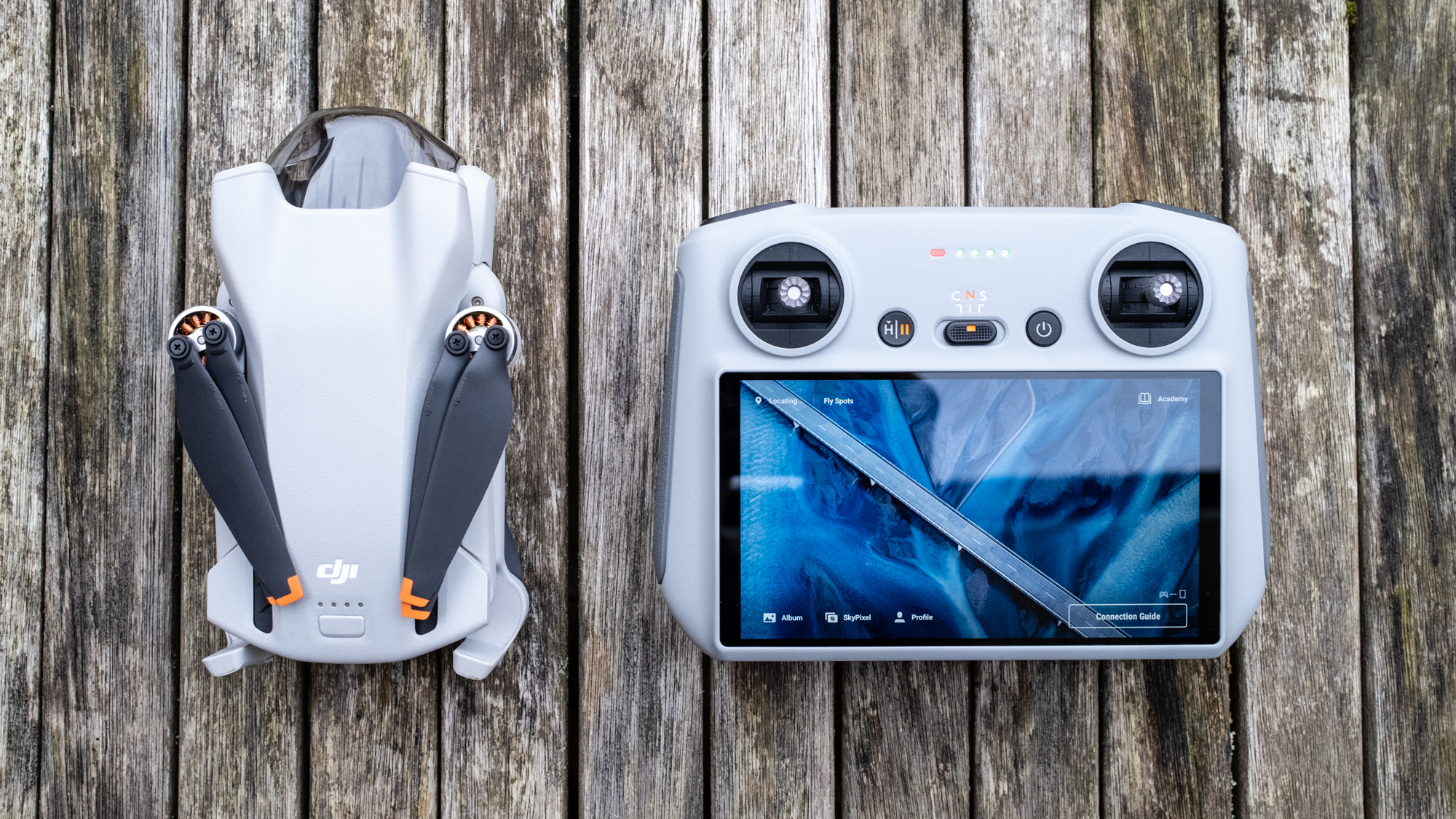
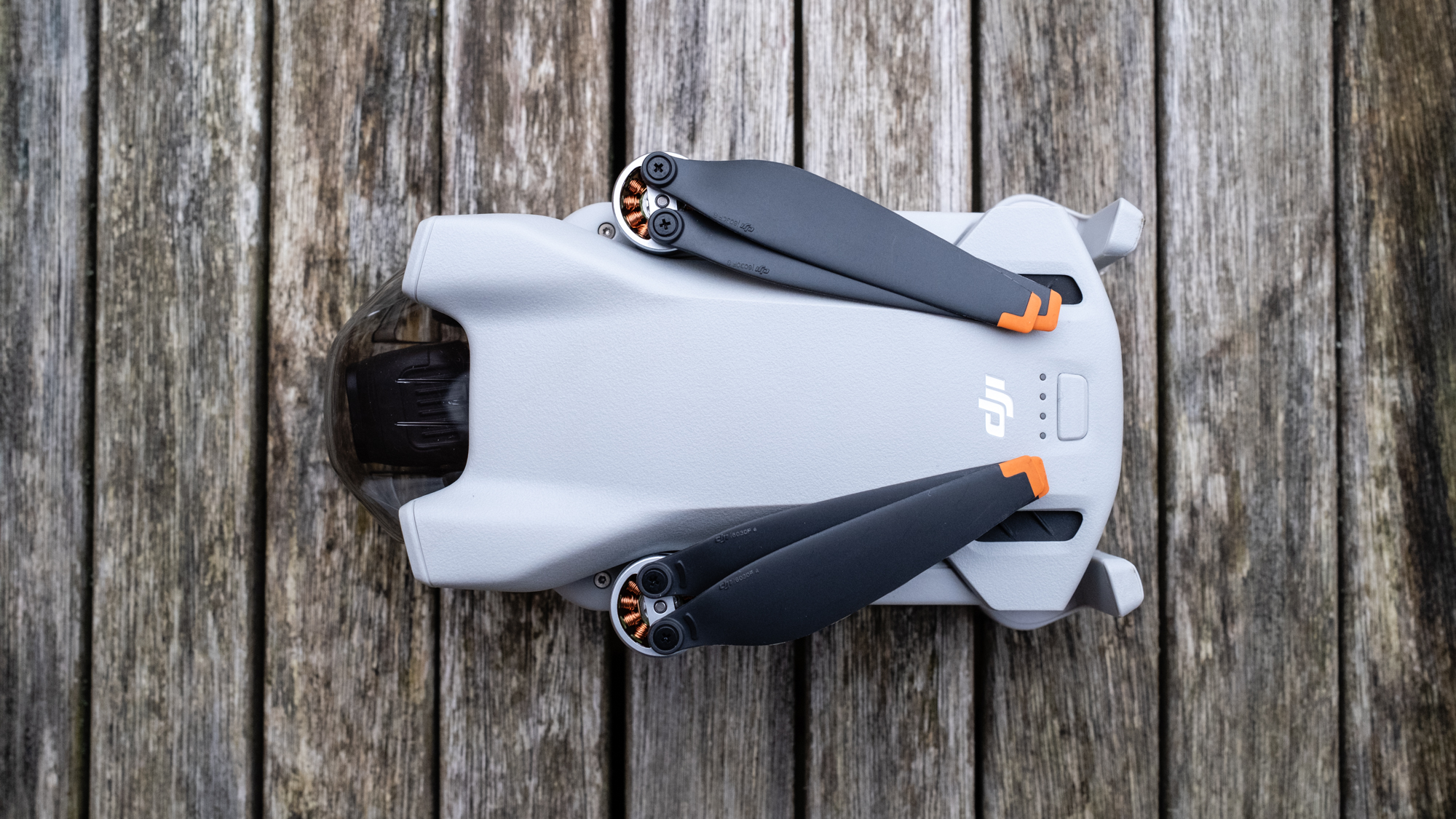
Specifications
Reasons to buy
Reasons to avoid
✅ You're looking for a more affordable beginner option: If your budget can't quite stretch to the DJI Mini 3 Pro, then the DJI Mini 3 is a great option and comes with the same high-quality camera on board.
❌ You want more advanced flying features: To save money, this drone doesn't come with obstacle avoidance or subject tracking, so you'll need to be very careful not to let it bump into things when flying it.
🔎 DJI Mini 3 With the same excellent camera on board, this is a great alternative to the DJI Mini 3 Pro for those on a tighter budget who want a more accessible beginner model. The only catches are that it doesn't come with obstacle avoidance or subject tracking and the 4K video tops out at 30fps. ★★★★
The DJI Mini 3 is a high-quality yet basic drone that comes at a reasonable price with a camera capable of producing impressive image quality. It naturally sits behind the DJI Mini 4 Pro in terms of features and functionality but is considerably less expensive despite using the same camera. Also, the Mini 3 is a regulator-friendly sub-250 g model.
The onboard camera features a 12MP 1/1.3-inch sensor with an equivalent focal length of 24mm. In our DJI Mini 3 review, we loved that the camera can be turned 90 degrees to shoot in either landscape or portrait mode, depending on the look you're going for. It has a folding design typical of the DJI drones and is very regulator-friendly, being only 248g in weight. This will let you fly it in areas that would be off-limits to heavier drones, which is particularly handy if you're new to drone flying or if you live in a more populated area.
You'll also enjoy handy features like Quickshots automated flight patterns and a Return to Home function, which automatically brings the drone back to its take-off point when the battery runs low or the connection to the controller is lost. If you're looking for great value on a tight budget, we think the DJI Mini 3 is hard to beat.
Of course, some compromises have been made to keep the price down on this drone. You don't get any collision avoidance, Timelapse or subject tracking, and 4K video is limited to 30 FPS. You also can't take 48MP photos. However, we still feel it can fulfil the needs of most beginners and still produce stunning shots compared with other budget models on the market.
- Read our full DJI Mini 3 review
Attributes | Notes |
|---|---|
Design | Excellent 12.1MP camera with 1/1.3-inch sensor. |
Functionality | More basic, with no collision avoidance or subject tracking. |
Performance | Films in portrait or landscape, but only 30fps at 4K. |
Best entry-level camera drone
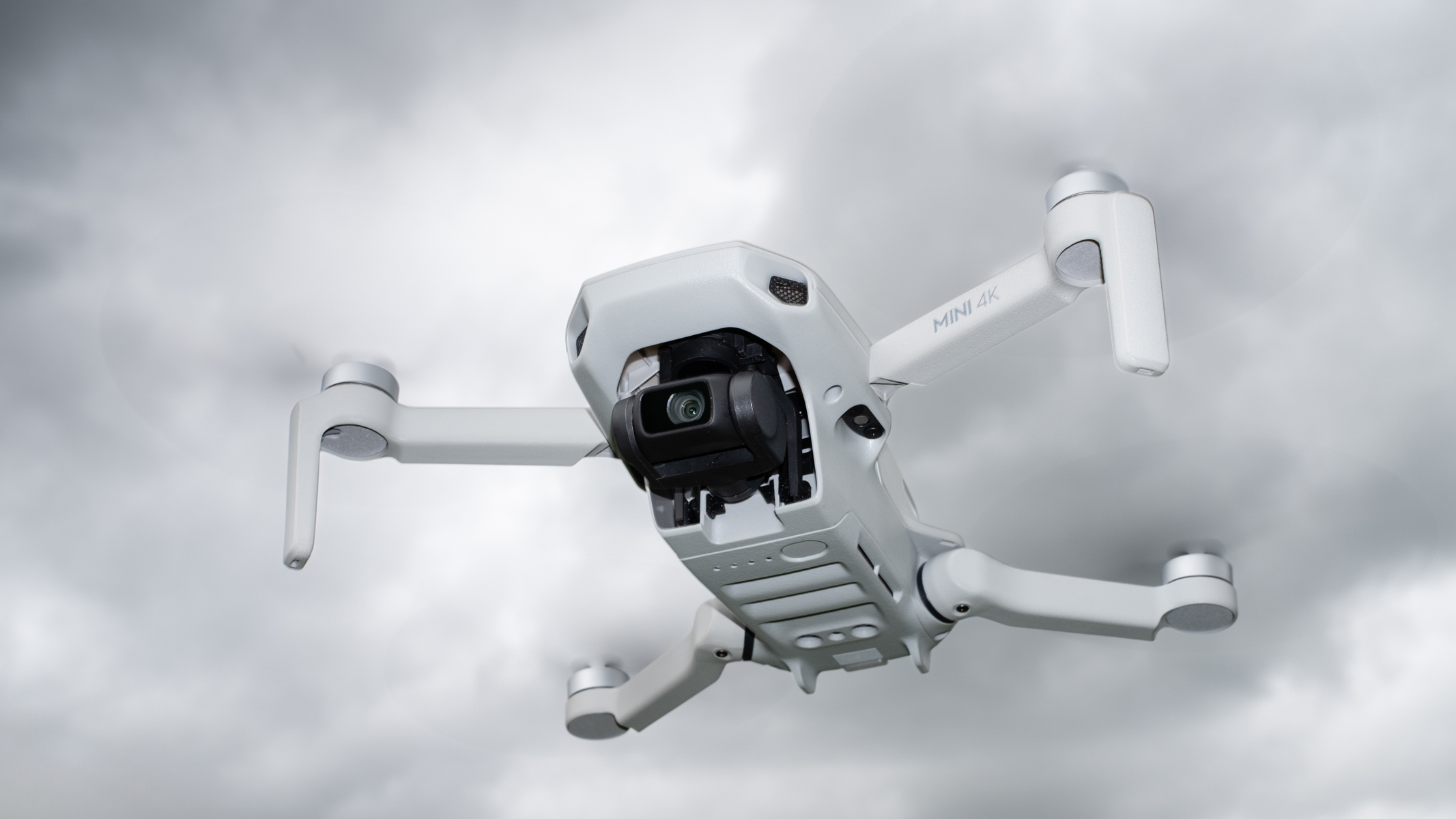
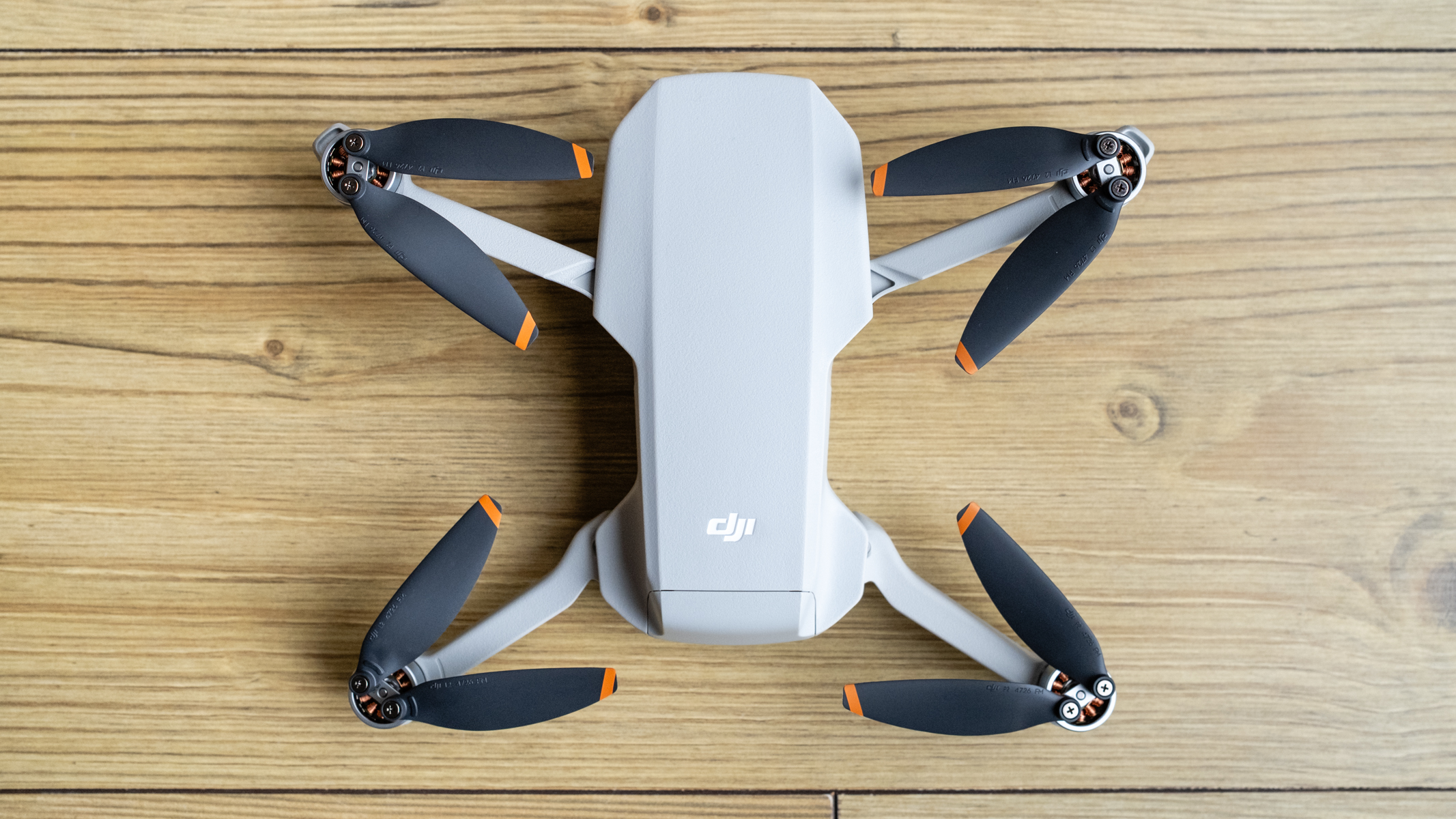
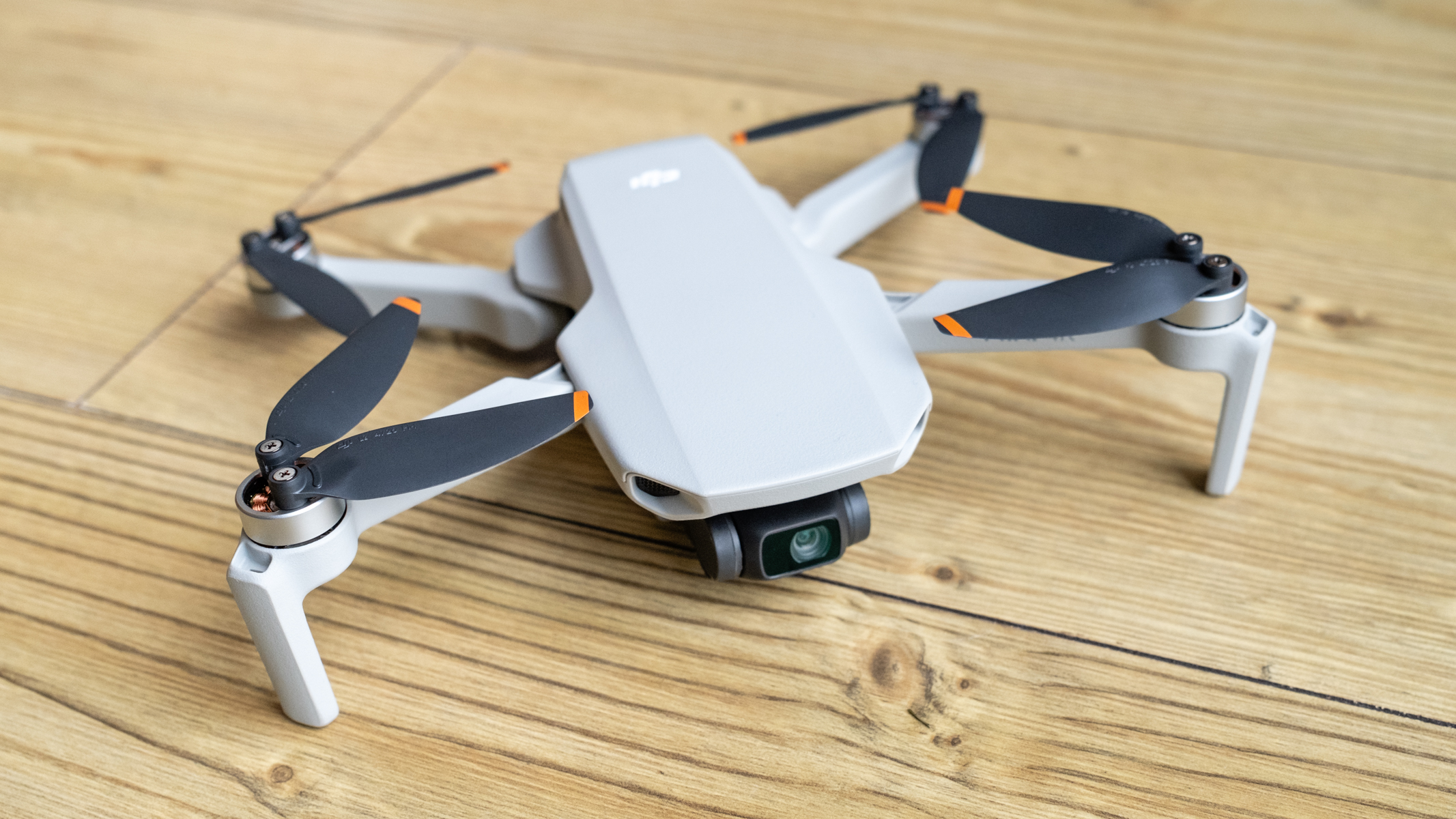
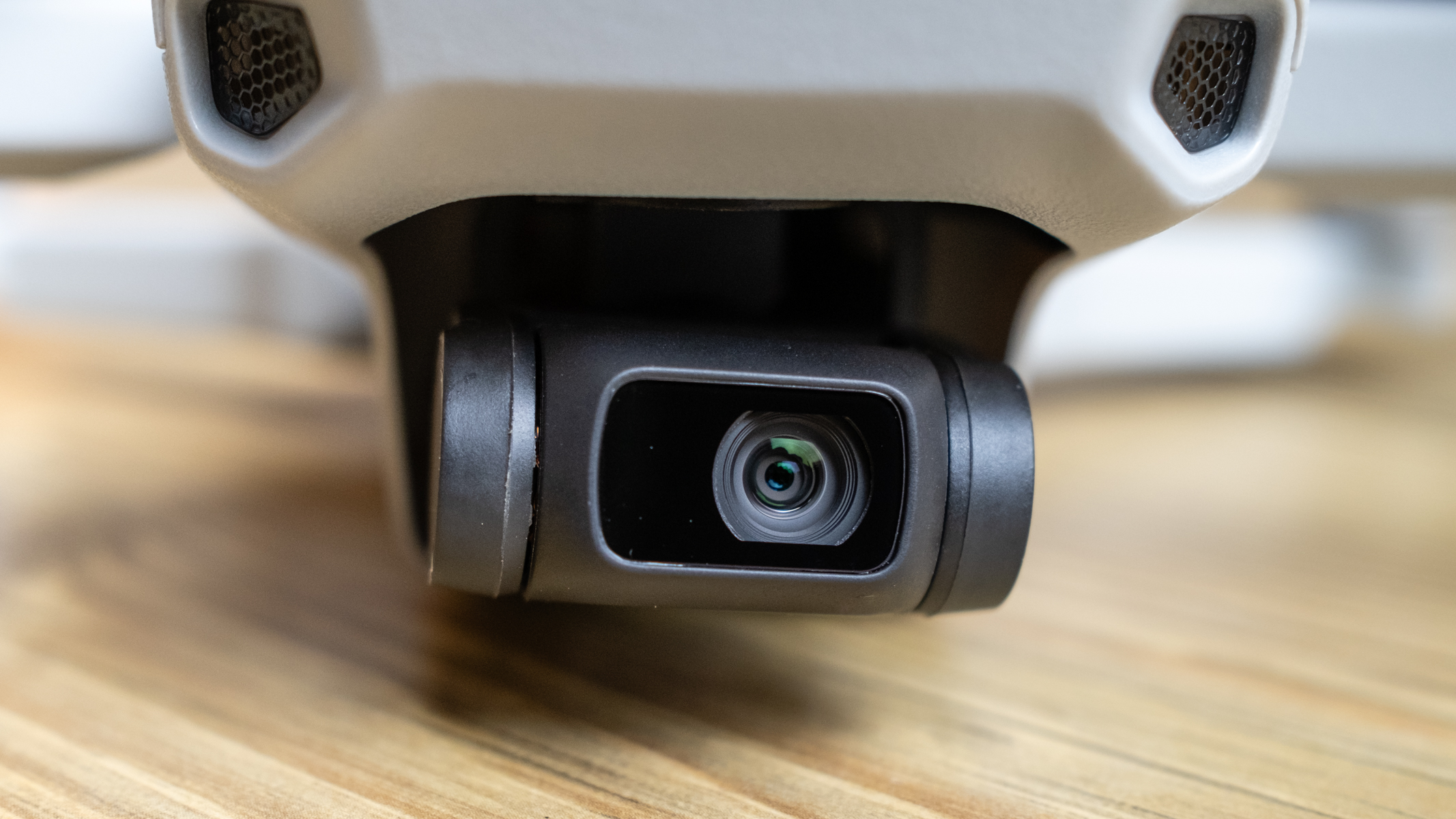
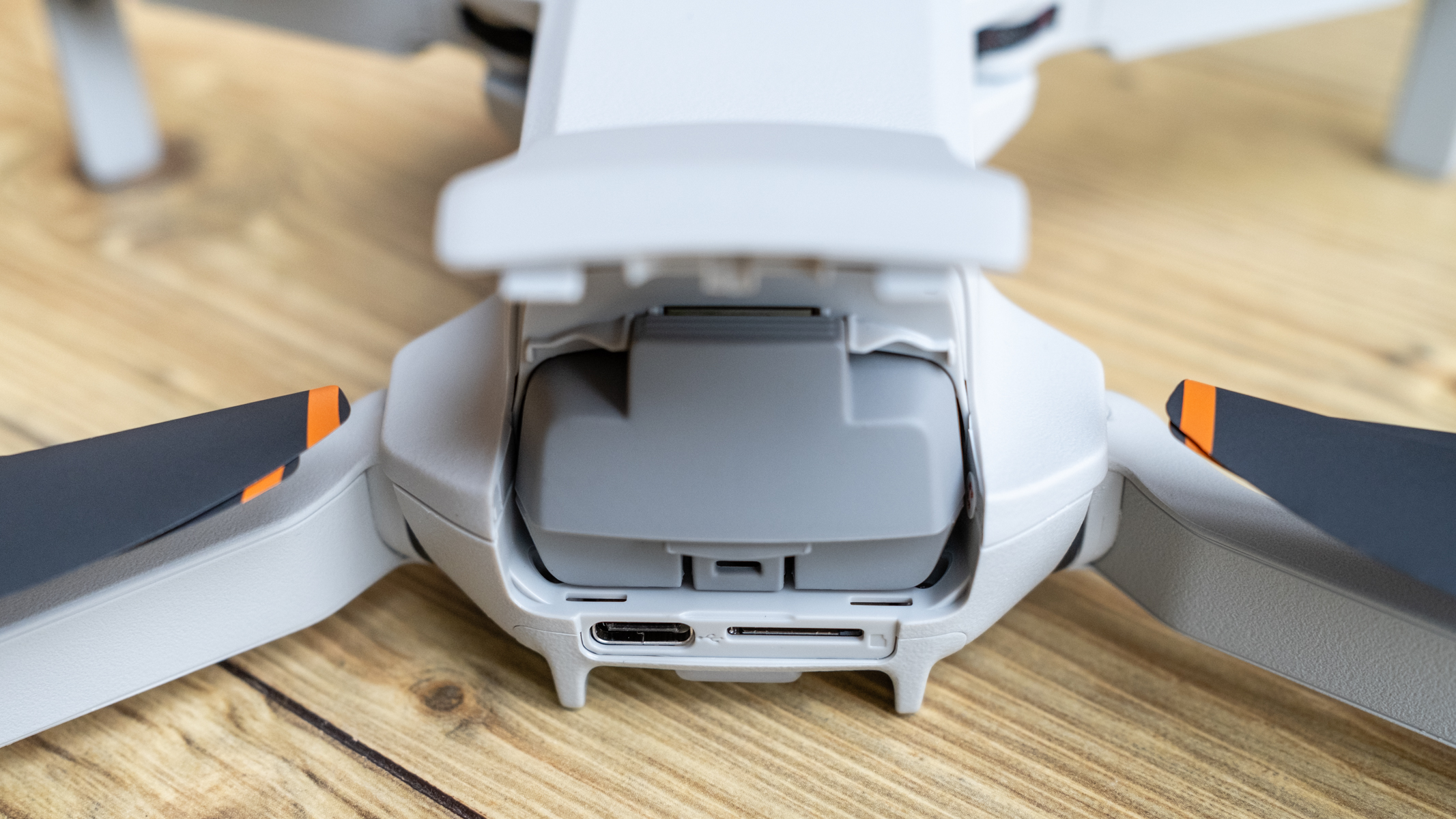
Specifications
Reasons to buy
Reasons to avoid
✅ You want a good camera: The mini 4K doesn’t have the best camera available on a DJI drone, but image quality is still impressive when shooting photos and up to 4K video.
✅ You're on a budget: Drones aren't cheap, and even entry-level models will hit your wallet, but the Mini 4K is the best you can get in the lower price bracket.
❌ You want a better camera: The Mini 4K camera produces great image quality, but the DJI Mini 3, DJI Air 3 and the DJI Mavic 3 Pro all have far superior cameras and features.
❌ You have a bigger budget: This may sound obvious, but if you have a slightly larger budget you'll be able to enjoy a superior camera with the DJI Mini 3.
🔎 The DJI Mini 4K is DJI's best-ever entry-level drone thanks to the addition of 4K video capture. This sits alongside the ability to capture photos in JPEG and RAW formats, and image quality is impressive for such a low-cost drone. ★★★★★
The DJI Mini 4K may be the most basic DJI drone available, but it's still an impressive sub-250 g drone that performs admirably across the board. Sure, it's not the best DJI Mini model, but it is a seriously tough contender at the entry-level end of the beginner drone market.
You may be thinking that a low-cost DJI drone would be lacking in some areas, and although overall features are basic, the Mini 4K benefits from DJI's excellent build quality and ease of use. We were impressed with the DJI Mini 4K in our full review.
The camera itself is impressive, too, given the small 1/2.3-inch 12MP CMOS sensor. Like most small drones, it performs best in bright conditions, and the image quality is fantastic for beginners. Photos can be captured in JPEG and RAW formats, while the headline feature is that the drone can capture video in 4K up to 30 FPS and 1080p at up to 60 FPS. This is more than adequate for beginners.
The standard kit costs $300 / £269, with the Fly More Bundle coming in at $431 / £399. The standard kit includes the drone, controller, a battery and accessories, while the Fly More Bundle includes all of this alongside a carry bag, two additional batteries and a battery charging hub.
This may be a small, lightweight and highly portable drone, but the Mini 4K is still powerful. It offers Level 5 wind resistance, which is up to 24 mph. Flight times typically average around 21 minutes before Return to Home is initiated when the battery reaches 20%.
Flight time is lower than advertised and isn't as long as other DJI Mini drones, but it's still acceptable. One battery is rarely enough with any drone, so we recommend investing in the Fly More Bundle which includes three Smart Batteries and a Battery Charging Hub that speeds up charging. With this kit, you won't have to worry about running out of charge.
- Read our full DJI Mini 4K review
Attributes | Notes |
|---|---|
Design | Under 250g with a folding design. |
Functionality | features are basic but it's perfect for beginners. |
Performance | Image quality is much better than expected. |
Best professional-use drone
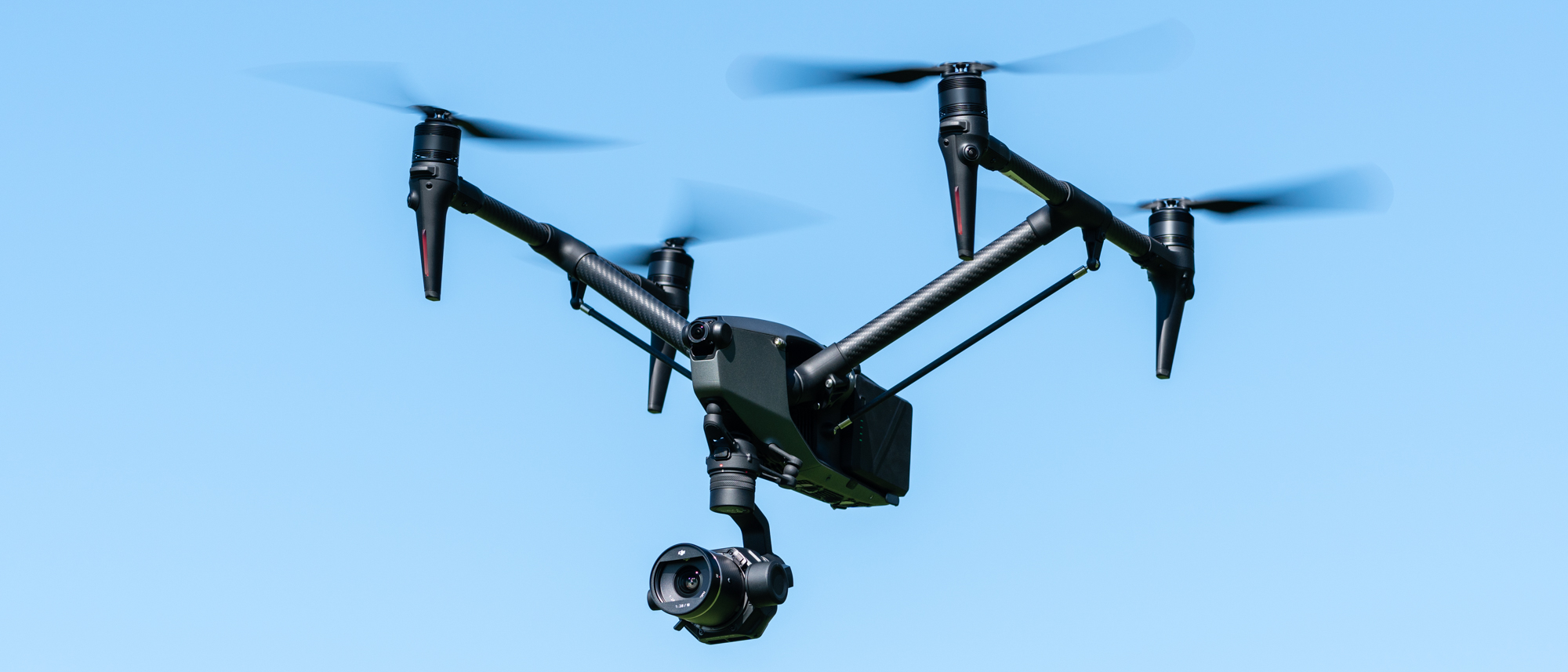
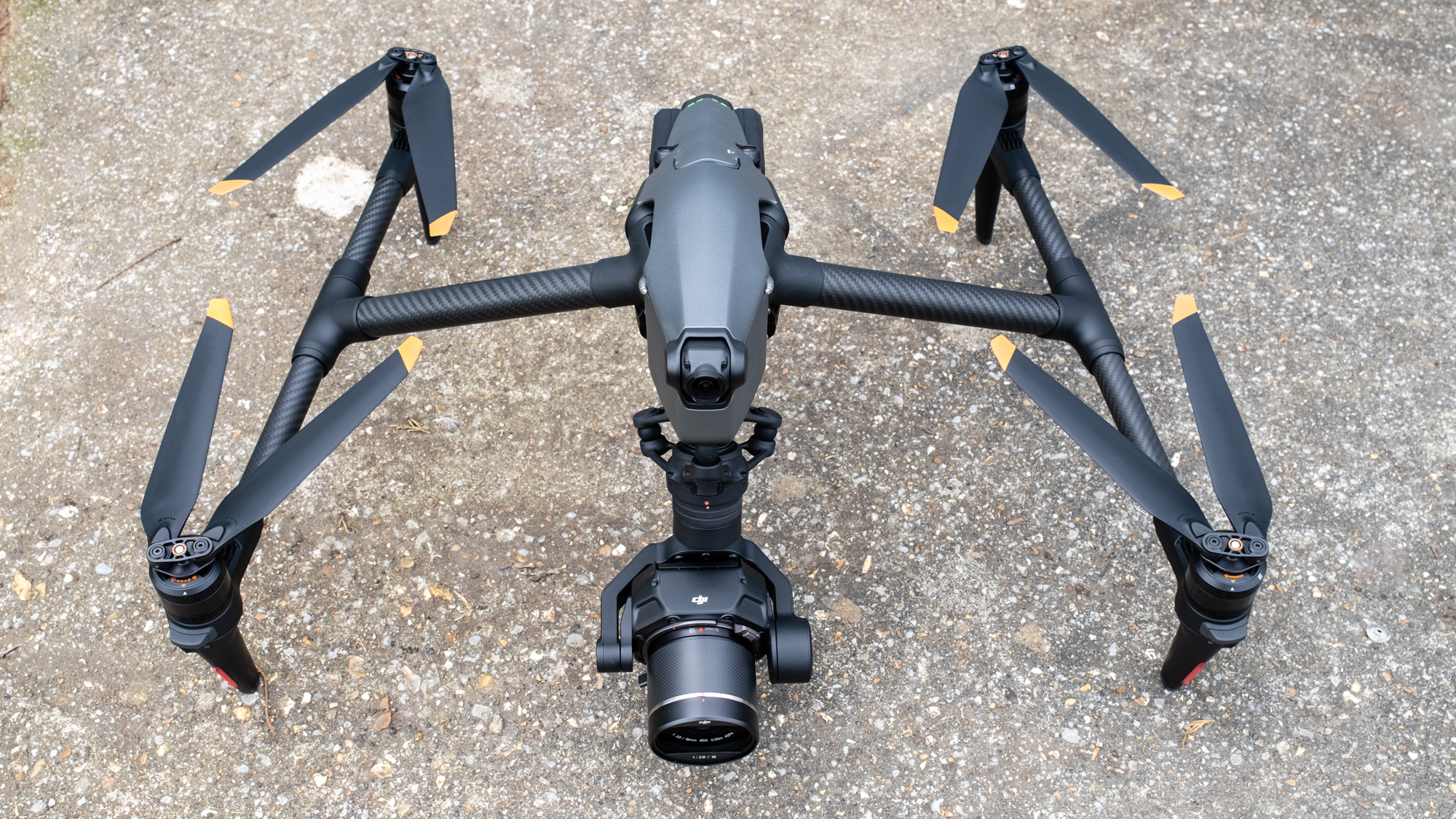
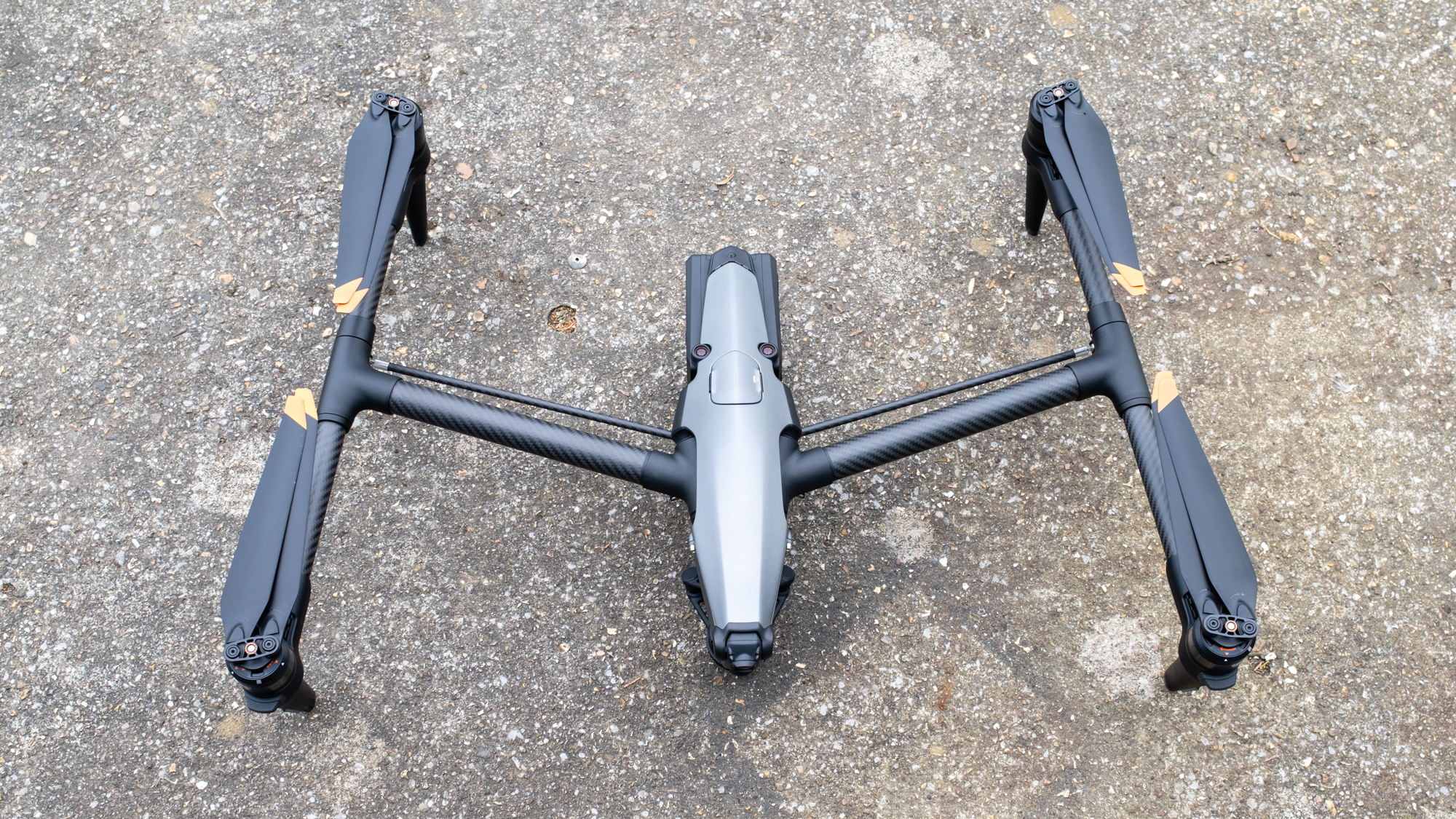
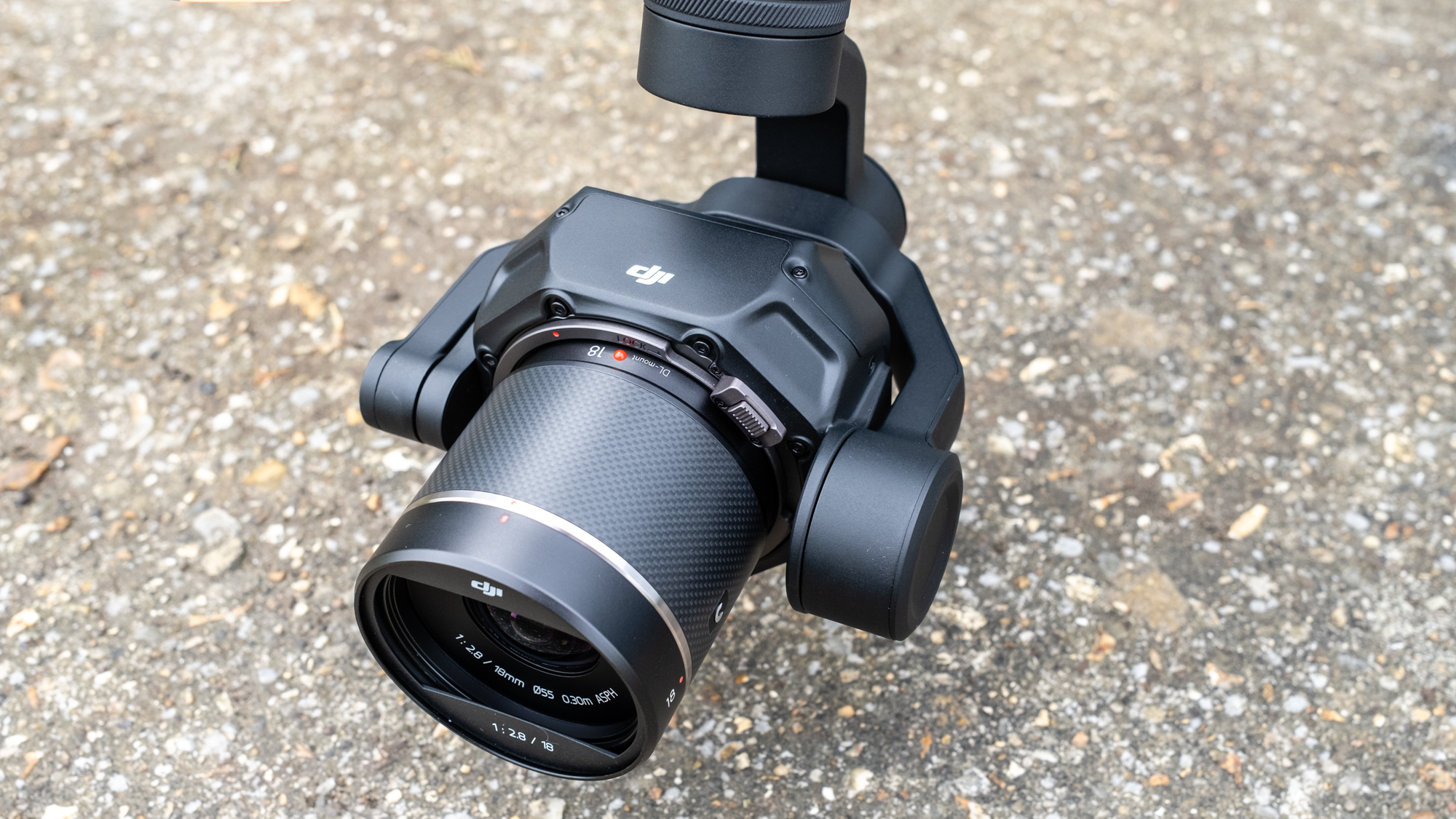
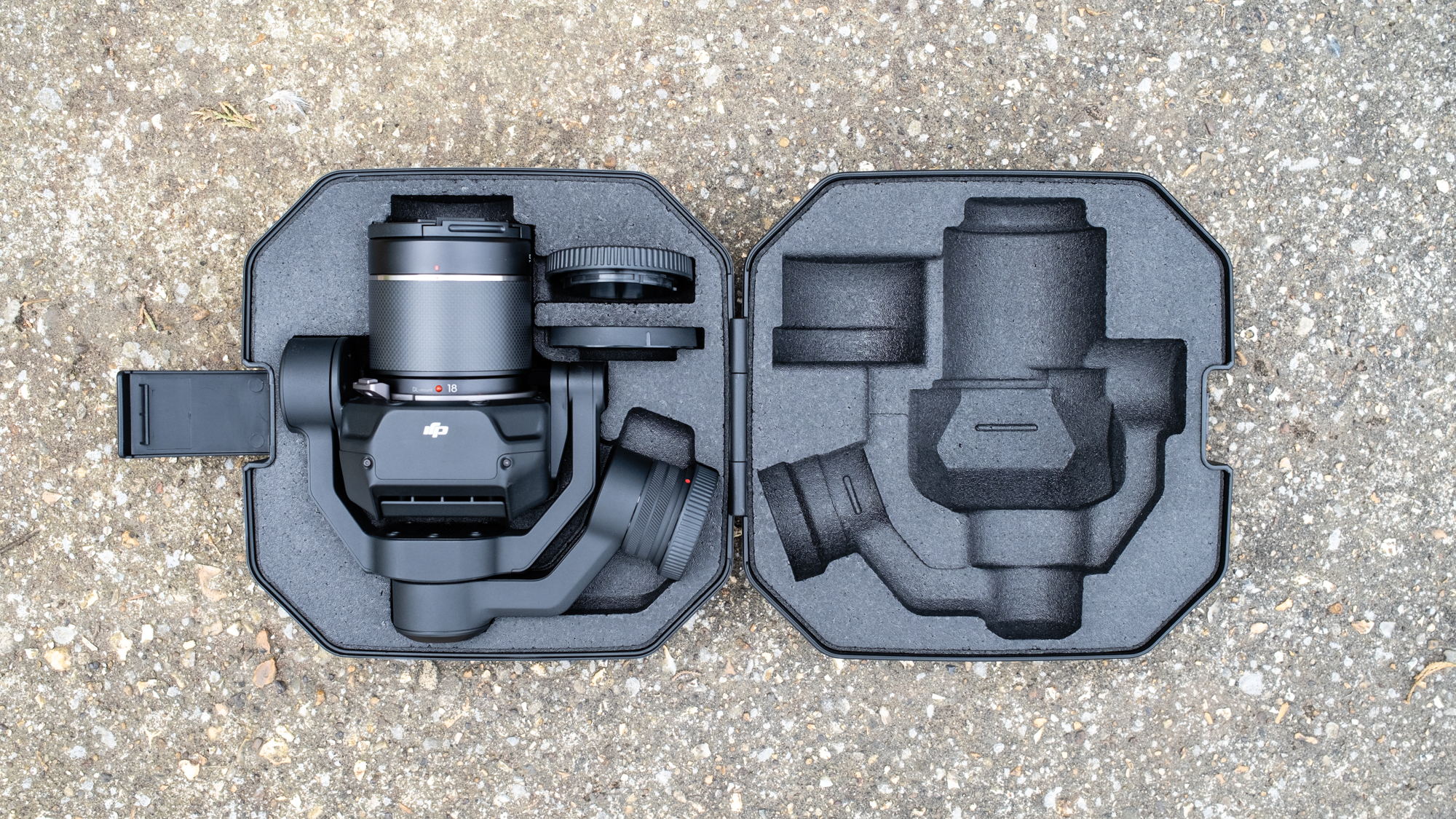
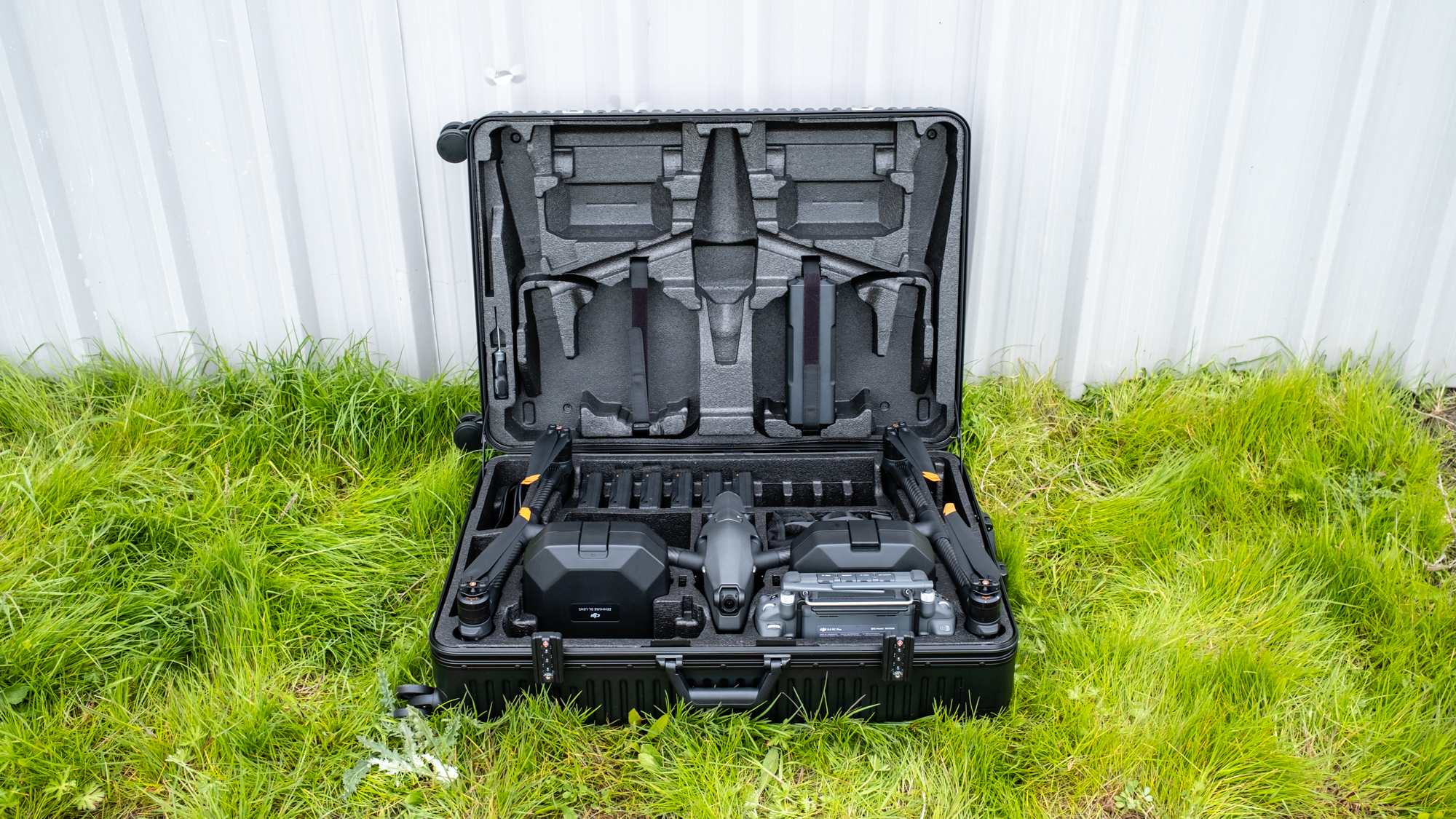
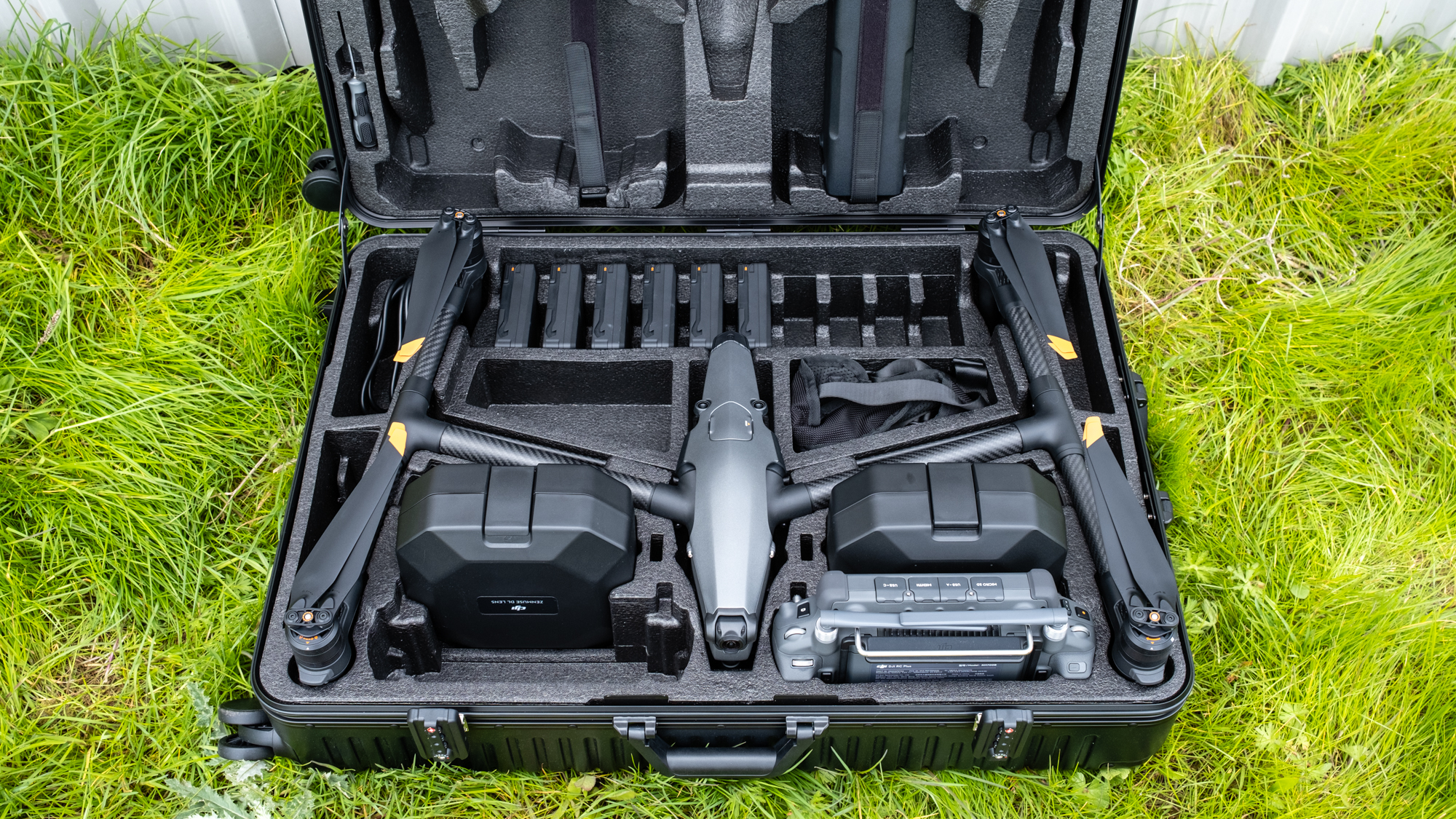
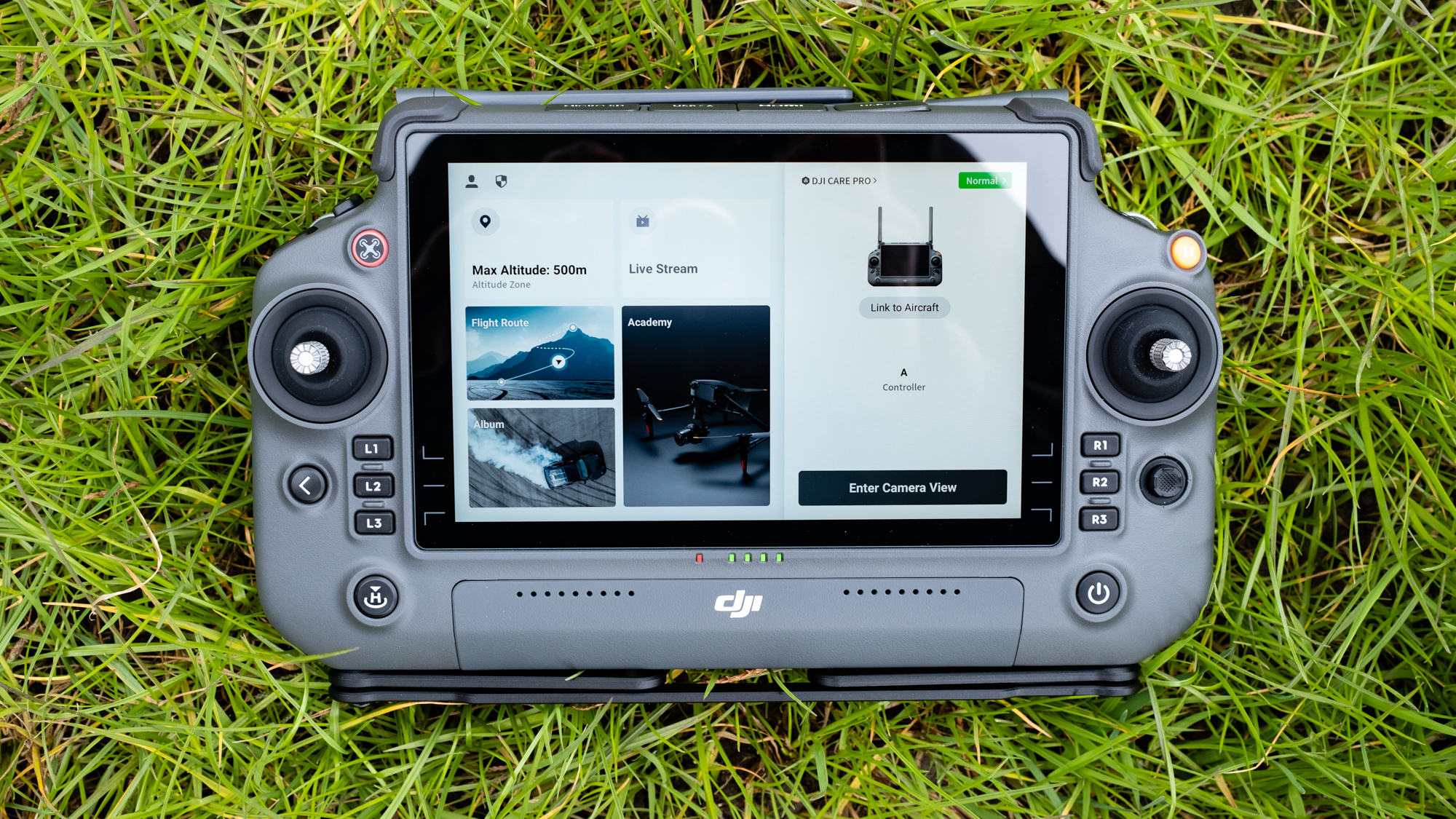
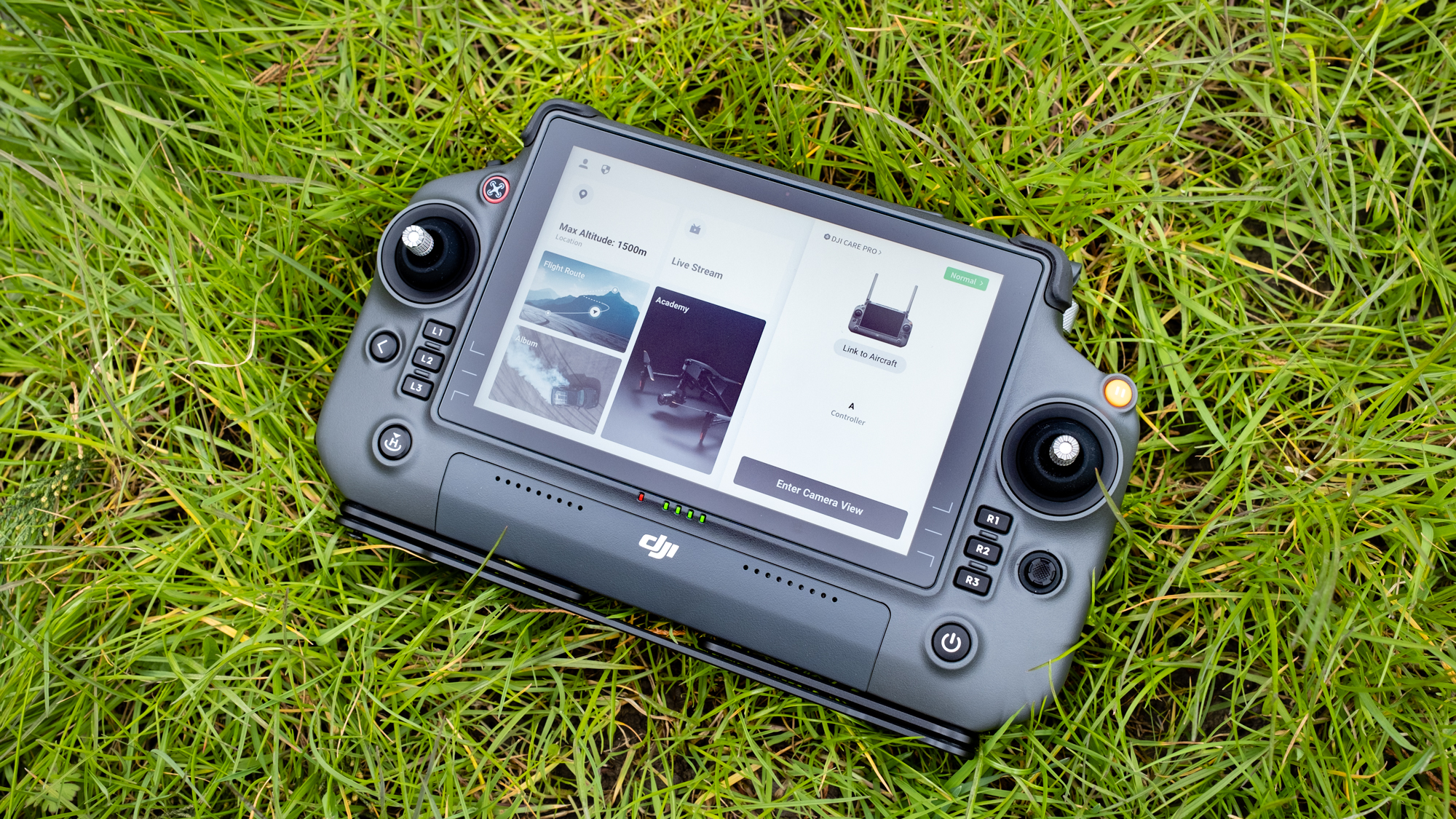
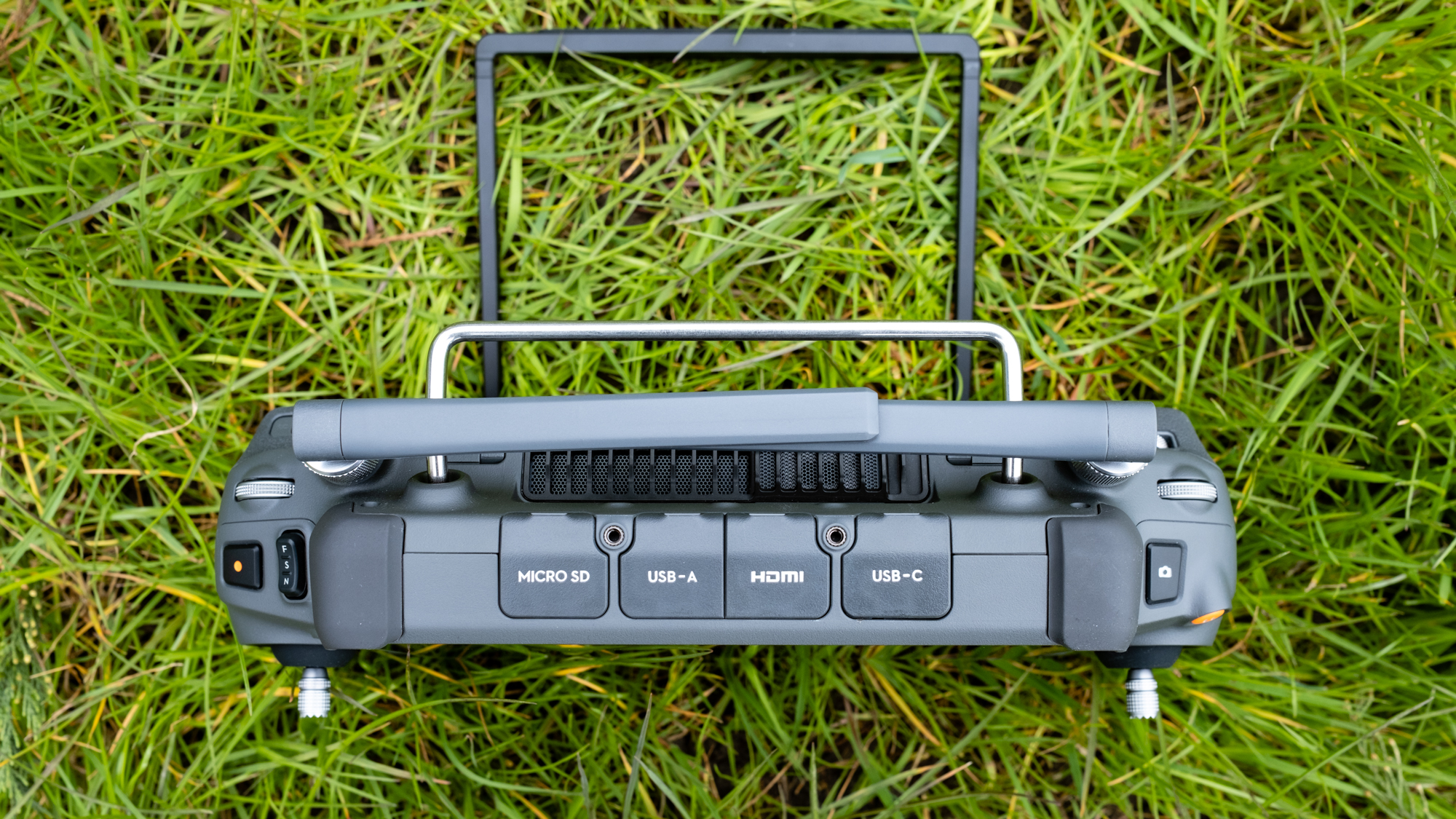
Specifications
Reasons to buy
Reasons to avoid
✅ You're a high-end professional: If you work in movies, television or advanced surveying where precision and the best image quality are essential, this drone could be exactly what you need and more.
✅ You have a huge budget: Not all professional drone pilots can justify the cost of a drone like this, but if you can afford the Inspire 3 and can take advantage of its features, it's an incredible drone.
❌ Speed is of the essence: The Inspire 3 takes time to set up and its size and weight mean it's not the easiest drone to carry around when compared to prosumer models.
❌ You're not a specialist pilot: This drone is aimed at specific professional use cases and has a price and features to match. It's much more drone than most people could ever need.
🔎 The DJI Inspire 3 is a large, heavy and expensive drone aimed at professional use. It's packed with the most advanced features available on a DJI drone, and with an impressive full-frame camera the extremely high-quality photos and video the drone captures are truly amazing. ★★★★★
The DJI Inspire 3 is a high-end, professional-level drone aimed at cinematographers and pilots who require high image quality alongside precise surveying capabilities. In a nutshell, if you see drone footage in a Hollywood movie, there's a good chance it was shot with the Inspire 3. Safety and precision are paramount, and this drone allows for two operators to fly the drone and operate the camera independently, for added control.
The Inspire 3 Combo kit costs $16,499/£13,419 and includes the DJI Inspire 3, Zenmuse X9-8K Air Gimbal Camera, RC Plus remote controller, 6x TB51 Intelligent Battery, Charging Hub, PROSSD 1TB, Trolley Case, 3x Foldable Quick-Release Propellers (Pair), Lens Carrying Box, RC Plus Strap, and other accessories. No lenses are included, so these need to be purchased separately.
As we explained in our full DJI Inspire 3 review, this is a large and heavy drone at 140.91oz / 3,995g, and the setup time is longer, so it's not as easy to transport or anywhere near as convenient as the DJI Mavic 3 Pro, for example. This won't be a problem for professional drone pilots and camera operators working on film sets, but for enthusiasts working alone much of the time, indulging their hobby, it's simply not a practical drone to carry around and set up on a whim.
The main camera is an incredibly high-quality full-frame Zenmuse X9-8K Air Gimbal Camera, which is compatible with four lenses. These have to be purchased separately. This 44.7MP camera can capture photos in Raw and JPEG, while video can be captured in 8K up to 75fps and 4K up to 120fps in professional Raw video formats and flat color profiles. It's a professional powerhouse in every way and is aimed at professional filmmaking on high-end productions.
- Read our full DJI Inspire 3 review
Attributes | Notes |
|---|---|
Design | A powerful drone aimed at the professional market. |
Functionality | A highly precise drone with the most advanced features available. |
Performance | Up to 8K video and excellent image quality overall. |
Best enterprise drone
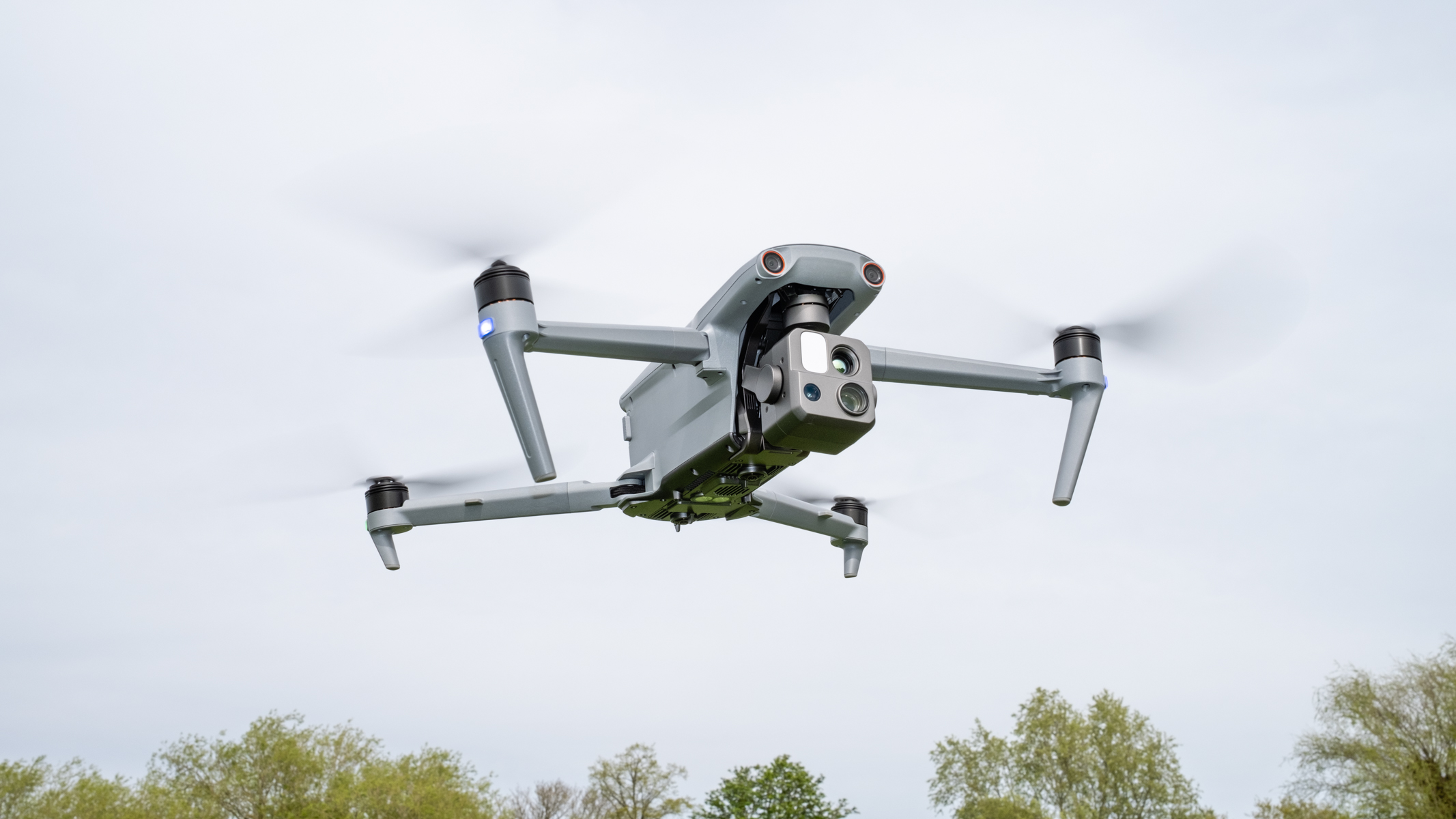
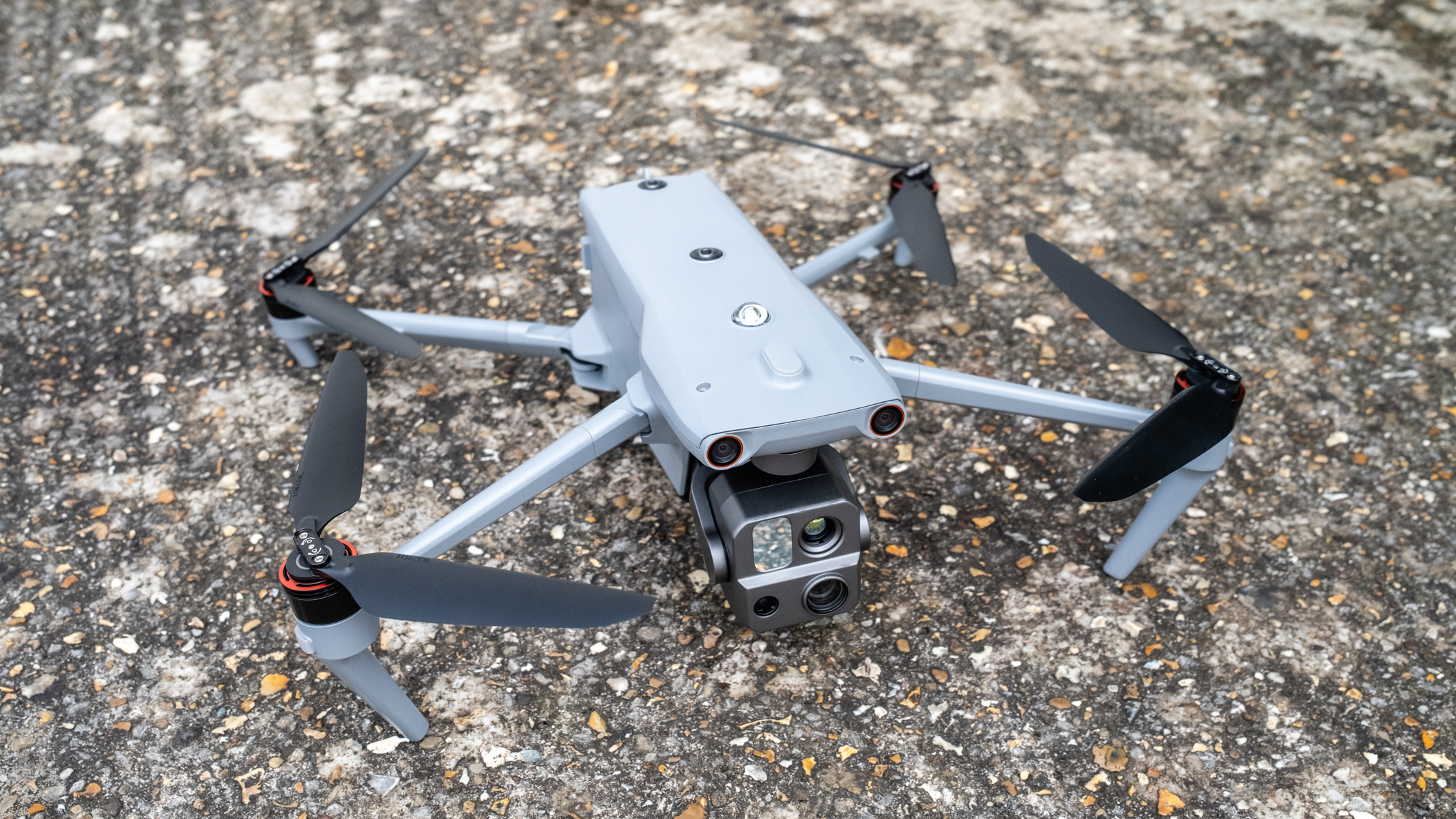
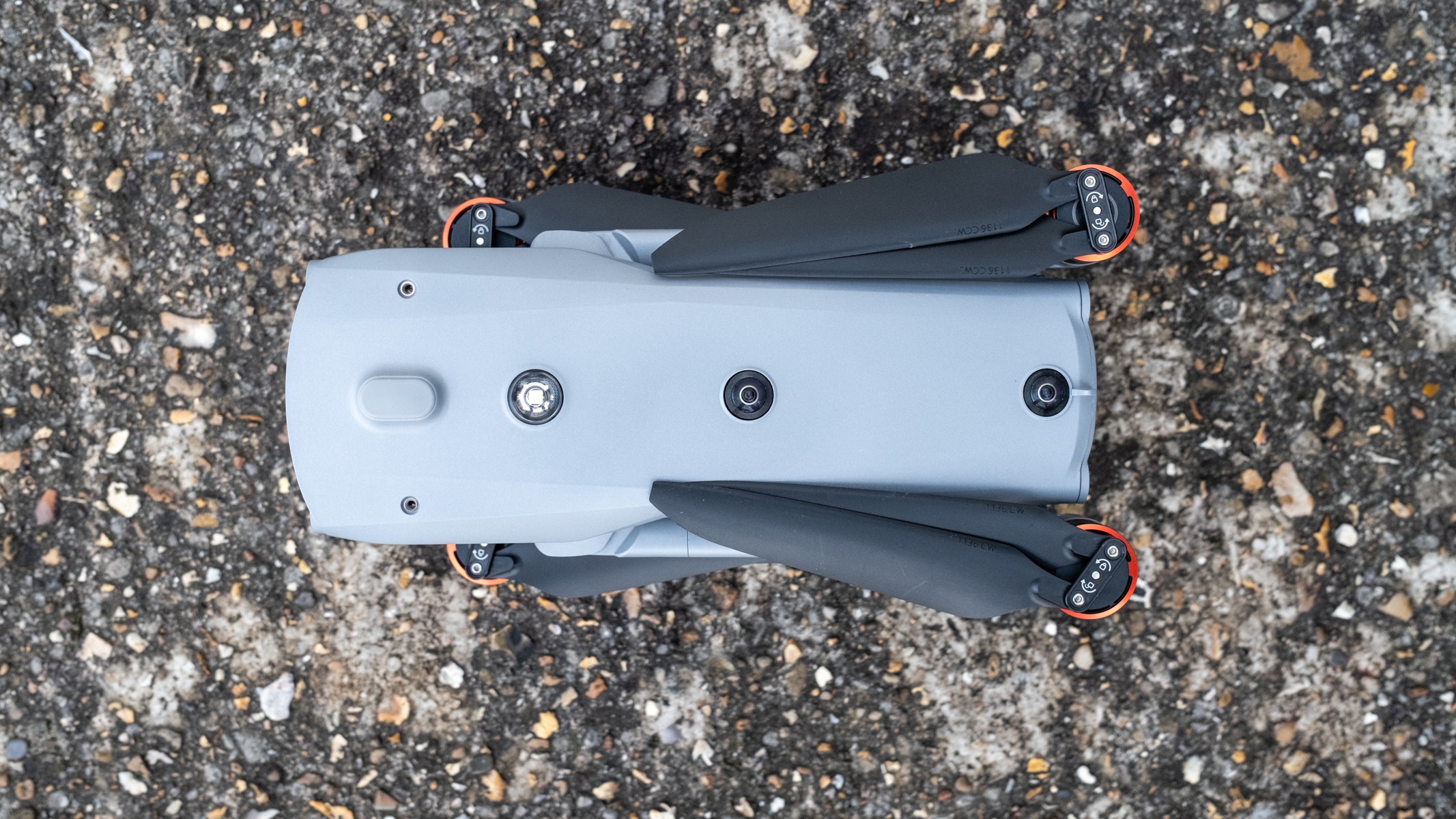
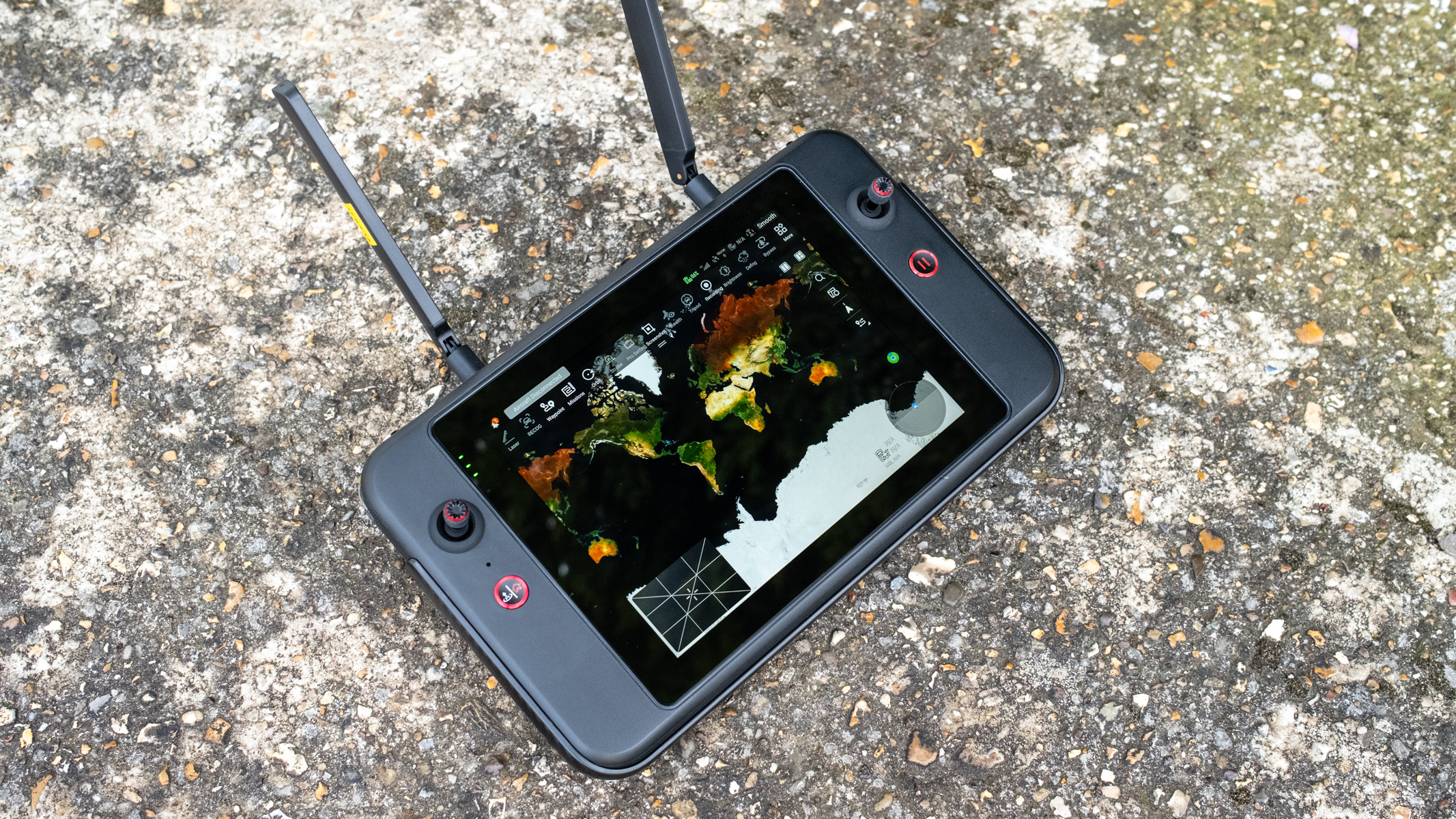
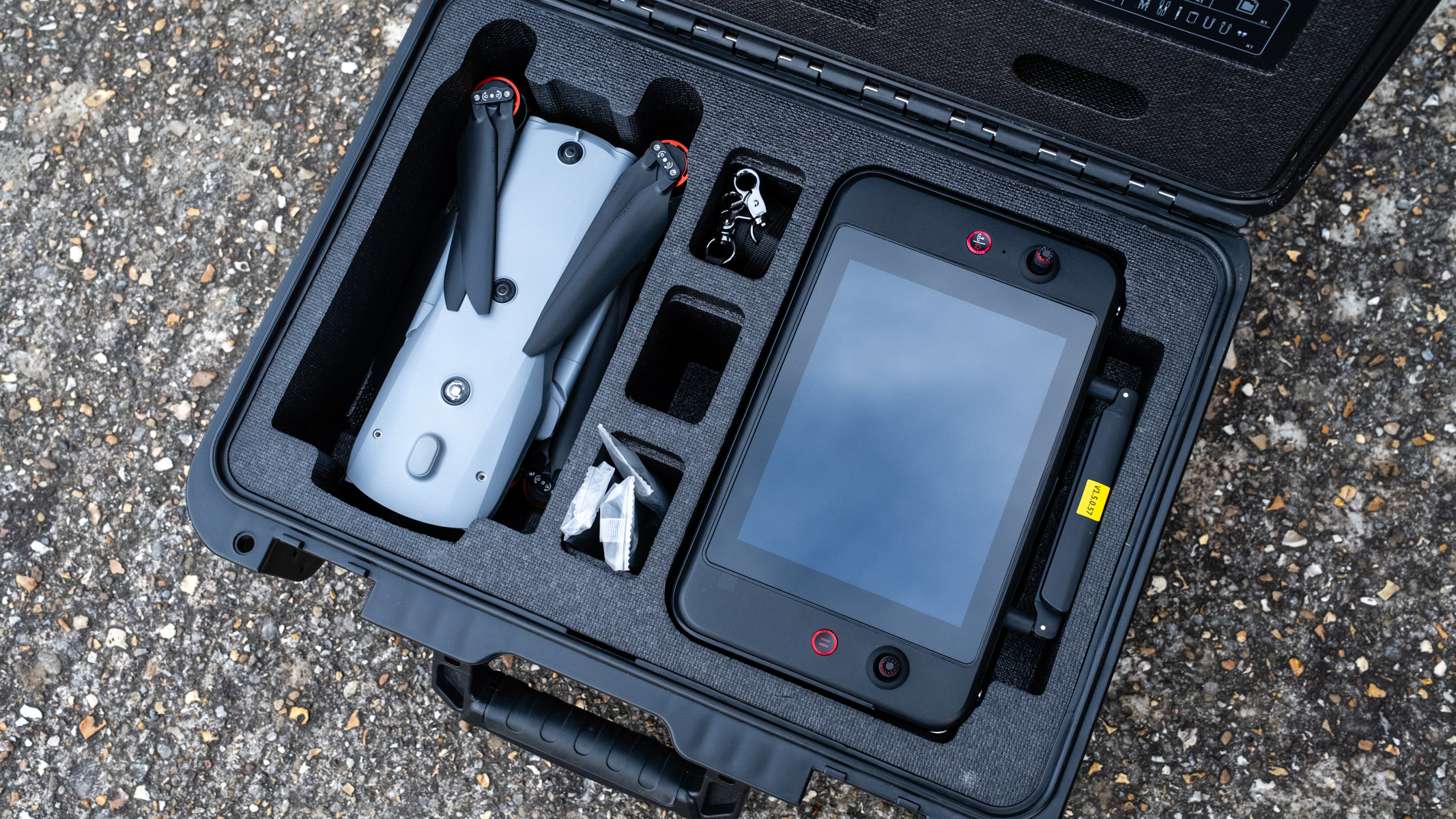
Autel EVO Max 4T
Our expert review:
Specifications
Reasons to buy
Reasons to avoid
✅ You require simplicity: While the drone isn't initially the most intuitive to operate, you will quickly find that operating the Autel EVO Max 4T is impressively simple.
✅ You’re a working professional: For professional pilots working in law enforcement, search & rescue or mapping/surveying, the Autel EVO Max 4T is one of the best drones available for these purposes.
❌ You need a small drone: The Autel EVO Max 4T is smaller and lighter than many professional drones, but despite its folding design it's still larger and heavier than medium-sized consumer options.
❌ You don't need pro-spec features: This drone is far from a consumer drone, and despite producing great image quality it’s much more expensive and feature-packed than most pilots require.
🔎 The Autel EVO Max 4T an exceptional drone for use in an enterprise setting thanks to the advanced features on offer, including the highly versatile three cameras and the Laser Rangefinder to name but a few. ★★★★½
The Autel EVO Max 4T is possibly the most unique and specialized drone in this guide since it's an enterprise drone aimed at law enforcement, search & rescue and mapping/surveying. The features on offer are directly aimed at these use cases, and despite how advanced it is, it remains intuitive to use with a small learning curve required for the more advanced features on offer.
This is a large and heavy folding drone, but the folding element does make it more portable than some other professional drones. It also delivers enough power to reach speeds of up to 51mph (42 mph in EU regions), with a maximum wind resistance is 27 mph. It's also IP43-rated for dust and water resistance, making it a highly versatile drone that can be flown even in challenging weather conditions.
There are many features on offer, including advanced obstacle avoidance, anti-jam and anti-interference technology, mission planning, and an A-Mesh system where multiple aircraft can be flown together to speed up enterprise operations such as mapping/surveying, alongside many more features.
The Max 4T comes in a comprehensive kit that includes the excellent Autel Smart Controller V3 — see more about this in our Autel EVO Max 4T review — and a tough case. Only one battery is included so more will need to be bought separately, but maximum flight times per battery are advertised at up to 42. Deployment of the drone is also incredibly fast, and it takes less than a minute for the drone and controller to connect ready for flight.
The gimbal is home to a wide-angle, a zoom thermal camera and a Laser Rangefinder. The zoom range is up to 160x and switches between an optical and digital zoom automatically. Plus, when capturing photos and videos, these are captured with both the thermal camera and either the wide-angle or zoom camera depending on which is automatically active as a result of the zoom factor selected. Overall, this is an excellent option for pilots working in the aforementioned areas.
- Read our full Autel EVO Max 4T review
Attributes | Notes |
|---|---|
Design | Folding design and compact size for an enterprise model. |
Functionality | Advanced professional features and functionality. |
Performance | Three cameras and a Laser Rangefinder for high-performance applications. |
Best attachable drone camera
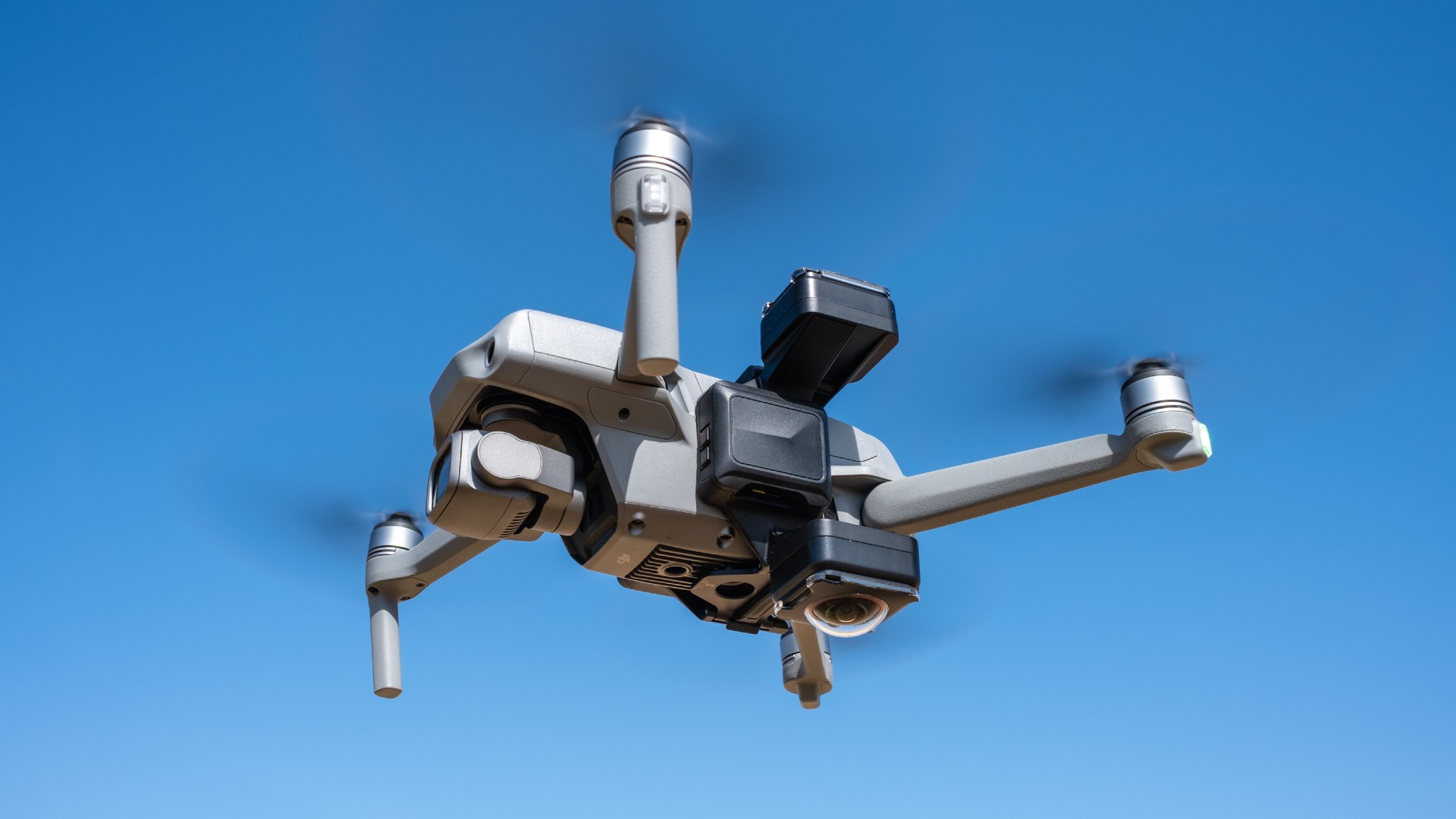
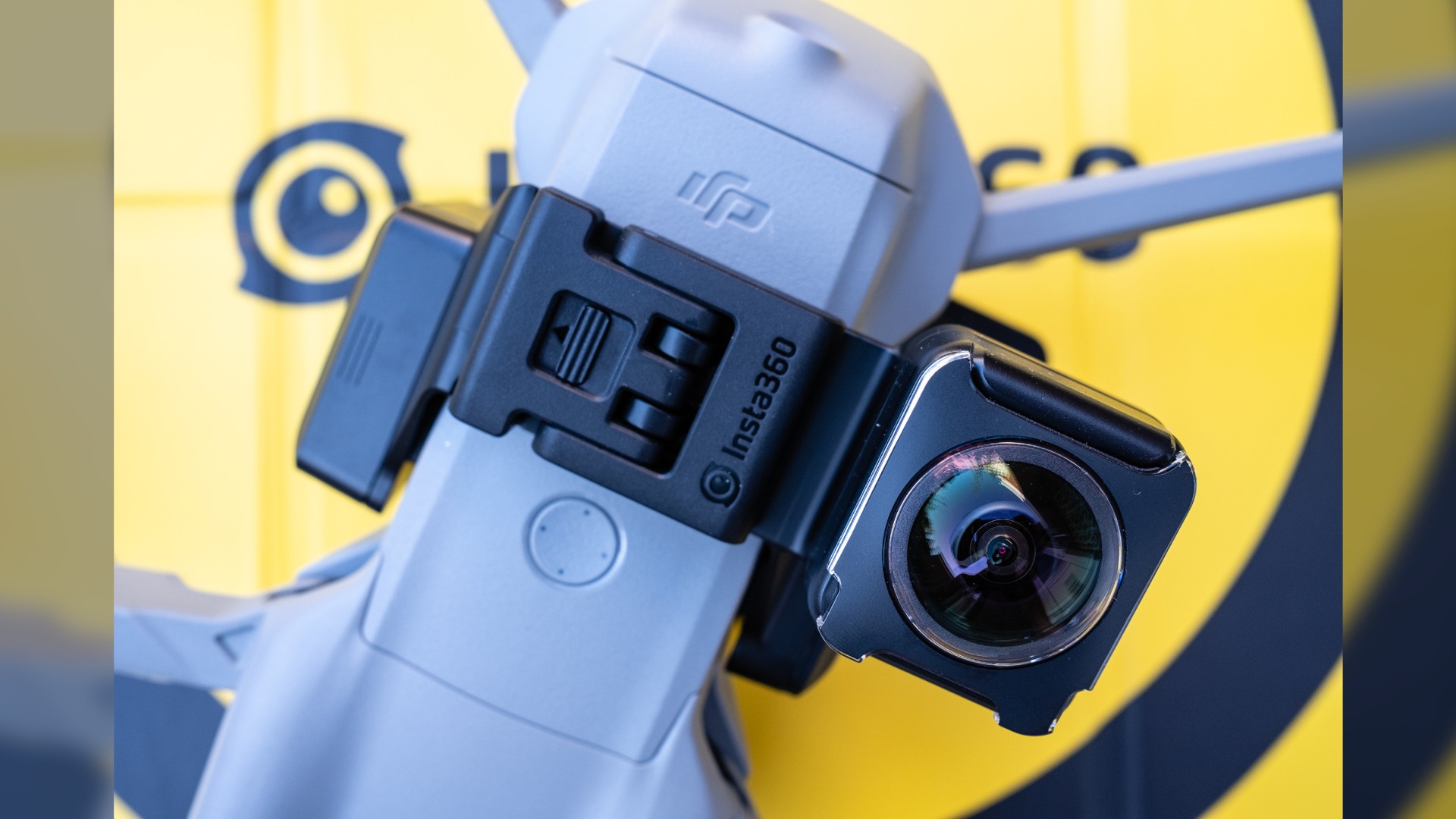
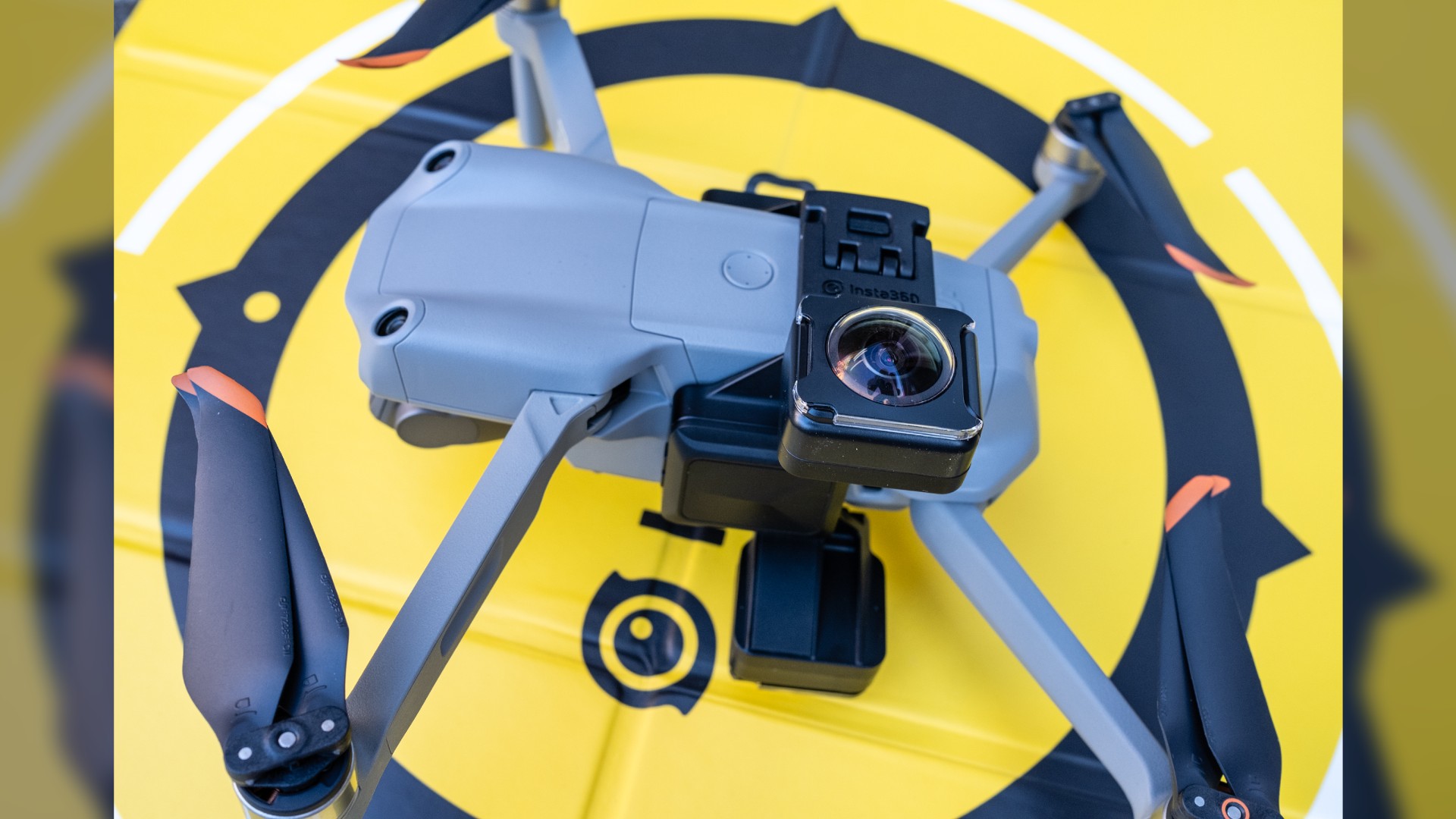
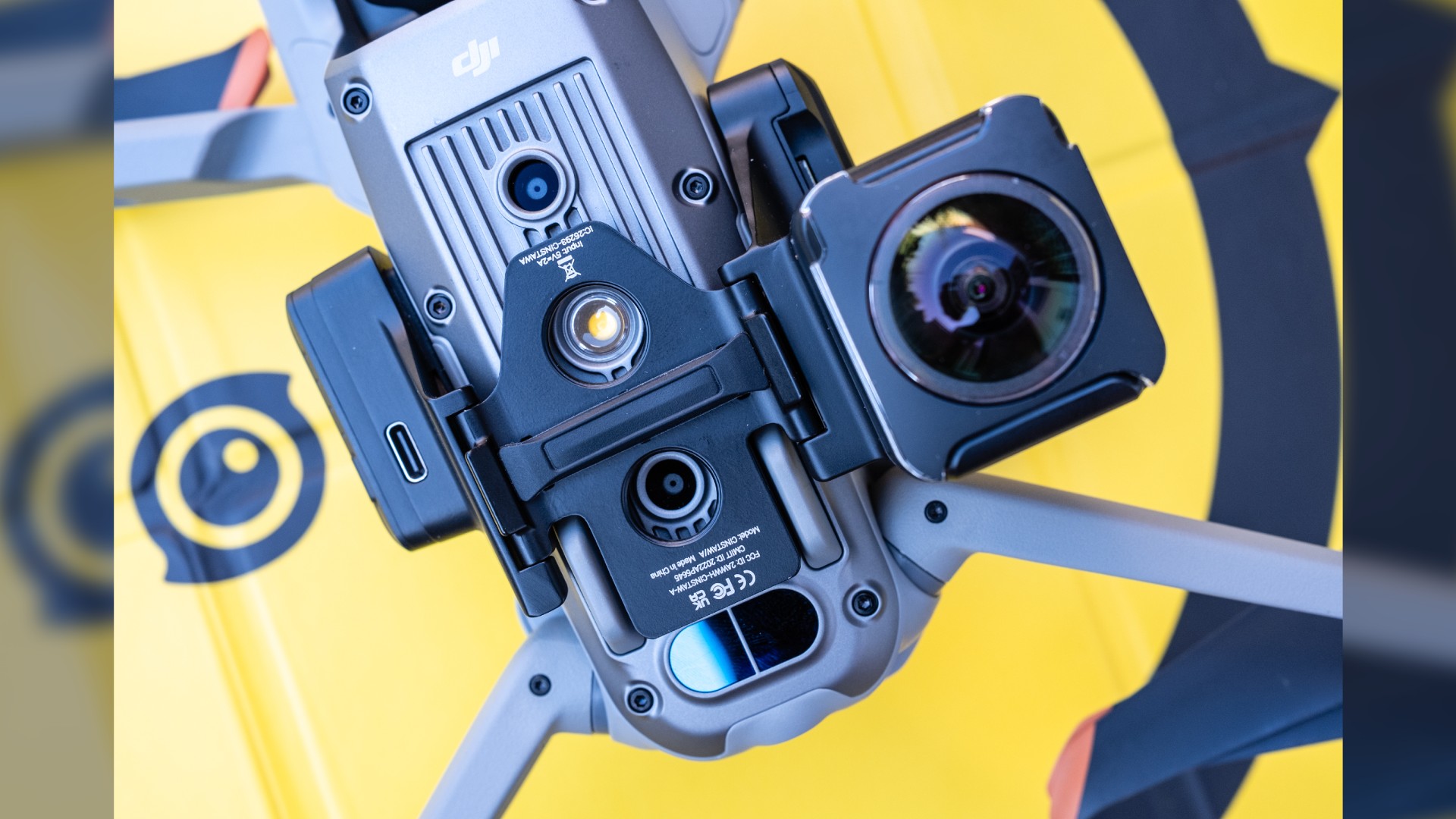
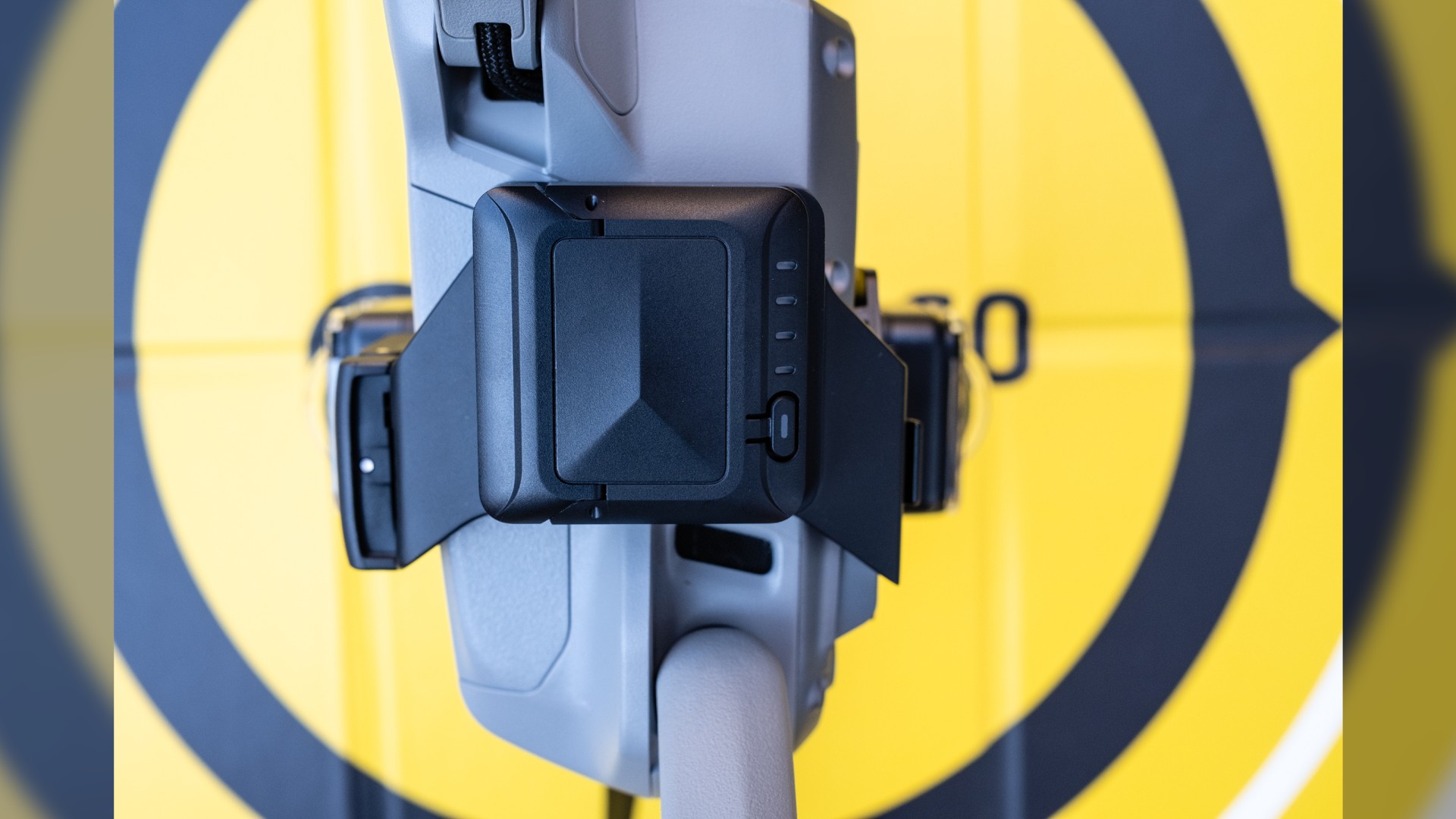
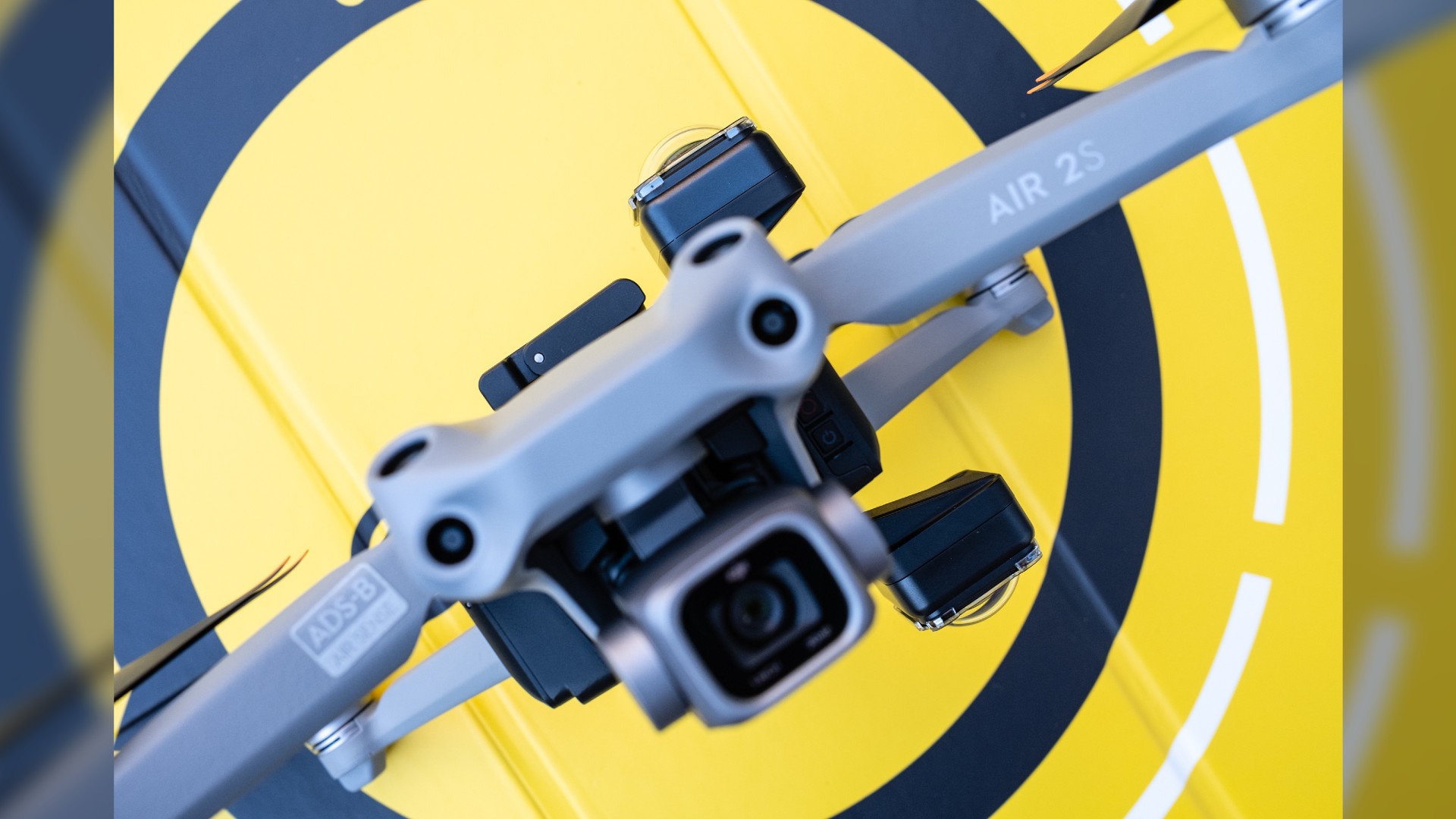
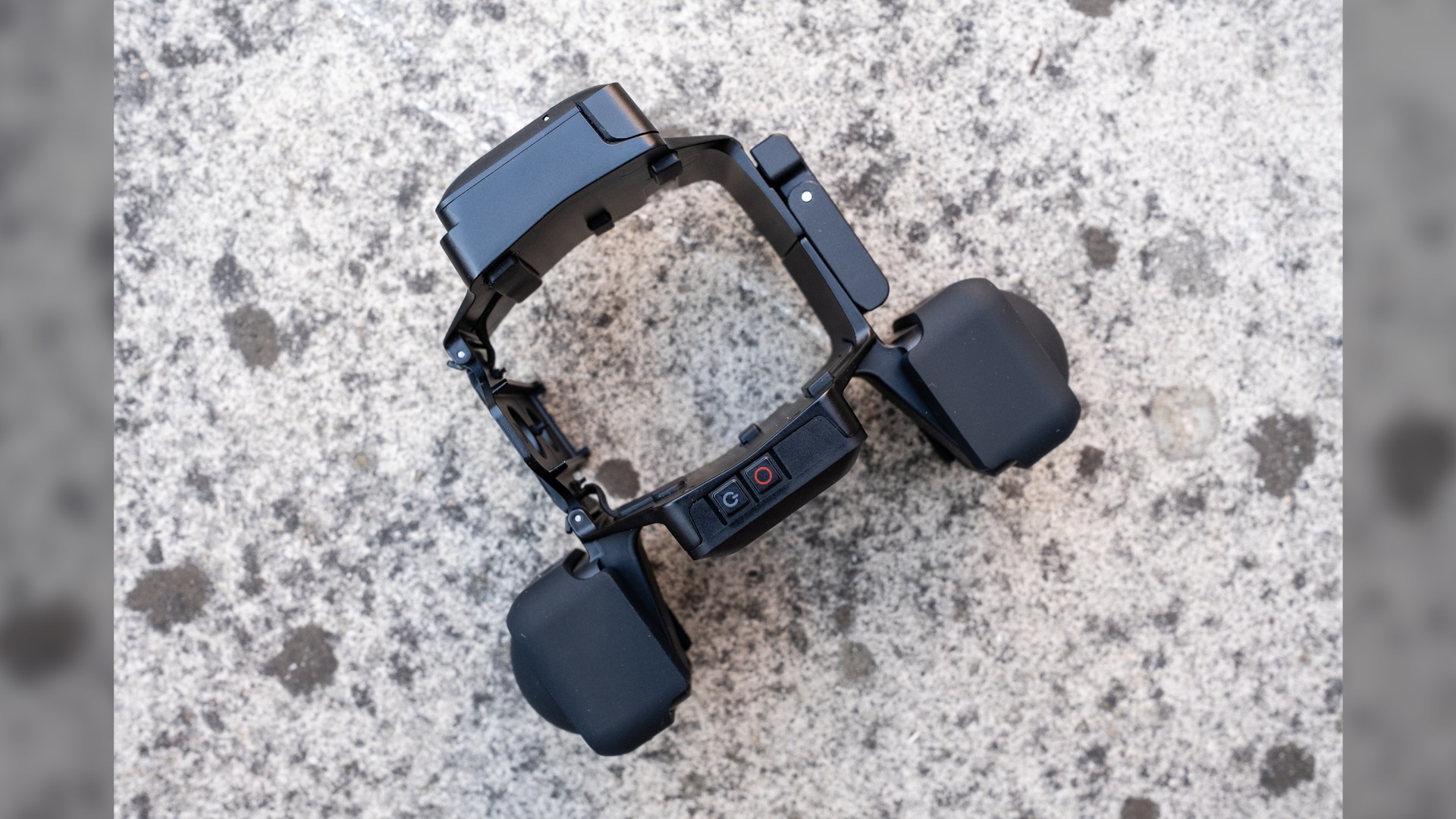
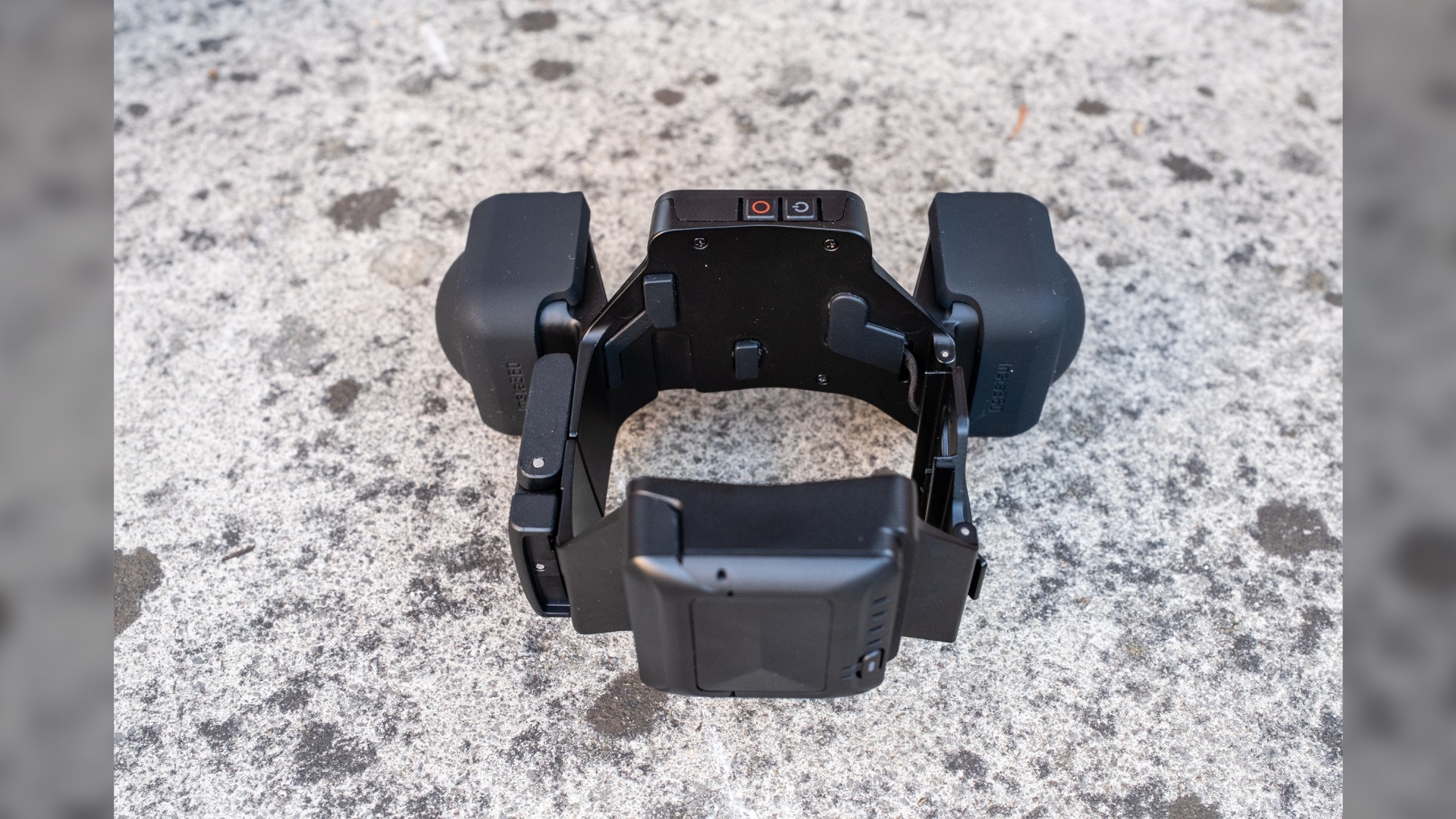
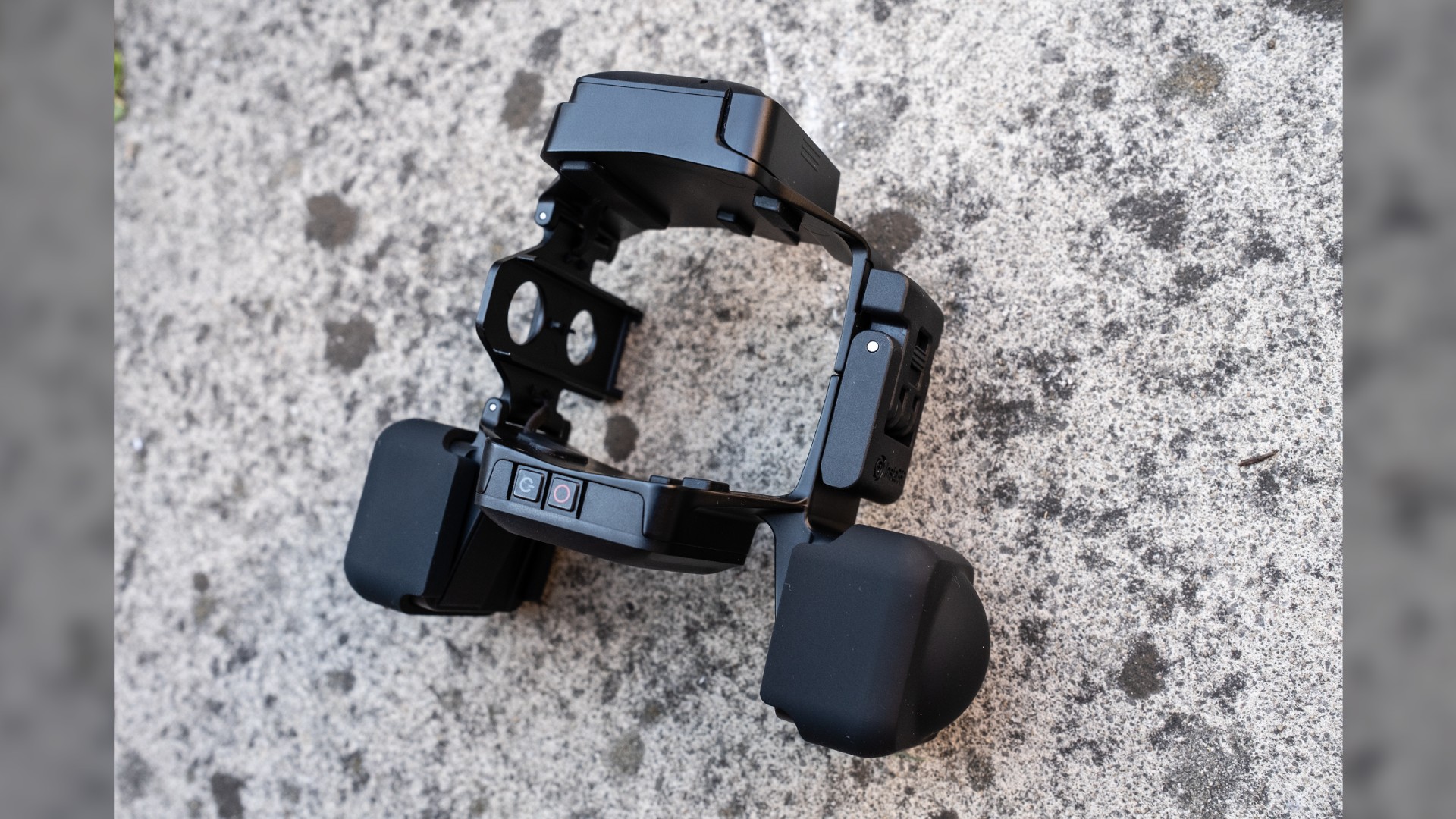
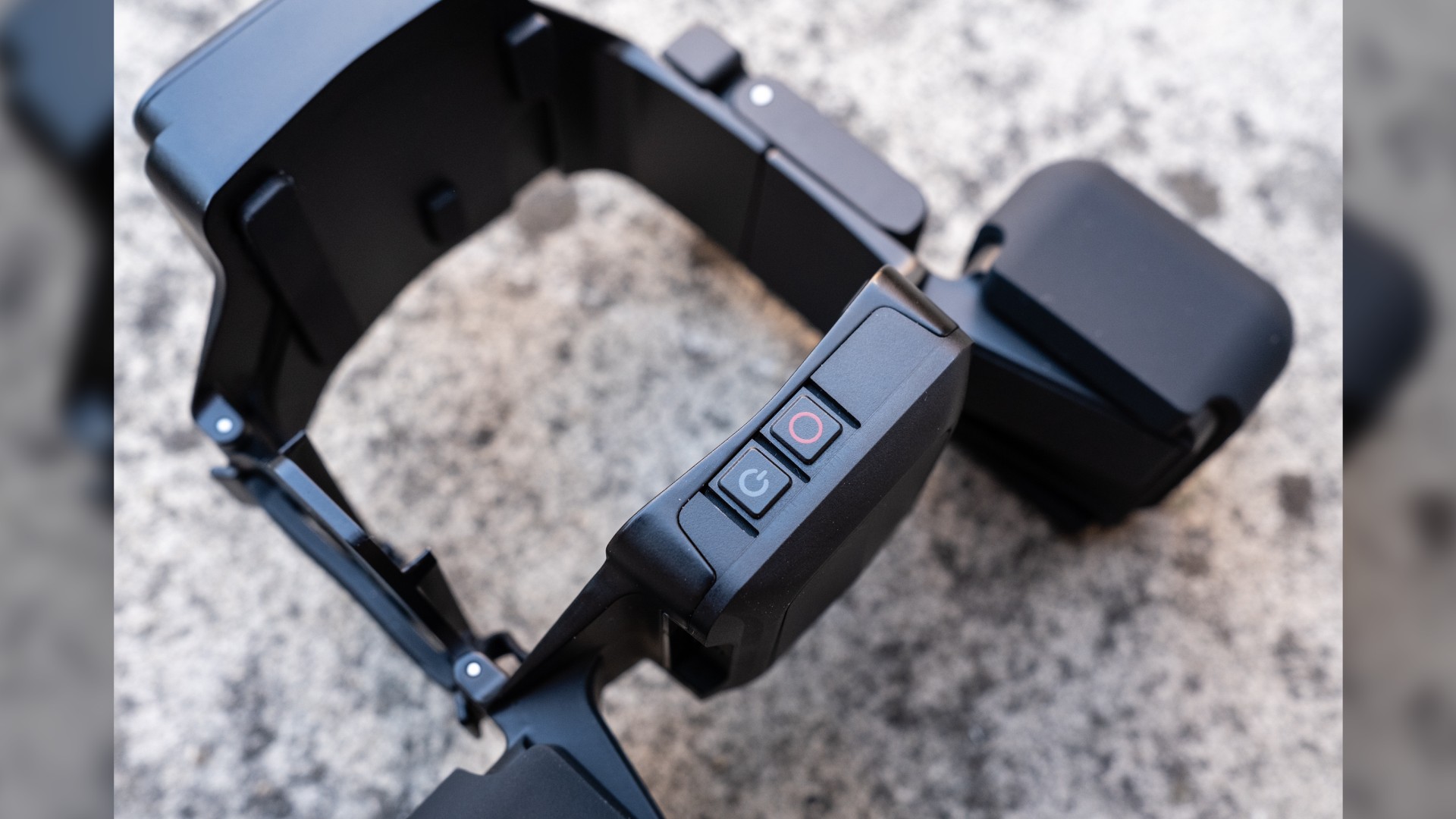
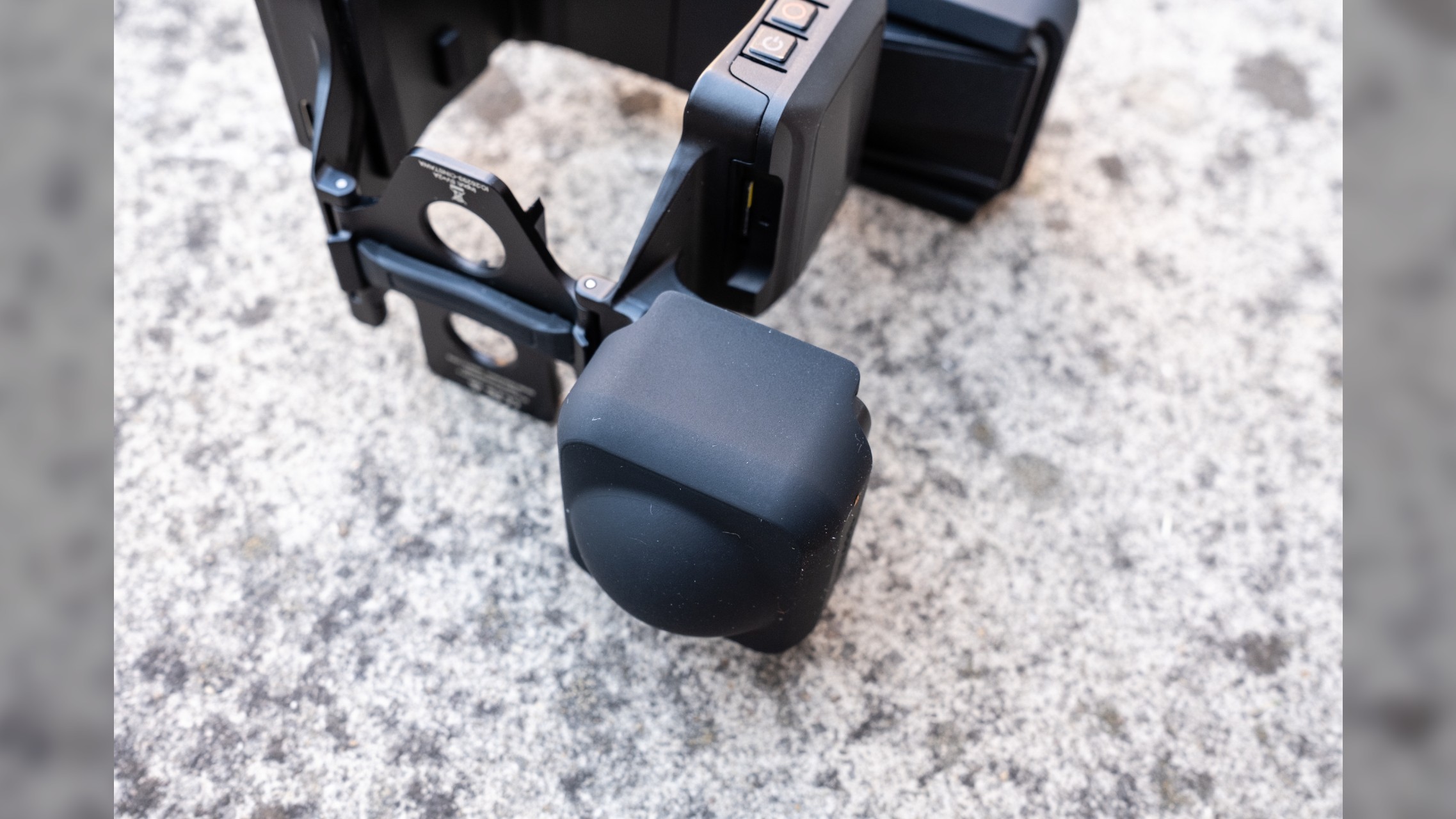
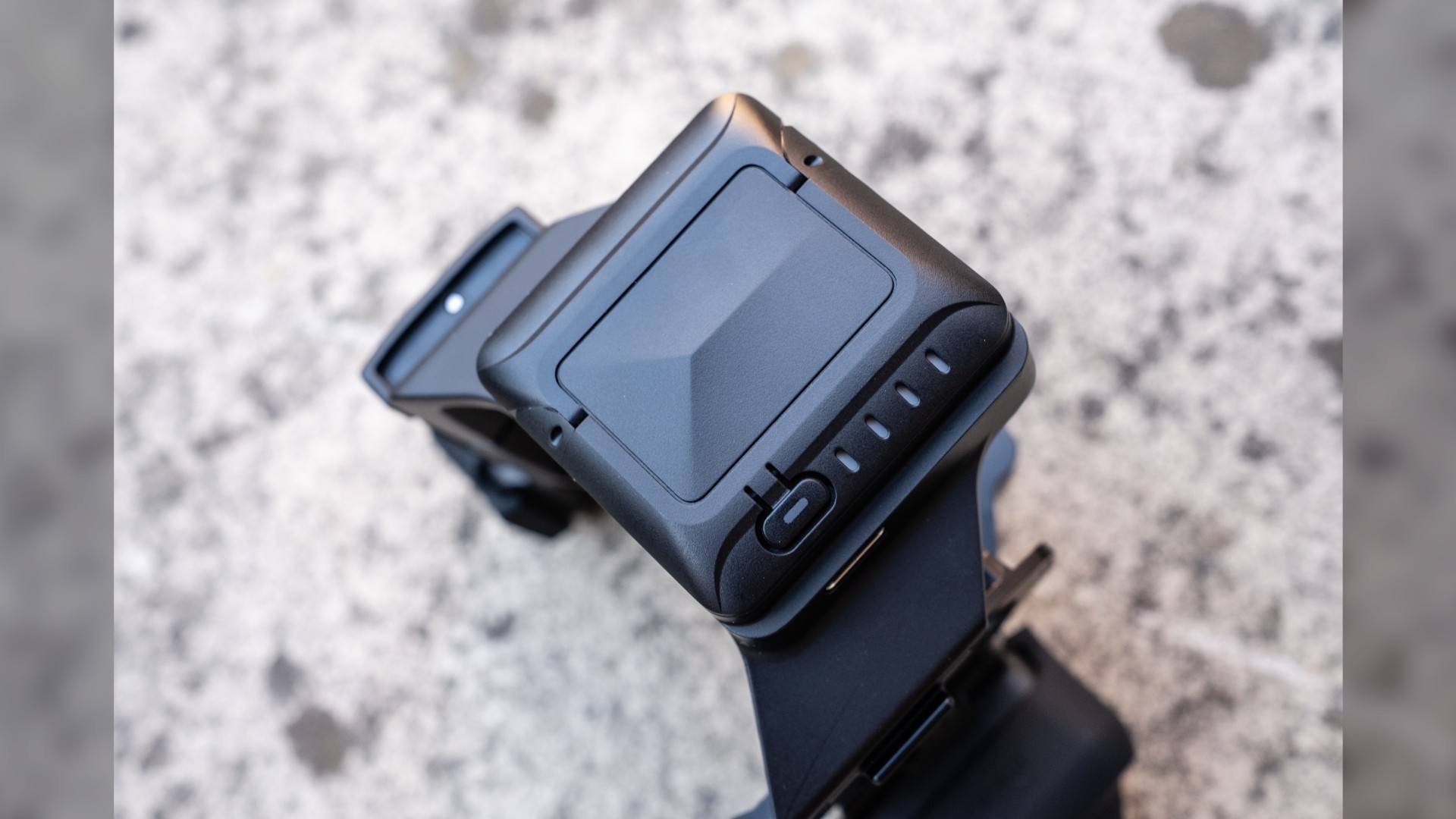
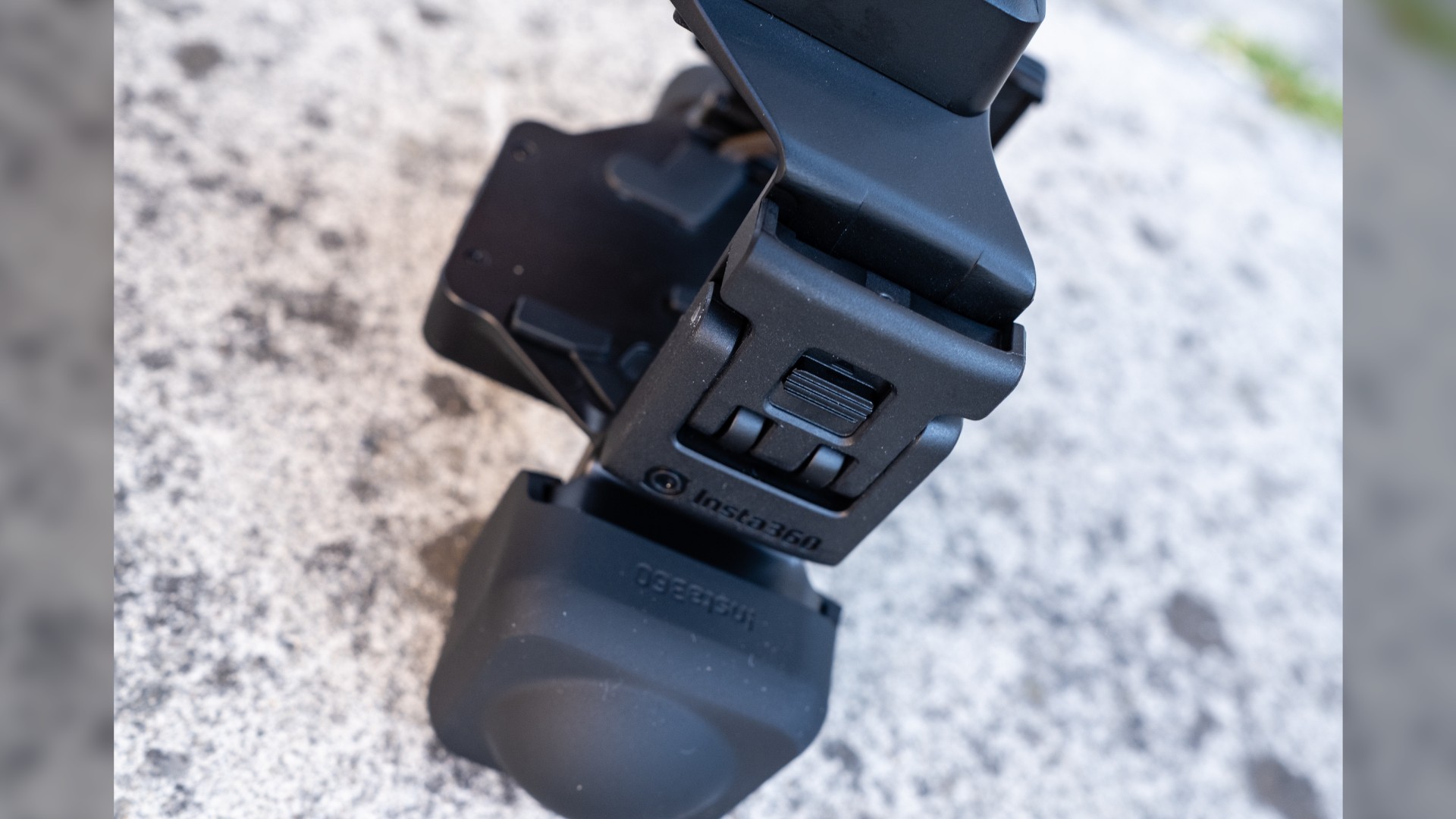
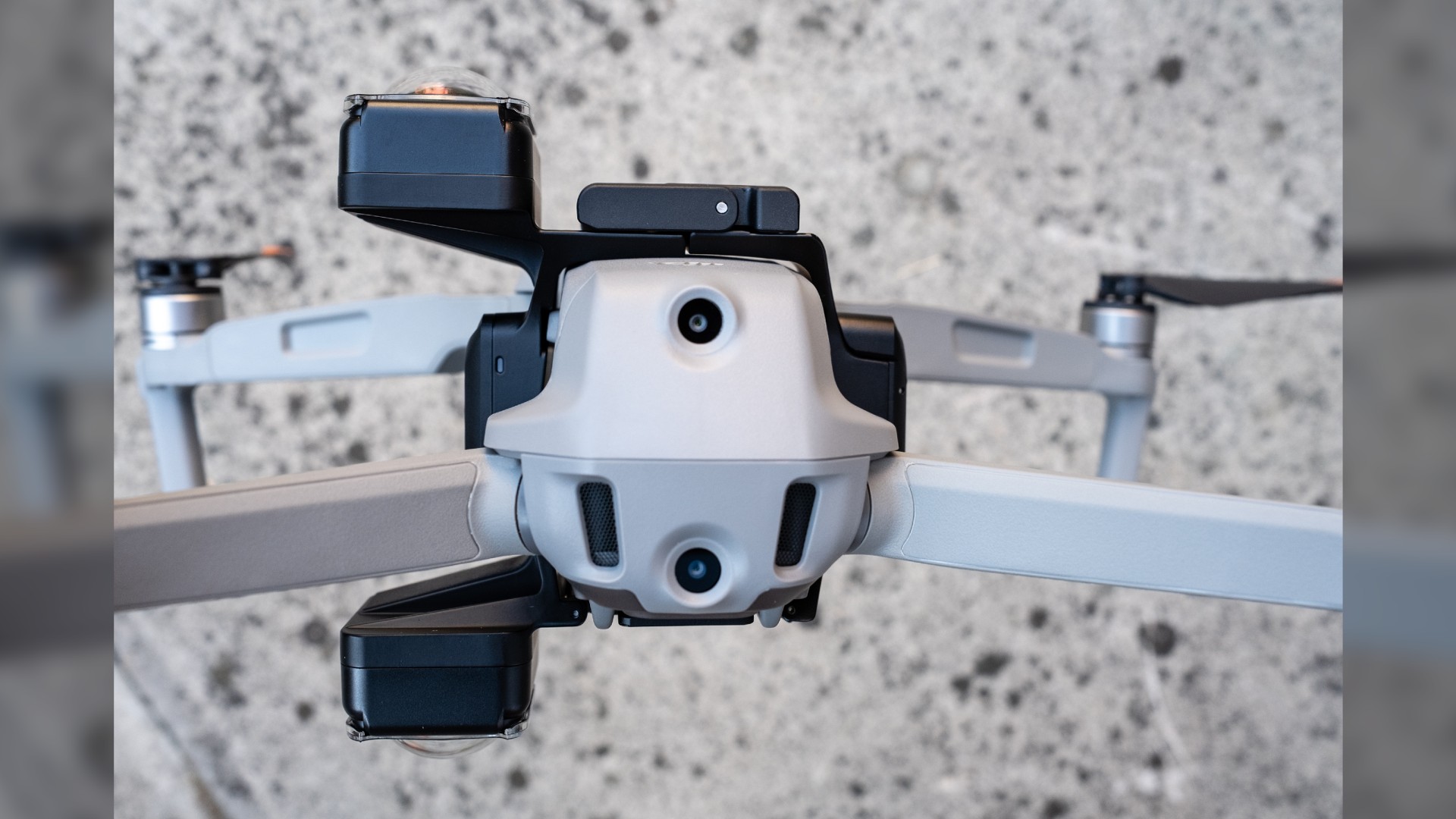
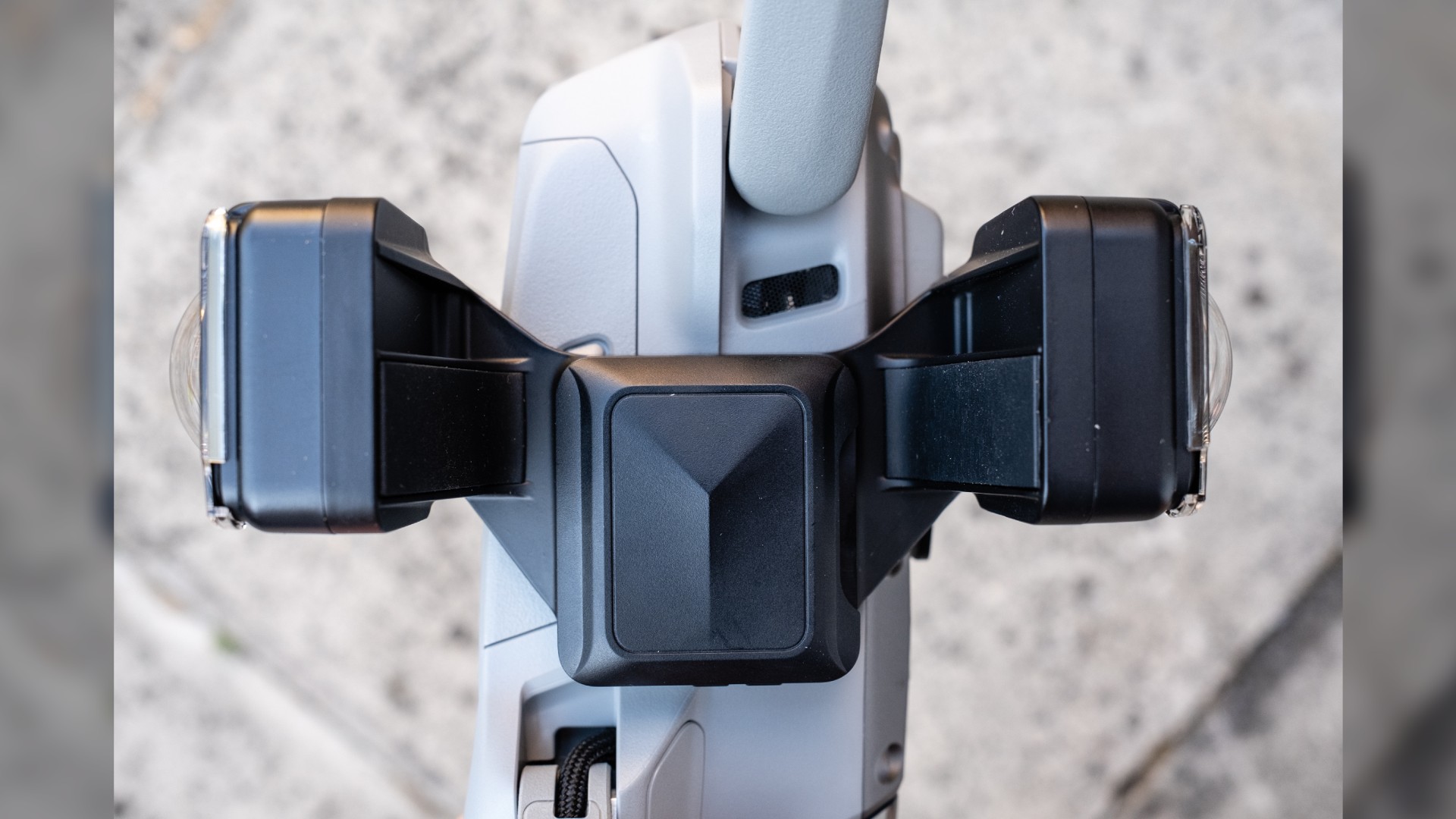
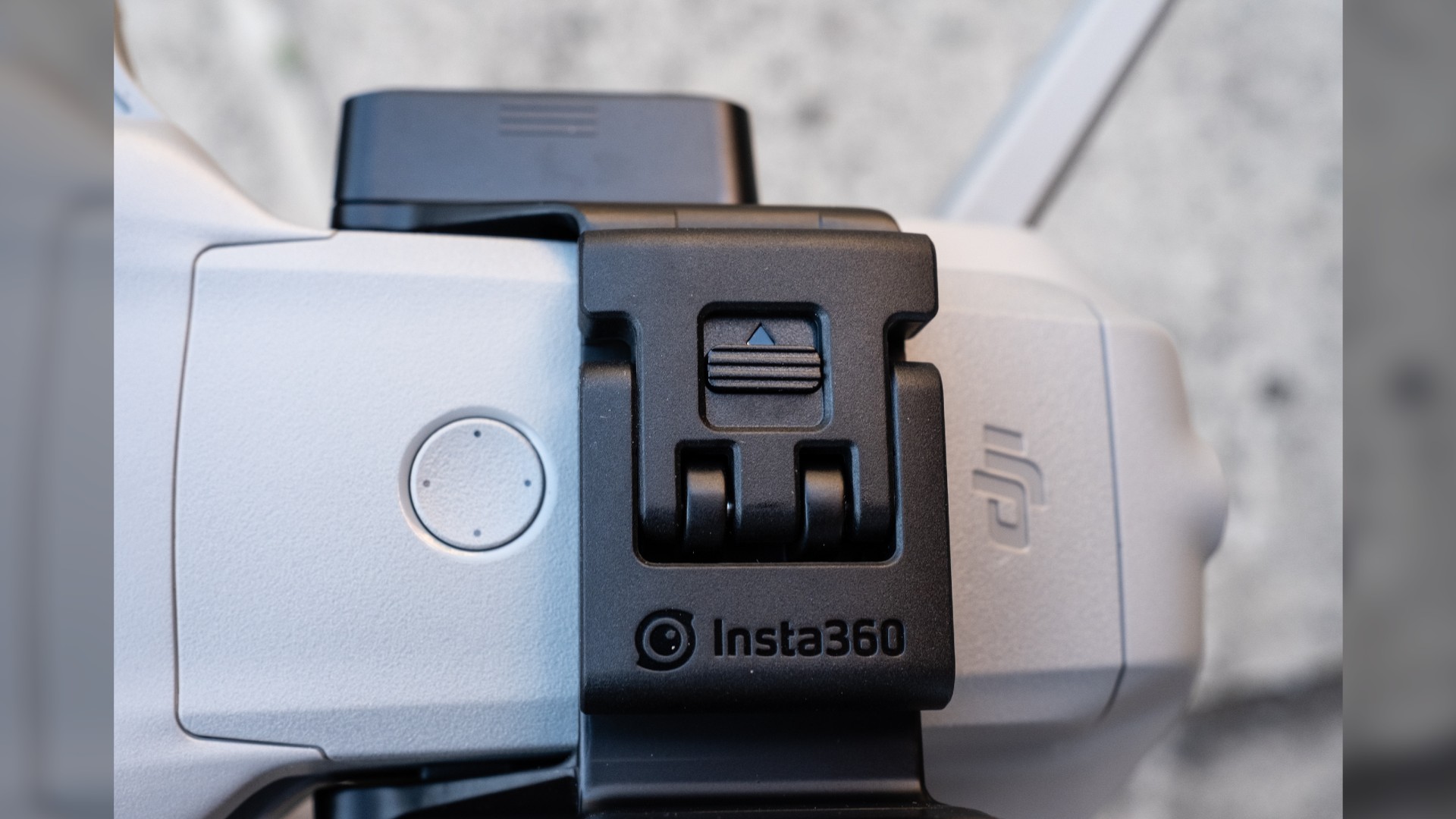
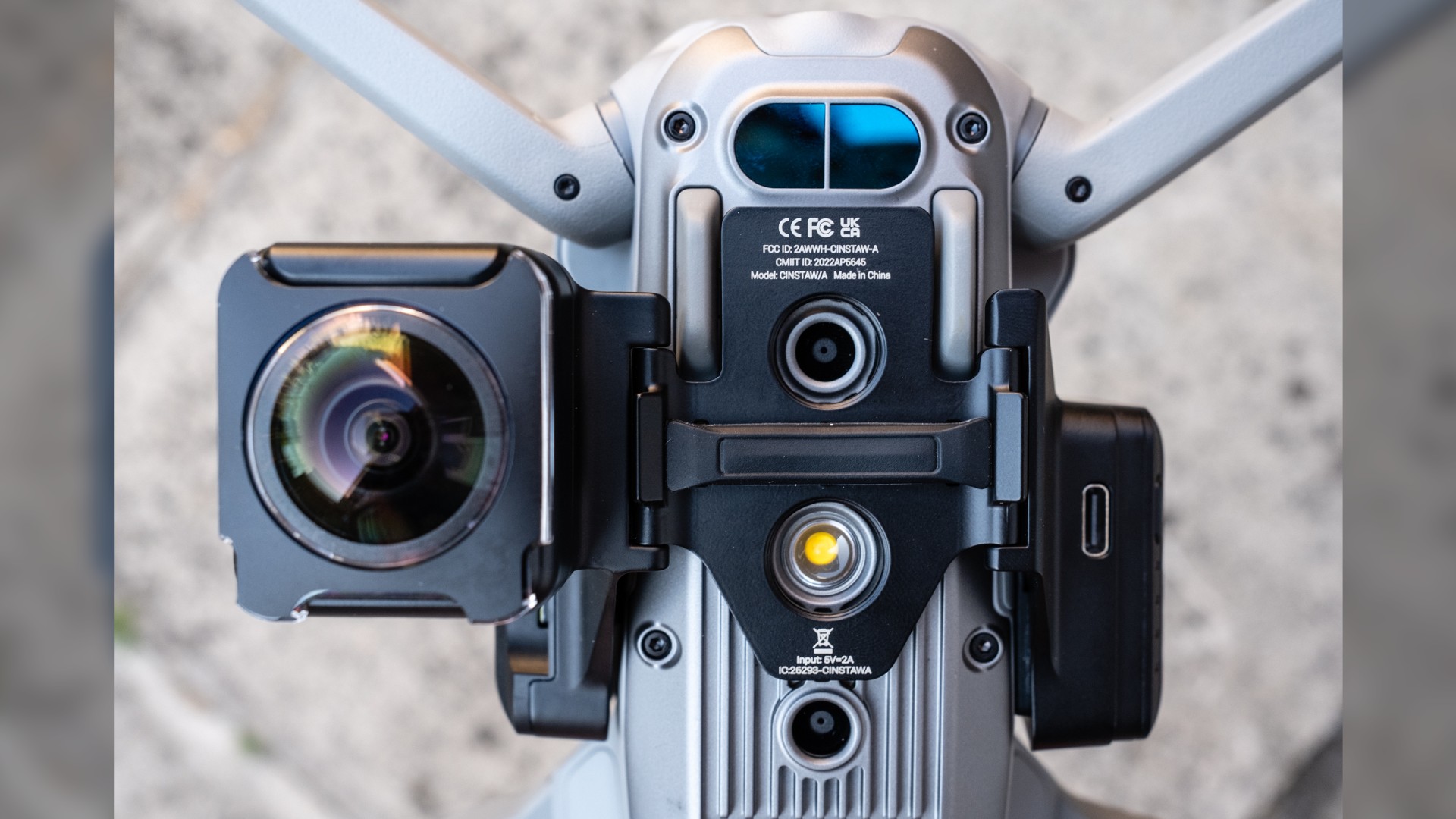
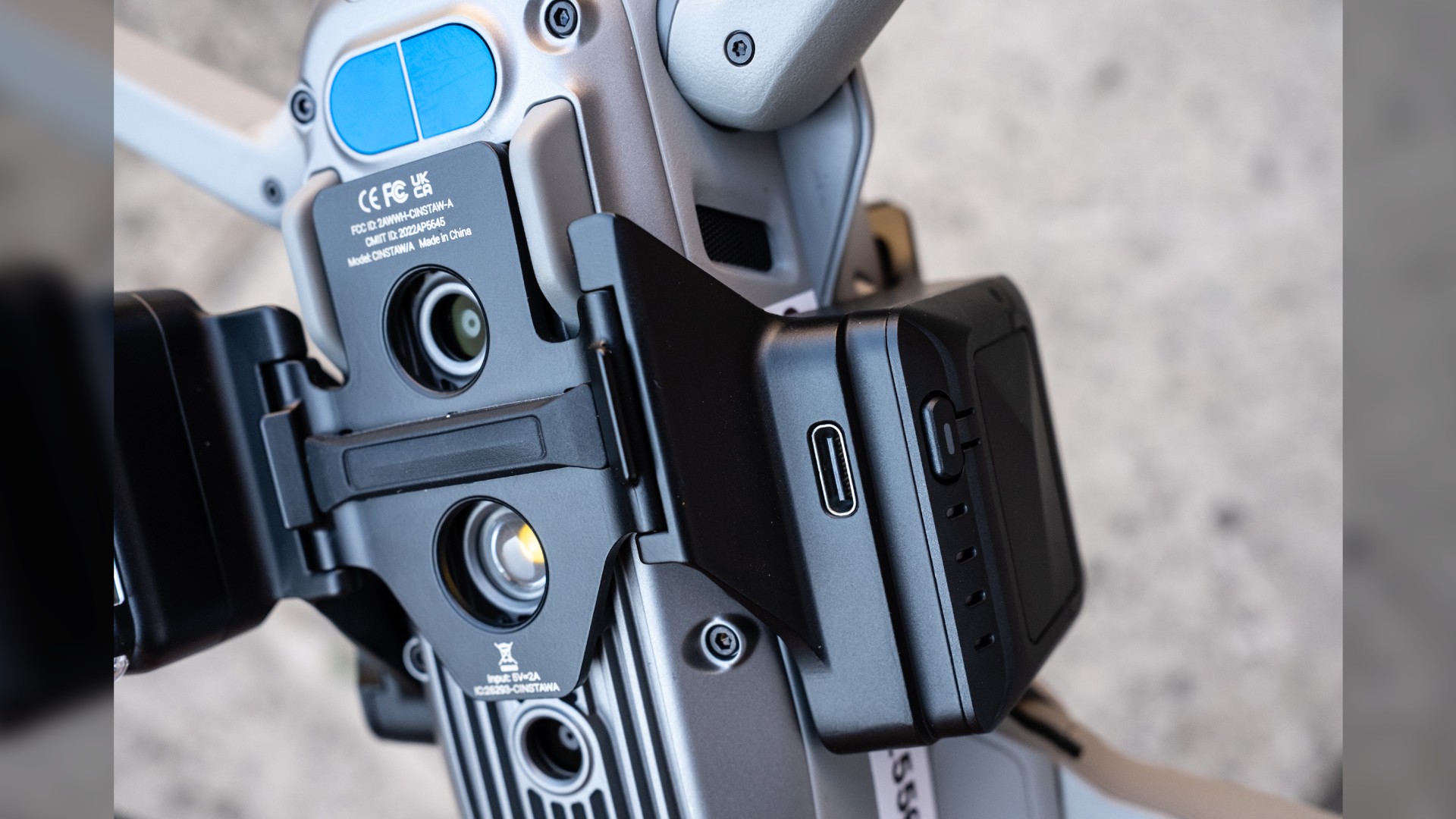
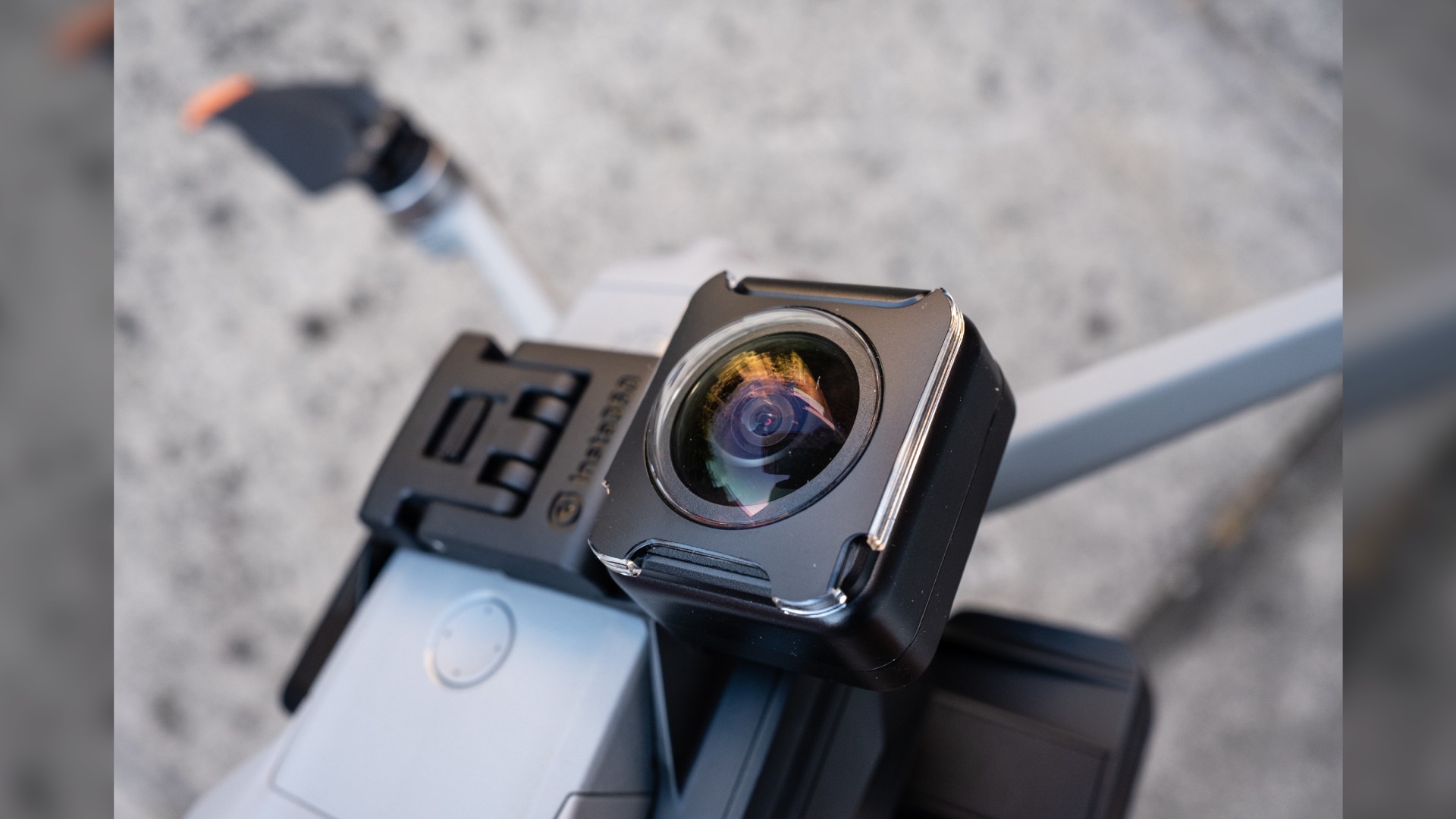
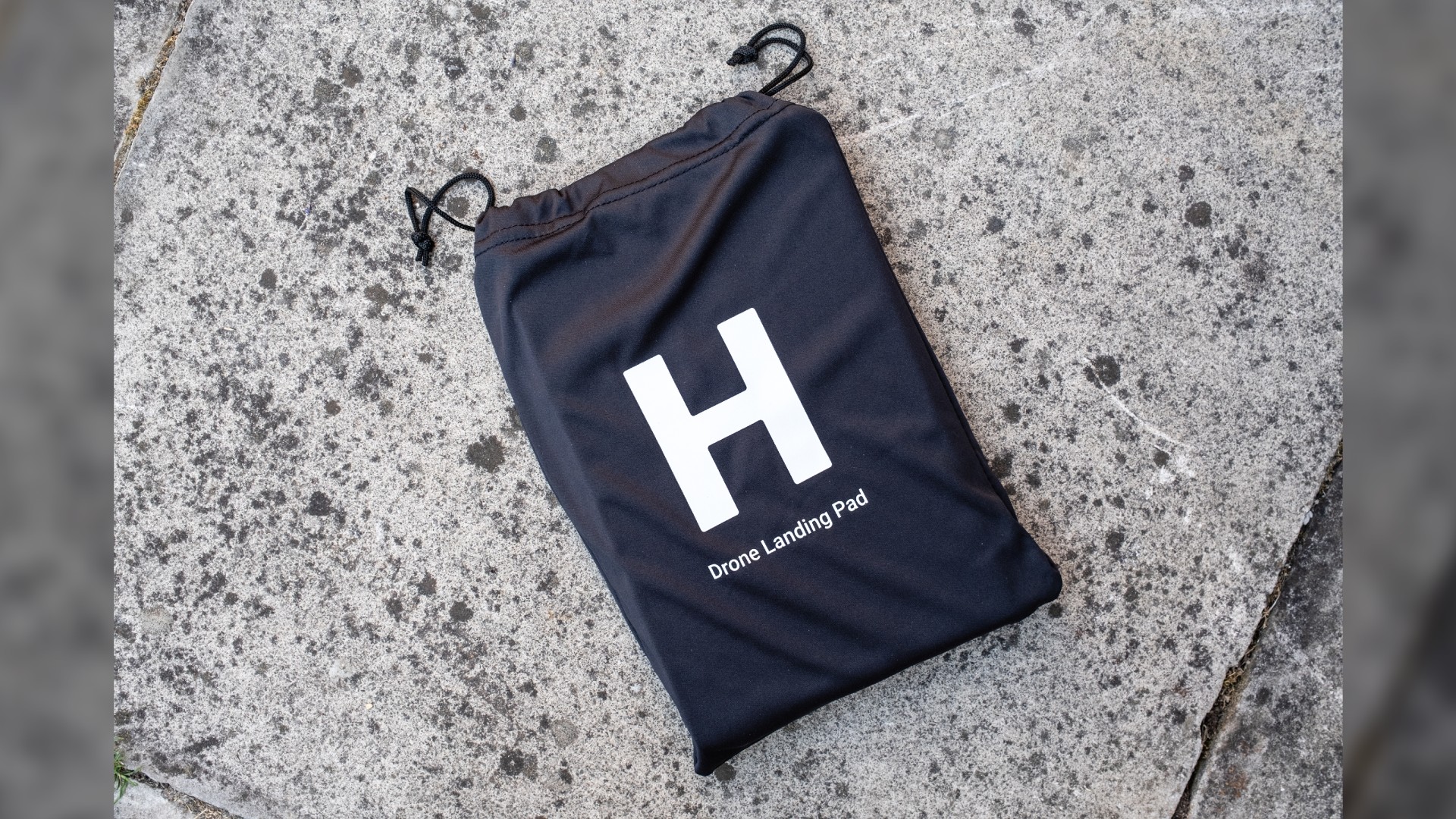
Specifications
Reasons to buy
Reasons to avoid
✅ You already own a DJI Mavic Air 2 or DJI Air 2S drone: This camera is specifically designed to be compatible with these two drones and offers you great 360° shots without the drone in sight.
❌ You're looking for a complete package: You'll need to buy the DJI Mavic Air 2 or DJI Air 2S drone separately to be able to make use of this camera.
🔎 Insta360 Sphere Owners of the DJI Mavic Air 2 and DJI Air 2S drones will love the seamless 360° views on offer with this camera. With video available up to 5.7K, you can produce some very creative shots and you're also able to mimic the effects of an FPV drone. ★★★★
In a departure from the rest of our list, we wanted to include the Insta360 Sphere because it offers an innovative way of capturing FPV-style drone footage from your DJI Mavic Air 2 or DJI Air 2S camera drone. If you're not sure of the difference, take a look at our 'What are FPV drones?' article to find out more.
The Insta360 Sphere consists of one camera facing upward and another facing downward, allowing you to capture a complete 360-degree view during flight. It securely attaches to your drone's airframe, ensuring no parts of the drone appear in the shot. After capturing footage, you can apply video effects using templates and keyframes through either the phone app or desktop app during editing, which we liked in our Insta360 Sphere review.
The standalone kit will set you back around $423/£440 and includes two sticky lens guards, two lens caps, one battery, a charging cable, a lens cloth and a landing mat. Or you can choose to buy the memory card kit at around $440/£456 which includes an additional 64GB microSD card.
This brings the recent 360-degree photography trend neatly to the world of drones and opens up a whole host of creative possibilities, but unfortunately, it is only compatible with the DJI Mavic Air 2/2S line of drones.
The two cameras provide a 360-degree view around the drone and can capture 5K video at up to 30 FPS and 4K video at up to 50 FPS. Camera control is via the Insta360 smartphone app, but with the WiFi connection being limited to 10m, you can't control the camera beyond this point. It's not a problem because camera settings can be dialled in before take off, and the recording stopped after the drone has landed and you've reconnected the camera and app.
- Read our full Insta360 Sphere review
Attributes | Notes |
|---|---|
Design | Designed to be mounted on DJI Mavic Air 2 and DJI Air 2S drones |
Functionality | Offers 360° and FPV-style shooting |
Performance | Stunning video up to 5.7K |
Best Selfie Drone
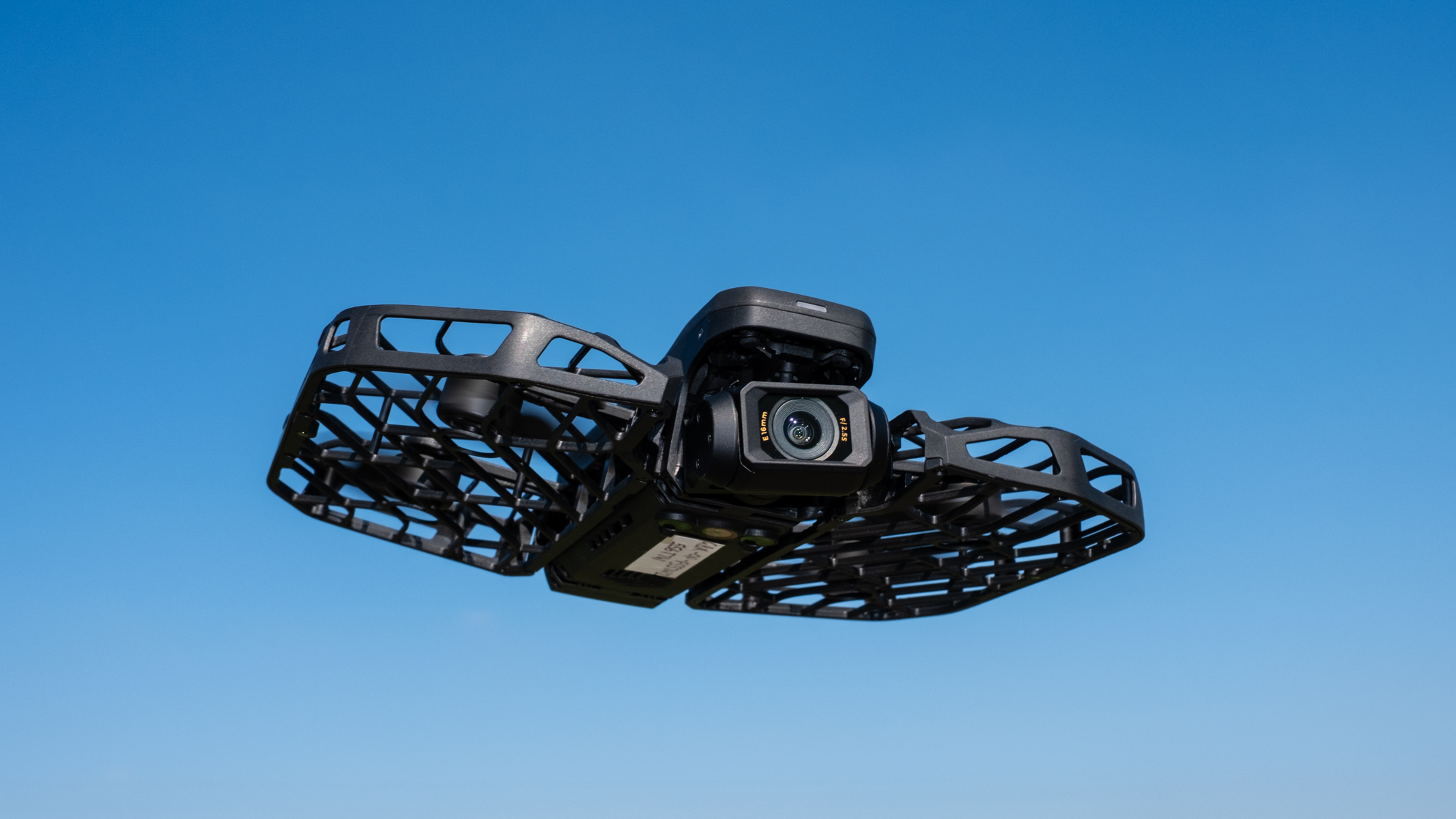
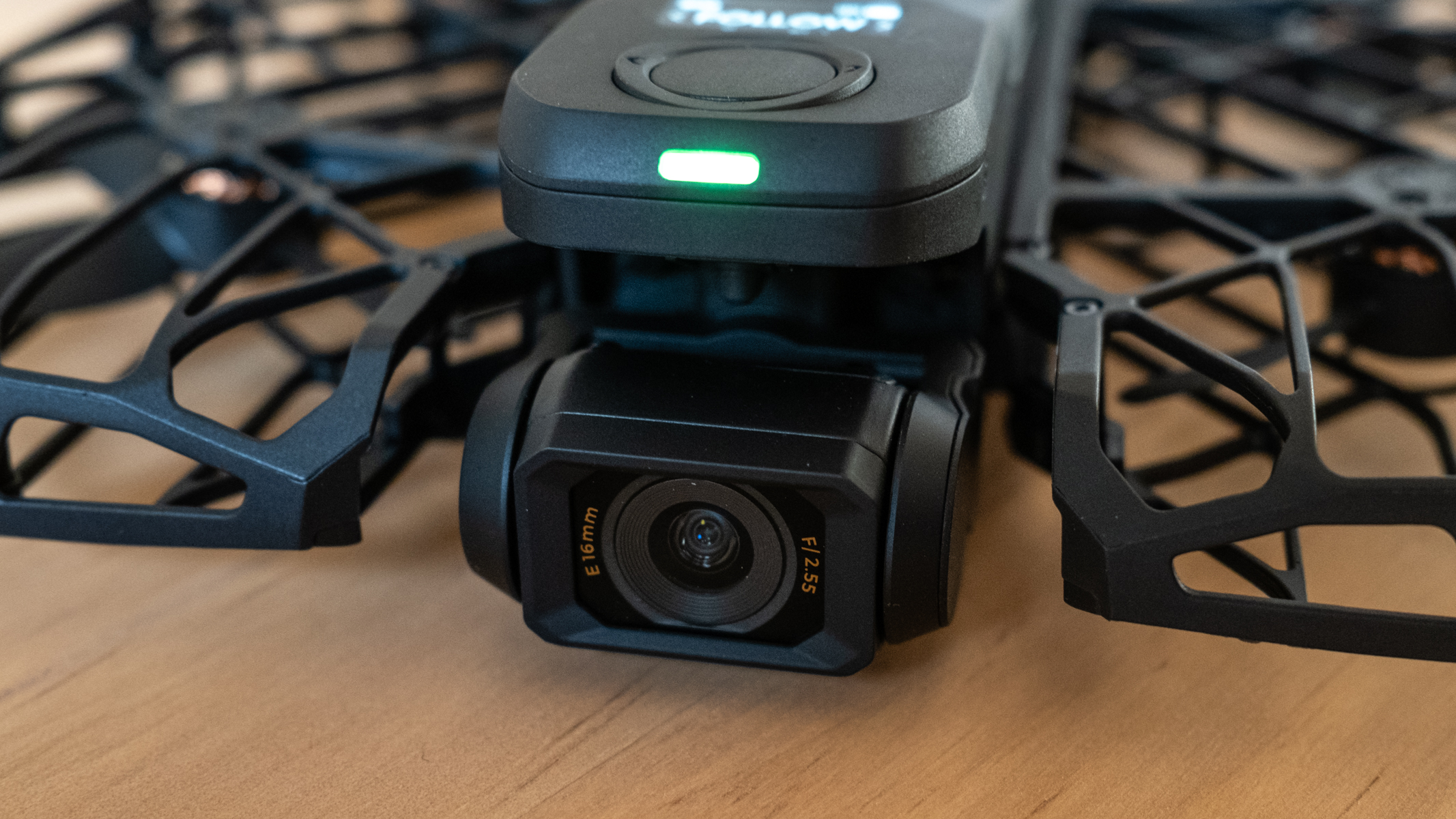
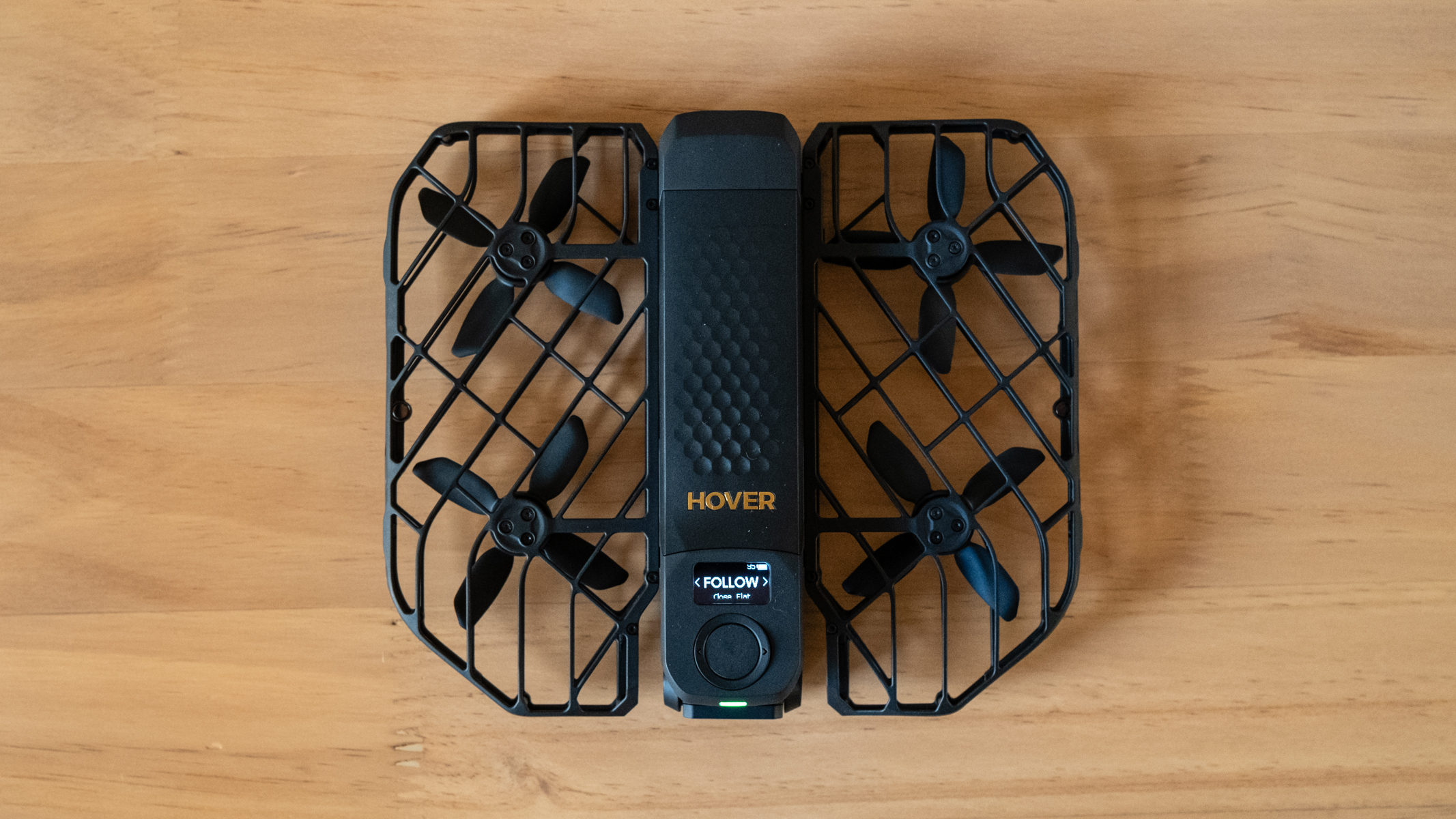
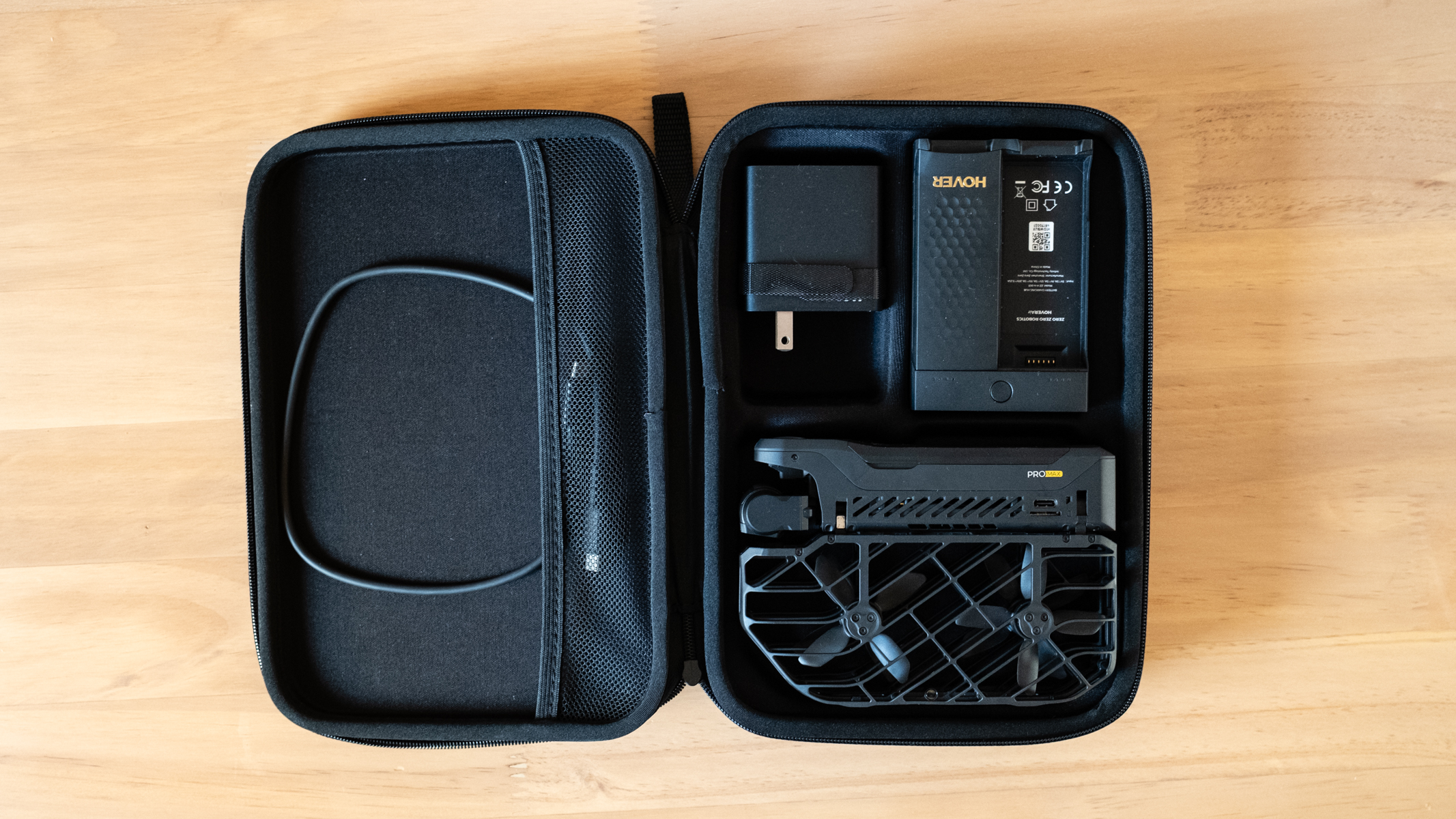
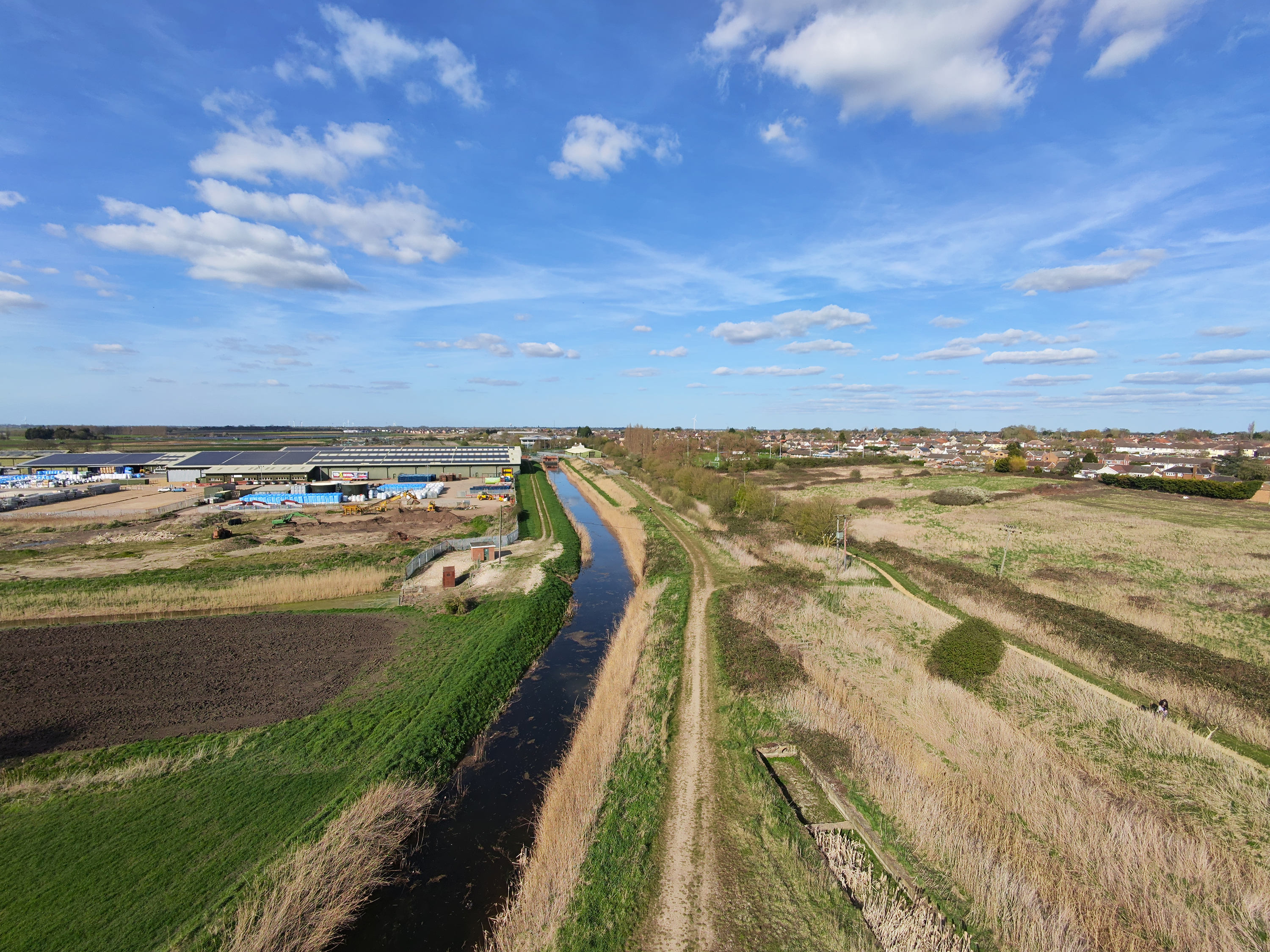
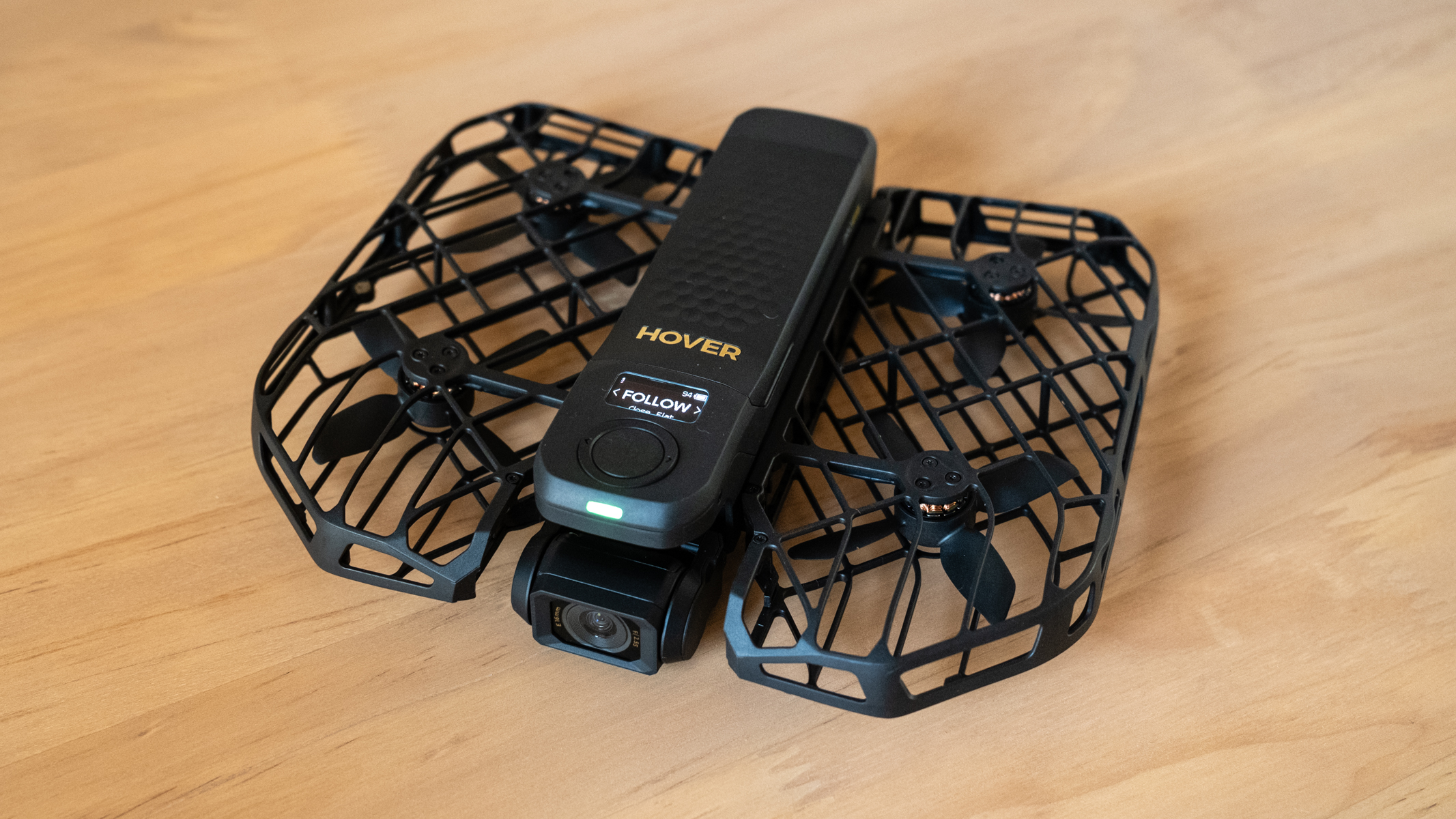
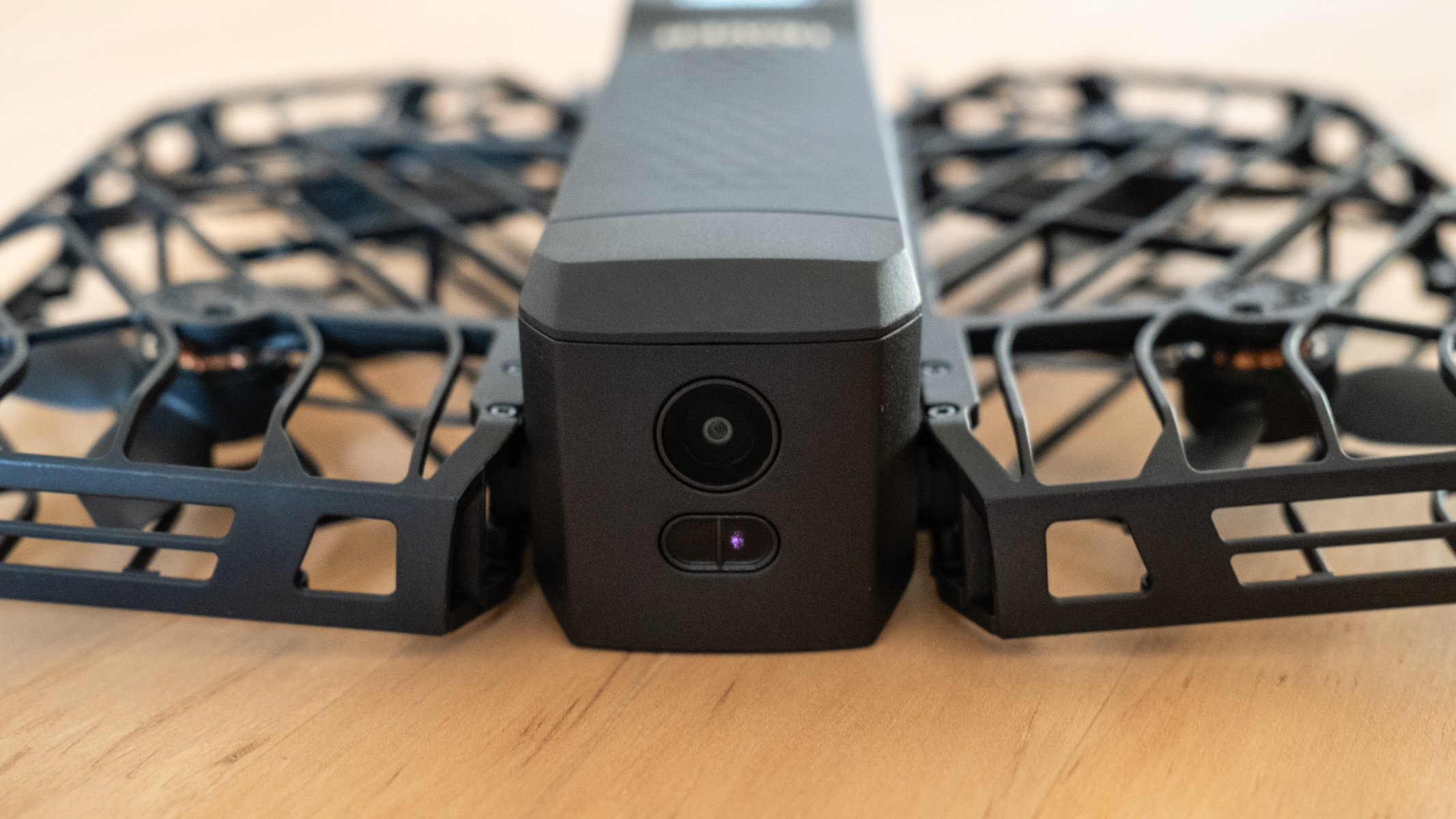
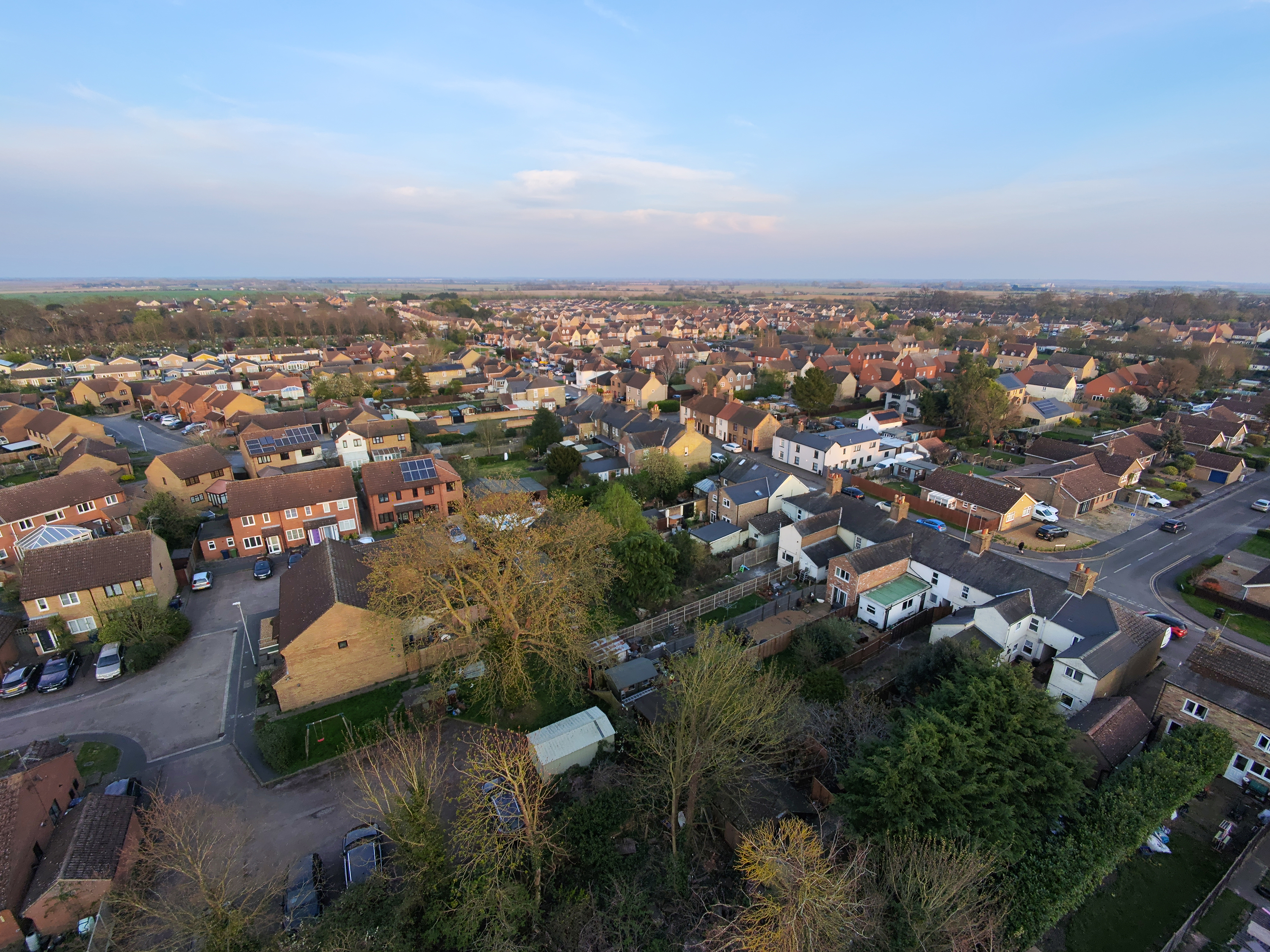
Specifications
Reasons to buy
Reasons to avoid
✅You want a drone for vlogging and personal footage: The HoverAir X1 PROMAX offers an 8K video camera and an easy-to-use design, perfect for
❌You need a strong performer in strong winds: The HoverAir X1 PROMAX is a great drone, but let down slightly by its performance in strong winds as it features a two-axis gimbal, which is decent, but other similar drones feature a three-axis gimbal.
🔎HoverAir X1 PROMAX: An excellent selfie drone that captures your outdoor adventures in up to 8K thanks to its fantastic camera, it's also easy to use and can be controlled from your smartphone.
The HoverAir X1 PROMAX drone is an excellent camera drone and the best selfie option out there. By that, we mean it's simple to use and boasts a fantastic camera that can capture video in up to 8K. It also has subject tracking and can be controlled via a smartphone, meaning it's excellent for vlogging and capturing your adventures on the go.
As it's one of the best camera drones around, it's no surprise that its main feature is its camera. A 1/1.3in CMOS & 16mm lens can capture 8K video up to 30 FPS and a high-definition quality all the way up to 120 FPS. There's a 107-degree field of view and images can be captured in up to 48MP resolution, but in JPEG format only.
It also has some handy features, including excellent subject tracking and flight modes like follow, indoor follow, zoom, bird's eye and more. It also has OmniTerrain functionality which can allow the drone to fly just over water, for example, return to home functionality as well as safe palm lift-off.
As it weighs under 200g and has dimensions of 4.13 x 5.86 x 1.34 in / 105 x 149 x 34 mm when folded, it's super convenient for taking it with you, thus making it ideal for personal vlogging and capturing your own content on the go. However, the battery life isn't the best at just 16 minutes, so a charging hub or spare batteries is recommended.
You can read our comprehensive HoverAir X1 PROMAX review for an in-depth look.
- Read our full HoverAir X1 PROMAX review review
Attributes | Notes |
|---|---|
Design | Compact and lightweight folding design, built-in propeller guards, multiple control options |
Functionality | Highly effective subject-tracking, palm take-off and landing, OmniTerrain feature |
Performance | Excellent video quality, photos in JPEG only, effective stabilization |
Camera drone FAQs
What is the best camera drone?
The best camera drone on the market is the DJI Mavic 4 Pro. You can read our DJI Mavic 4 Pro review to find out why, but in short, it's a cut above everything on the market. We also think it's the best drone out there. It has three cameras and features up to 100MP resolution in images in Raw and JPEG as well as up to 6K video and complete camera rotation. It's also jam packed full of useful features and is made very, very well.
What's the difference between a camera drone and a regular drone?
The big difference between a camera drone and a regular drone is that a regular drone is designed for general flying and fun, whereas a camera drone is built specifically for capturing quality videos and stills. A camera drone's USP is usually a high-quality camera.
Can I shoot footage at night?
Yes. Of course, shooting at night means you'll have less visibility, so the best time is during blue hour, which is usually about half an hour before sunrise or half an hour after sunset. This is because the sky turns from complete darkness to a blue-like color and the first/last signs of light mix with manmade light to give you a night sky with visibility. If you do shoot at night, there are regulations you must adhere to. You will have to attach a suitable light source to your drone, which will usually take sub-250g models over the 250g point, at which point drones will have to be registered with the FAA.
Is it really worth having a camera drone?
This all depends on your intended use for a drone. If you're looking to use a drone to capture footage or to bolster your photography arsenal by using a drone, then absolutely. If you're looking just to fly for the fun of flying, or you're just getting into the world of drones, then you don't need a camera drone, but they do offer another dimension to your experience that can offer a lot of fun.
How reliable are the cameras on camera drones?
Generally, they're okay. The only reason you would use a camera on a camera drone is to get aerial footage or moving footage. Some cameras on cheaper drones claim good specs but don't quite produce the quality or stability you would want, others genuinely live up to the bill. The models in this guide are the best based on quality.
How we test camera drones
We typically test our camera drones over several days in different locations, environments and weather conditions (excluding rain) to test flight performance, flight features, overall handling and image quality for both photo and video capture. With these models of drones, the emphasis is on the camera features and functionality, but flight performance is of course an important aspect of testing, too.
Drones are flown using manual flight patterns to test the connection between the aircraft and the controller, latency between the two, the accuracy of the controls, app connection and reliability and the flight experience in general. And if automated flight patterns and collision avoidance are available, we'll test these too in order to assess accuracy and performance when capturing video.
All testing is conducted in a way that meets local aviation laws and restrictions to ensure that all flights are safe and legal. Drone laws vary from region to region, so you must check local laws to ensure that you’re following the guidelines for your country before embarking on your first drone flights.
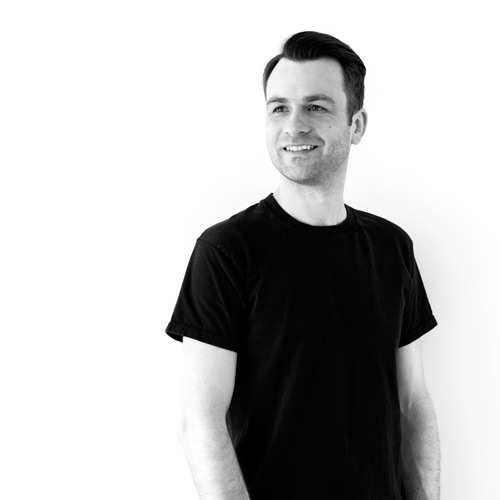
James is an award-winning freelance landscape and portrait photographer, as well as a highly experienced photography journalist working with some of the best photography magazines and websites with a worldwide audience. He's also the author of The Digital Darkroom: The Definitive Guide to Photo Editing.
January 6: We have updated the text in this guide to reference the new year.
Breaking space news, the latest updates on rocket launches, skywatching events and more!
James is an award-winning freelance landscape and portrait photographer, as well as a highly experienced photography journalist working with some of the best photography magazines and websites with a worldwide audience. He’s also the author of The Digital Darkroom: The Definitive Guide to Photo Editing. www.jamesaphoto.co.uk
- Rowena CockettContributing writer
- Alexander CoxE-commerce Staff Writer
- Jase Parnell-BrookesManaging Editor, e-commerce
